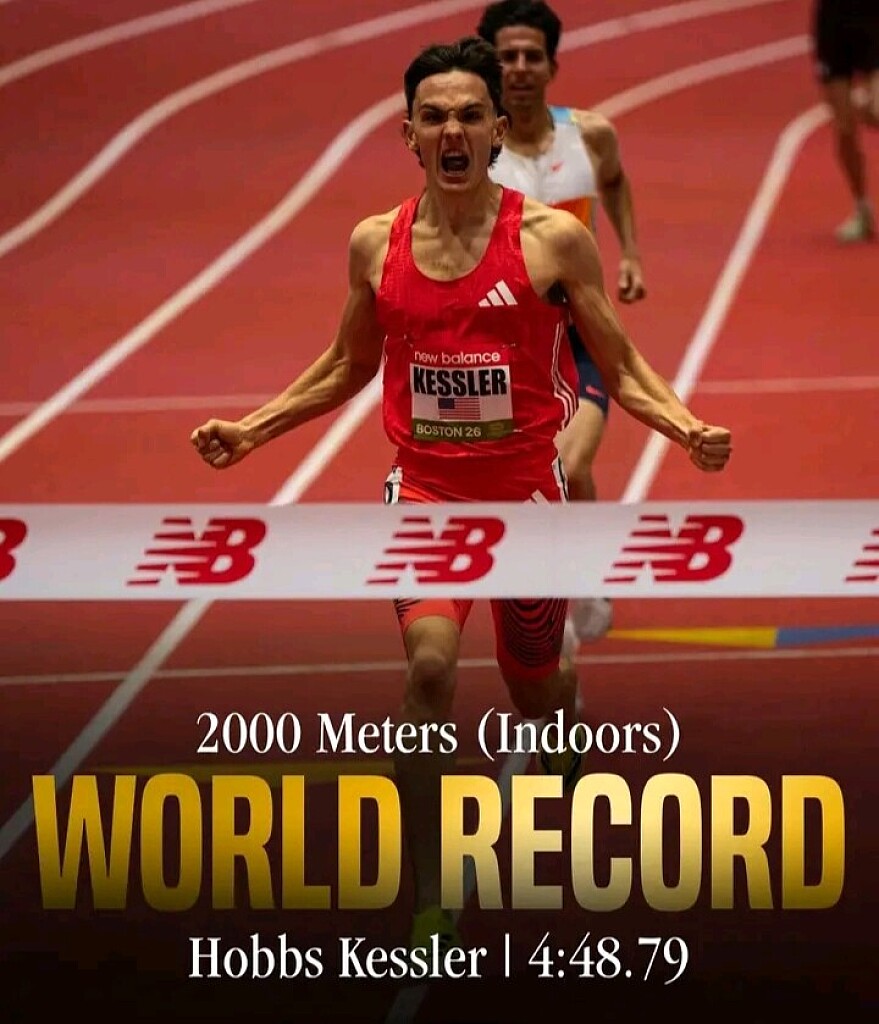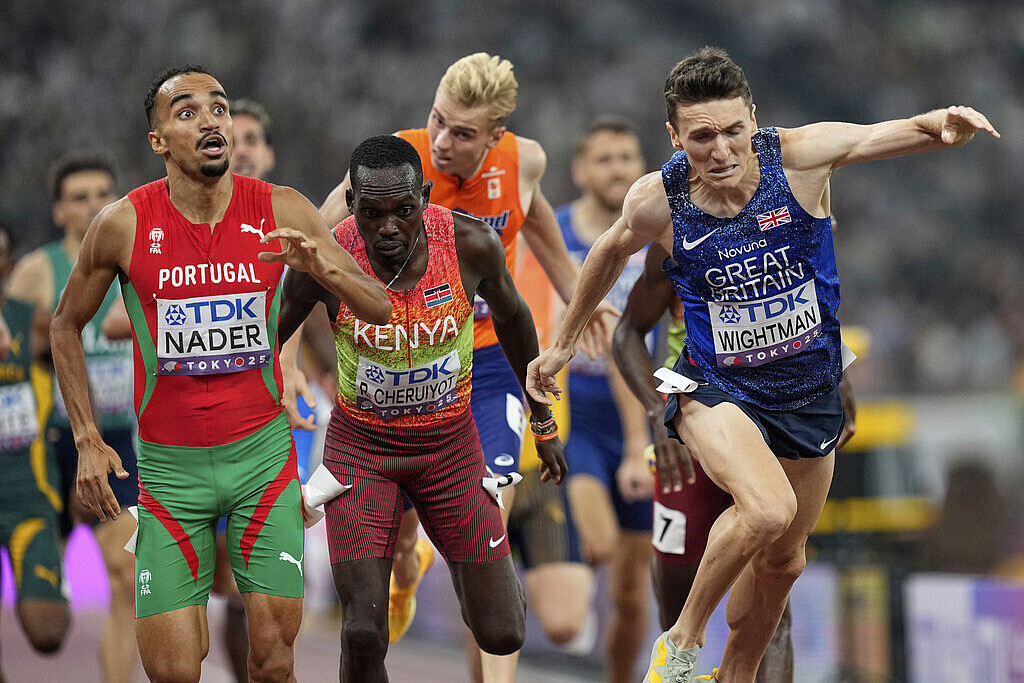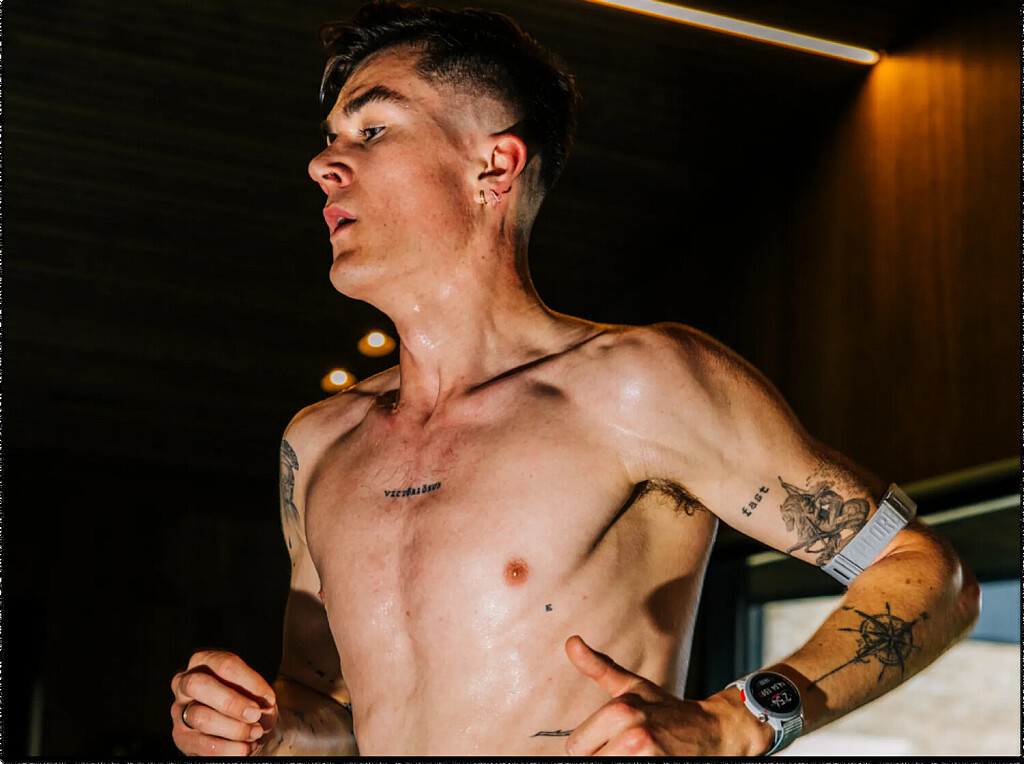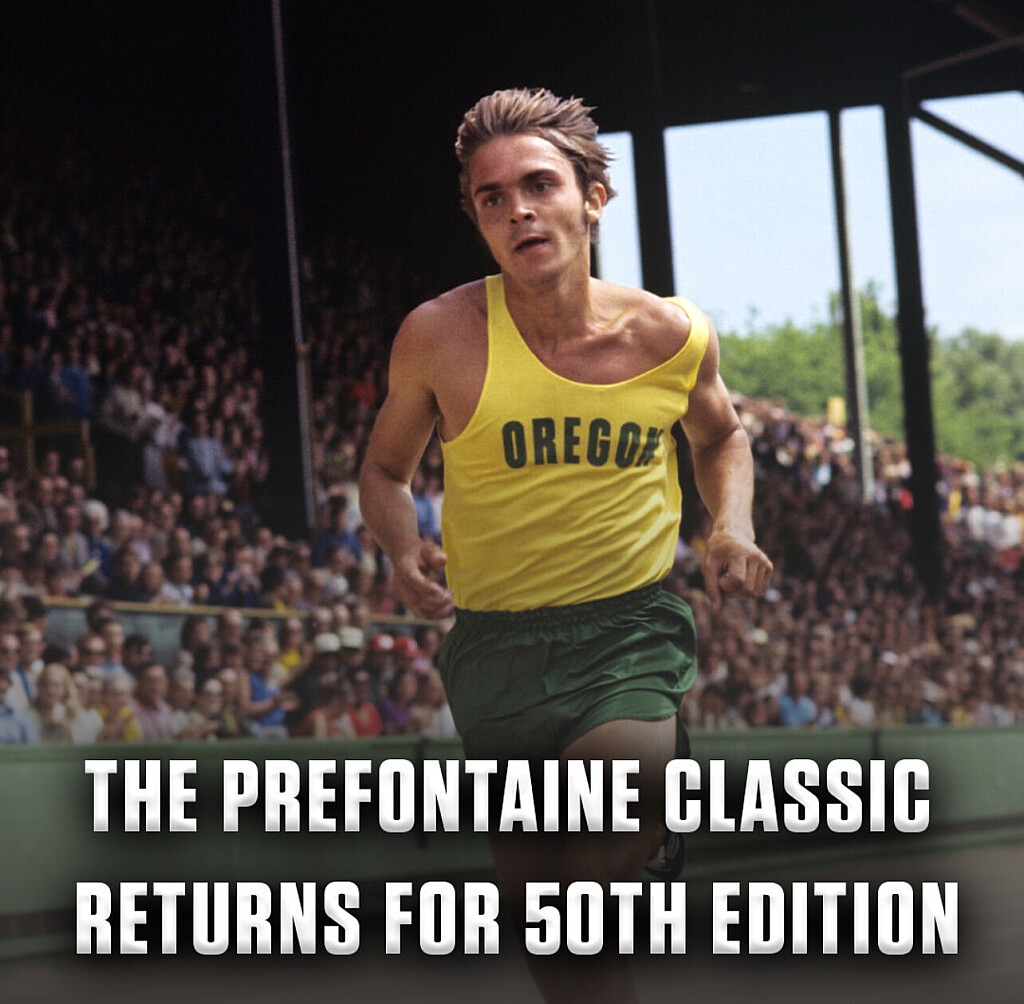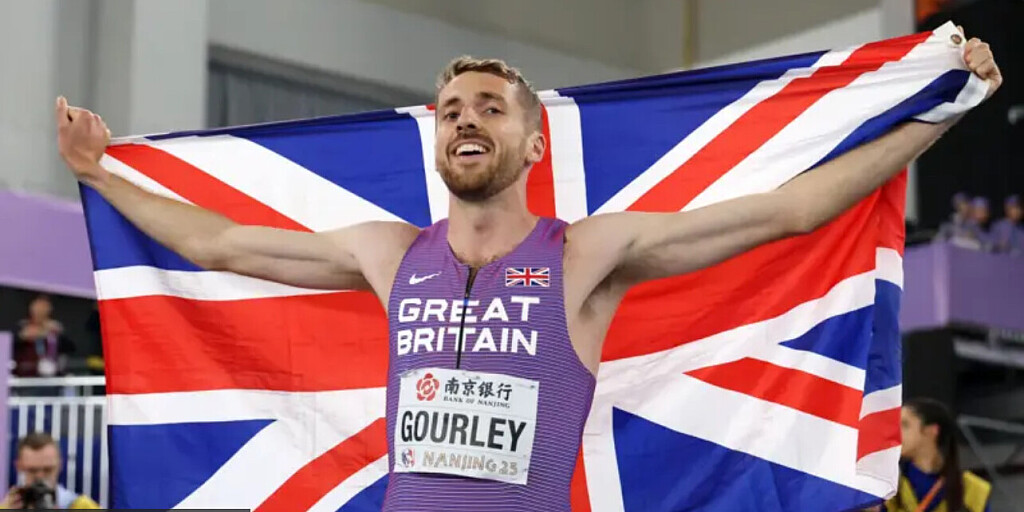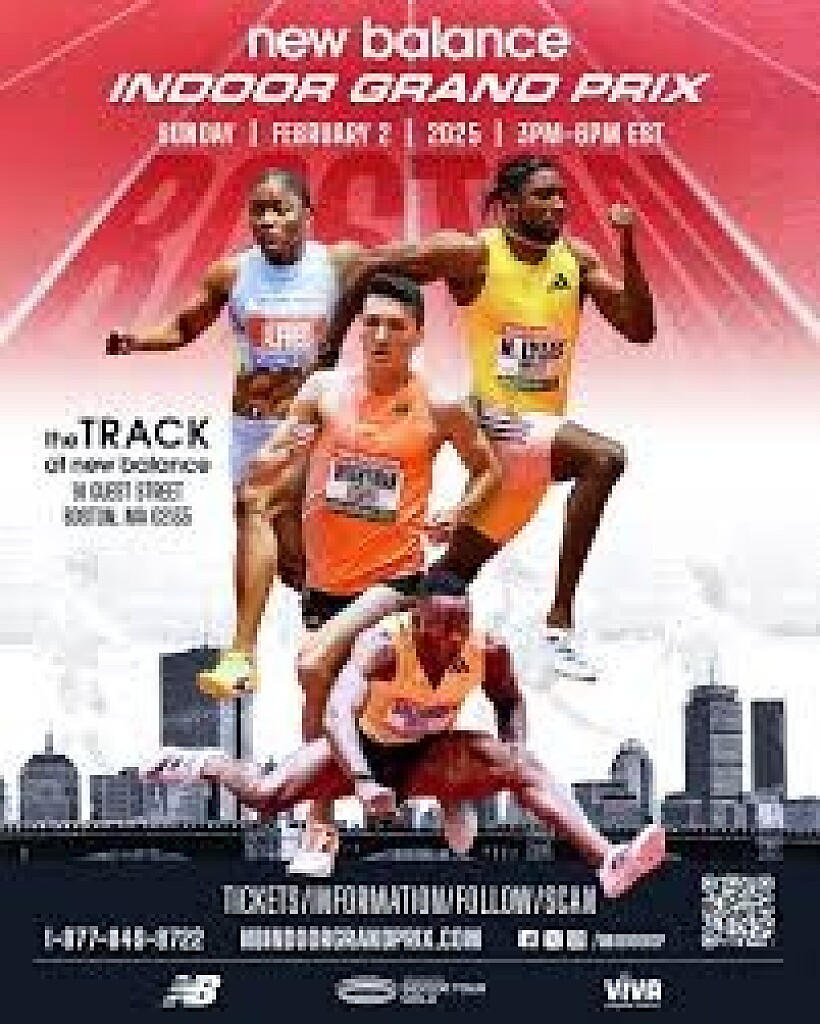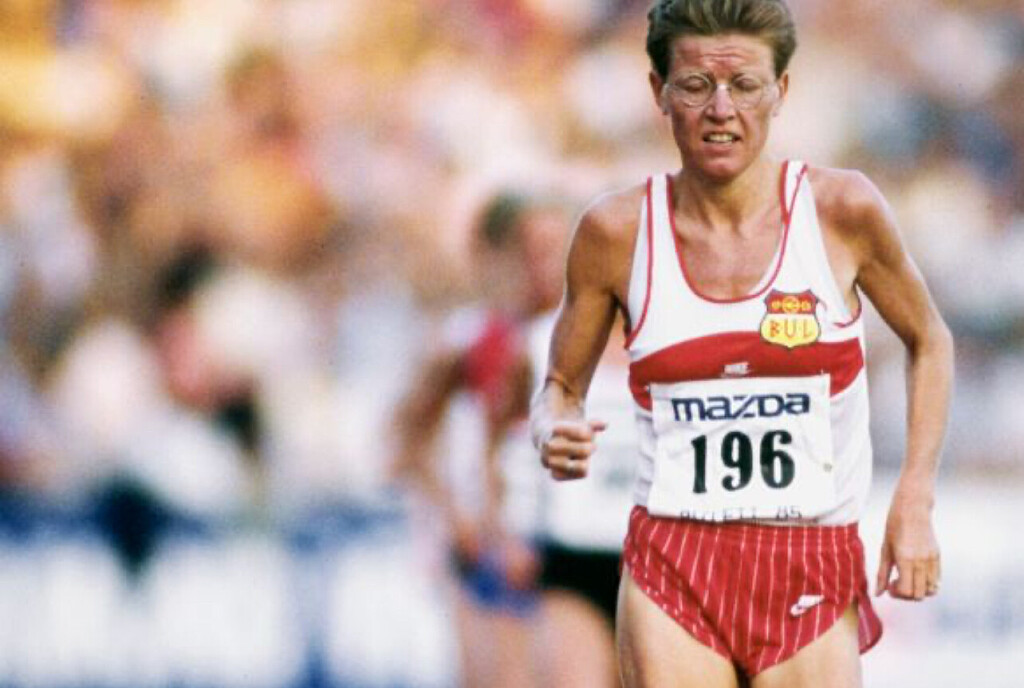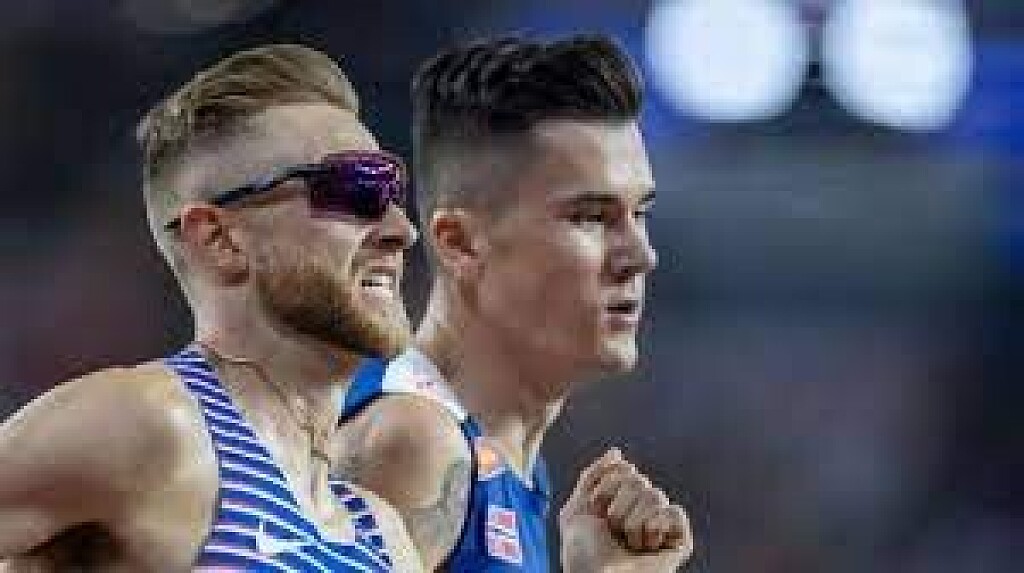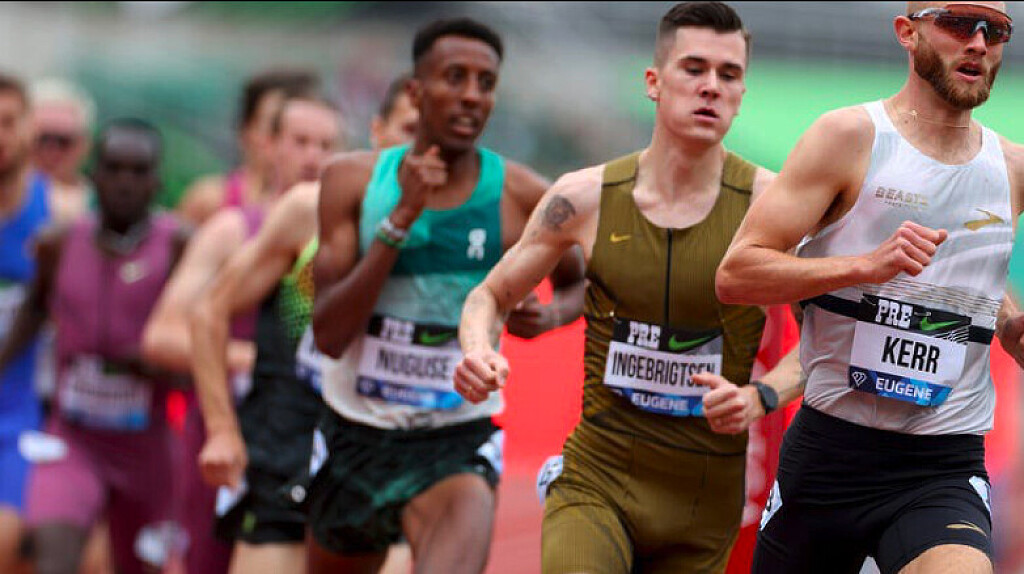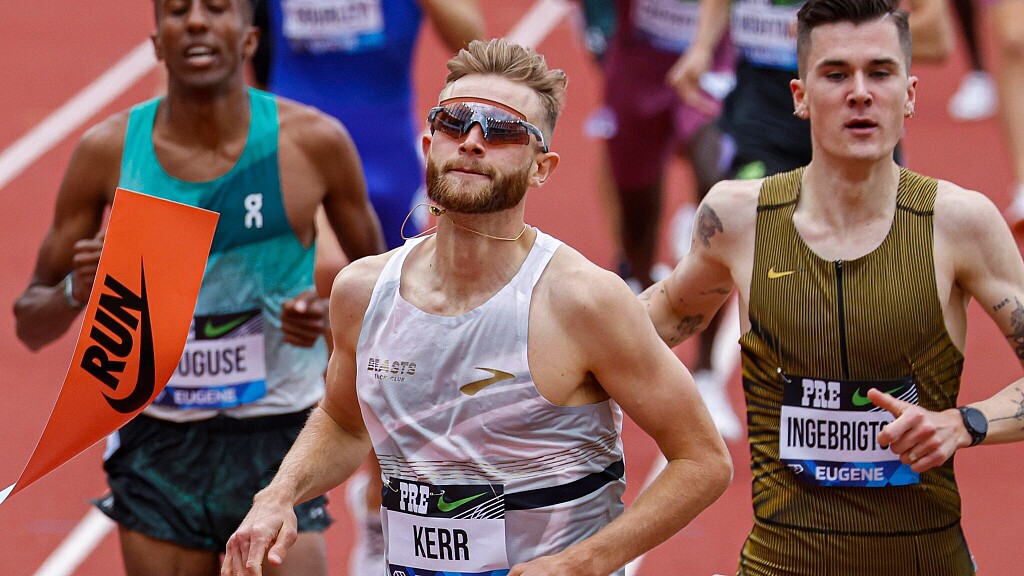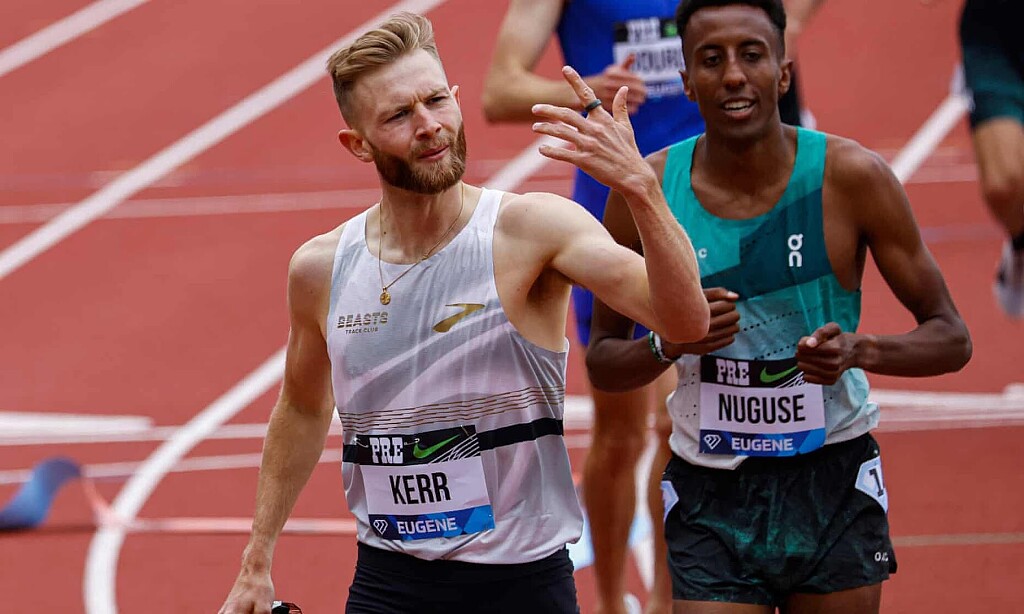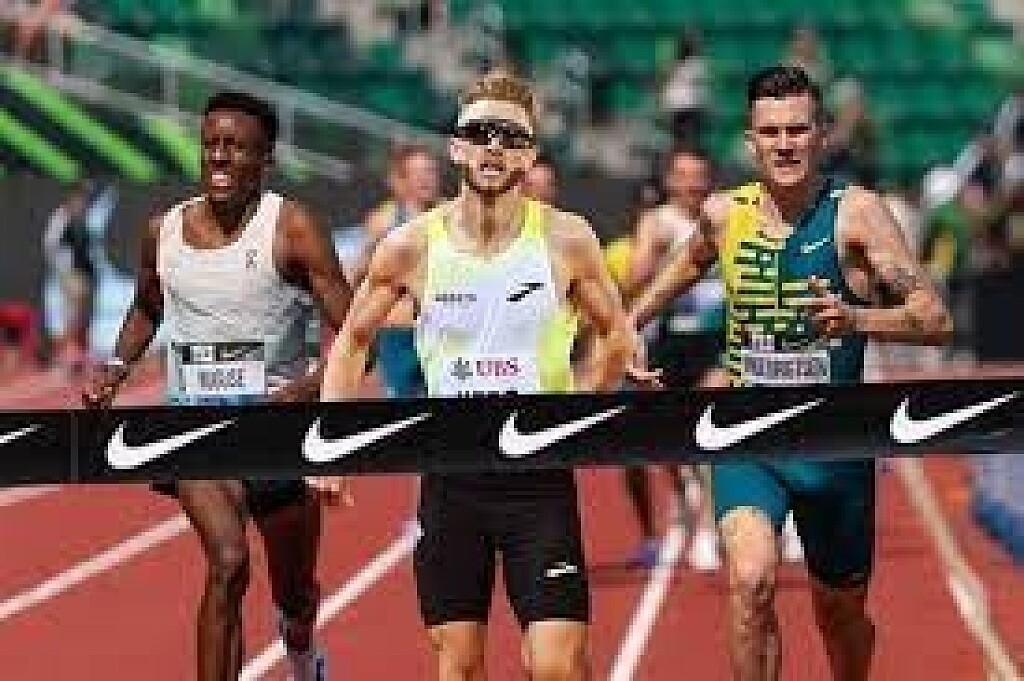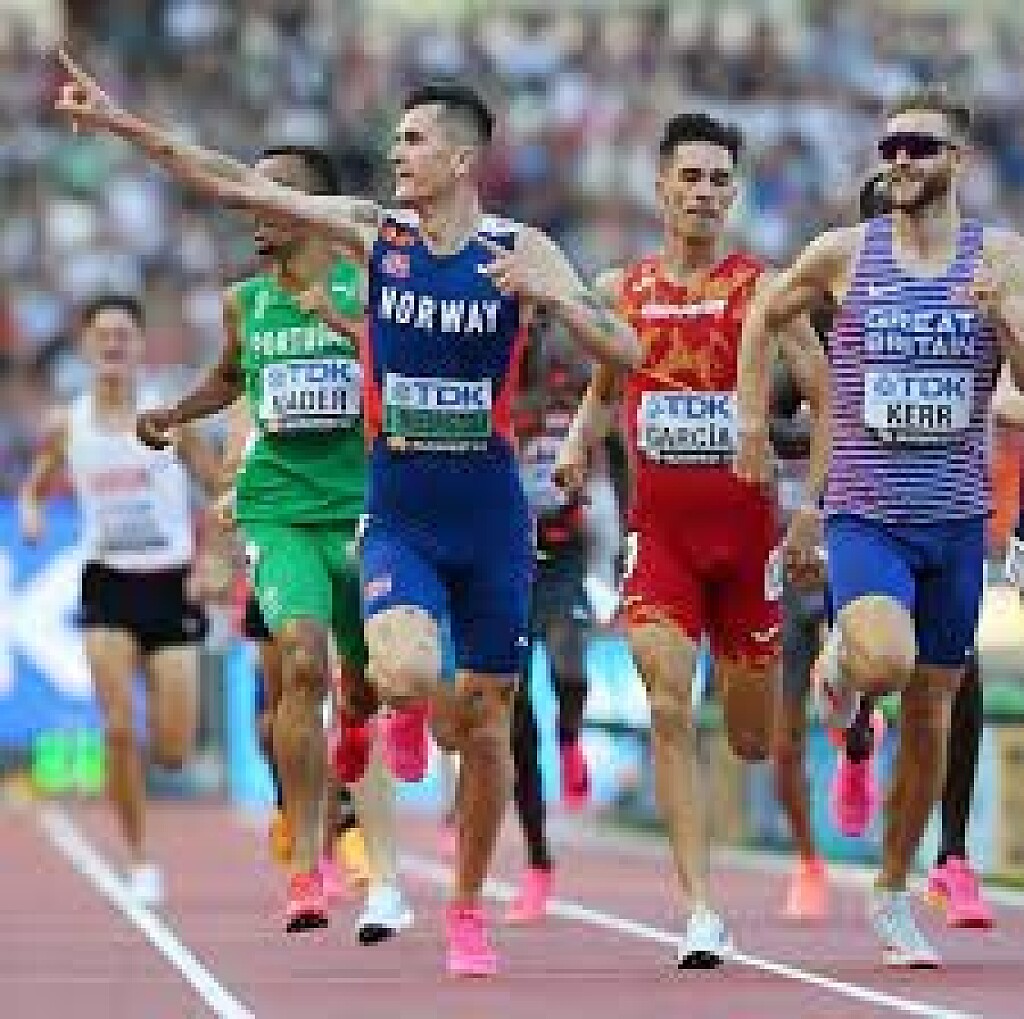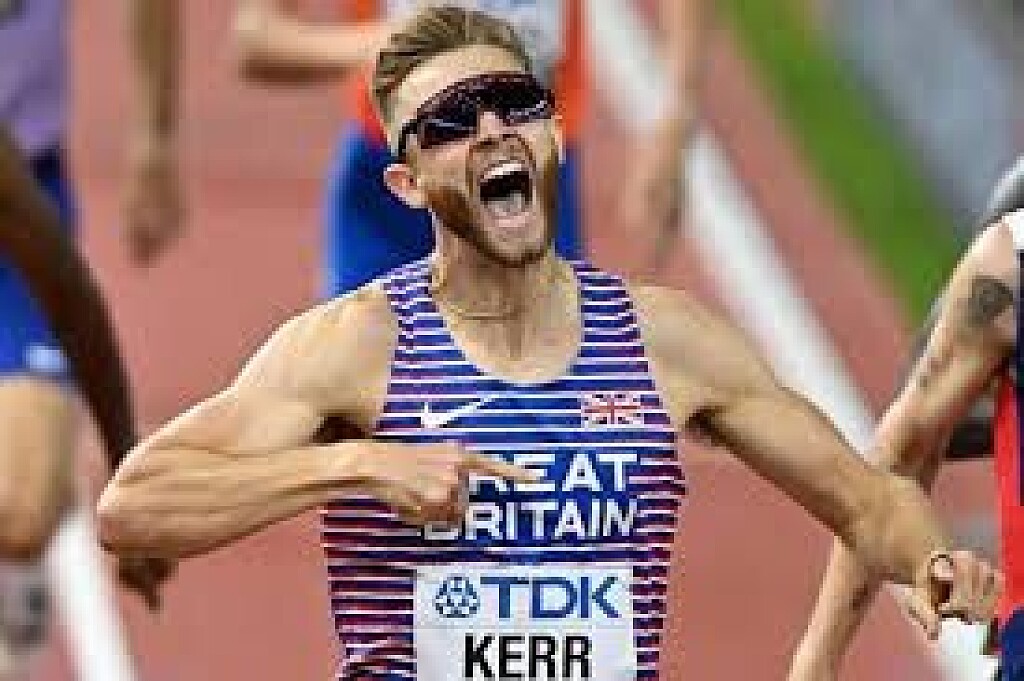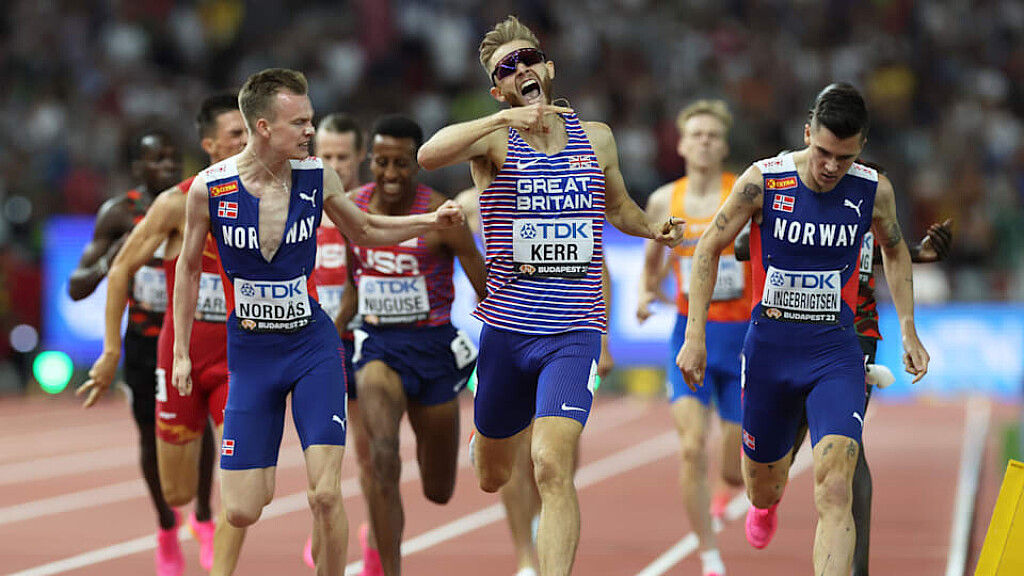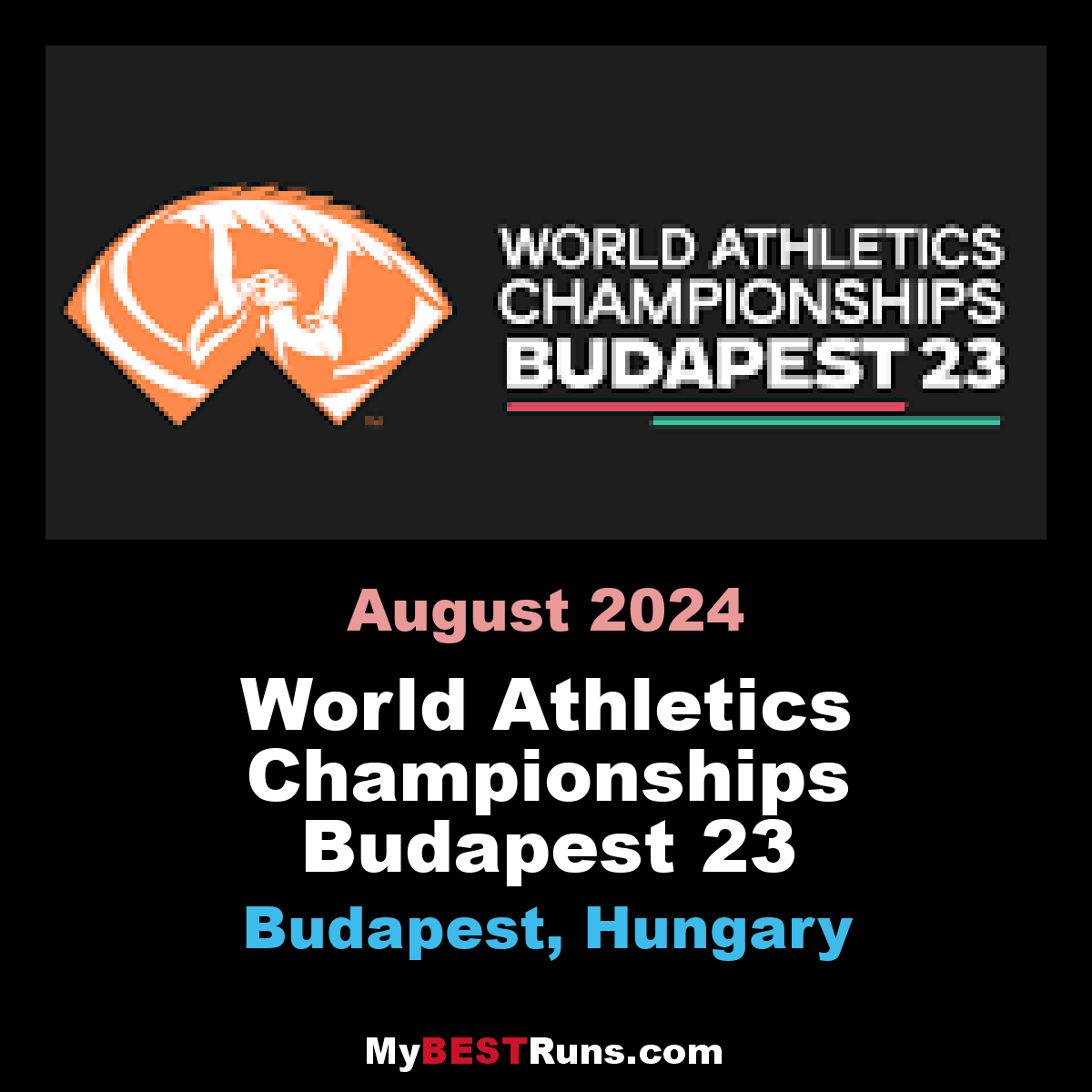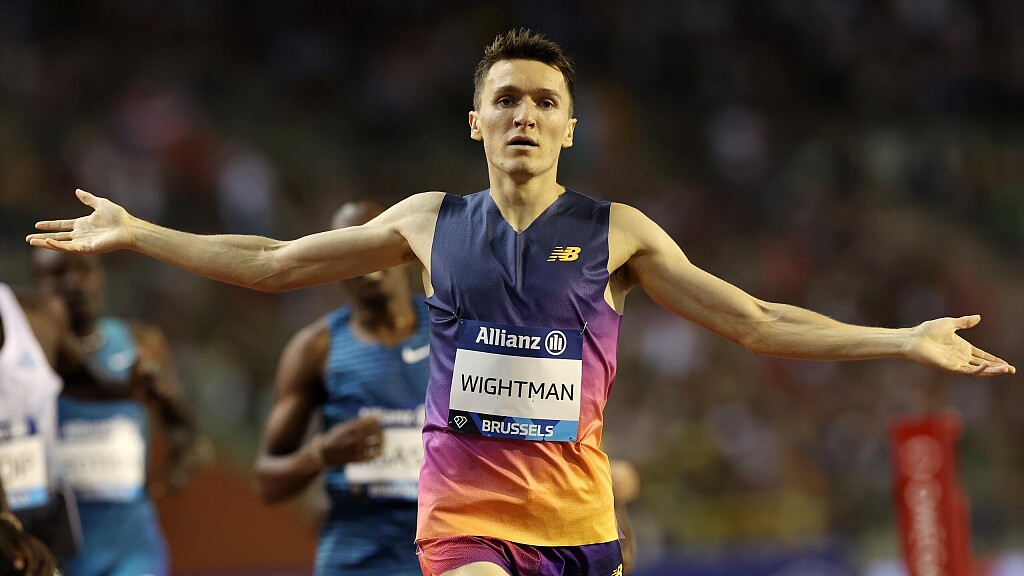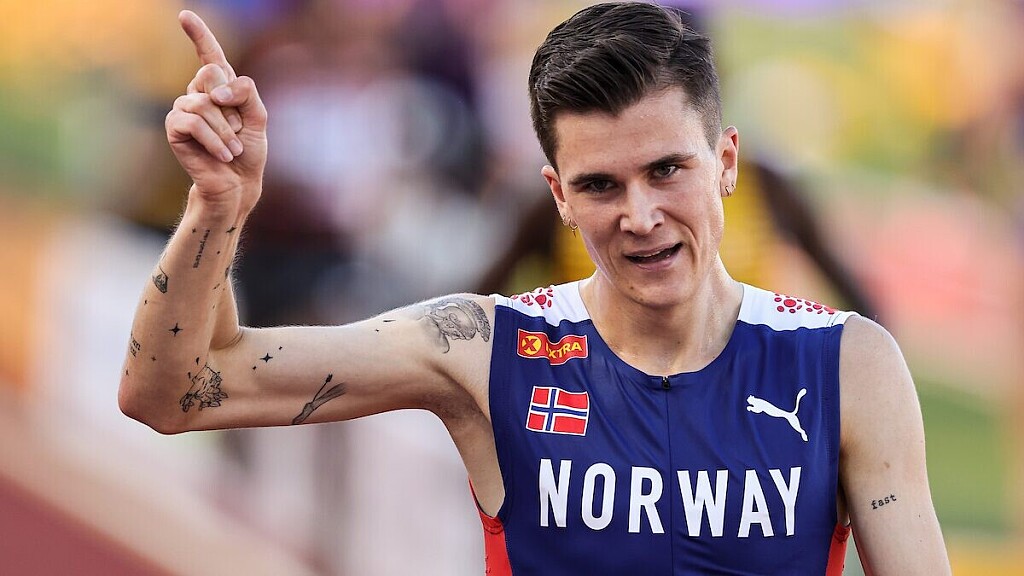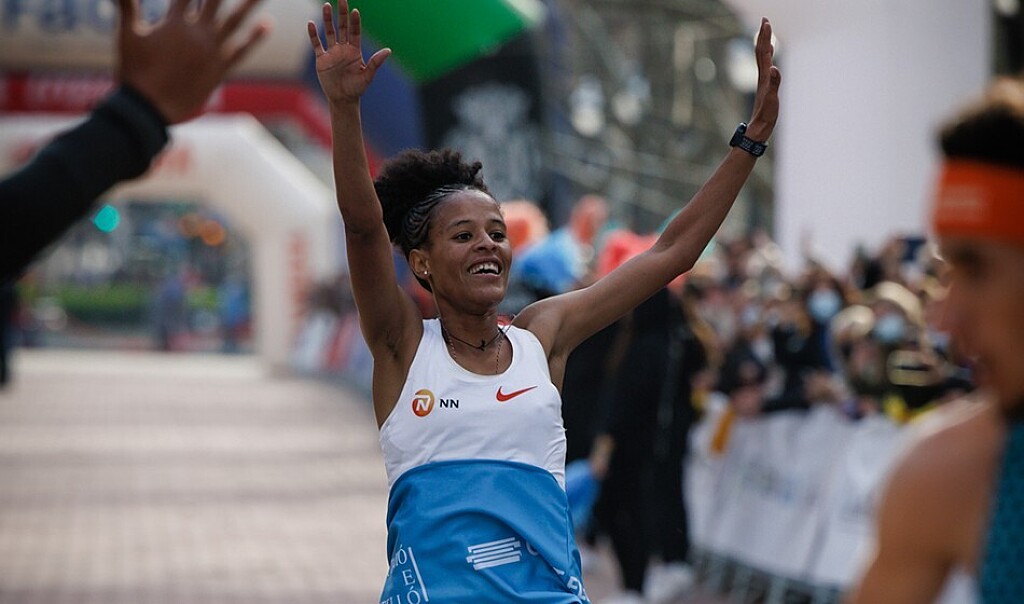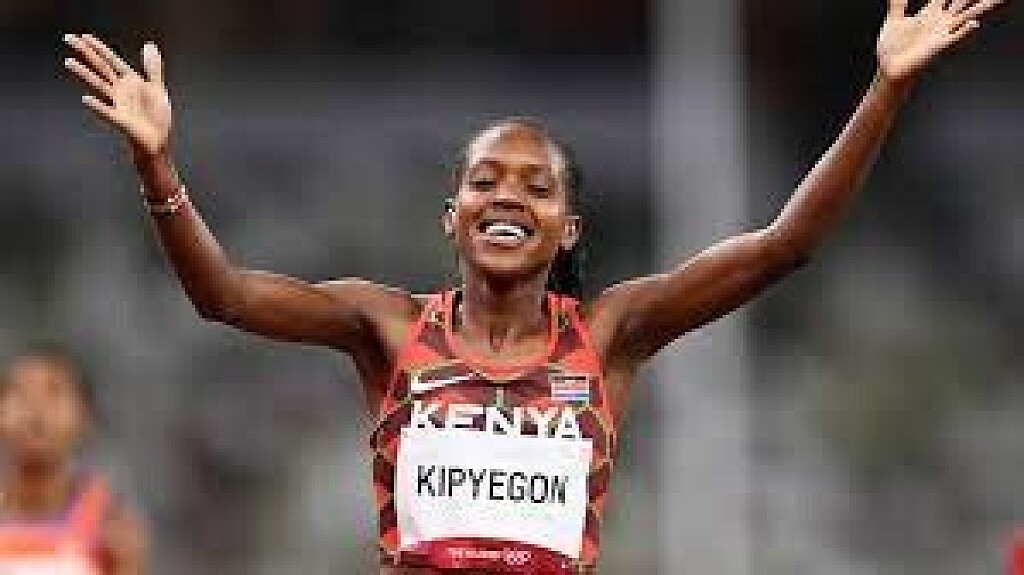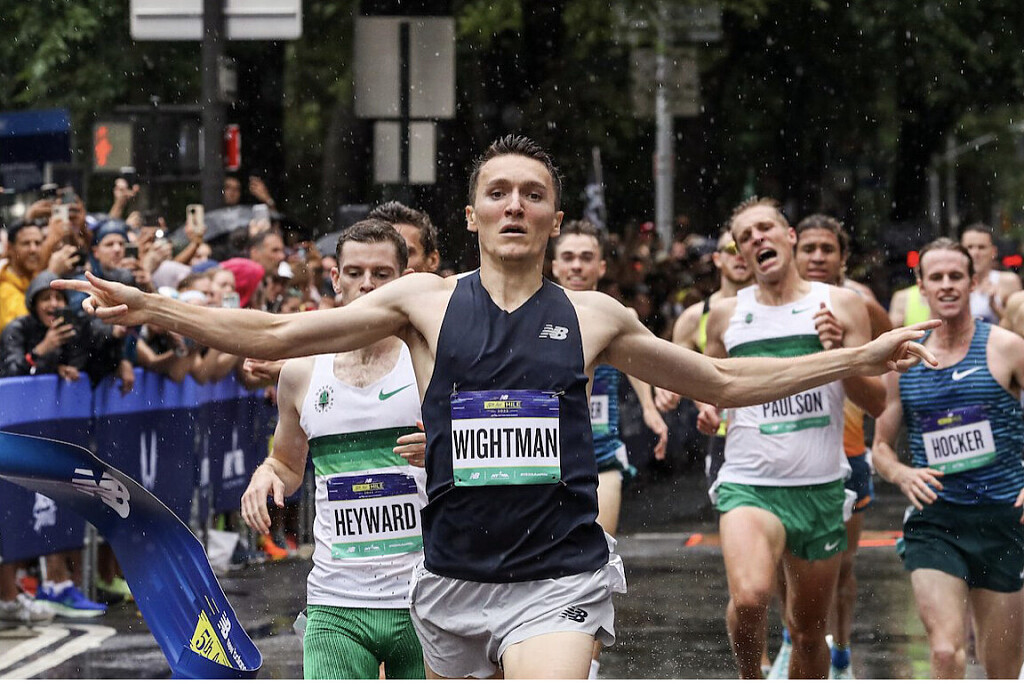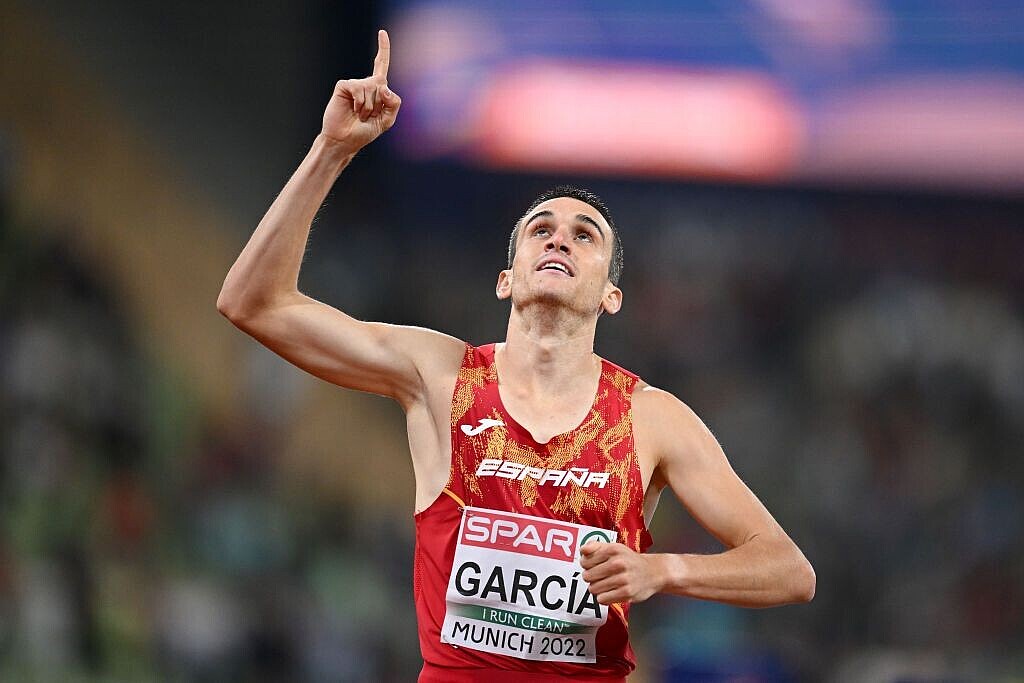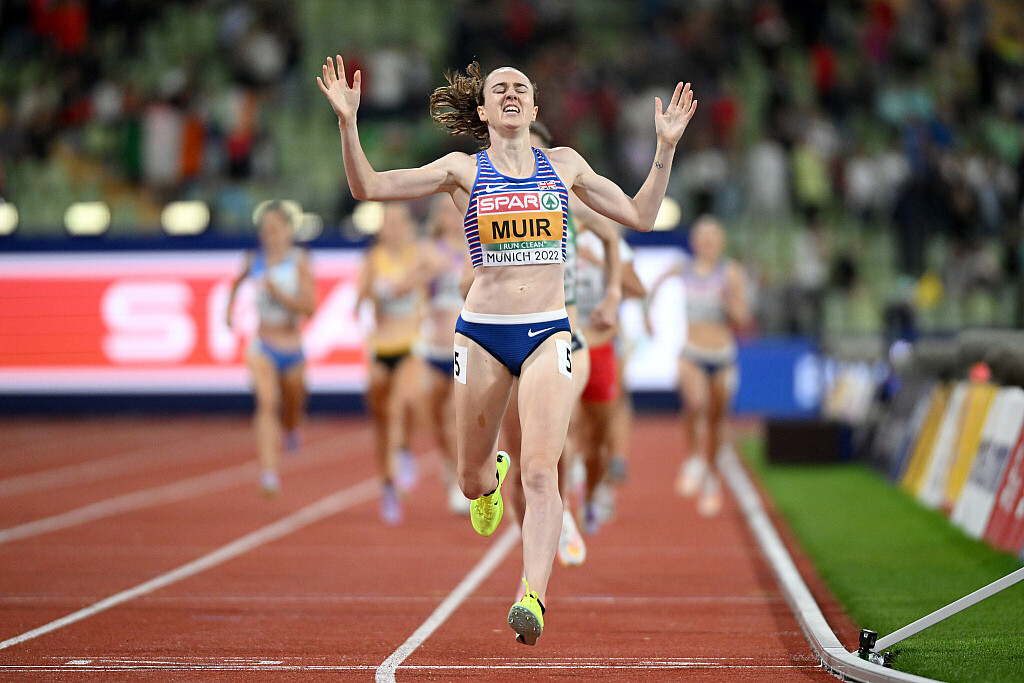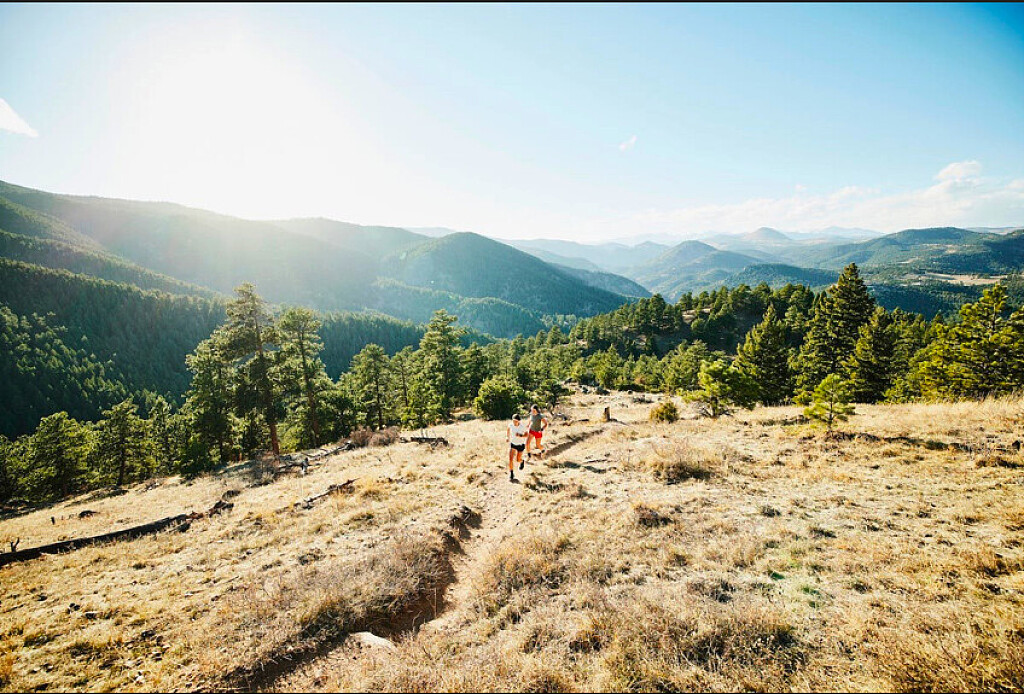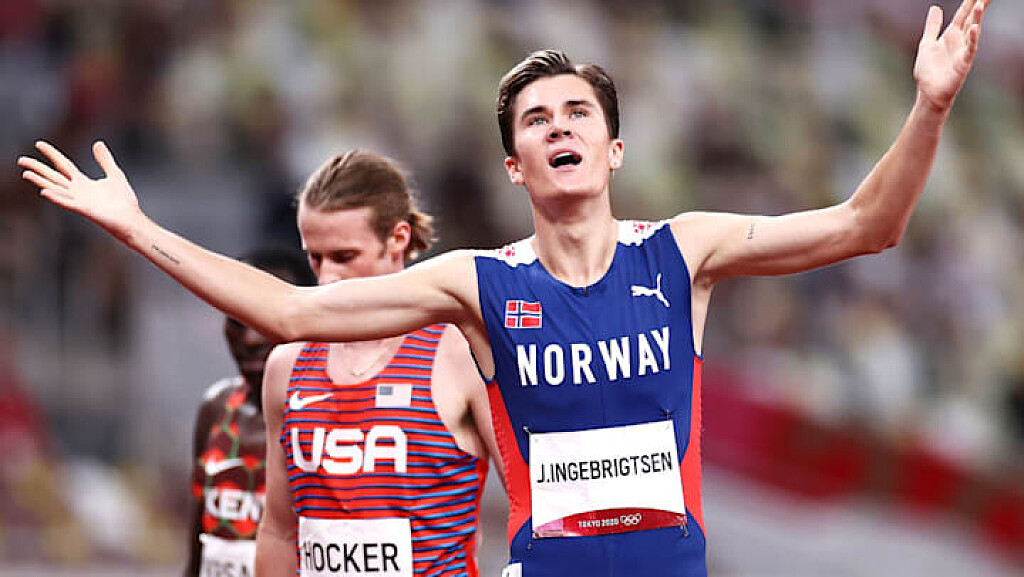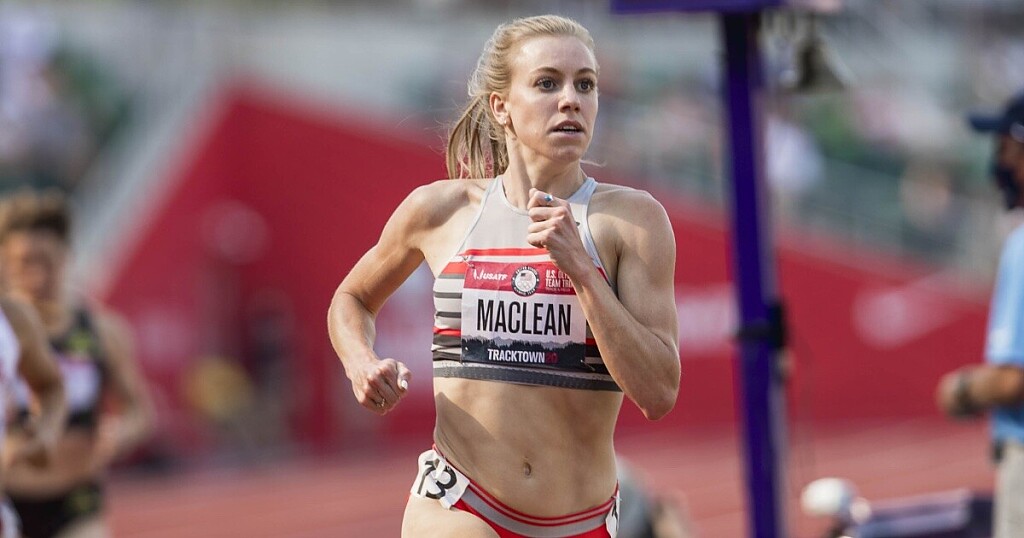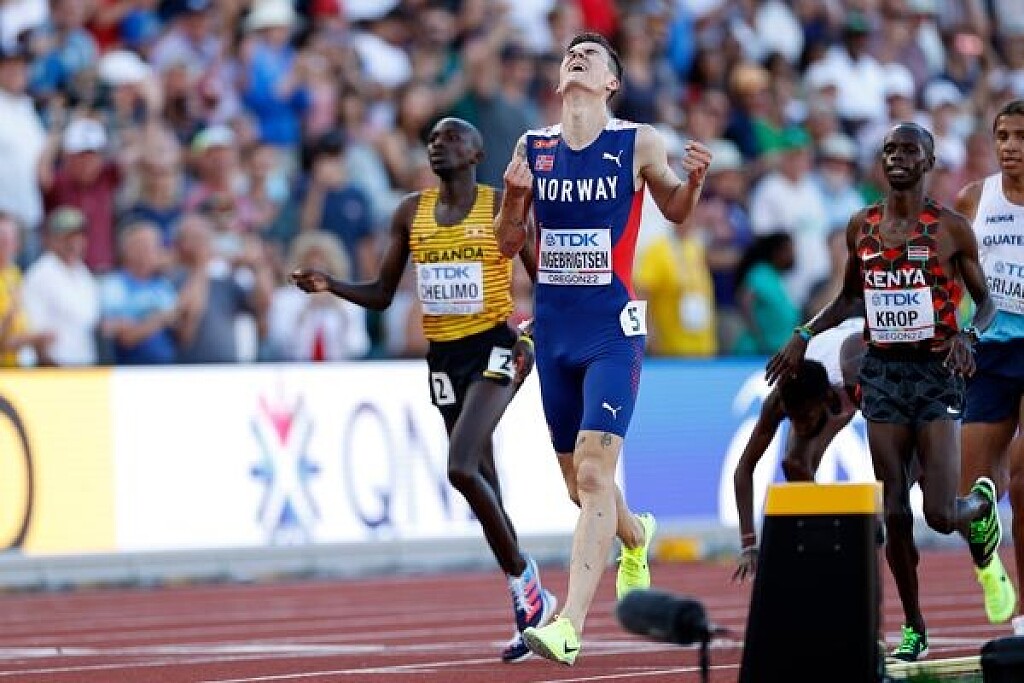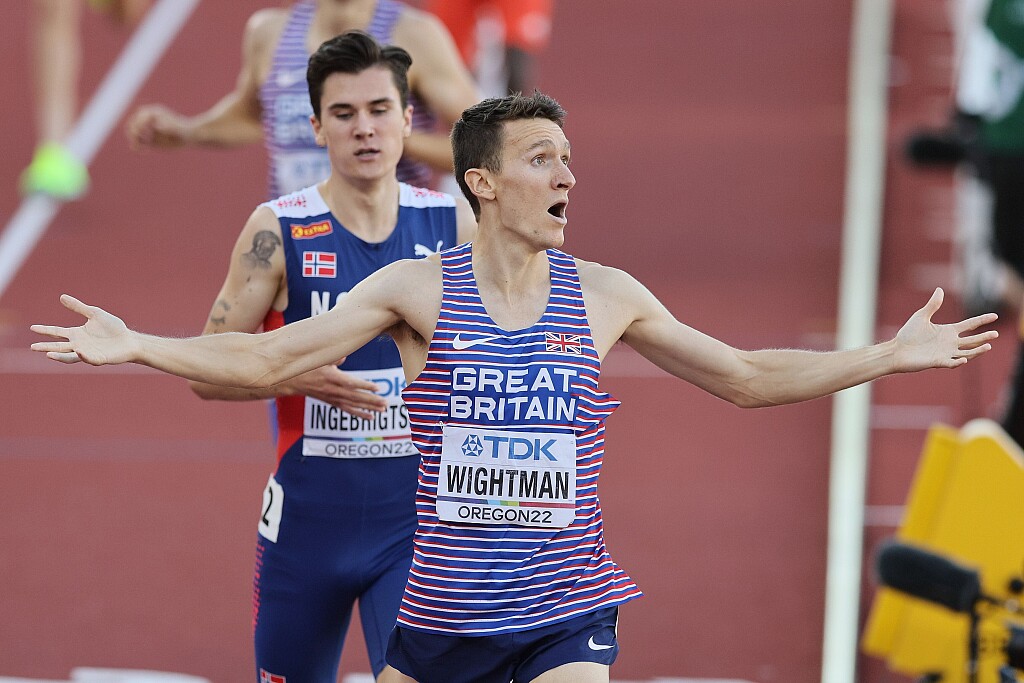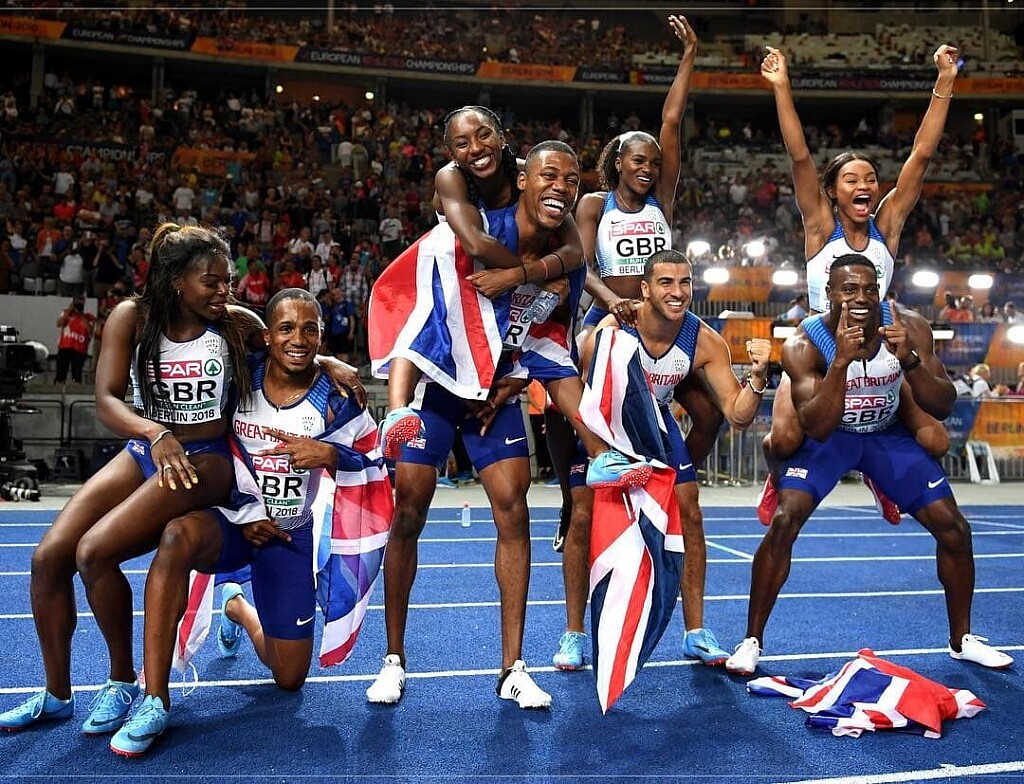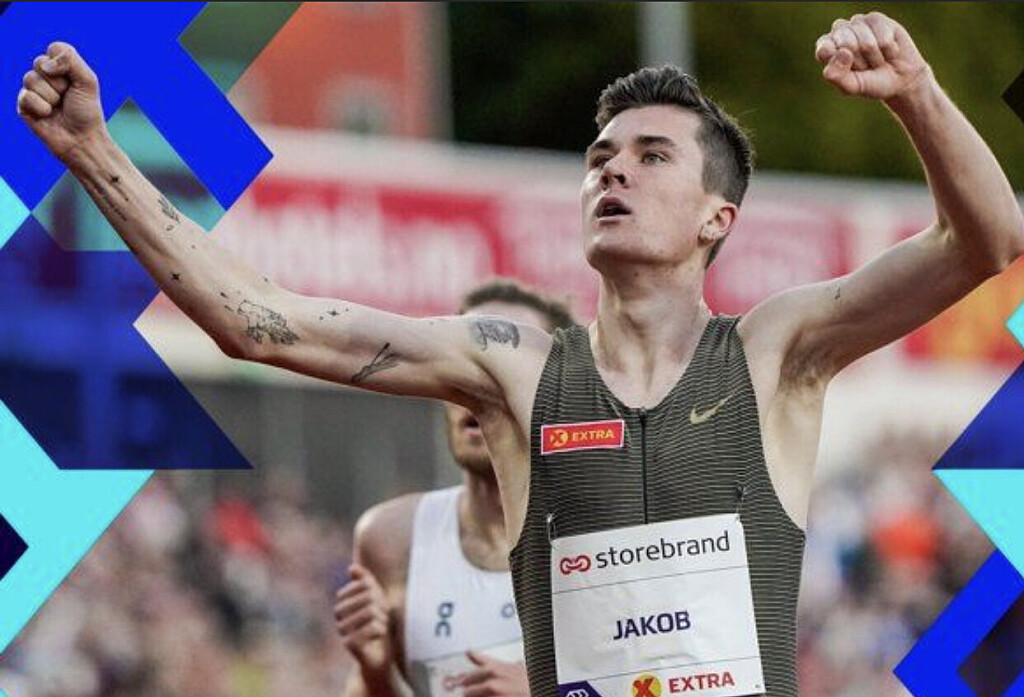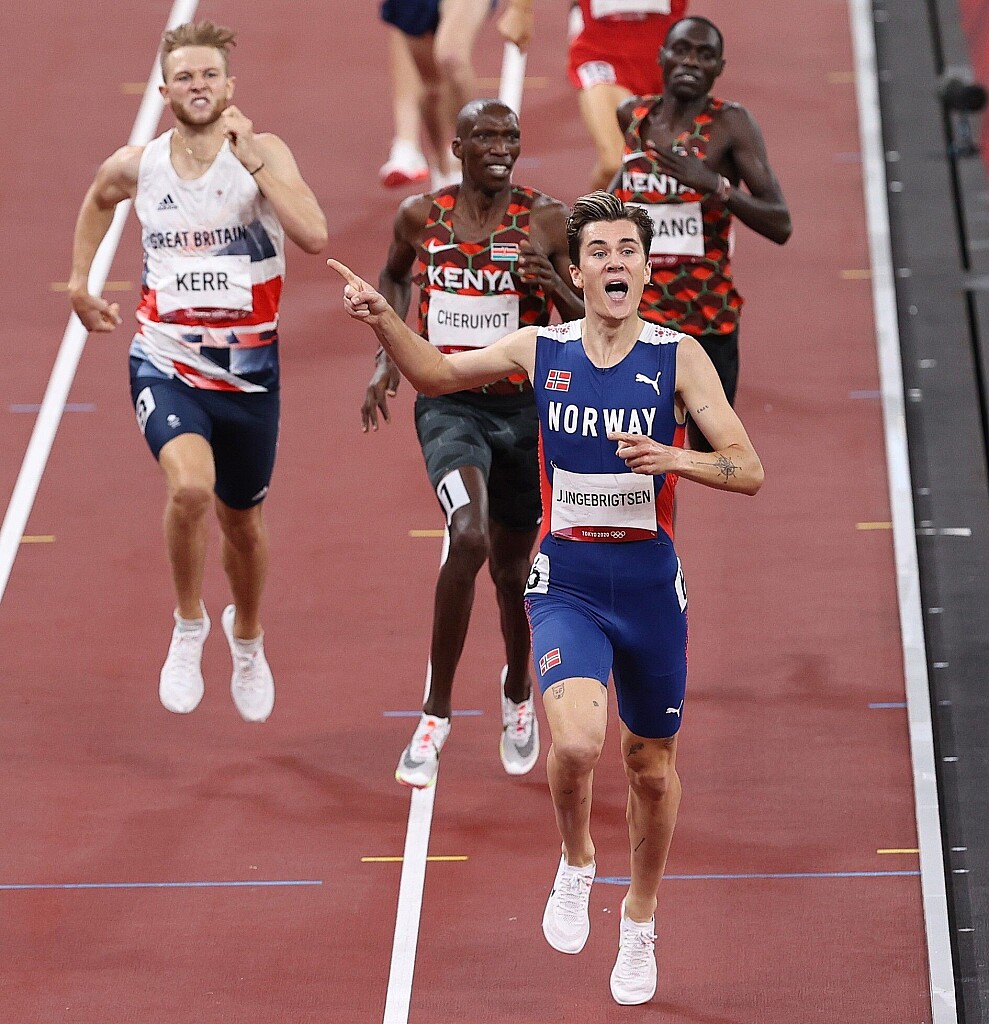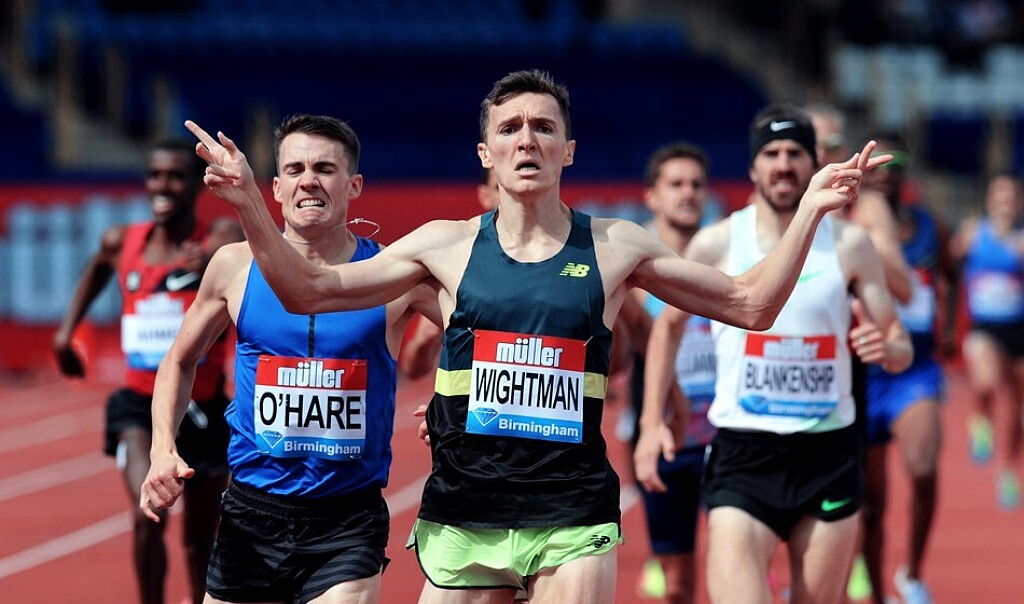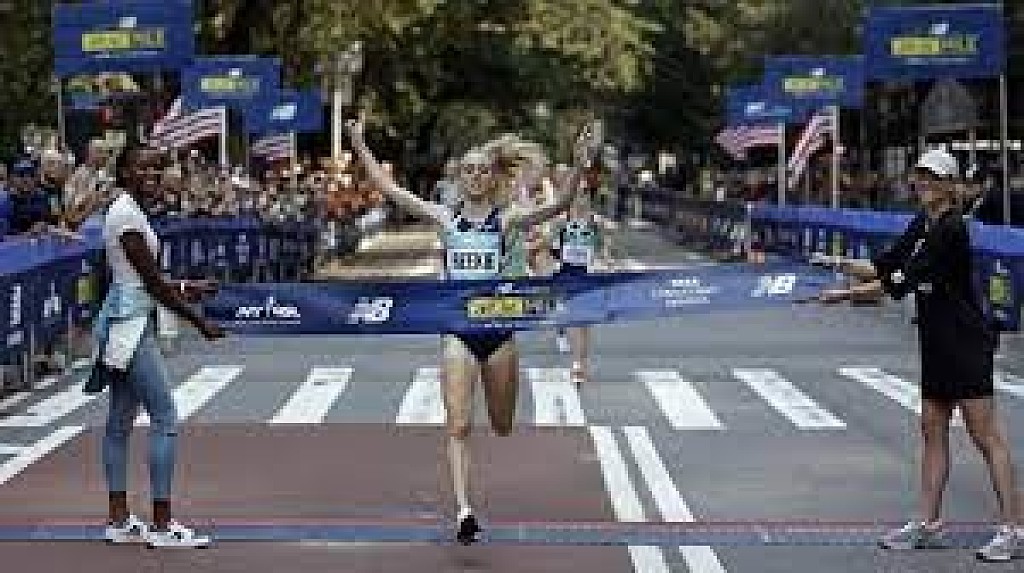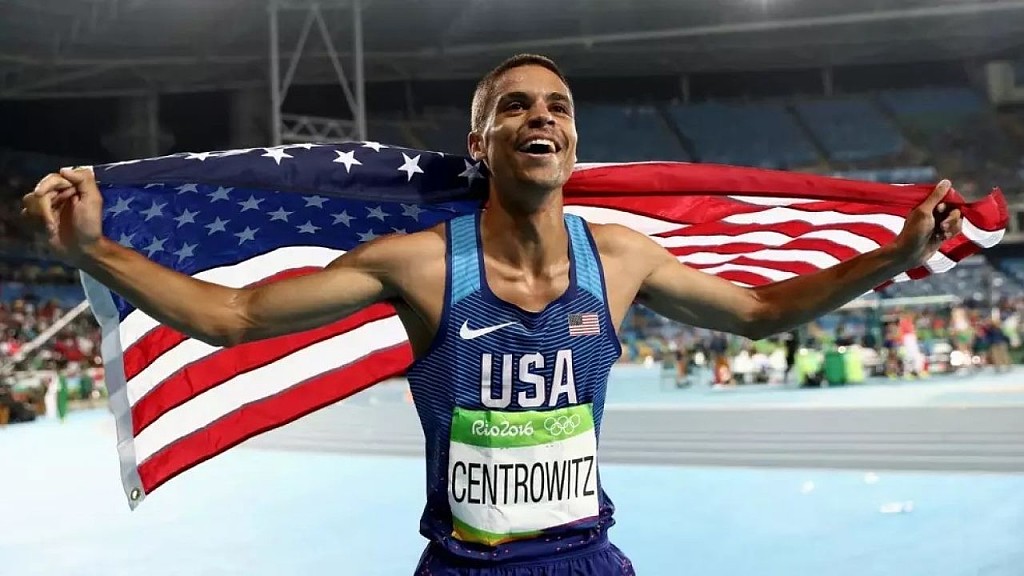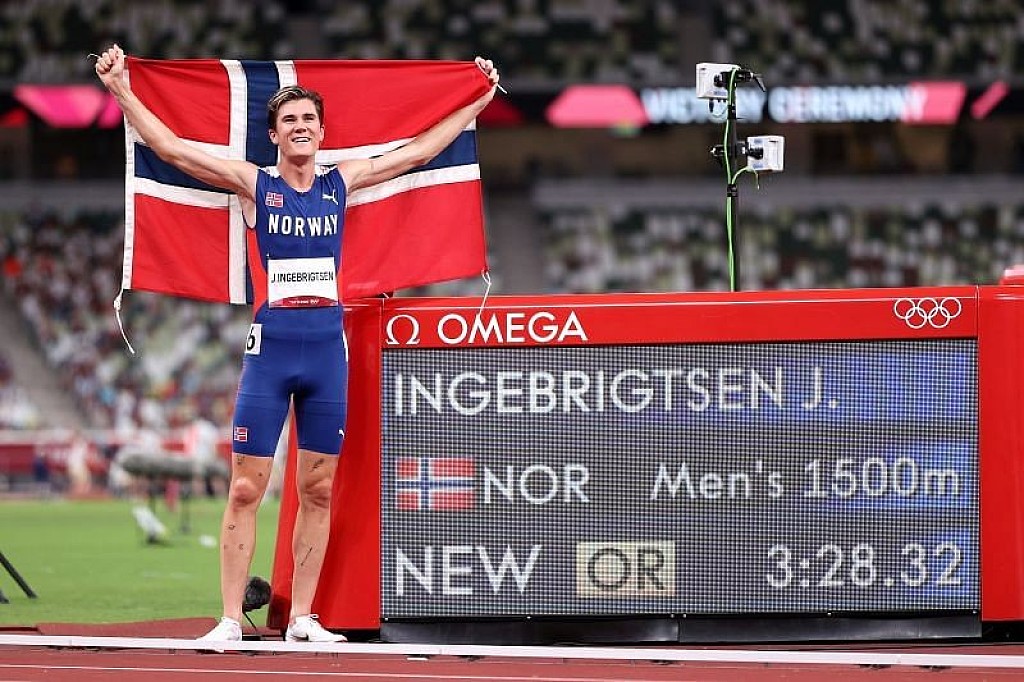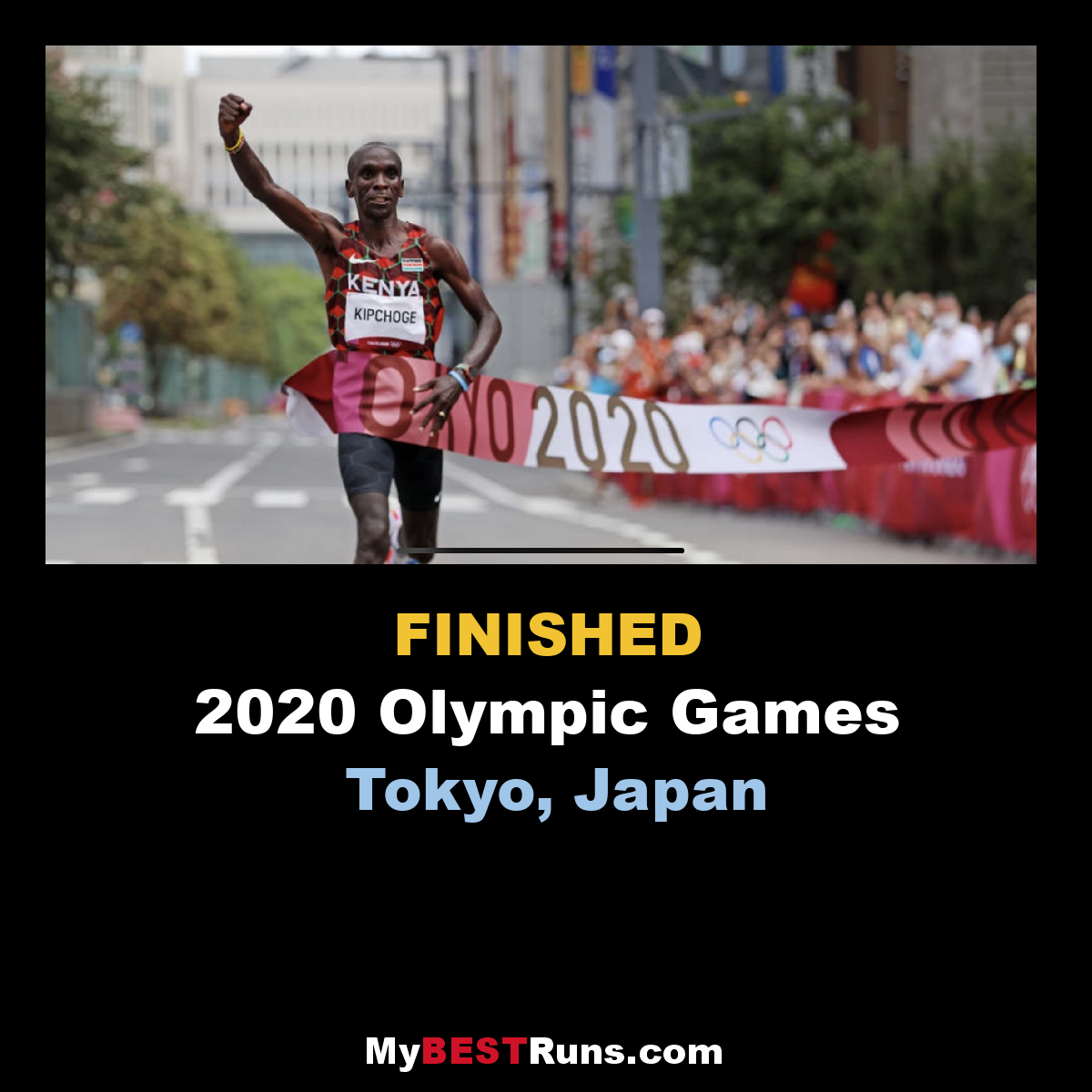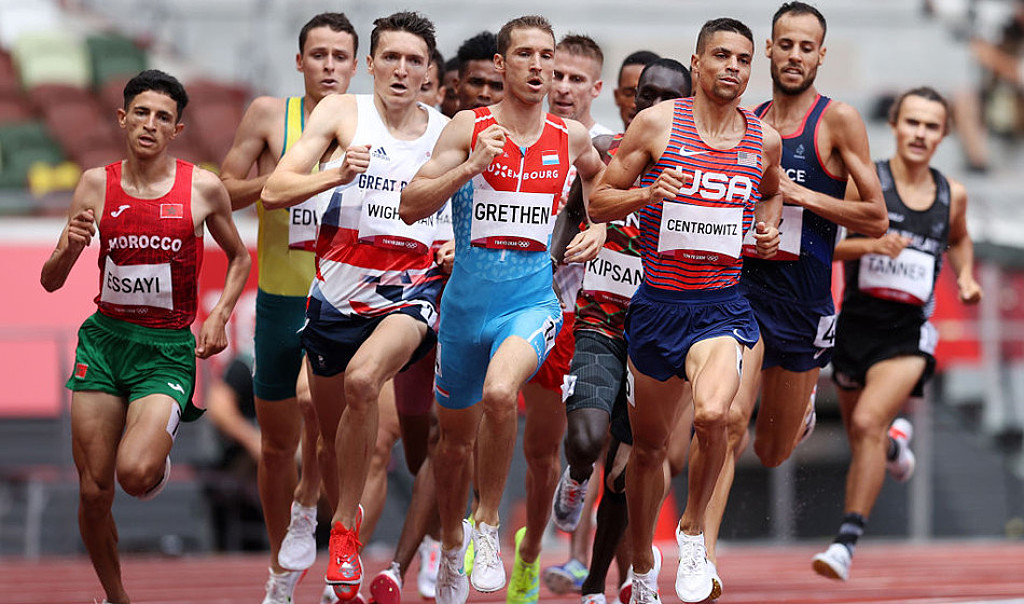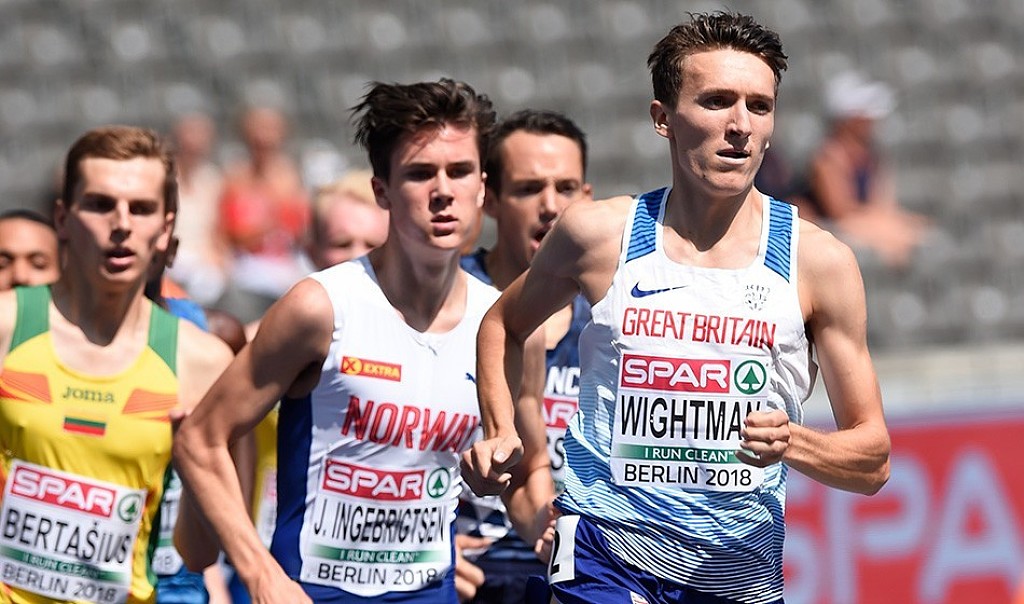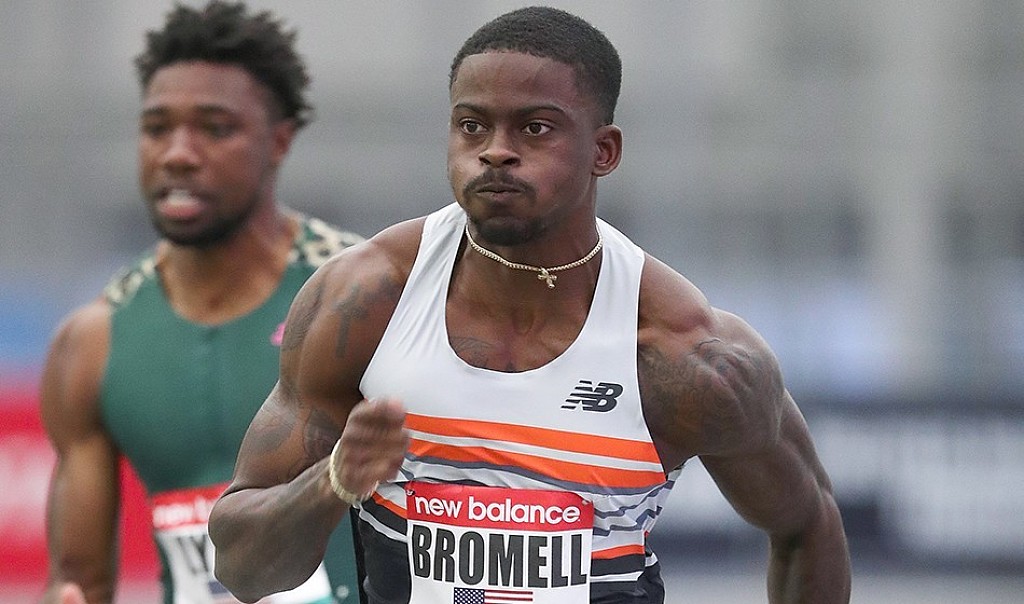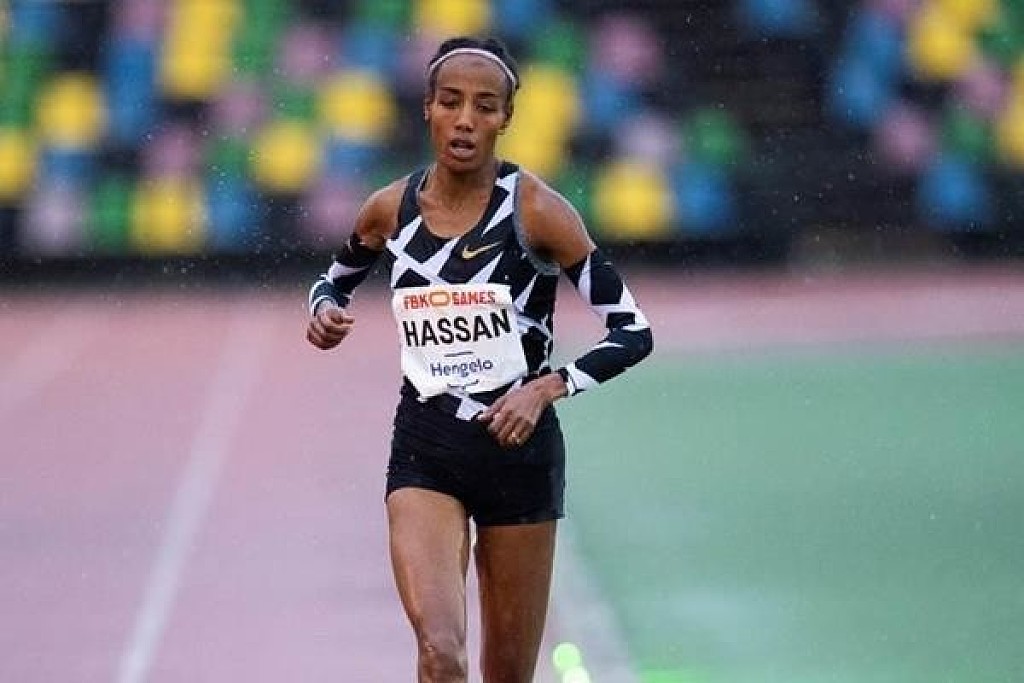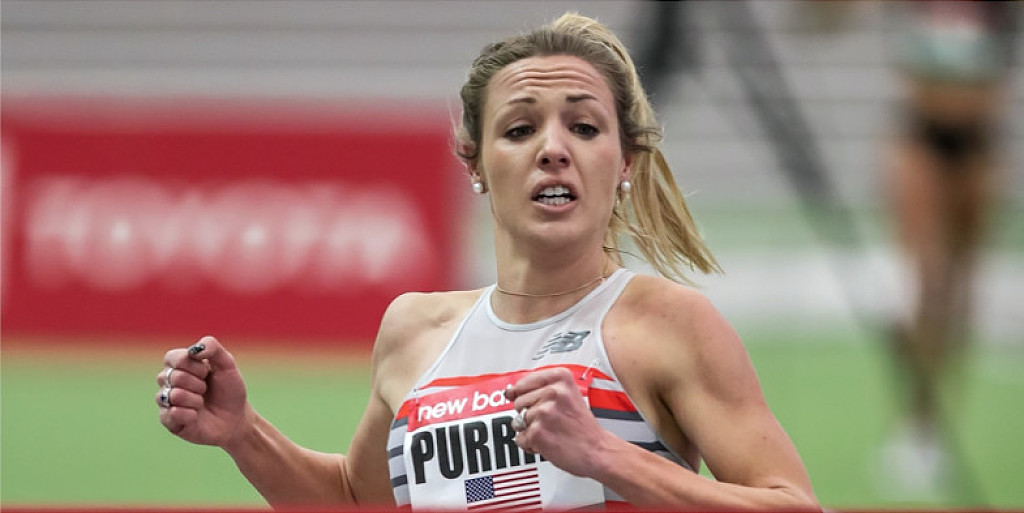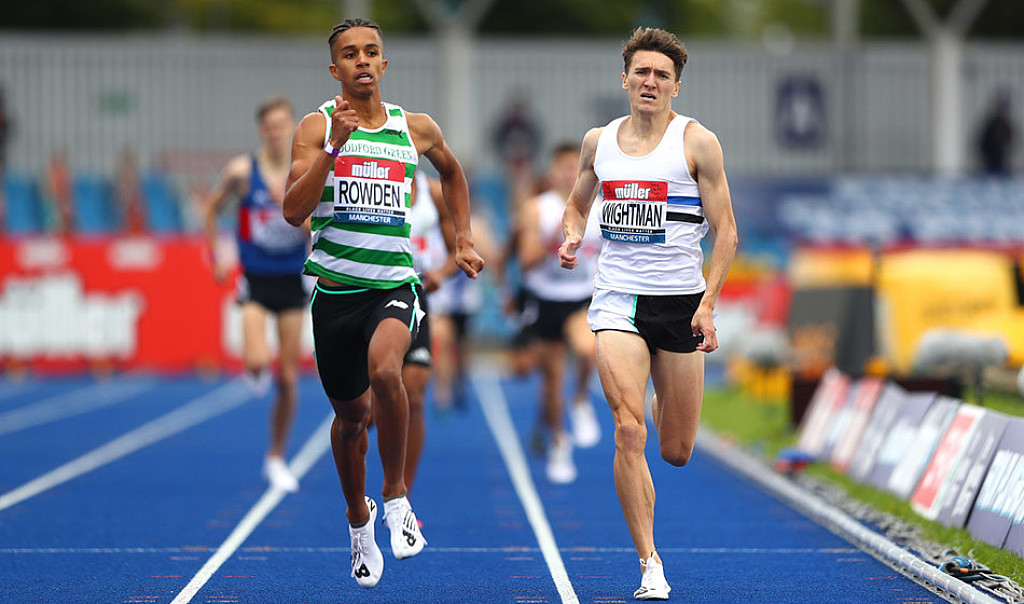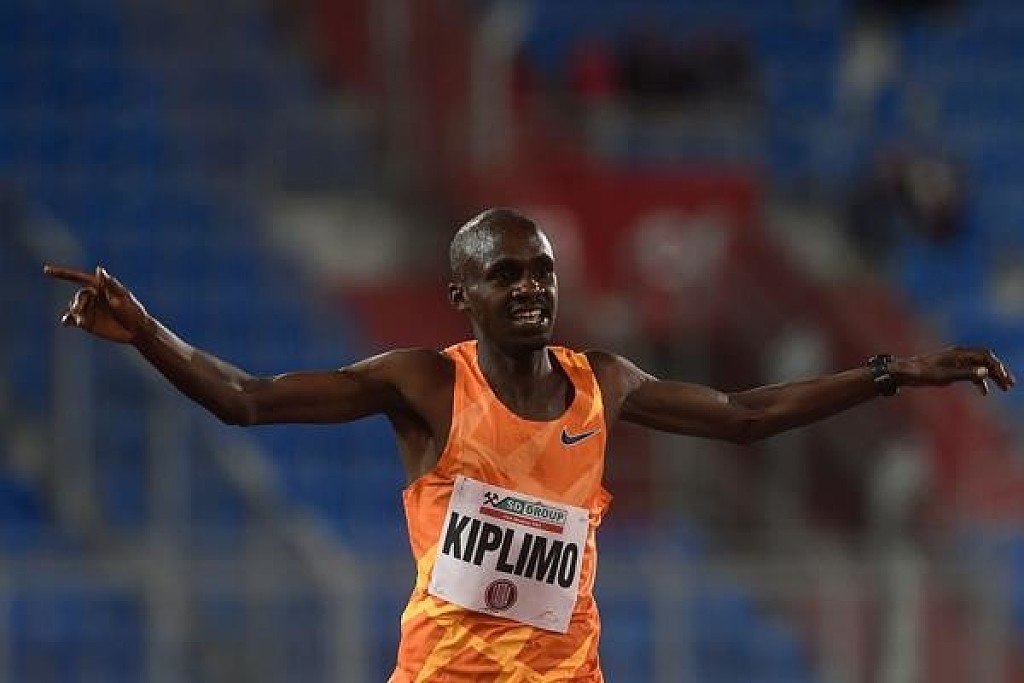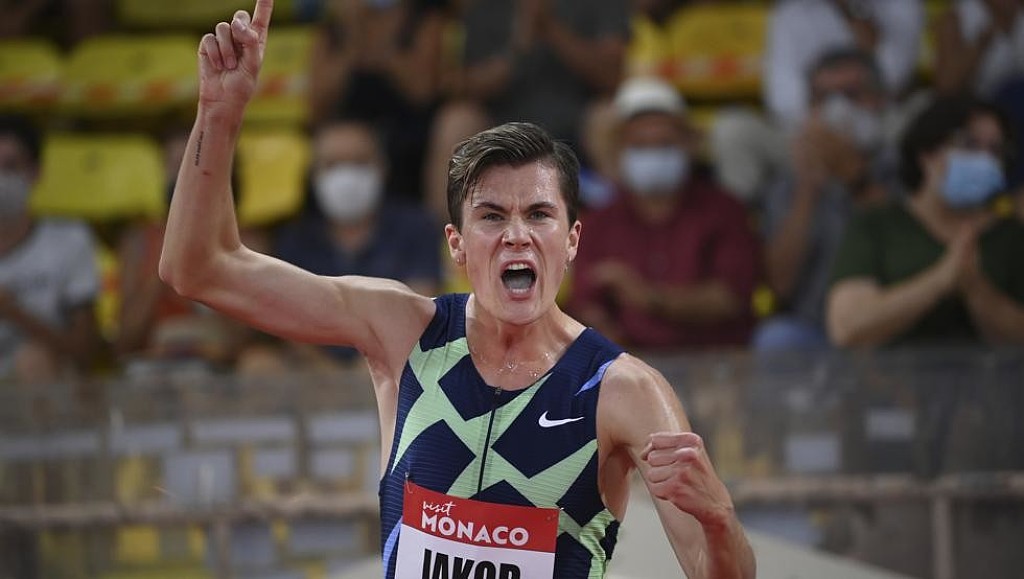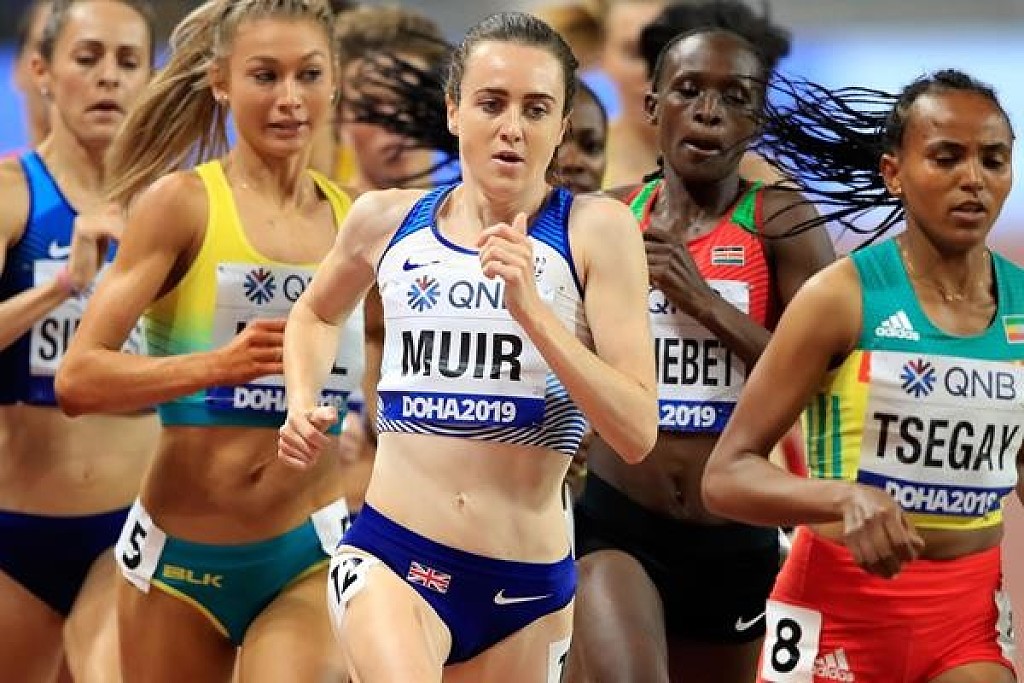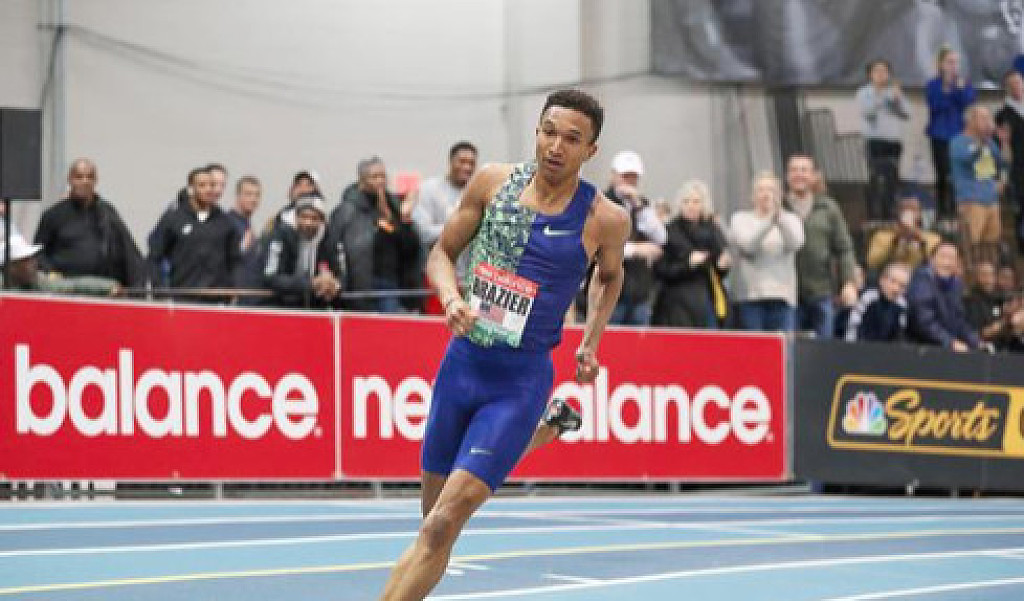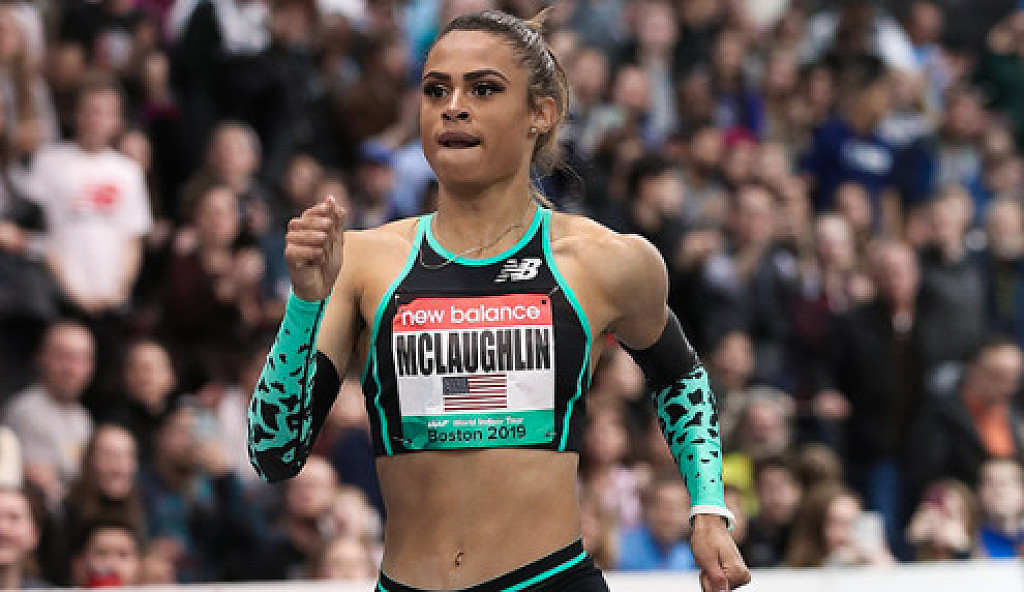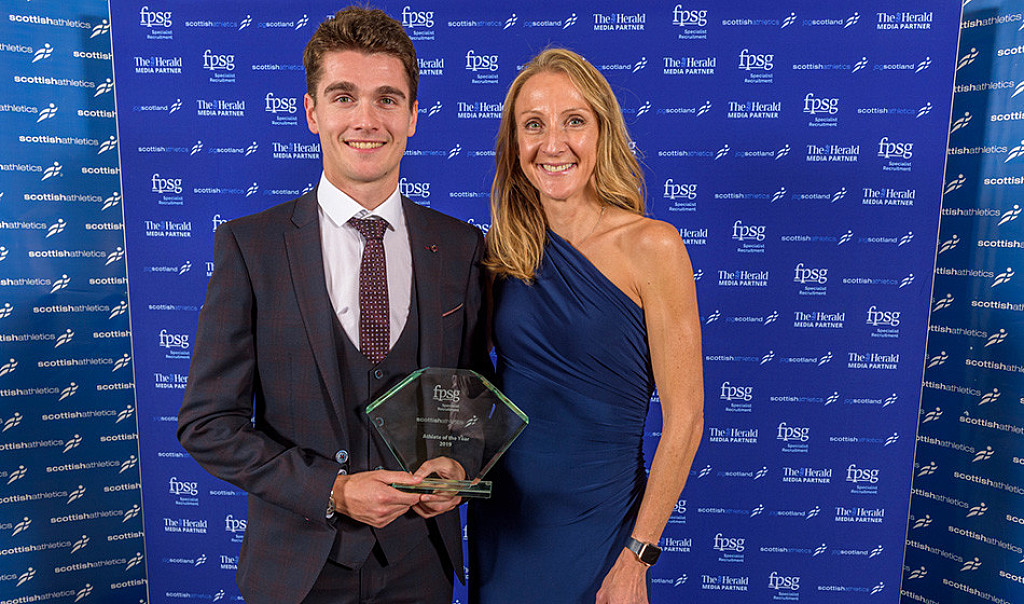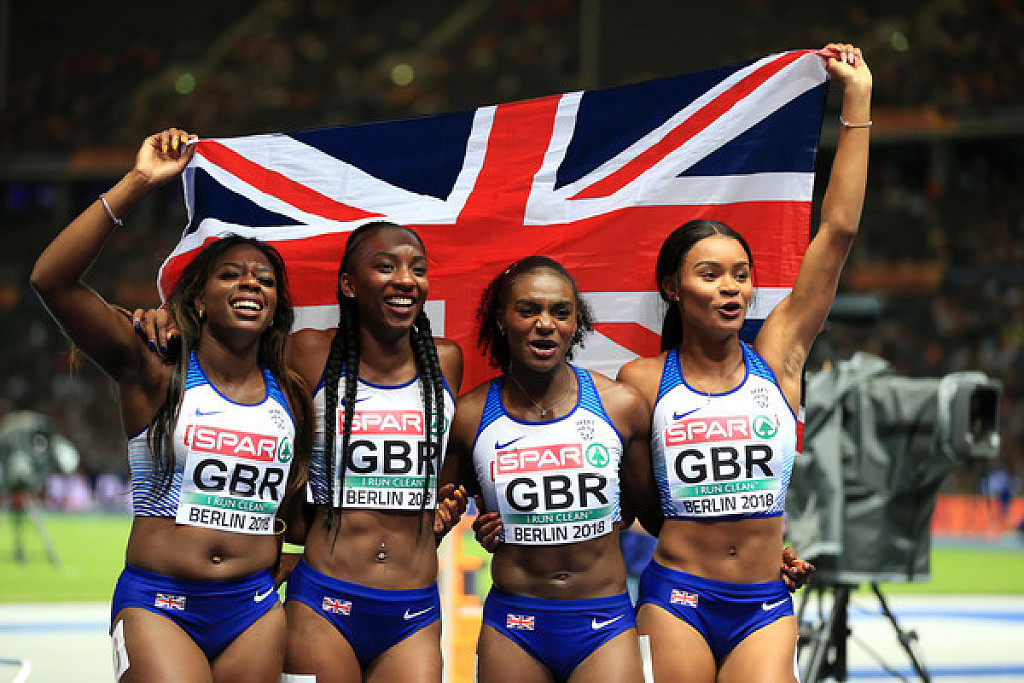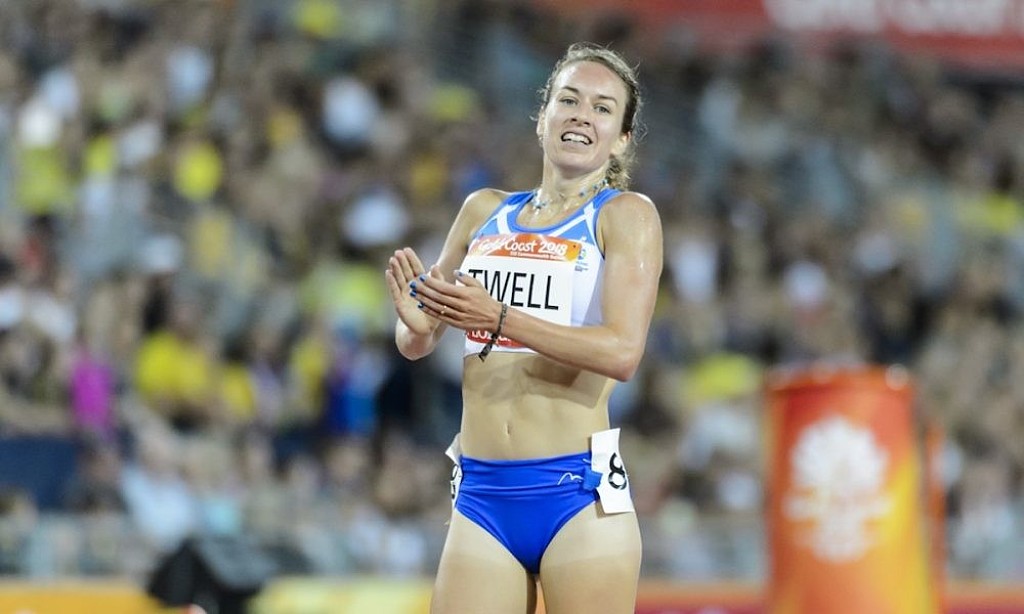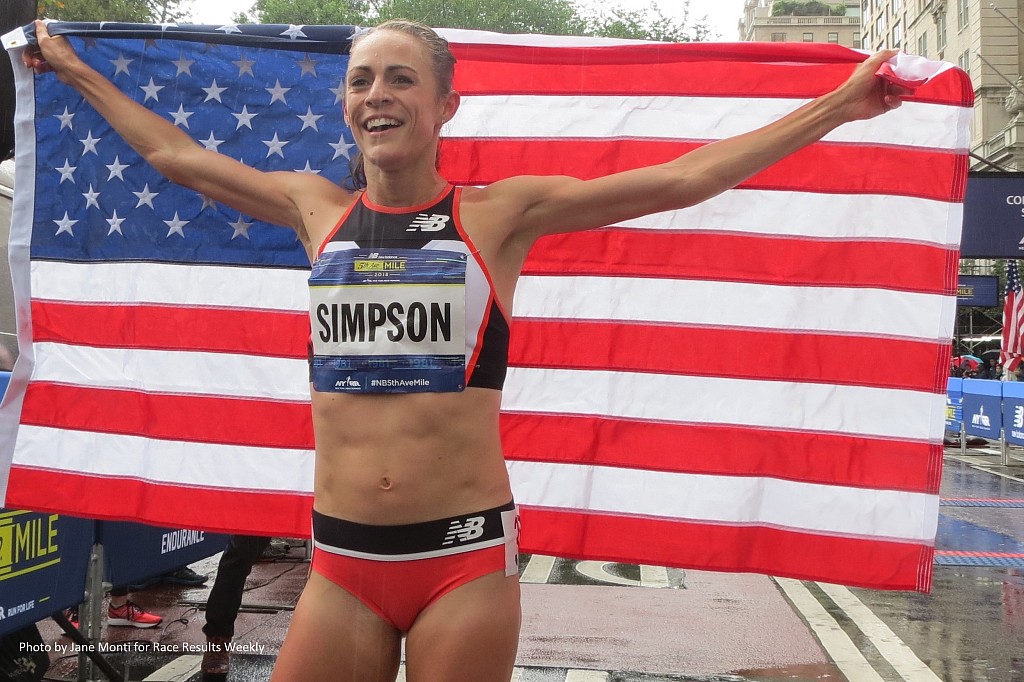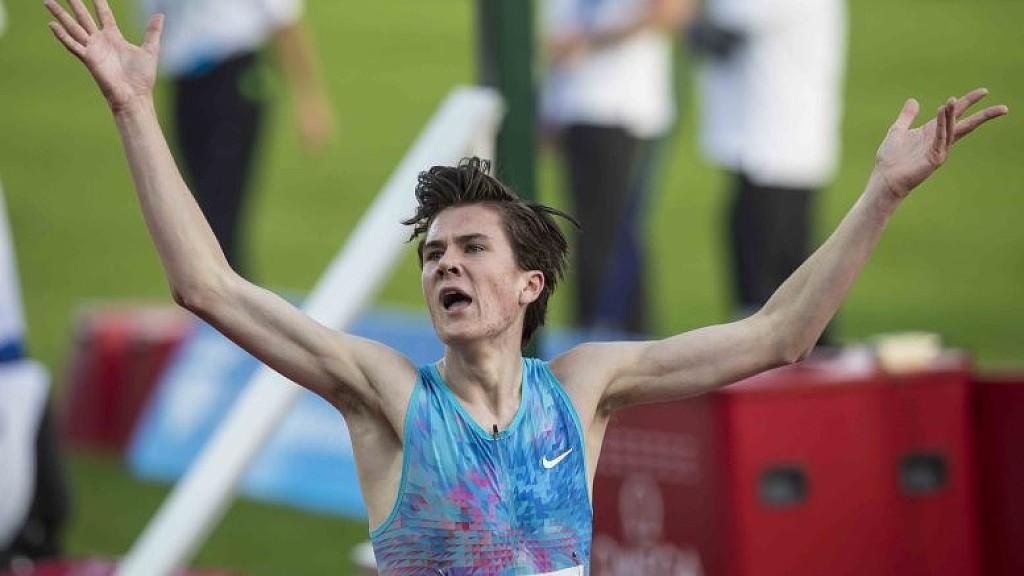Running News Daily
Running News Daily is edited by Bob Anderson. Send your news items to bob@mybestruns.com Advertising opportunities available. Train the Kenyan Way at KATA Kenya and Portugal owned and operated by Bob Anderson. Be sure to catch our movie A Long Run the movie KATA Running Camps and KATA Potato Farms - 31 now open in Kenya! https://kata.ke/
Index to Daily Posts · Sign Up For Updates · Run The World Feed
Articles tagged #Wightman
Today's Running News
When Time Finally Gave Way: Hobbs Kessler’s 4:48.79 and the Night Indoor History Fell
There are records that feel temporary, and then there are records that begin to feel permanent. For nearly nineteen years, Kenenisa Bekele’s 2000m indoor mark belonged to the second category—a time etched into the sport’s mythology, respected, feared, and largely left untouched. On a charged night at the New Balance Indoor Grand Prix 2026, Hobbs Kessler proved that even the most stubborn pieces of history eventually yield to courage, rhythm, and belief.
From the opening laps inside the packed arena, the race carried a different energy. The pace was honest, relentless, and daring, drawing the field into unfamiliar territory. Kessler, calm and composed beyond his 22 years, stayed patient as the laps unwound, shadowed closely by a deep cast of world-class talent. The moment arrived with one lap remaining. As the bell rang, Kessler shifted gears, surging past fellow American Grant Fisher with a move that felt both explosive and inevitable. There was no panic, no dramatic gesture—just precision, power, and an unbreakable line toward the finish.
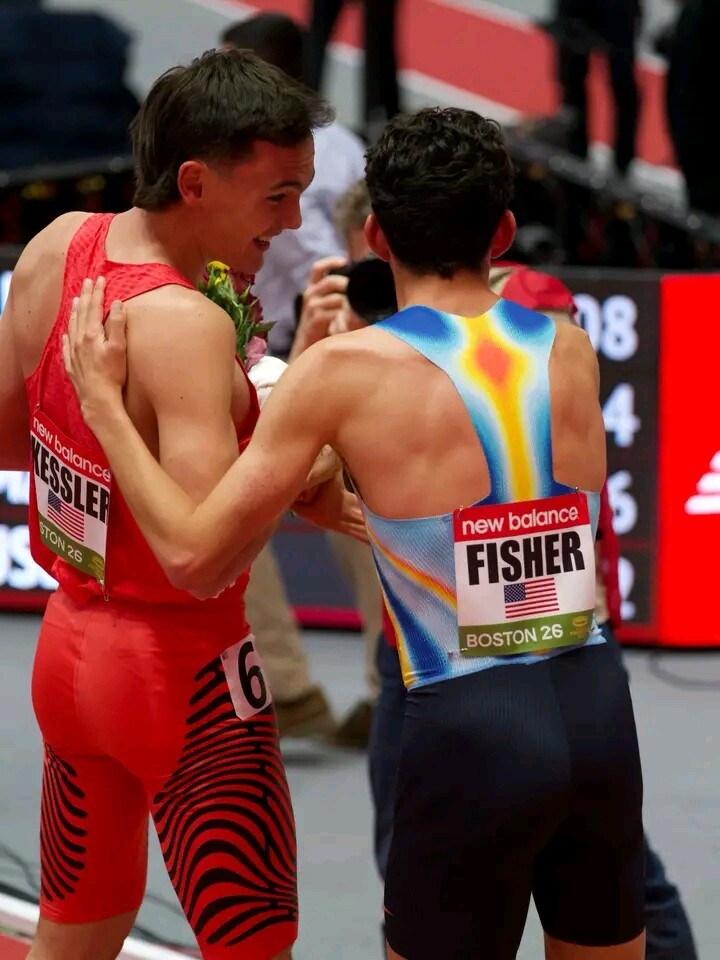
When Kessler crossed the line, the clock delivered the verdict: 4:48.79. Bekele’s long-standing 4:49.99 from 2007 was gone. Not chipped away, not narrowly surpassed—beaten decisively. In the same breath, Kessler claimed the American indoor record as well, eclipsing a mark that had been set just one day earlier by Olympic champion Cole Hocker, a detail that perfectly captured the extraordinary momentum of American middle-distance running.
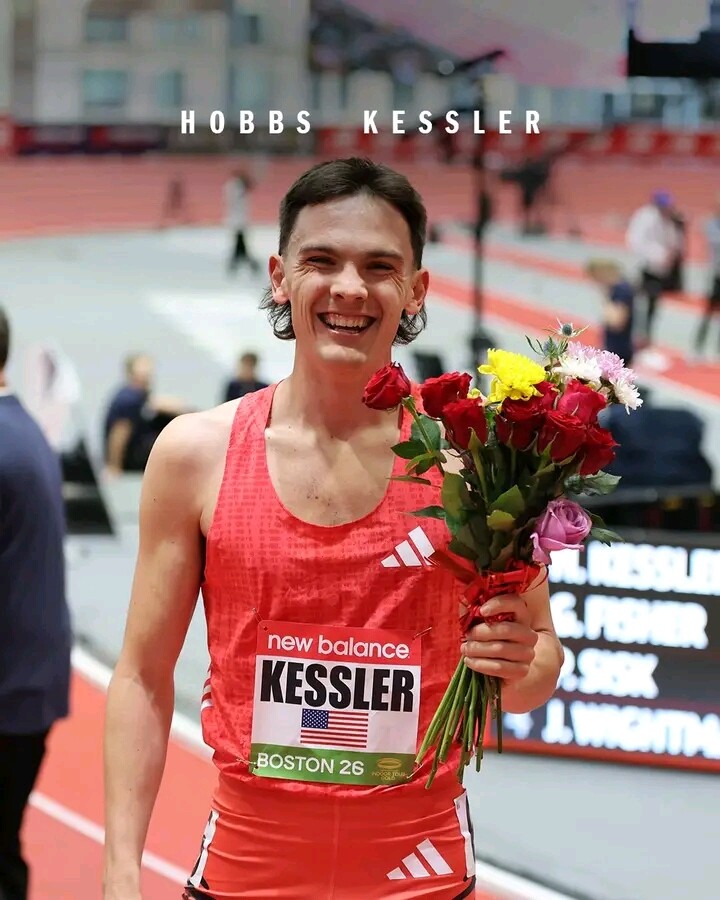
Behind him, Grant Fisher followed in 4:49.48, also inside the old world best, while Belgium’s Pieter Sisk and Great Britain’s Jake Wightman rounded out a race that will be remembered as one of the deepest and fastest in indoor history. Multiple careers were elevated in a single night, but it was Kessler who owned the moment.
The significance of the performance stretches far beyond one race. Kessler’s name now sits above a list populated by giants—Bekele, Haile Gebrselassie, Eamonn Coghlan, Bernard Lagat—athletes who shaped eras and redefined what was possible indoors. To surpass them at just 22 years old is not merely a breakthrough; it is a declaration.
The New Balance Indoor Grand Prix has long been a place where bold athletes chase ambitious ideas. On this night, ambition caught up with history. The record fell, the crowd roared, and time itself seemed to pause in respect.
Some performances win races. Others reshape belief. Hobbs Kessler’s 4:48.79 did both—and in doing so, reminded the world that no record is forever.
by Erick Cheruiyot for My Bestruns.
Login to leave a comment
Thrilling Photo Finish and Historic Performances Highlight 1500m Finals in Tokyo
The 1500 meters is often called the “crown jewel” of middle-distance running, a race where tactics, speed, and heart all collide. At the 2025 World Championships in Tokyo, both the men’s and women’s finals lived up to that reputation, delivering drama, comebacks, and world-class performances that will be remembered for years.
Men’s 1500m: A Thrilling Comeback
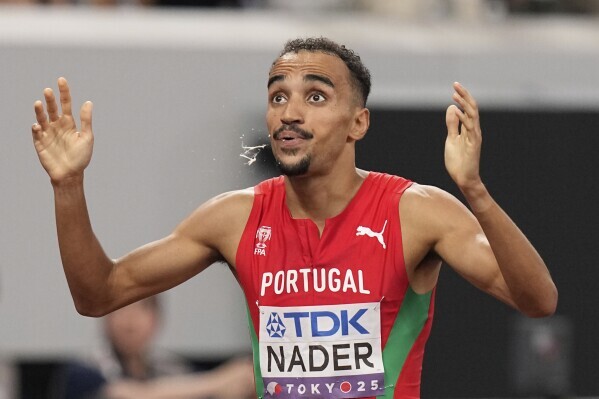
The men’s final produced one of the most electrifying finishes of the championships. For much of the race, the field remained tightly packed, with every move closely marked. As the bell rang for the final lap, the intensity soared, and the last 200 meters became an all-out sprint for glory.
Portugal’s Isaac Nader surged wide in the final stretch, clawing back ground with each stride before lunging at the line. His daring comeback forced a photo finish against Britain’s Jake Wightman, with both men collapsing past the tape in exhaustion. Officials confirmed Nader as the gold medalist in 3:34.10, edging Wightman’s 3:34.12 by just two hundredths of a second.
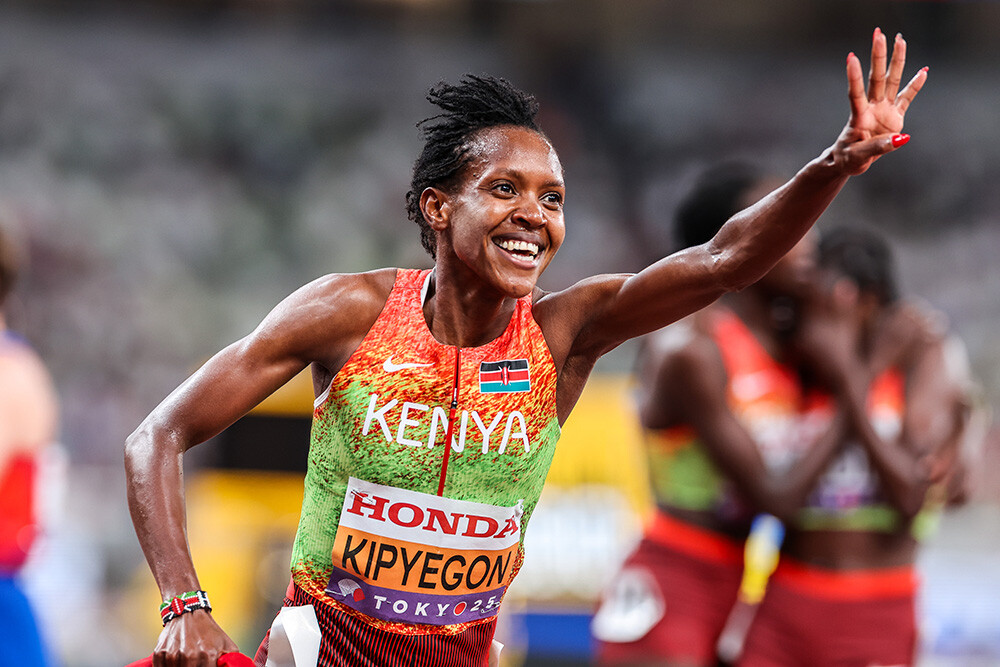
Kenya’s rising star Reynold Cheruiyot powered home for bronze in 3:34.25, while his compatriot and former world champion Timothy Cheruiyot finished fourth in 3:34.50. The razor-thin margins between the top four underscored the depth and unpredictability of today’s global 1500m racing.
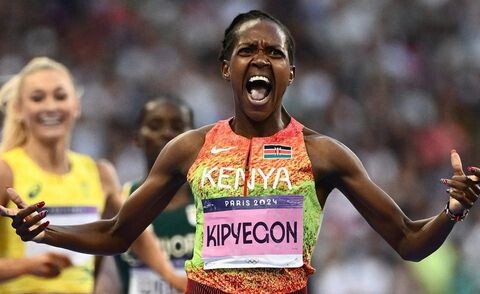
Men’s Top Four – Tokyo 2025
1. Isaac Nader (Portugal) – 3:34.10
2. Jake Wightman (Great Britain) – 3:34.12
3. Reynold Cheruiyot (Kenya) – 3:34.25
4. Timothy Cheruiyot (Kenya) – 3:34.50
Women’s 1500m: Kipyegon Reigns Supreme
If the men’s race was decided by a hair’s breadth, the women’s final was about one athlete stamping her authority on the distance. Kenya’s Faith Kipyegon, already a legend of the sport, once again proved untouchable. She controlled the pace from the front and then crushed the field over the final 300 meters, crossing in a dominant 3:52.15 to secure another world title.
Behind her, teammate Dorcus Ewoi earned silver with a strong 3:54.92, holding off Australia’s Jessica Hull, who thrilled the Tokyo crowd with a gritty run for bronze in 3:55.16. Another Kenyan, Nelly Chepchirchir, rounded out the top four in 3:55.25, making it three Kenyans in the top four.
Women’s Top Four – Tokyo 2025
1. Faith Kipyegon (Kenya) – 3:52.15
2. Dorcus Ewoi (Kenya) – 3:54.92
3. Jessica Hull (Australia) – 3:55.16
4. Nelly Chepchirchir (Kenya) – 3:55.25
A Showcase of Middle-Distance Greatness
Between the men’s photo finish and Kipyegon’s continued dominance, the Tokyo 1500m finals captured everything fans love about this distance: courage, strategy, and the ability to deliver in the biggest moments.
For Isaac Nader, it was the race of his life, as he became Portugal’s first world champion in the 1500m. For Faith Kipyegon, it was another masterclass, further cementing her status as perhaps the greatest middle-distance runner in history. And for the fans, it was proof that the 1500m remains one of the most thrilling events on the track.
by Boris Baron
Login to leave a comment
Is the King Really Back? Jakob Ingebrigtsen Sends a Silent Shockwave with One Reel
Just when the doubters were growing bold, Jakob Ingebrigtsen dropped a bombshell—without saying a word.
After months of uncertainty, Achilles rehab, and a string of absences from marquee meets like Oslo and the Prefontaine Classic, the Olympic champion and world record holder resurfaced not with a headline but with a treadmill video on Instagram. The caption? Just five words:
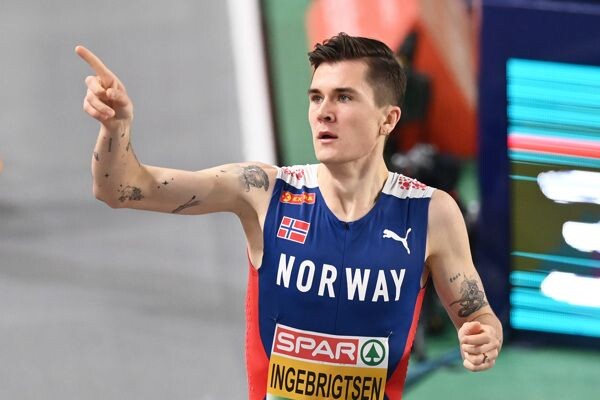
“Normal service has resumed ??.”
That was it. No interview. No press release. Just a smooth stride at full clip—and it was enough to send shockwaves through the sport.
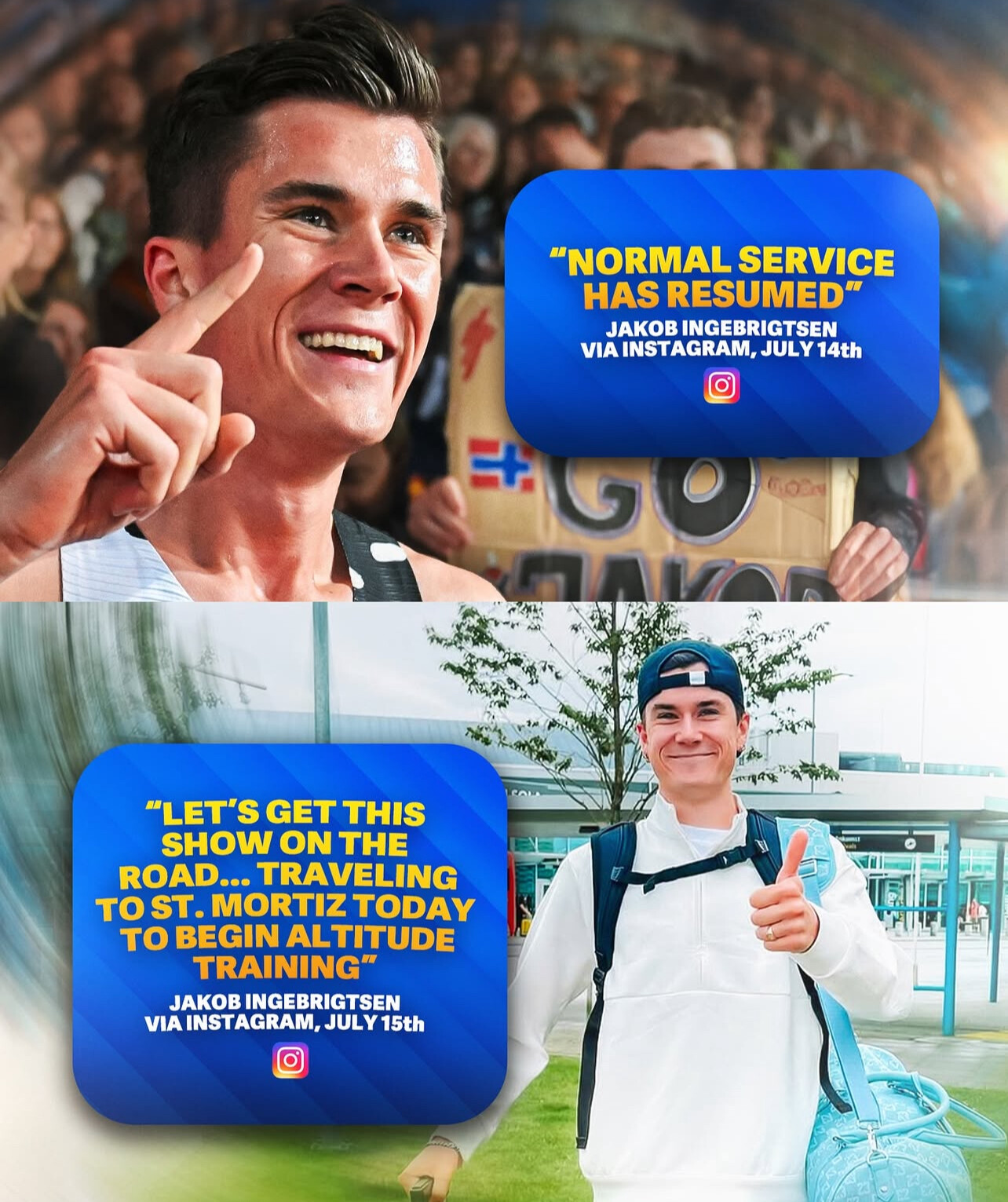
Jakob, still only 23, hasn’t raced since winning the European Cross Country Championships last December. In May, he confirmed his withdrawal from the London Diamond League on July 20 due to lingering Achilles irritation. But now, with the 2025 World Championships in Tokyo looming, fans and rivals alike are decoding every frame of that 12-second clip. Was this just training? Or a warning shot?
The Comeback Equation
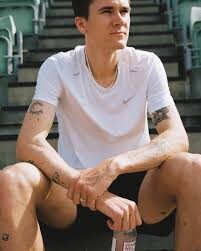
Jakob’s resume needs no embellishment:
Olympic 1500m champion (Tokyo 2021)
World 5000m champion (Paris 2023)
European record holder in the 1500m, mile, 3000m, and 5000m
World record holder in the 2000m and two miles
But since that shock defeat to Josh Kerr at the 2023 World Championships in Budapest—a tactical masterclass that broke Ingebrigtsen’s golden streak—Jakob has been unusually quiet. Injuries kept him from defending titles on the Diamond League circuit, while rivals like Kerr, Jake Wightman, and Yared Nuguse have stepped into the spotlight.
Now, that silence might be over.
Warning to Rivals?
The timing couldn’t be more dramatic. With Tokyo less than six weeks away, the treadmill reel could mark the start of Jakob’s final prep—if not for London, then for the Worlds. His message may have been short, but the implications are massive: he’s back in motion, the rhythm looks good, and if he toes the line in Tokyo, the narrative resets.
Rivals like Kerr, who’s coming off a strong win at the 2025 Bislett Games, won’t be underestimating him. Their rematch—if it happens—could be one of the defining moments of the championships.
Crown or Collision Course?
Is Jakob ready to reclaim his throne, or is he walking into the fiercest middle-distance rivalry we’ve seen in years? The answer is still unwritten—but one thing is clear:
Jakob Ingebrigtsen is not done. Not even close.
And now, the track world holds its breath.
by Boris Baron
Login to leave a comment
Faith Kipyegon and Jakob Ingebrigtsen Headline Historic 2025 Pre Classic
The 50th edition of the Prefontaine Classic, set for July 5 at Hayward Field in Eugene, Oregon, promises to be one of the most exciting track meets of the year. Headlining the event is three-time Olympic gold medalist Faith Kipyegon, who returns to the Pre Classic in search of her seventh career victory in the women’s 1500m.
Kipyegon, the world record holder in both the 1500m (3:49.04) and the mile (4:07.64), shattered the 1500m mark in Paris on July 7, 2024. Now, nearly a year later, she’ll look to reassert her dominance in front of a packed crowd at one of the sport’s most prestigious meets.
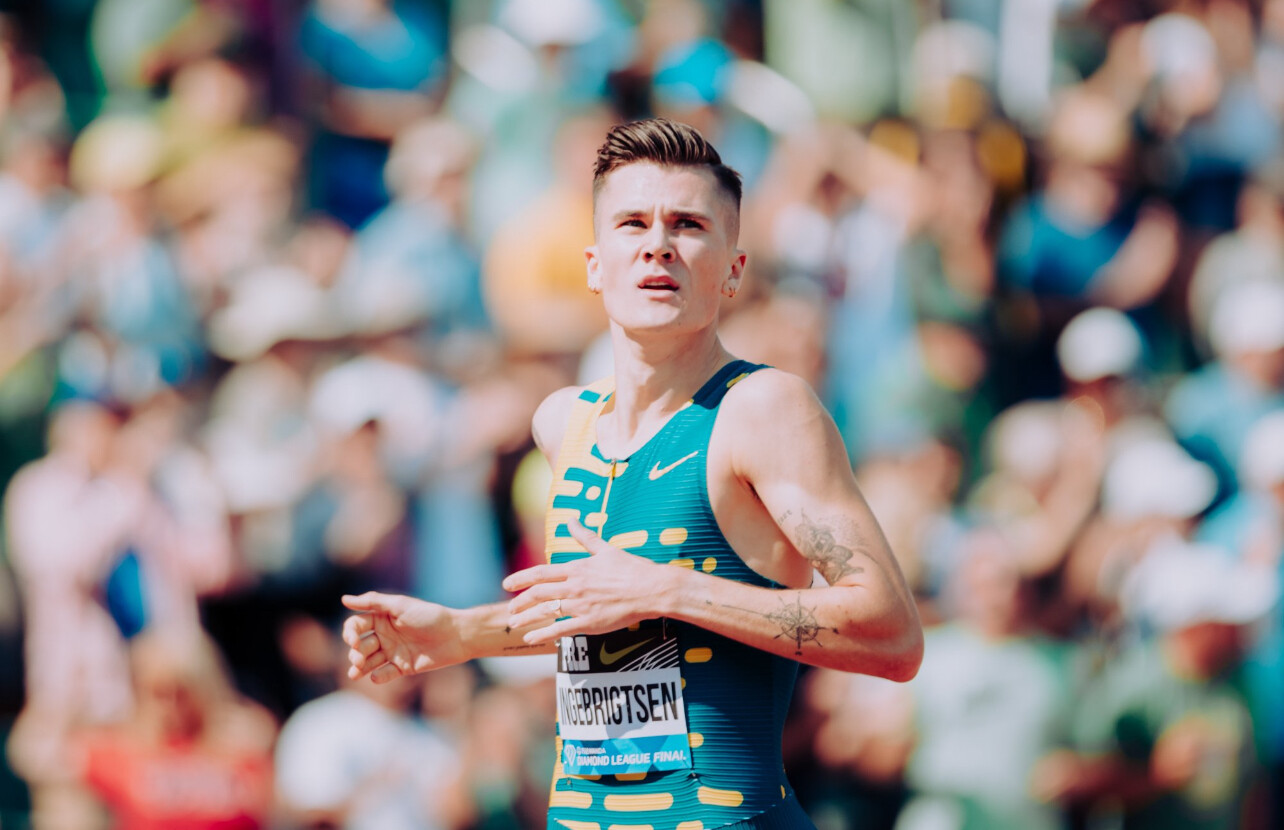
Joining Kipyegon in the 1500m are her fellow 2024 Olympic medalists—silver medalist Jessica Hull of Australia and bronze medalist Georgia Bell of Great Britain. Hull, a former University of Oregon standout, also holds the current world record in the 2000m.
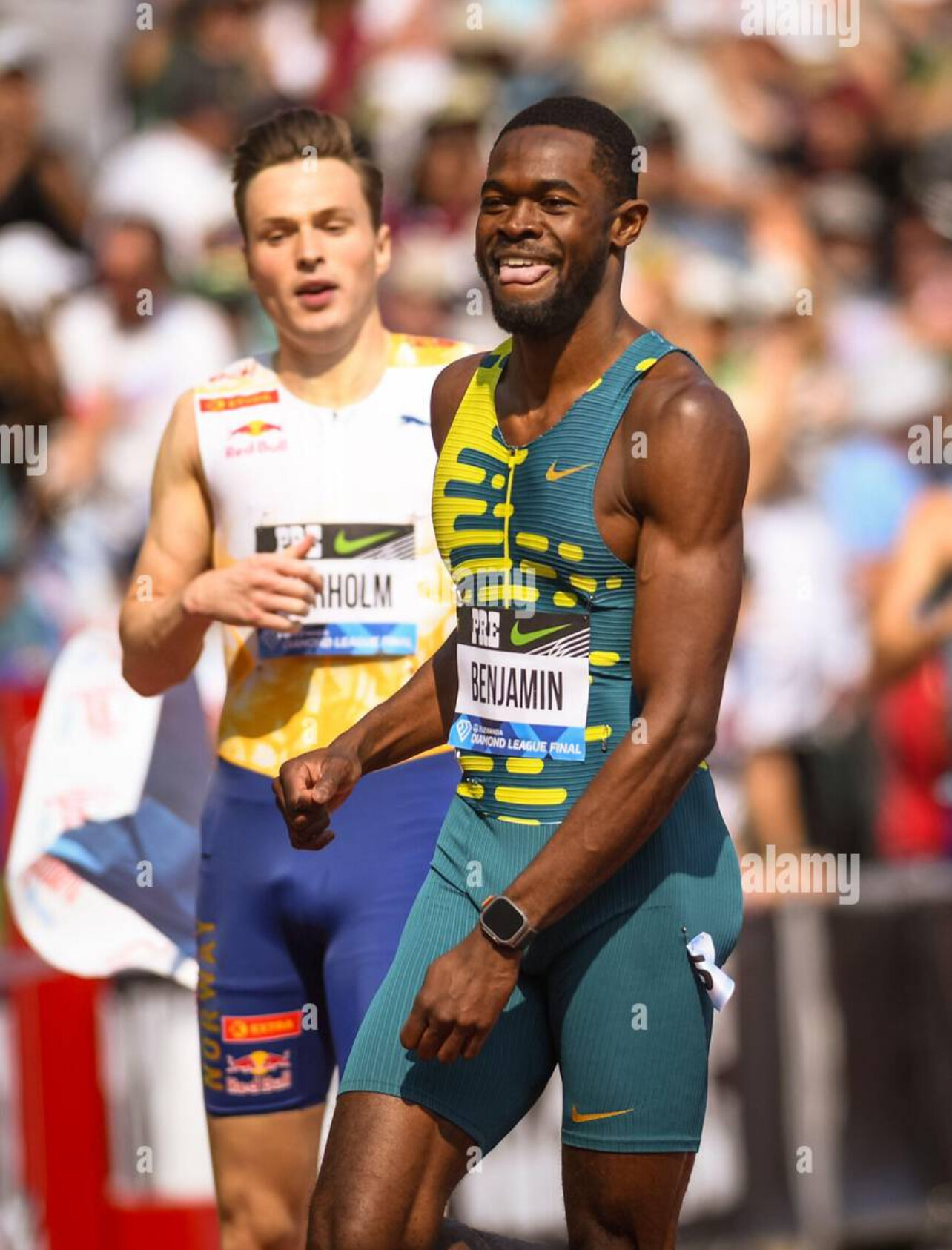
But Kipyegon isn’t the only big name set to thrill fans in Eugene. The men’s Bowerman Mile will feature a stacked lineup that includes:
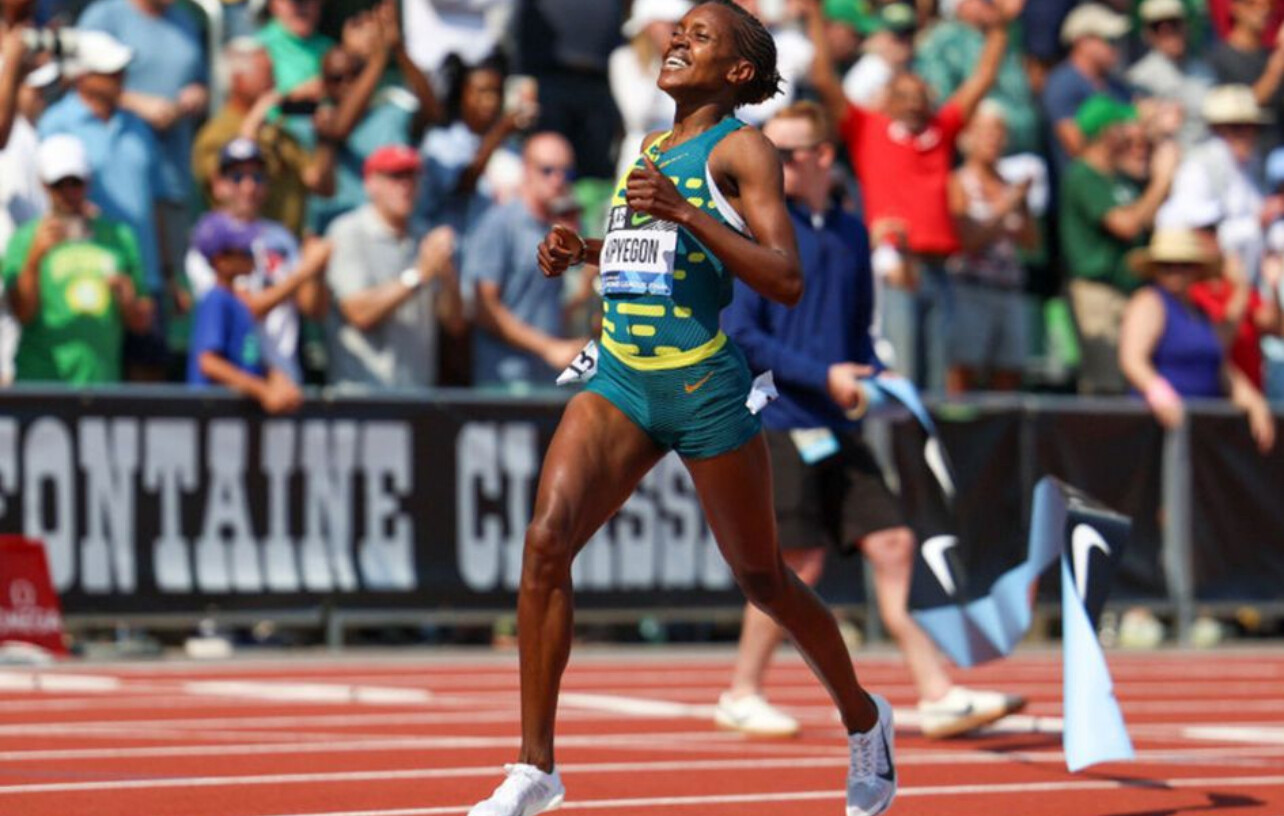
• Jakob Ingebrigtsen (Norway) – Olympic gold medalist and multiple-time Bowerman Mile champion
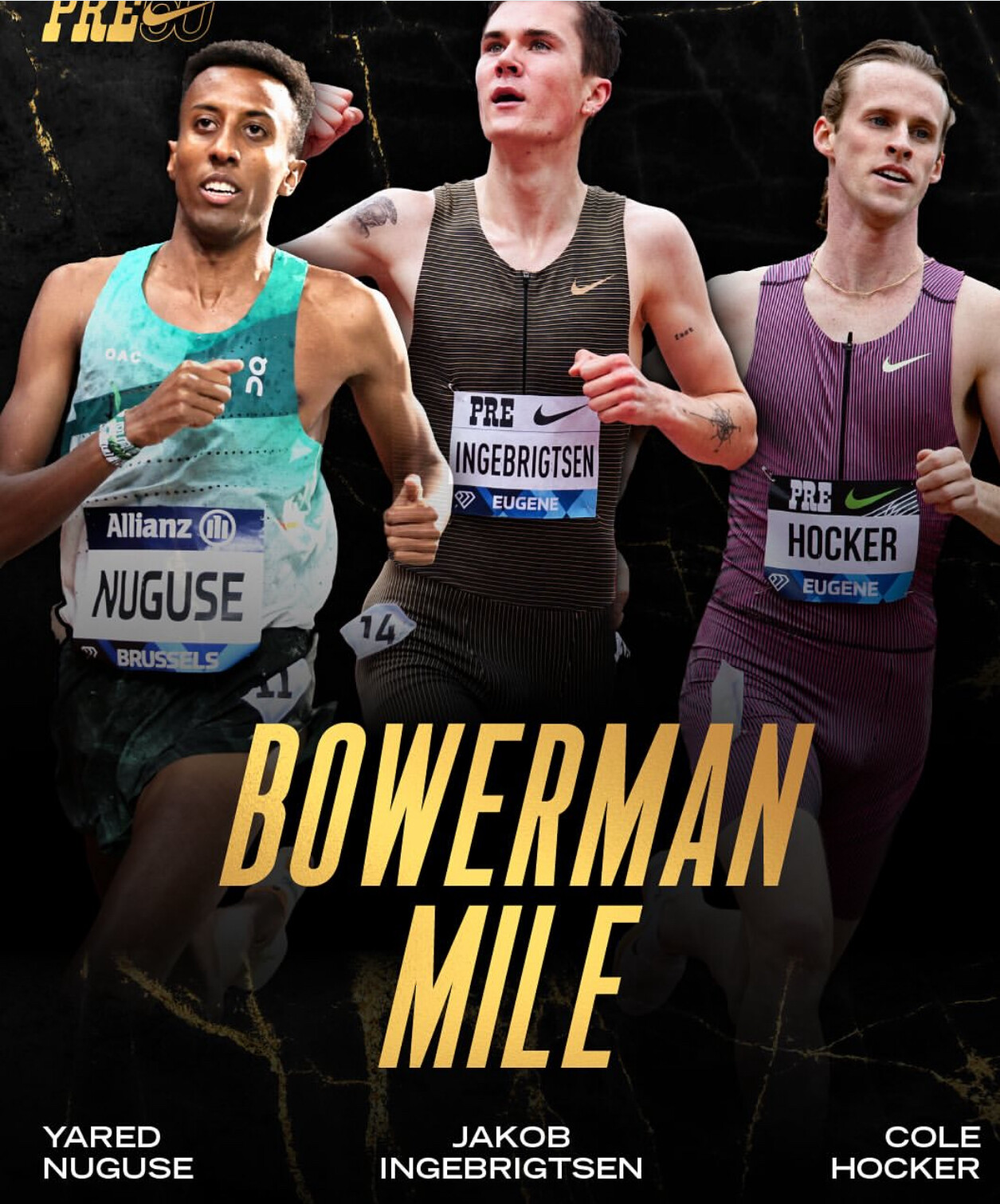
• Cole Hocker (USA) – 2024 Olympic 1500m champion
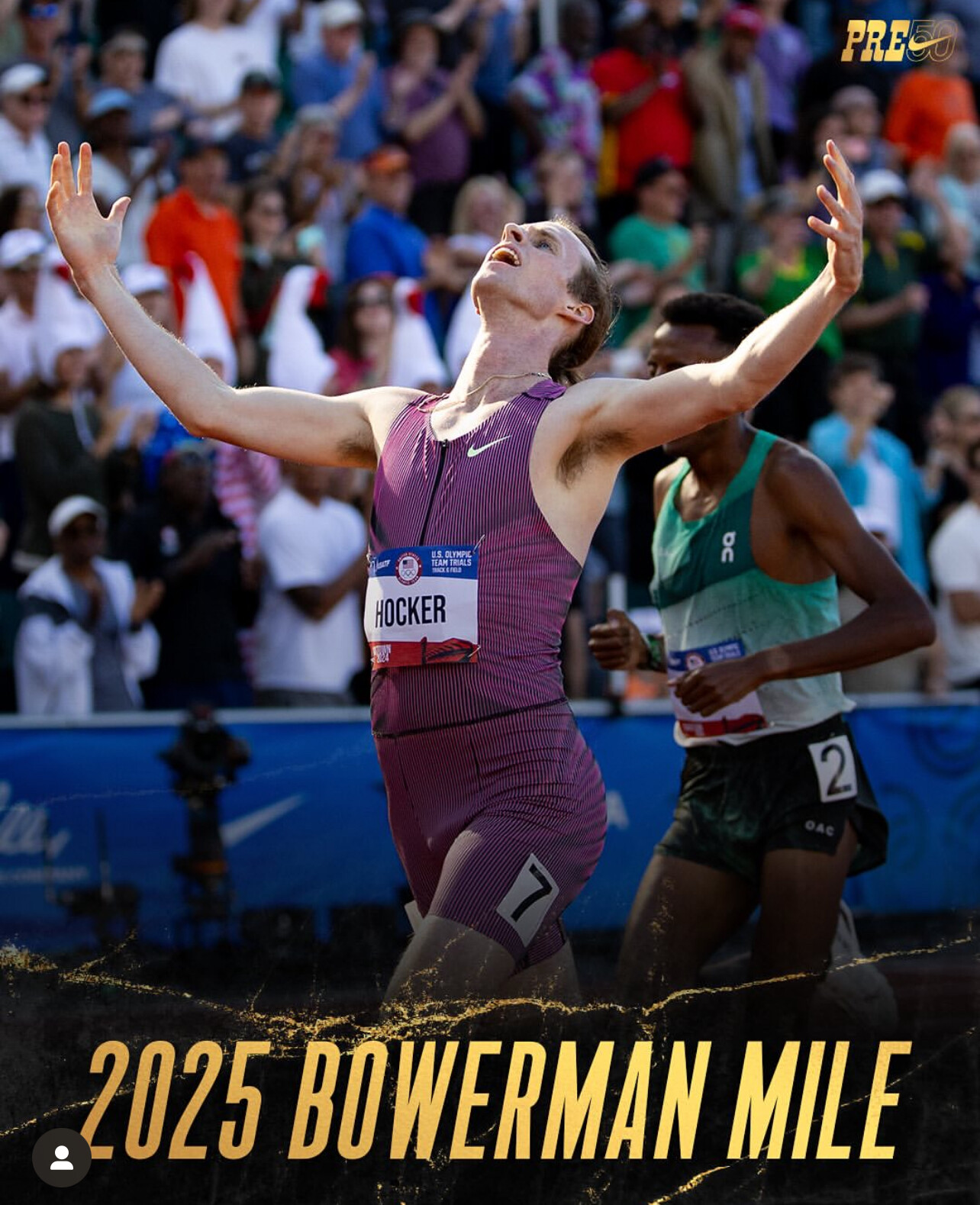
• Yared Nuguse (USA) – Olympic bronze medalist and former indoor mile world record holder
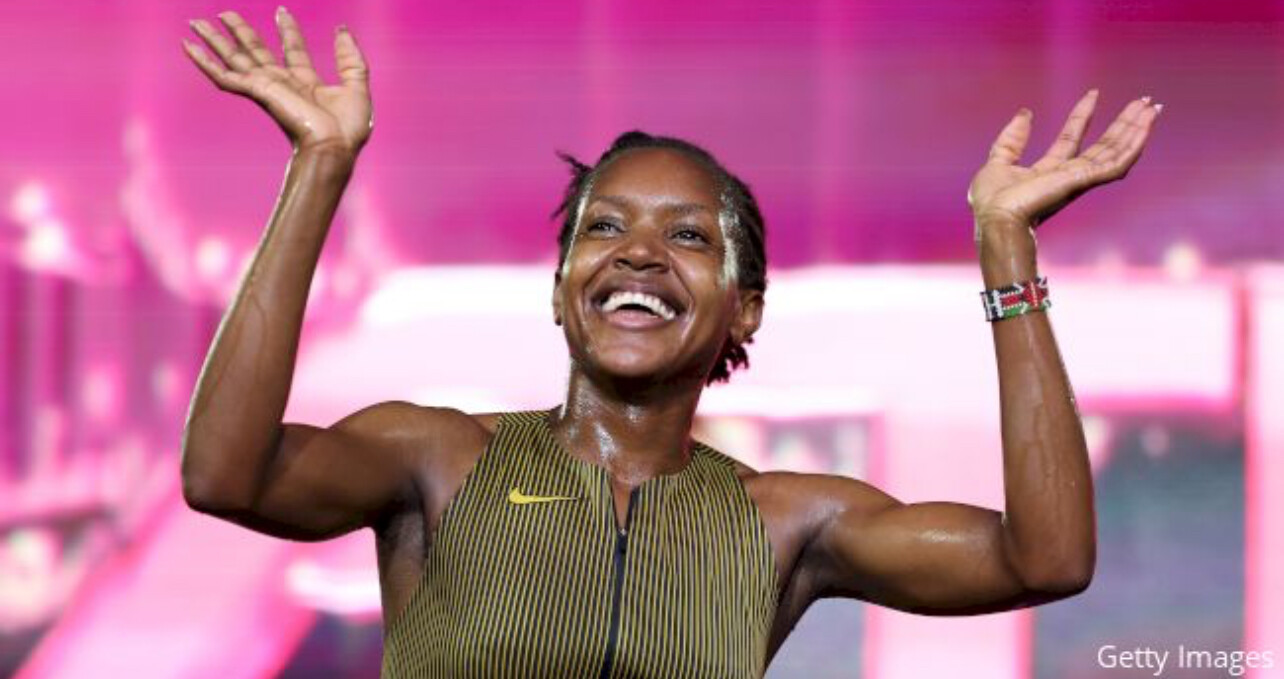
• Timothy Cheruiyot (Li Kenya) – Former world champion
• Jake Wightman (Great Britain) – 2022 world champion
• Grant Fisher (USA) – Olympic bronze medalist in both the 5000m and 10,000m
• Plus rising stars including Oliver Hoare, Neil Gourley, Azeddine Habz, Hobbs Kessler, Niels Laros, Cameron Myers, Stefan Nillessen, and Reynold Cheruiyot
In the men’s 400m hurdles, Olympic silver medalist Rai Benjamin will headline a competitive field that also includes CJ Allen, Trevor Bassitt, Clement Ducos, Malik James-King, Abderrahman Samba, and Assinie Wilson.
The 2025 Prefontaine Classic will feature 14 Diamond League disciplines, including the women’s 800m, 5000m, and 3000m steeplechase—each with world-class fields expected to be announced soon.
As the sport celebrates this milestone edition of the Pre Classic, the meet is shaping up to be not just a tune-up for global championships, but a showcase of track and field at its absolute best.
by Boris Baron
Login to leave a comment
Neil Gourley Sets Sights on 1500m World Title: “It’s My Turn at the Top of the Podium”
After clinching his first global medal at the World Athletics Indoor Championships in Nanjing, you is setting his sights on something even bigger: gold in the 1500m at this year’s World Championships in Tokyo.
The Scottish middle-distance star delivered a commanding performance indoors, earning silver behind Norway’s Jakob Ingebrigtsen. But for Gourley, it wasn’t just about the medal—it was about momentum. And belief.
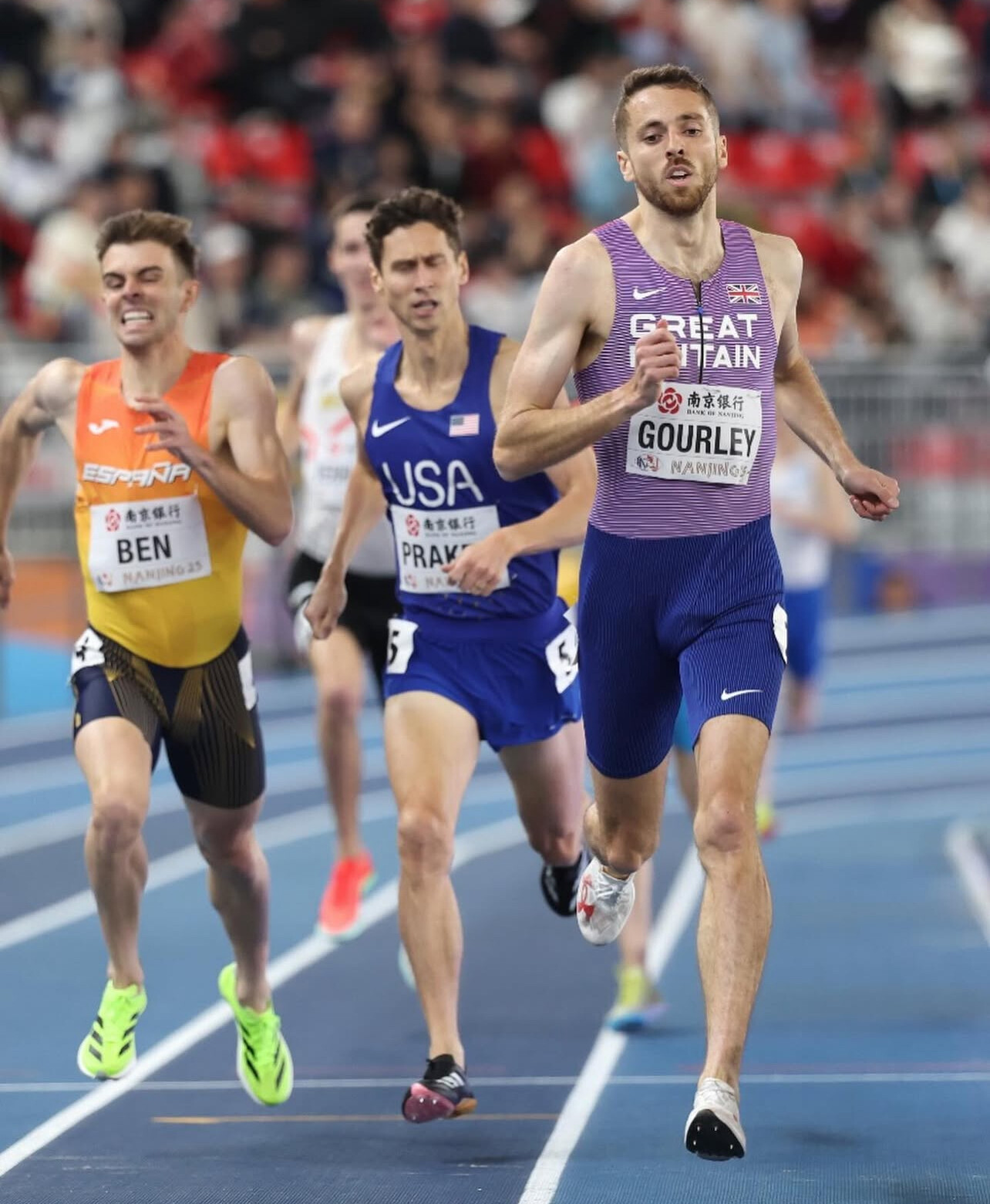
Earlier that weekend, Gourley served as captain of the British team, delivering an inspiring speech to his teammates, urging them to “leave room for the extraordinary.” Then he went out and embodied those very words.
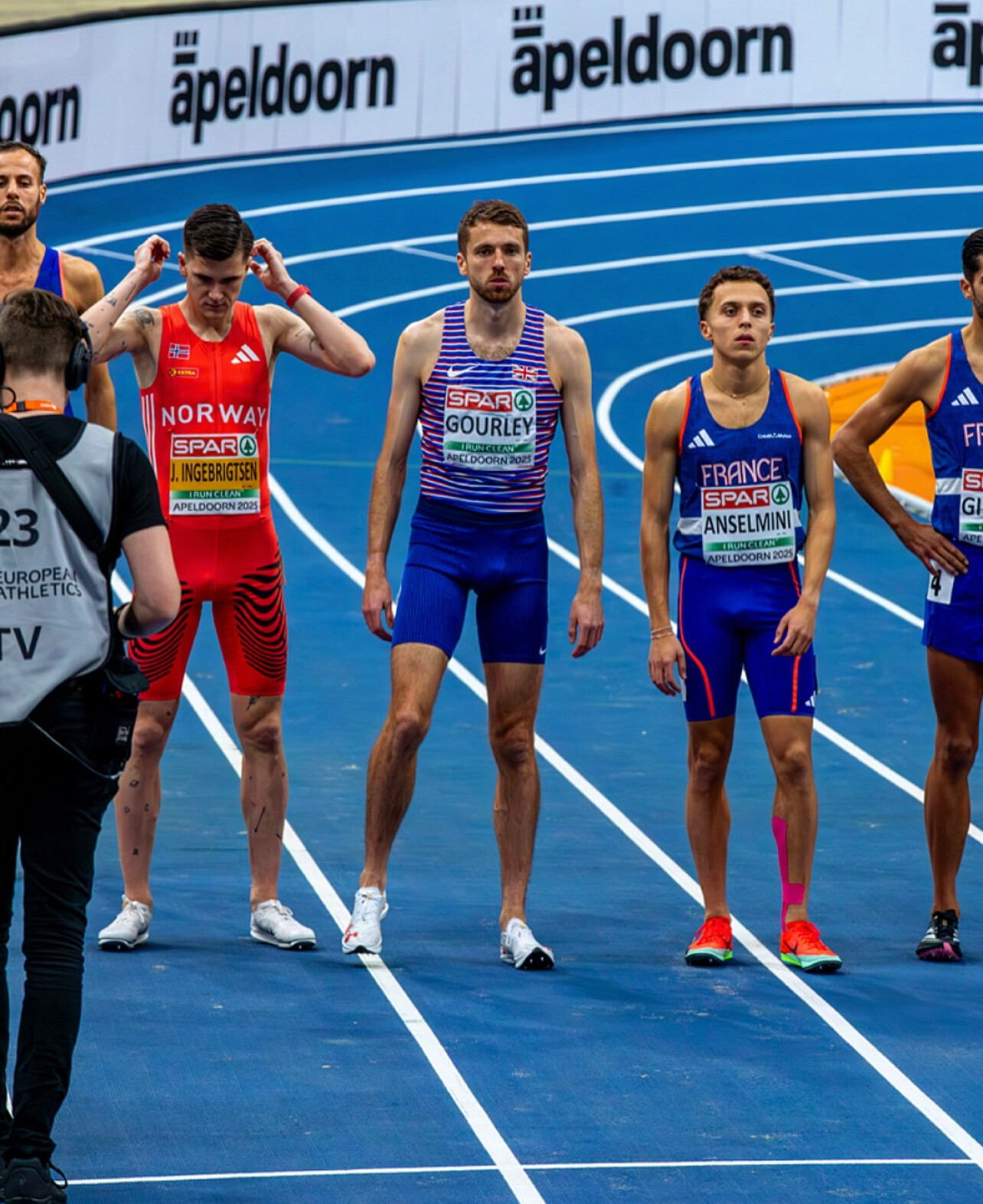
“It was an emotional weekend,” Gourley reflected. “To lead the team and then come away with a medal—it meant a lot. But I’m not satisfied yet. I’ve seen what Jake and Josh have done. I want that gold. It’s my turn now.”
He’s referring to fellow Scots Jake Wightman and Josh Kerr, who both made headlines by defeating Ingebrigtsen to win 1500m gold at the last two World Championships. Wightman shocked the field in Eugene in 2022, while Kerr executed a masterclass in race tactics in Budapest in 2023.
Now, Gourley wants to be the next name in that elite lineage.
“There’s something special happening in Scottish middle-distance running,” he said. “We’re not just showing up—we’re winning. I want to be part of that legacy.”
Gourley’s trajectory has been steadily rising. With a background in the NCAA system, British titles to his name, and a reputation for tactical intelligence and fierce finishing speed, he has quietly become one of the most dangerous men in the event.
But this September in Tokyo, he doesn’t want to fly under the radar. He wants the spotlight.
“The standard has been set, and I’m ready to meet it,” Gourley said. “I’ve visualized this. I’ve trained for this. I’ve seen what’s possible. Now I want to do it myself.”
As preparations begin for the outdoor season, Gourley will focus on sharpening his race craft, dialing in his training, and building toward the moment he’s dreamed about—standing on top of the podium in one of the sport’s most iconic events.
“I’m coming for it,” he said. “Tokyo is where I want to make it happen.”
With Wightman and Kerr already enshrined in British running history, Neil Gourley is ready to write his own chapter—and keep the golden streak of Scottish milers alive.
by Boris Baron
Login to leave a comment
Sprint Showdowns and Distance Battles to Take Center Stage at the New Balance Indoor Grand Prix
The New Balance Indoor Grand Prix, a World Athletics Indoor Tour Gold meeting, is set to deliver thrilling track action in Boston on Sunday (Feb 2), with an elite lineup of global gold medalists ready to ignite the indoor season. The competition will serve as a crucial stepping stone towards the World Athletics Indoor Championships Nanjing 25 in March.
Sprints and Hurdles: Lyles and Alfred Lead the Charge
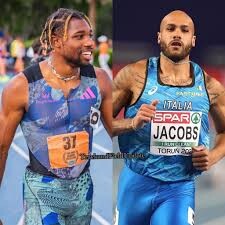
Olympic and world sprint sensation Noah Lyles returns to defend his 60m title, after setting a meeting record of 6.44 last year. Lyles, who claimed 100m gold and 200m bronze at the Olympics, kicked off his season with a 6.62 win in Gainesville last weekend. He will face Trayvon Bromell (USA), Zharnel Hughes (GBR), and 2022 world indoor champion Marcell Jacobs (ITA), who is making his North American indoor debut.
In the women’s 300m, Olympic 100m champion Julien Alfred steps up in distance for her New Balance Indoor Grand Prix debut. After winning world indoor 60m gold in Glasgow, Alfred took 100m gold and 200m silver at the Olympics and ended last season with a Diamond League Final victory. She faces a competitive field including 2019 world 200m champion Dina Asher-Smith (GBR) and USA’s Lynna Irby-Jackson.
The men’s 300m features Olympic 400m hurdles gold medalist Rai Benjamin. A past winner in Boston, Benjamin is set to battle 4x400m relay star Vernon Norwood and Matthew Boling.
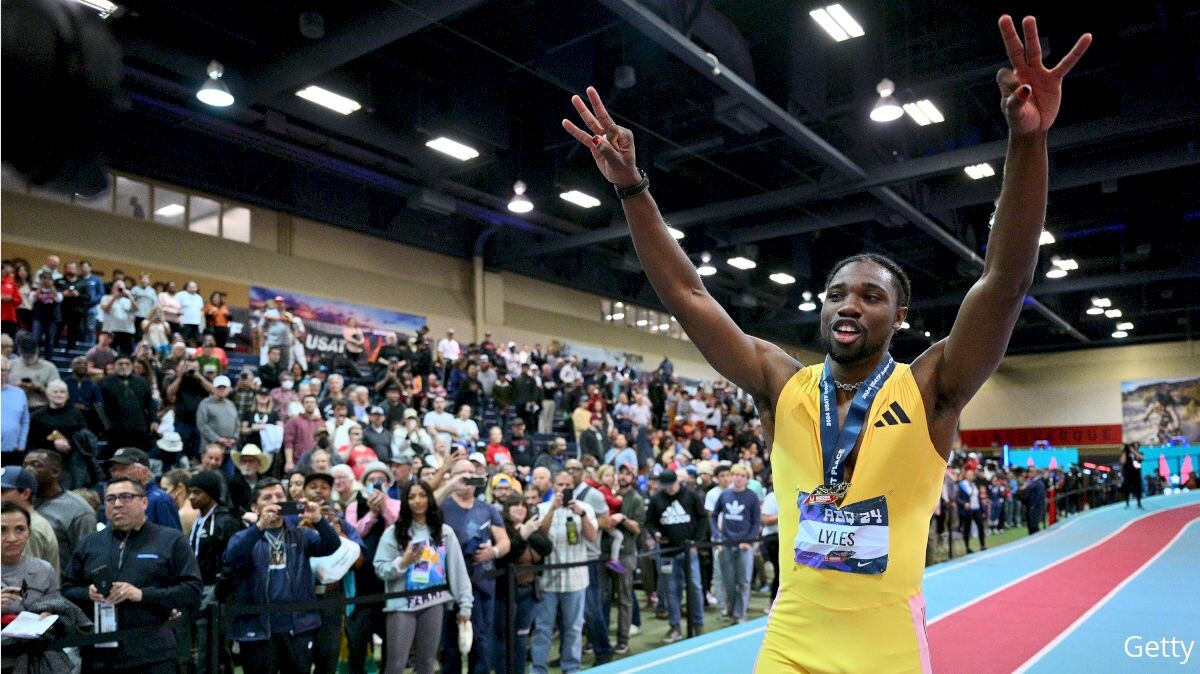
The 60m hurdles events promise fireworks, with world record-holder Devynne Charlton (7.65) and Olympic champion Masai Russell renewing their rivalry. Russell edged Charlton in their recent clash in Lubbock, but the Bahamian sprinter leads their head-to-head series 8-2. Joining them are Olympic finalists Ackera Nugent, Grace Stark, and 2018 world indoor silver medallist Christina Clemons.
For the men, world record-holder Grant Holloway (7.27) looks to extend his 10-year unbeaten streak in the 60m hurdles. The Olympic and world champion headlines the field alongside Olympic finalist Freddie Crittenden and 2022 world silver medallist Trey Cunningham.
Middle and Long Distance Races: Olympic Medalists Face Off
The women’s 3000m sees Olympic 1500m silver medalist Jessica Hull (AUS) take on Great Britain’s Olympic bronze medalist Georgia Bell. Hull, the defending champion, set an Oceanian indoor record of 8:24.93 in this event last year. They are joined by USA’s Parker Valby, Emily Mackay, Elise Cranny, Ethiopia’s Melknat Wudu, Italy’s Sintayehu Vissa, and Olympic steeplechase medalist Emma Coburn.
In the men’s 1500m, USA’s Grant Fisher (Olympic 5000m and 10,000m bronze medalist) takes on 2022 world champion Jake Wightman (GBR), Oliver Hoare (AUS), and Josh Hoey, who recently broke the North American 1000m record.
Bryce Hoppel, the reigning world indoor 800m champion, leads the men’s 800m field, while Hobbs Kessler, Cameron Myers, Neil Gourley, and Andrew Coscoran battle in the 3000m.
Other Key Events
Women’s 60m: Mikiah Brisco (USA) and Zoe Hobbs (NZL) lead the field.
Men’s 400m: 2022 world indoor champion Jereem Richards (TTO) races USA’s Quincy Wilson.
Women’s 500m: Dutch 4x400m Olympic champion Lisanne de Witte takes on USA’s Olympic 800m medallist Raevyn Rogers.
Women’s Mile: Heather MacLean (2023 winner) faces Olympic finalist Susan Ejore, Maia Ramsden, and Sage Hurta-Klecker.
With an electrifying lineup of Olympic and world champions, the New Balance Indoor Grand Prix promises high-stakes racing and a preview of the talent heading to Nanjing 25.
by Boris Baron
Login to leave a comment
Remembering Kristiansen’s barrier-breaking sub-15-minute 5000m
When Ingrid Kristiansen lined up for the 5000m at the 1984 Bislett Games, she was known as the former international cross country skier who had just become Europe’s fastest ever woman in the marathon.
It was only six weeks previously that the 28-year-old mother from the Viking stronghold of Trondheim had made her major breakthrough in athletics, storming through halfway in the London Marathon in a blistering 1:10:52 en route to a winning time of 2:24:26.
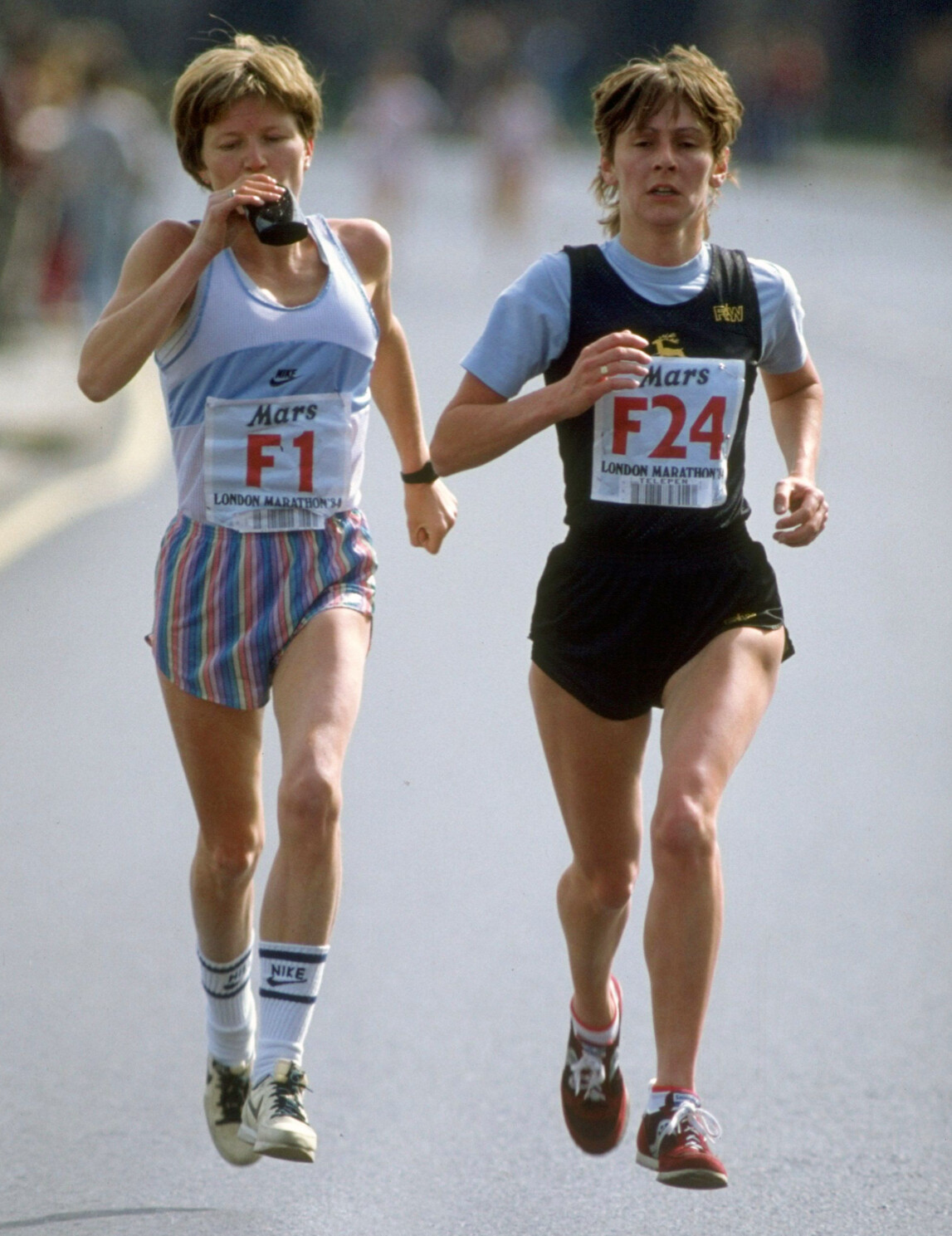
In the process, Kristiansen first peeped out of the considerable shadow of the great Grete Waitz as another formidable Norse to be reckoned with on the global running stage.
The London run elevated her to second spot on the world all-time list, behind the 2:22:43 recorded by Joan Benoit of the US in Boston the previous year, but ahead of Waitz’s Norwegian and European record of 2:25:28.7.
It was only fitting that the burgeoning Kristiansen should claim her first world mark on home ground, in the heart of Norway’s capital city on the hallowed Bislett Stadium track.
That was 40 years ago, on the evening of 28 June 1984.
‘Dead tired… pushed on by the cheers of the crowd’
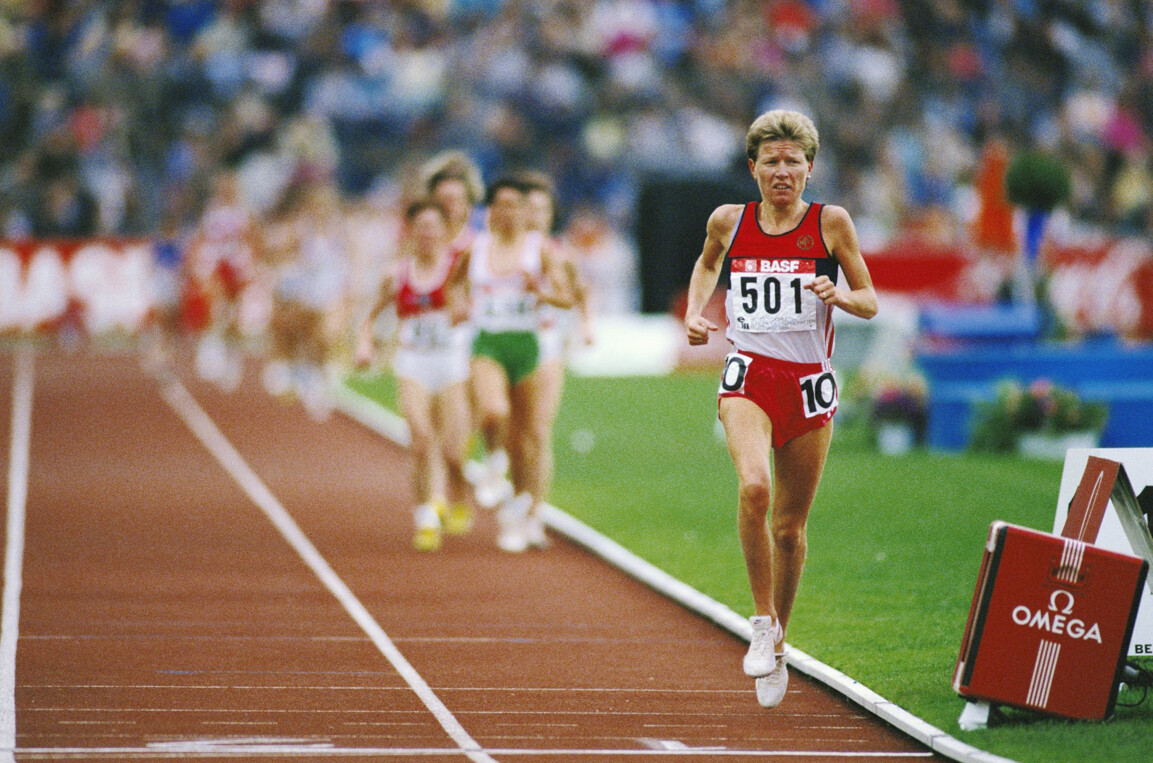
The official world record for the women’s 5000m stood at 15:08.26 – to Mary Decker, or Mary Tabb as she had been when she set the figures on home ground at the 1982 edition of the Pre Classic.
In Apartheid South Africa on 5 January 1984 – and therefore ineligible for recognition – the barefoot Springbok wunderkind Zola Budd had run 15:01.83 in Stellenbosch. By June of the same year, Budd had already become a British citizen and was on her way to being rubber-stamped in the British team for the Los Angeles Olympics.
That night in Oslo, though, Kristiansen’s only rival was the Bislett Stadium clock.
After following Maggie Keyes of the USA through 1000m in 3:02.0, Kristiansen surged clear of the field, reeling off laps of 70-72 seconds.
Passing 3000m in 8:59.8, Kristiansen finished with the flourish of a 68.4 final lap before crossing the line in 14:58.89.
Off marathon training of 170-180km a week, she had become the first woman in history to beat 15 minutes for 5000m.
“I was dead tired during the last two laps but I was pushed on by the cheers of the crowd,” she confessed.
Aurora Cunha, the future three-time world road race champion from Portugal, finished a distant runner up in 15:09.07, followed by Briton Angela Tooby (15:22.50).
Back in sixth was Portugal’s European marathon champion Rosa Mota (15:30.63) – followed by Tooby’s twin sister, Susan (15:44.58), future mother of 2022 world 1500m champion Jake Wightman.
Holding a distance world record triple
Kristiansen was to go quicker over 12.5 laps. At London’s Crystal Palace in 1985, she clocked 14:57.43 but lost the world record to Budd, a clear winner in 14:48.07.
In Stockholm in 1986, however, Kristiansen reclaimed the record with a stunning 14:37.33.
That year she was at her zenith on the track, improving her own 10,000m world record by almost 46 seconds with a 30:13:74 run at Bislett.
Kristiansen was the first runner in history to simultaneously hold world records for 5000m, 10,000m and the marathon.
Returning to the London Marathon in 1985, she brought the women’s 2:20 barrier into sight with a 2:21:06 triumph that stood as a world record for 13 years.
Kristiansen also became the first athlete to claim world titles on the track, on the road and over cross country. Twice a winner of the 15km world road race championship, she won the world 10,000m title on the track in Rome in 1987 and the world cross country crown in Auckland in 1988.
Big heart and big lungs
Many attributed Kristiansen’s phenomenal success to the physiological benefits she had gained from giving birth to her first son, Gaute, in 1983. She felt it was more the edge she had gained from years of competitive cross-country skiing.
“I think it came from my cross-country skiing career,” she asserted. “It gave me a big heart and big lungs, and when I got my legs trained for running I was maybe a little bit ahead of the other runners at the time.”
As a cross-country skiing prodigy, Kristiansen won the European junior title in 1974, was selected as a reserve for the Winter Olympics in Innsbruck in 1976, and finished 15th in the World Championships 20km race in 1978.
She decided to concentrate on competitive skiing for several years after making the Norwegian team for the 1971 European Athletics Championships as a 15-year-old 1500m runner, Ingrid Christensen. But she got bumped off the track in her heat in Helsinki and failed to finish the race.
Her roommate in the Finnish capital was a 17-year-old called Grete Andersen, who finished eighth in the other 1500m heat, missing the cut for the final.
She also made a name for herself in future years: as Grete Waitz, the first of Norway’s barrier-breaking distance-running duo.
by World Athletics
Login to leave a comment
Eugene mile clash intensifies Kerr-Ingebrigtsen rivalry ahead of Paris
With a lap and a half to go in the Bowerman Mile at last month’s Prefontaine Classic, Josh Kerr made what he described as a “dumb decision” – on purpose.
The world 1500m champion raced to the front at the Wanda Diamond League meeting, ahead of Jakob Ingebrigtsen and Yared Nuguse, the third- and fourth-fastest milers of all time, a move whose intention was daring them to chase him down. When neither could, Kerr burst through the line with a world-leading British record of 3:45.34 and bragging rights – for now.
Having said at the pre-event press conference that he was racing to win, not settle tension between himself and Ingebrigtsen after months of banter between the overnight rivals, Kerr settled who was best over one mile at least on this day at Hayward Field. As to who will be the best in the long run, that remains to be seen – because each runner left declaring confidence for their presumed rematch at the Paris Olympics.
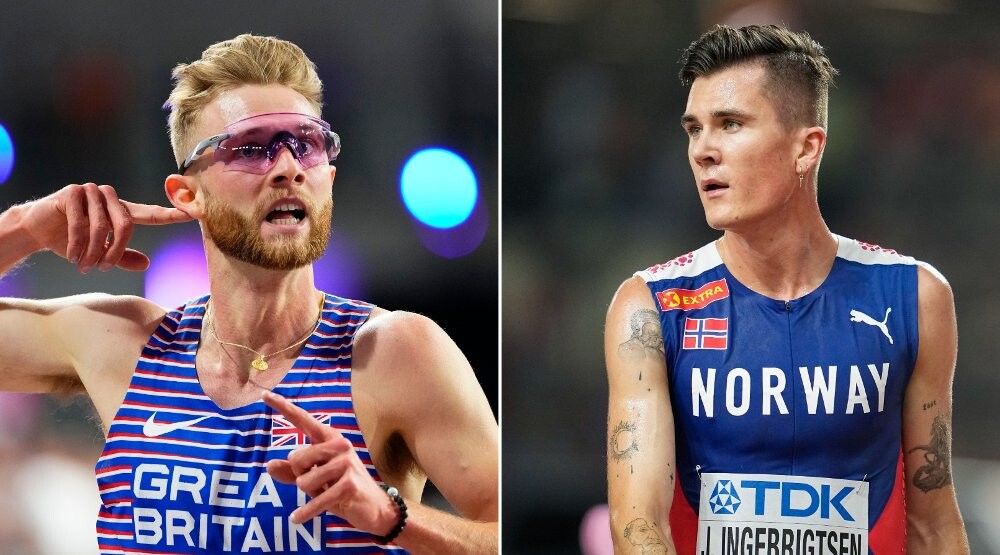
“I was just excited to go out and race against a world-class field and show that I’m still the best 1500m runner in the world,” Kerr said. “The training I’ve done is not anywhere near my peak. 3:45 right now is good enough but we’ve got to make some progress moving from here.”
“It’s a good fight,” Ingebrigtsen said. “Some of my competitors have clearly taken a step in the right direction but not a big step – not as big of a step that maybe is needed to be the favourite in Paris. But I think if anything, this is going to be an exciting summer. For me, I think it’s very good.”
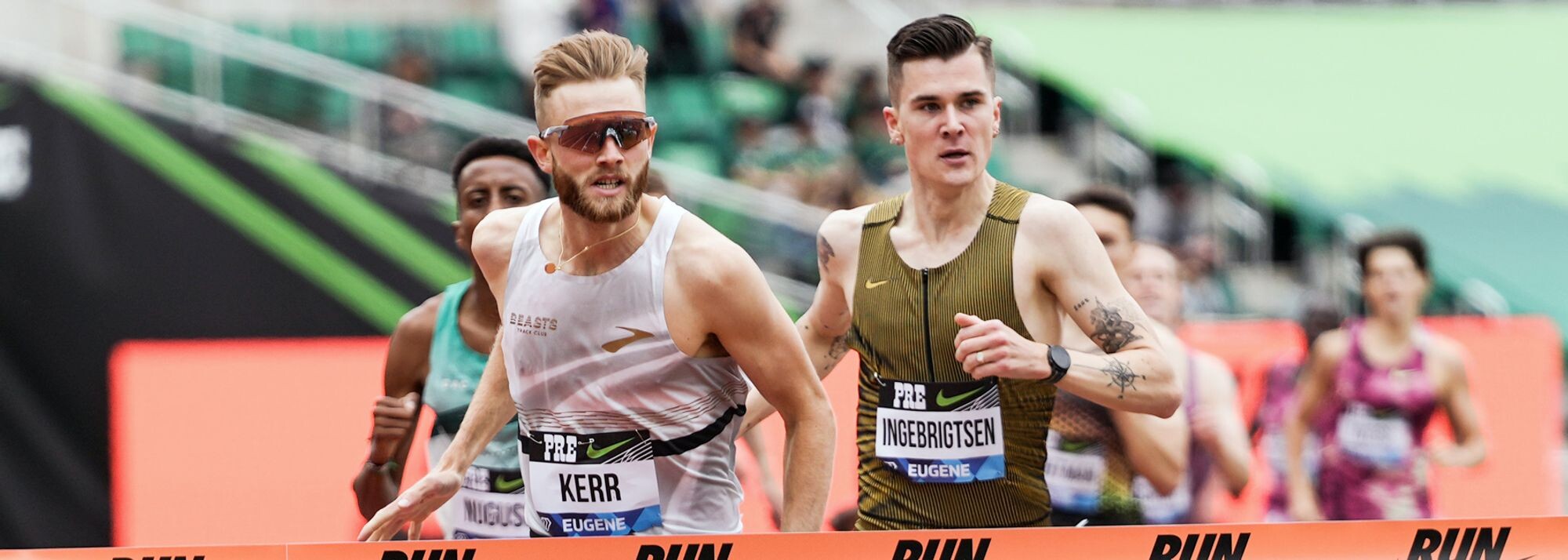
Kerr entered the race with full health and full confidence. After outkicking Ingebrigtsen, the Olympic champion, to win the world title in Budapest last year, Kerr set a world indoor best over two miles in February, then won the world indoor 3000m title in March in front of fans from his native Scotland.
Ingebrigtsen ended last season by winning the Prefontaine Classic mile in 3:43.73, just ahead of Nuguse, but then battled an achilles tendon injury during the winter. That did not necessarily mean he kept a low profile. Comments in the press by Ingebrigtsen began a back-and-forth.
When asked about his relationship with Ingebrigtsen at the press conference ahead of their recent clash in Eugene, Kerr responded: “I wouldn’t say this is a counselling session.”
No, but the race did prove to be a strategy session. The athletes at the front felt that the time through 800m, 1:53, was not too fast. With 600 metres to go, Kerr made his move.
“I thought it was a dumb decision and I knew if I thought it was a dumb decision then it probably was and that was going to scare myself and everyone else around me,” said Kerr, whose previous personal best of 3:48.87 was set two years ago.
Did such an early move surprise Ingebrigtsen?
“A little bit,” he said. “Because historically people have a tendency to not do what they say they’re going to do so they can feel very confident when they have to hold their mask but when we start racing everybody’s very insecure so I think it says a lot about their preparations. I think it was as expected but maybe still surprised that someone is deciding to all of a sudden start racing so I think that’s very good.”
Considering his delayed start to training, Ingebrigtsen was pleased with the time.
"If you do the conversion [to 1500m] it’s a pretty good start," he said. "I’m not a fan of the mile event by itself because it has nothing to do with my culture, definitely something British and American, which I’m not that familiar with, but I think it’s a very good start. I have lost quite a lot of training this winter."
While commentating inside the stadium for the BBC, Steve Cram watched as Kerr broke his 1985 British record of 3:46.32, then had a word with Kerr following the race.
“He said it was a long time coming and he was very proud of me and the way I raced today,” Kerr said.
Jake Wightman, the 2022 world champion at 1500m who missed nearly all of last season due to injury, was fifth in 3:47.87, just behind another British middle-distance specialist, Neil Gourley. Those fast times and gold medals since 2022 were the background to why Kerr said the sport is “heading into the golden era of 1500m running in the UK and in Europe”.
Ingebrigtsen, the day before, had said that being available to race often against top competition was something he considered part of an athlete’s job. Asked if he needed to reassess how to race Kerr tactically given Kerr’s bold and somewhat surprising early move to the front, Ingebrigtsen pointed to his literal track record.
“The last couple of years obviously I have been the only one racing for many of the races so when someone all of a sudden decides to participate other than just following, it’s something different,” Ingebrigtsen said. “So it’s not surprising but it’s just something different.”
Asked if he was suggesting Kerr – who claimed his first Diamond League victory Saturday – had not raced often enough, Ingebrigtsen asked a reporter about the September 2023 meeting in Eugene, when Nuguse was in the field, but not Kerr.
“What about the last time we were here?” Ingebrigtsen said.
Nuguse was third in Eugene in 3:46.22, and while that was behind his 3:43.97 personal best from September, that race occurred at the season’s very end. To run 3:46 in May, at the start of a long season, left Nuguse smiling afterwards, even as he noted he needs to train to be more capable of closing quicker in the final 100m.
“I definitely feel a lot stronger and more comfortable being closer to the front,” Nuguse said. “In a race with so many great guys I think just to come out with third and still be pulling away from it is really huge. I’m feeling really good compared to last year.”
by Andrew Greif for World Athletics
Login to leave a comment
Paris 2024 Olympic Games
For this historic event, the City of Light is thinking big! Visitors will be able to watch events at top sporting venues in Paris and the Paris region, as well as at emblematic monuments in the capital visited by several millions of tourists each year. The promise of exceptional moments to experience in an exceptional setting! A great way to...
more...Why the "Norwegian Method" Training Craze Is Here to Stay
In a highly anticipated race at the 2024 Prefontaine Classic, Jakob Ingebrigsten pitted his revolutionary "Norwegian method" of training against some of the best milers in the world.
The “Mile of the Century”—of the twentieth century, that is—was a duel between John Landy and Roger Bannister at the 1954 Empire Games in Victoria. The two men were, at the time, the only two sub-four-minute milers in the world: Bannister had beaten Landy to the punch by 46 days, but Landy was the reigning world record holder. Their end-of-season clash was as heavily anticipated as any heavyweight boxing duel. Landy led until the final bend, at which point he famously glanced over his left shoulder at precisely the moment that Bannister surged past on his right.
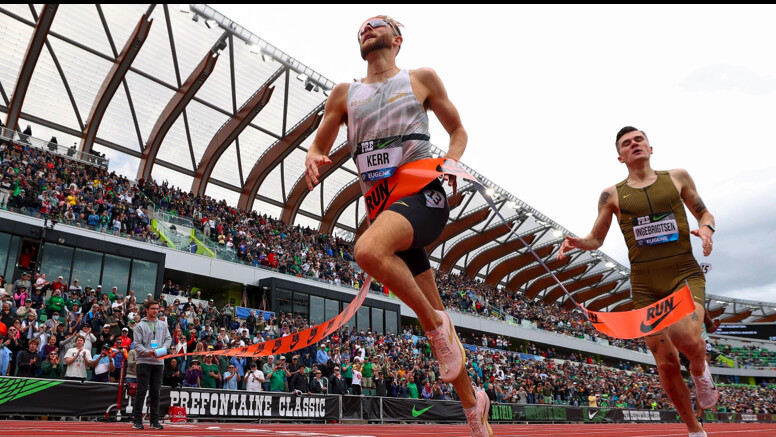
The mile of the current century, at least in terms of pre-race hype and intriguing storylines, took place on Saturday at the Prefontaine Classic track meet in Eugene. It was a gigantic multidimensional grudge match between Jakob Ingebrigsten, the blunt-speaking Norwegian wunderkind who won the 2021 Olympics at the tender age of 20 and whose training methods have sparked wholesale upheaval in the endurance world, and almost every runner who has beaten him or come close to it in recent years—most notably Josh Kerr, the Scotsman who upset him at last summer’s World Championships and has been engaged in an increasingly testy war of words with him ever since.
What gave the race an extra layer of significance, beyond the usual battle for personal supremacy, was that clash of training ideas. Ingebrigtsen is the foremost exponent of what has come to be known as the “Norwegian method” of endurance training. Its hallmark is carefully controlled workout intensities, pushing just hard enough to stimulate adaptation without incurring fatigue that would compromise the next workout. In Ingebrigtsen’s hands, that involves twice-a-week double threshold sessions: workouts like ten times a kilometer with one minute recovery in the morning and evening, with regular ear pricks to check lactate levels and keep the intensity in the right zone, on Tuesdays and Thursdays.
A similar approach has also taken Norwegians to the top of the podium in other sports like triathlon and cross-country skiing, and athletes from other countries have begun emulating it. Norwegian-style training is “the big, sexy thing,” as U.S. miler Hobbs Kessler put it. It might even be “the next step in the evolution of distance running training,” as a group of sports scientists suggested in an academic paper last year (which I wrote about here). It’s very hard to do controlled studies of entire training philosophies, as opposed to specific workouts. So the best litmus test, I suggested, would be clashes on the track leading up to the Paris Olympics. Saturday in Eugene was the first such test.
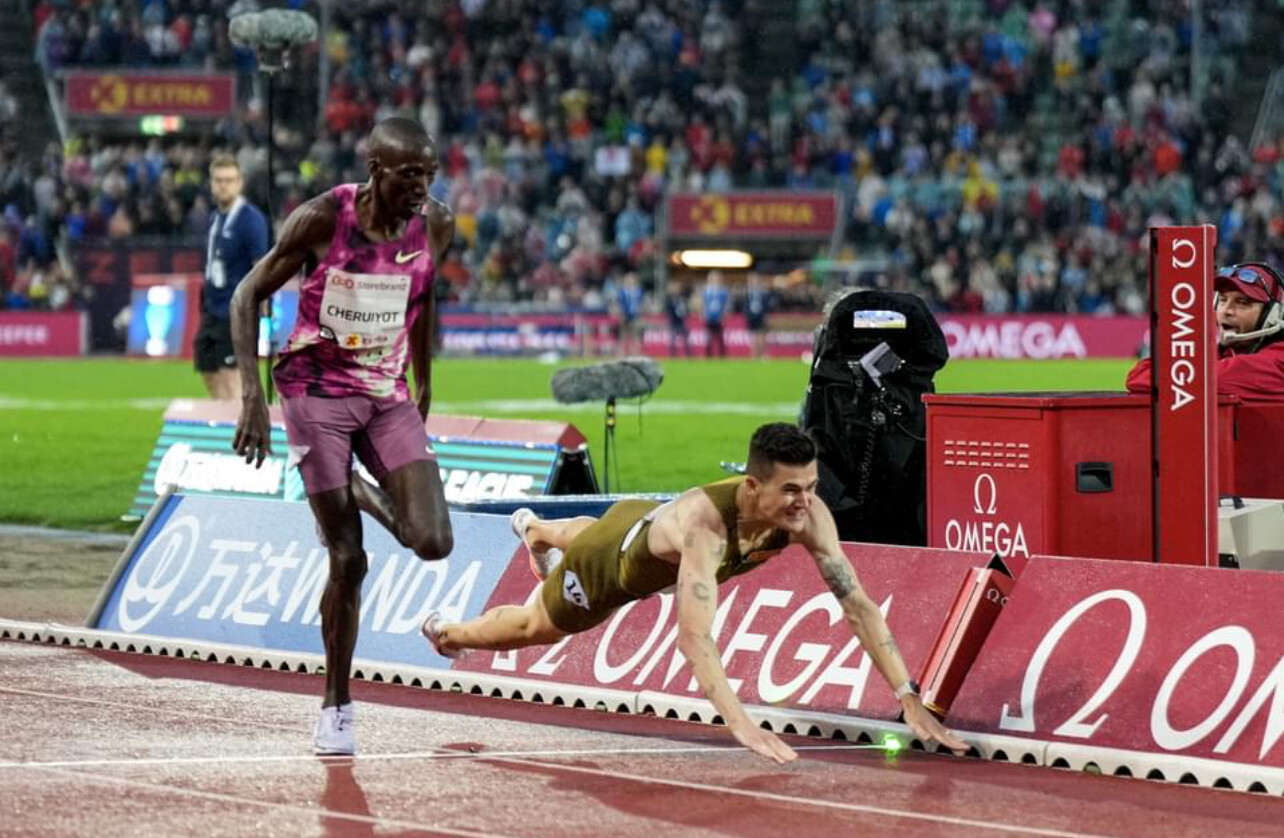
Sexy new things don’t stay sexy and new forever, and it’s fair to say that some of the shine of Norwegian training has worn off since last year. The most notable reputational hit was Kerr’s 1,500-meter win at last summer’s World Championships, kicking past Ingebrigtsen in the final lap after the Norwegian had led most of the race. One loss could be blamed on bad luck, but that made three times in a row: another Scottish runner, Jake Wightman, had outkicked Ingebrigtsen in strikingly similar fashion at the 2022 World Championships, and Ethiopian star Samuel Tefera did the same at the 2022 World Indoor Championships. That starts to look like a systemic flaw in the training approach. While Ingebrigtsen was carefully monitoring his moderate-intensity threshold intervals, Kerr and Wightman and Tefera were presumably ripping off all-out sprints—and they had a racing gear that he seemed to lack.
In Eugene, a rabbit led the field through a quick first half-mile. When he stepped off, it was Kenyan runner Abel Kipsang who pushed onward, with Ingebrigtsen following patiently behind. This was already a surprise: Ingebrigtsen is usually the one pushing the pace. Then, with a lap and a half still remaining, it was the fast finisher Kerr who surged into the lead and made an early bid for victory. Each man, it seemed, was playing the other’s game. The last lap ticked by in slow motion, Kerr unable to pull away and Ingebrigtsen unable to close the gap. That’s how it finished: Kerr in 3:45.34, Ingebrigtsen in 3:45.60, and then seven more men under the once-impregnable 3:50 barrier. In 11th place was Cam Myers, a 17-year-old from Australia, with a time of 3:50.15—two seconds faster than Ingebrigtsen himself ran at Pre as a 17-year-old in 2018.
It would be as foolish to give up on Norwegian training based on a few individual losses as it would be to anoint it the “next step” on the basis of a few individual wins. But if Ingebrigtsen keeps losing, that’s going to reinforce doubts about whether his approach is as effective for head-to-head racing as it is for time trials. There are plenty of caveats: for example, an Achilles injury disrupted Ingebrigtsen’s training for several months over the winter. But there are also other questions. What has happened to his older brothers Henrik and Filip? Both were world-class milers in their own right, but both have been struggling in recent years, as have other prominent Norwegian athletes like Olympic triathlon champion Kristian Blummenfeld, raising questions about the sustainability of the Norwegian approach.
And then there’s the fact that, despite all the hype about the mile, the real marquee event at Pre turned out to be the women’s 10,000 meters, where Kenya’s Beatrice Chebet became the first woman to dip under 29 minutes with a world-record clocking of 28:54.14. Kenyan runners (and their Ethiopian rivals) have been at the top for so long that it’s easy to take their dominance for granted. When I was in college in the 1990s, we were all fascinated by “the Kenyan Way.” That was the subtitle of Toby Tanser’s 1997 book, Train Hard, Win Easy. The secret, of course, was that there was no secret. There was a famous (and almost certainly apocryphal) anecdote about a Kenyan coach who was asked what separated his top runners from the merely good ones. All of them had grown up running to and from school each day, he explained; the champions also went home for lunch.
Part of the current fascination with the Norwegian training method is the suggestion that there is, in fact, a secret—a quantifiable formula, expressed in milimoles per liter of lactate in your blood, to optimize your training, rather than simply an admonition to work hard. But that’s a reductive view of what Ingebrigtsen and his Nordic peers are aiming for. The underlying philosophy of Norwegian training is that a harder workout isn’t always a better one, because it will take too long to recover from. This is hardly a new insight, but in the great merry-go-round of training fads, it was perhaps overdue for a resurgence.
In fact, the original Mile of the Century had a similar subtext. Bannister was the light-training amateur who ran on his lunch hour; Landy was a workout hero with “an insatiable appetite for interval running,” as Bannister wrote. “The great contrast in our training methods was not lost of the Press.” Bannister won the race, but it’s Landy’s training approach that proved to be more influential on subsequent generations. As Ingebrigtsen’s final showdown with his rivals in Paris looms, that’s worth remembering: even if he loses, and even if we decide that lactate meters are unnecessarily complicated, we might still have something to learn from his unorthodox training.
by Outside Online
Login to leave a comment
Scottish runner, Josh Kerr aiming for Paris Olympics gold after shattering 39-year record
It is nearly a decade since Josh Kerr made the decision to turn his back on home comforts and fly thousands of miles across the Atlantic to begin a new life courtesy of an athletics scholarship at the University of New Mexico.
He was only a teenager at the time and left behind a close-knit family in Edinburgh, But never at any point did he have any doubts about the sacrifices involved in upping sticks to Albuquerque, or the ultimate goal.
“It was a big leap of faith, to be honest,” he recalled last year. “I hadn't taken a visit. But if you're not pushing your boundaries, you're just going to get a little bit stale. They said they had 307 days of sun, so I was there.”
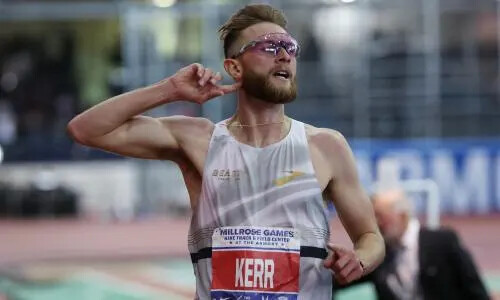
Still only 26, the Scot’s boundaries have shifted considerably since then. He is increasingly regarded as one of Scotland’s top medal prospects for the coming Paris Olympics, a status consolidated by his remarkable victory in the Diamond League, where he triumphed over Olympic champion Jakob Ingebrigtsen and smashed Steve Cram’s near 40-year-old British mile record.
In a quirk of fate, Cram, one of the leading lights in the golden era of British middle-distance running, was part of the BBC commentary team for the meet. “Josh Kerr is getting better and better and better, that was phenomenal, and you know this is a man full of confidence heading to the Olympic Games,” he said.
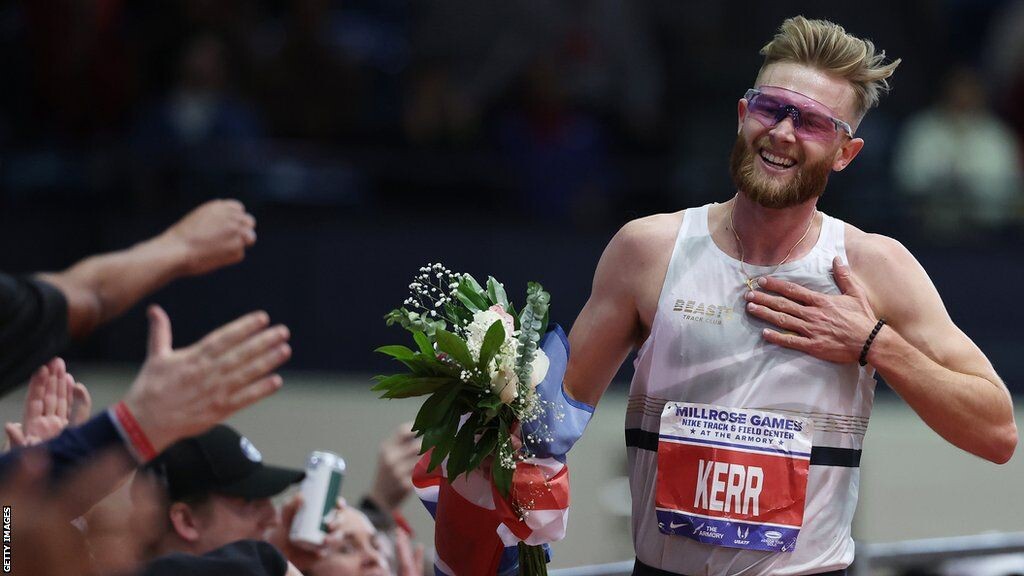
Kerr’s victory represents the latest step in his journey to the summit of his sport. He first came to national prominence thanks to his 1,500m bronze medal at the Tokyo Olympics. And in August last year, he shocked Ingebrigtsen to win the 1,500m title at the World Athletics Championships in Budapest, before breaking the indoor two-mile world record in February.
Such victories are the highlights of a running career that began when Kerr joined Edinburgh Athletics Club aged eight. At the time, his older brother, Jake, was pursuing a successful track career, but later followed in the footsteps of their father, John, by taking up rugby. The younger Kerr stayed on the track, honing his skills under the tutelage of coaches Eric Fisher and Davy Campbell before heading stateside. He is now based in Seattle, part of the Brooks Beasts team trained by Danny Mackey.
But Kerr has always credited the crucial role played by Edinburgh Athletics Club, regularly returning to help give advice to its next crop of youngsters. “Those from the club that have reached the big stages before me have shown that it can be done, and in turn we can show it to the next generation,” he previously explained.
His rapid rise in world athletics represents the latest glowing endorsement of Edinburgh’s coaching. Indeed, Kerr, used to race alongside Jake Wightman, a 1,500m gold medallist at the 2022 World Championships.
Both men were trained by Fisher, now 77. In the wake of Kerr’s gold win in Budapest, he gave an insight into how, during Kerr’s early years, he could give too much respect to his brother, and lacked the confidence to see himself as being at the same level as top athletes. “Things have changed now,” he added.
by Martyn McLaughlin
Login to leave a comment
Paris 2024 Olympic Games
For this historic event, the City of Light is thinking big! Visitors will be able to watch events at top sporting venues in Paris and the Paris region, as well as at emblematic monuments in the capital visited by several millions of tourists each year. The promise of exceptional moments to experience in an exceptional setting! A great way to...
more...Josh Kerr beats 39-year-old British mile record and rival Ingebrigtsen in Eugene
Josh Kerr smashed Steve Cram’s 39-year-old British record to claim victory in the mile race at the Diamond League meeting in Eugene, Oregon. The Scottish runner won a highly anticipated showdown with his Norwegian rival Jakob Ingebrigtsen thanks to a remarkable world-leading run of 3min 45.34sec.
Cram, who was commentating on the race for the BBC, had held the British record since 1985 with a time of 3:46.32.
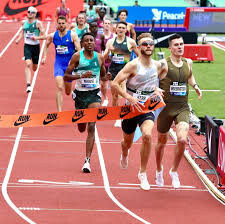
The Olympic 1500m champion, Ingebrigtsen, who was stunned by Kerr in that event at last year’s world championships in Budapest, finished second, with the Britons Neil Gourley and Jake Wightman in fourth and fifth respectively.
Earlier, Keely Hodgkinson produced a dominant display to win the women’s 800m. The 22-year-old clocked a world-leading time of one minute 55.78 secs, while compatriot Jemma Reekie was third – behind Kenyan Mary Moraa – in a time of 1min 57.45sec.
Sha’Carri Richardson, the world champion won in her first women’s 100m of the Olympic year in a time of 10.83sec ahead of St Lucia’s Julien Alfred (10.93) and Dina Asher-Smith, whose time of 10.98 was a season best for the Briton.
Laura Muir continued preparations for this summer’s Olympics in Paris with fourth place in the women’s 1500m in a season’s best 3min 56.35sec. The Tokyo 2020 silver medallist said: “I want to be in the best shape I can for August, so it’s a step towards that to run 56 [seconds] in May. It’s very promising.”
Elsewhere, Kenya’s Beatrice Chebet set a new world record of 28min 54.14sec to win the women’s 10,000m. Chebet bested the previous record of 29.01.03 set by Ethiopia’s Letesenbet Gidey at FBK Stadium in the Netherlands on 8 June 2021.Chebet finished ahead of Gudaf Tsegay of Ethiopia, who finished in 29min 5.92sec in cloudy and cool temperatures. Chebet started to pull away with three laps to go, then poured herself into the final lap. “My body was responding good and I felt strong,” she said. “I felt like I was very comfortable.”
It was her first 10,000m race since 2020, in Nairobi. Chebet, 24, won the silver medal at the 5,000m at the world championships at Hayward Field in 2022. She won the bronze in the event at the worlds last year.
The finish qualified her for her first Olympics this summer in Paris. She said she hopes to double in the 5,000m and 10,000m. “But my target is to run 5,000m first, then 10,000m comes second,” she said. “Because this is my first 10,000m outside the country to run, and I’m so happy to run 28, a world record.”
The Prefontaine Classic is the lone American stop on the international Diamond League series.
Login to leave a comment
Prefontaine Classic
The Pre Classic, part of the Diamond League series of international meets featuring Olympic-level athletes, is scheduled to be held at the new Hayward Field in Eugene. The Prefontaine Classicis the longest-running outdoor invitational track & field meet in America and is part of the elite Wanda Diamond League of meets held worldwide annually. The Pre Classic’s results score has...
more...Mile clash the big attraction in Eugene
Going strictly by time, the Bowerman Mile at the Prefontaine Classic on Saturday (25) is one of the fastest races in the meeting’s 49-year history.
Add in the storylines, and it’s one of the most anticipated, too.
Featuring seven men with lifetime bests faster than 3:50, Olympic and world championship gold medallists, world record-holders and rivals whose banter has preceded the matchup for months, the mile caps a Wanda Diamond League meeting at Hayward Field whose potential for world-leading marks extends far beyond its final event.
Consider, for one, the women’s 800m, and the early window it will open into this summer’s Olympics. The field includes six of the eight competitors from last year’s World Championships final in Budapest, including gold medallist Mary Moraa and silver medallist Keely Hodgkinson. Notably absent will be bronze medallist Athing Mu, the Olympic champion, who was initially scheduled to race but has been withdrawn out of precaution because of a sore hamstring.
Raevyn Rogers, the 2019 world silver medallist whose image adorns a tower standing high above Hayward Field, also is entered, along with Jemma Reekie, Nia Akins and Halimah Nakaayi, who is coming off a victory at the USATF Los Angeles Grand Prix.
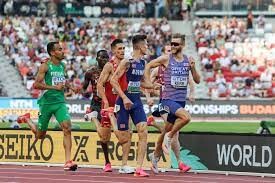
World champion Sha’Carri Richardson and Elaine Thompson-Herah headline the women’s 100m, along with world indoor 60m champion Julien Alfred and Marie-Josee Ta Lou-Smith, while world indoor 60m champion Christian Coleman and Ackeem Blake are among the fastest entered in the men's 100m.
Perhaps the most dominant athlete entering the meeting is Grant Holloway, the world 110m hurdles champion who has won all 10 races he has contested this year, including the indoor season and heats. That also includes running a world-leading 13.07 into a headwind to win in Atlanta last weekend.
The three-time world champion's last loss came on the very same Hayward Field track, at last September’s Prefontaine Classic. The only remaining gap on Holloway’s resume is an Olympic gold medal, and Saturday’s race could be an early preview of Paris, as the field includes five who raced in last summer’s World Championships final in Budapest, including silver medallist Hansle Parchment and Daniel Roberts, who earned bronze.
Shot put world record-holder and multiple world and Olympic champion Ryan Crouser will open his outdoor season in his home state and at the stadium where he owns the facility record, while trying to best Leonardo Fabbri’s world-leading mark of 22.95m.
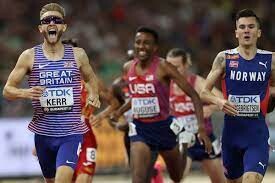
Since 2023, Crouser has lost in just one final – and it was at September’s Prefontaine Classic to Joe Kovacs, who won in Los Angeles last weekend with 22.93m, and is entered again. Payton Otterdahl, who owns the world No.3 mark this year, also is in the field.
Those events offer no shortage of global medallists. Few, however, carry the prospect for as much drama as the mile.
Over the past year, Olympic 1500m champion Jakob Ingebrigtsen and Josh Kerr, who outkicked Ingebrigtsen for last year’s world title in Budapest, have carried on a battle of words through the press about who could prevail in Paris.
Commonwealth champion Olli Hoare, who is part of the field following his 1500m win in Los Angeles last week, said the sport was better for the attention drawn by the back-and-forth between Ingebrigtsen and Kerr – but added that other racers wanted to strike the appropriate level of respect for their competitors, such as Yared Nuguse, whose PB of 3:43.97 was set battling Ingebrigtsen (4:43.73) down to the line at September’s Pre Classic.
“This is a big one. This is going to be a big one for a lot of egos,” Hoare said in Los Angeles. “But I think it’s going to be a big one for me because it’ll be the first race where I’ll have an inkling of where I am with the world’s best. There’s a bit of tossing and turning with the banter but you can’t disrespect that field. If you do, you’ll get eaten alive.”
That list of seven men under 3:50, which includes Hoare, notably doesn’t include Jake Wightman, who will be racing Ingebrigtsen for the first time since their duel at the 2022 World Championships in Oregon, when Wightman won gold; Abel Kipsang, who was fourth at the Tokyo Olympics; Geordie Beamish, less than three months after he stormed to the world indoor title; or Lamecha Girma, the steeplechase world record-holder who is making his mile debut.
“Jake Wightman’s back, he’s a world champion,” Hoare said. “Yared Nuguse, 3:43 mile – these guys are keeping quiet and they’re going to wait for their opportunity to strike. And when they do strike, I guarantee they will make a comment.”
They are not the only accomplished names entered in the distances.
Athletics Kenya will determine its men's and women's Olympic 10,000m qualifiers at Hayward Field, with Kenya's two-time world cross-country champion Beatrice Chebet, the world leader at 5000m this season, part of a women's race that will include world champion Gudaf Tsegay of Ethiopia, eight months after Tsegay set the world 5000m record on the same track.
World record-holder Beatrice Chepkoech will attempt to retain her controlling hold over the steeplechase when she races top challenger Faith Cherotich. The Kenyan duo produced the two fastest times in the world this year at the Diamond League meeting in Xiamen, which Chepkoech won in 8:55.40 to Cherotich’s 9:05.91. Olympic silver medallist Courtney Frerichs will no longer run after injuring the ACL and meniscus in her right knee.
One week after winning in Los Angeles, Diribe Welteji leads the 1500m field that includes 13 women who have run under four minutes. World indoor 3000m champion Elle St Pierre, who won the 5000m in Los Angeles, is running her first 1500m of the season, with Laura Muir, Nikki Hiltz, Jessica Hull, Hirut Meshesha and Cory McGee also entered.
Multiple world and Olympic gold medallist Sifan Hassan, as well as world No.2 Ejgayehu Taye, will feature in the 5000m.
In the field, world and Olympic pole vault champion Katie Moon opens her outdoor season against Sandi Morris, and in the triple jump four of the top five women this season are entered, led by Thea LaFond, whose 15.01m jump to win the world indoor title in Glasgow still stands as the mark to beat.
Olympic discus champion Valarie Allman has not lost in Eugene in two years, a run that includes claiming September’s Diamond League final. That could change on Saturday because of the presence of world leader Yaime Perez, who finished second to Allman in Xiamen last month.
In the men’s 200m, top US sprinters who will duel at the Olympic trials only weeks later will face off. Kenny Bednarek, fresh off a world-leading 19.67 in Doha, is scheduled to race against world No.2 Courtney Lindsey (19.71), with world silver medallist Erriyon Knighton making his season debut. Joe Fahnbulleh and Kyree King, winner of the Los Angeles Grand Prix 100m, are also entered.
Another winner in Los Angeles, Rai Benjamin, headlines the men’s 400m hurdles, and he enters with considerable confidence after running 46.64, the ninth-fastest performance of all time.
“I think I’m the fastest guy in the field, honestly,” Benjamin said of potential Olympic chances.
The women’s 100m hurdles and women’s hammer will not count towards Diamond League points totals, but will be more potential previews for global championships.
Women who account for five of the year’s six fastest times, all of whom are separated by fractions of a second, will face off in the hurdles. Tonea Marshall, fresh off her victory in Los Angeles in 12.42, leads 2019 world champion Nia Ali, Olympic champion Jasmine Camacho-Quinn, two-time world champion Danielle Williams and world indoor champion Devynne Charlton.
Brooke Andersen’s 79.92m throw from earlier this month remains the world-leading hammer mark this season but she will be challenged by world champion Camryn Rogers, 2019 world champion DeAnna Price and world silver medallist Janee’ Kassanavoid, who own the next three farthest throws this season.
by Andrew Greif for World Athletics
Login to leave a comment
Prefontaine Classic
The Pre Classic, part of the Diamond League series of international meets featuring Olympic-level athletes, is scheduled to be held at the new Hayward Field in Eugene. The Prefontaine Classicis the longest-running outdoor invitational track & field meet in America and is part of the elite Wanda Diamond League of meets held worldwide annually. The Pre Classic’s results score has...
more...Jakob Ingebrigtsen hopes to open his season at Pre Classic
After a record-setting 2023 season, it has been a quiet year (so far) for Norwegian distance star Jakob Ingebrigtsen. The 24-year-old has been sidelined with an Achilles injury, which will keep him out of next month’s World Indoor Championships in Scotland and World XC in Serbia.
In an exclusive interview with Norwegian broadcaster NRK, Ingebrigtsen remained confident that he would be good to go for the summer track season. “Plan A is to start the season in Eugene [Diamond League, on May 25], run Bislett Games [Oslo Diamond League] on May 30, and the European Championships in Rome after that [June 7],” said Ingebrigtsen. “I think that will work well this year. And then full focus on the Olympics after that, so most likely a good season in the late summer.”
Last year was one of the most dominant seasons of Ingebrigtsen’s young career; he set world bests over two miles and 2,000m and clocked the second-fastest mile time in history (3:43.73) at the 2023 Diamond League Final in Eugene. He also went through a lot off the track, marrying his longtime partner Elisabeth Asserson and having a public falling out with his former coach and estranged father, Gjert Ingebrigtsen.
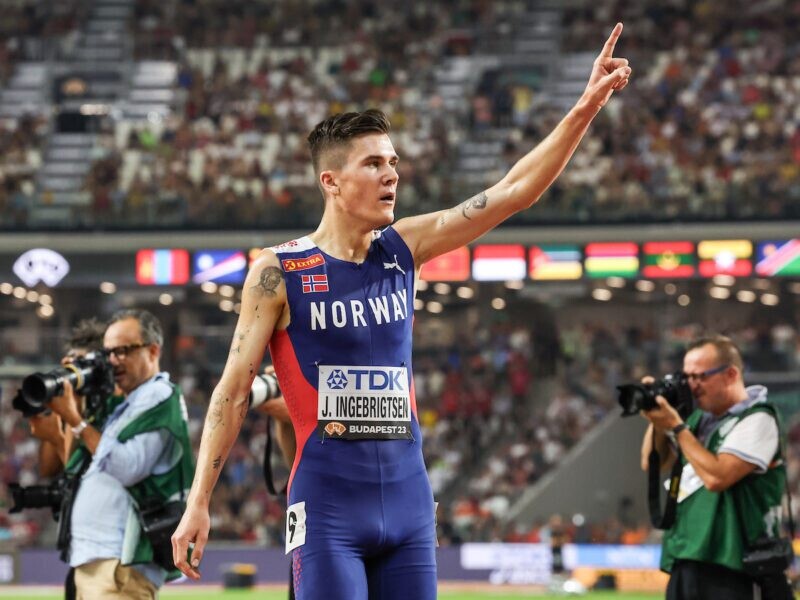
Ingebrigtsen told NRK that he took some time off from running during his wedding and honeymoon in the Maldives, and when he tried to start training again, the challenges began. “I got sick during the break,” said Ingebrigtsen. “When I started training again, it hurt like hell, then the Achilles tendon snapped.” He believes the problem occurred from inflammation around the Achilles tendon on his right foot.
He also admitted in the interview that he was struggling with pelvic pain before the 2023 World Athletics Championships in Budapest, where he defended his world title in the 5,000m and took silver to Great Britain’s Josh Kerr in the men’s 1,500m, losing to a British middle-distance runner for the second year in a row (Jake Wightman, 2022 worlds).
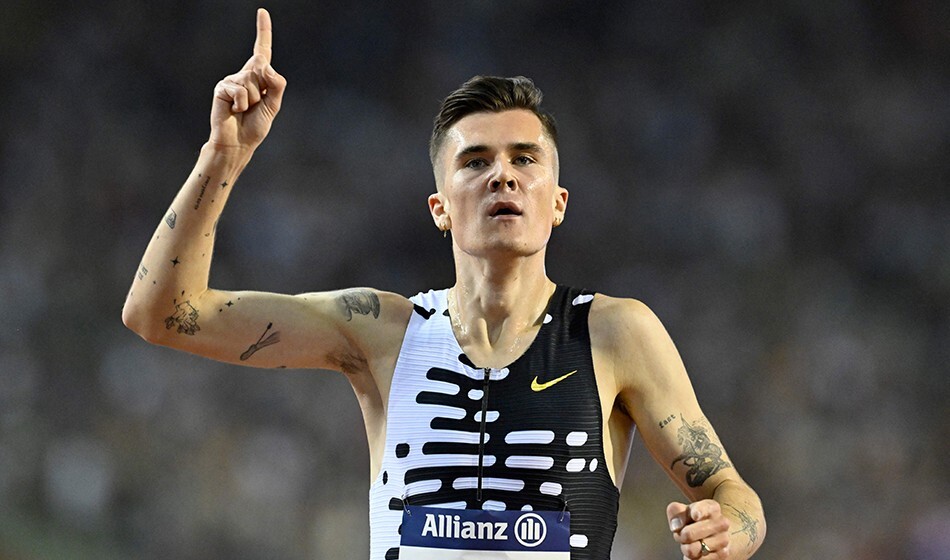
Ingebrigtsen said he is still motivated by his loss to Kerr and is trying to use it as a lesson: “It is again very important to try to analyze what you have done, or what you have been through, to see that it is not necessarily to blame, but what you can perhaps do differently. And I’m a big fan of that.”
Kerr and Ingebrigtsen have been public about their dislike of one another. After Kerr won the world title in Budapest, Ingebrigtsen called the Scottish runner “just the next guy.” In a podcast, Kerr responded by saying that Jakob has “major weaknesses” and “surrounds himself with yes men.” On the prospect of another duel in Paris, Kerr said: “I just hope he’s ready to go. I hope that when we cross that finish line in Paris, everyone can shake each other’s hand and be like, “Whoever wins is good, they’re the best.”
With Ingebrigtsen currently training on the elliptical and water running, fans will be denied a potential early clash between the world and Olympic 1,500m champion at the World Indoor Championships in Glasgow in March. Kerr hopes for glory on home soil, competing in a major championship in his home country for the first time.
by Marley Dickinson
Login to leave a comment
Britain’s world 1500m champion Josh Kerr returns to New York targeting fast two miles
Britain’s world 1500m champion Josh Kerr will headline the men’s two mile field when he returns to the Millrose Games, a World Athletics Indoor Tour Gold event, for the fifth time on February 11.
Kerr, the Olympic bronze medallist, ran 3:48.87 for the mile in Boston in 2022 and sits fourth on the world indoor all-time list for the discipline. He will look to make a similar statement in the two-mile event when he races at The Armory in New York in February.
He won the 3000m at this year’s Millrose Games, his season opener, in 7:33.47 and went on to take the world 1500m title in Budapest. Kerr was second in the Millrose Games mile in 2022, while he was also second and fourth in that discipline in New York in 2018 and 2019, respectively.
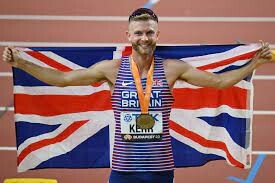
The world indoor two-mile best is 8:03.40, set by Britain’s Mo Farah in Birmingham in 2015.
“There's going to be a fantastic field and it will be paced at the two-mile world record,” Kerr told CitiusMag. “Currently, I'm in fantastic shape. I'm having an amazing fall and dealing with everything new and everything that's exciting, amazing and also terrible about being a world champion. I'm very excited for it.”
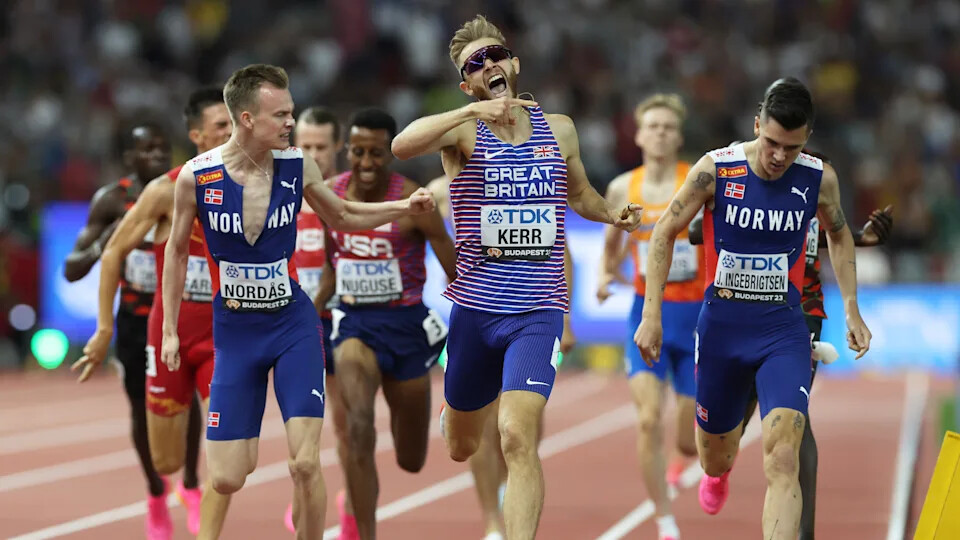
More than 50 meetings feature on the 2024 World Athletics Indoor Tour calendar, including seven Gold level events, in a season that culminates with the World Athletics Indoor Championships Glasgow 24.
Other athletes already confirmed for next year’s Tour include world gold medallists Noah Lyles, Jake Wightman and Gabby Thomas, who will all compete at the New Balance Indoor Grand Prix in Boston on February 4.
by World Athletics
Login to leave a comment
NYRR Millrose Games
The Pinnacle of Indoor Track & Field The NYRR Millrose Games, first held in 1908, remains the premier indoor track and field competition in the United States. The 2025 edition will once again bring the world’s top professional, collegiate, and high school athletes to New York City for a day of thrilling competition. Hosted at the New Balance Track &...
more...Great Britain’s Josh Kerr wins gold in men’s 1500m at World Athletics Championships
Great Britain’s Josh Kerr won 1500m gold at the World Athletics Championships in Budapest
Great Britain’s Joshua Kerr stunned hot favourite Jakob Ingebrigtsen to take 1500m gold at the World Athletics Championships in Budapest.
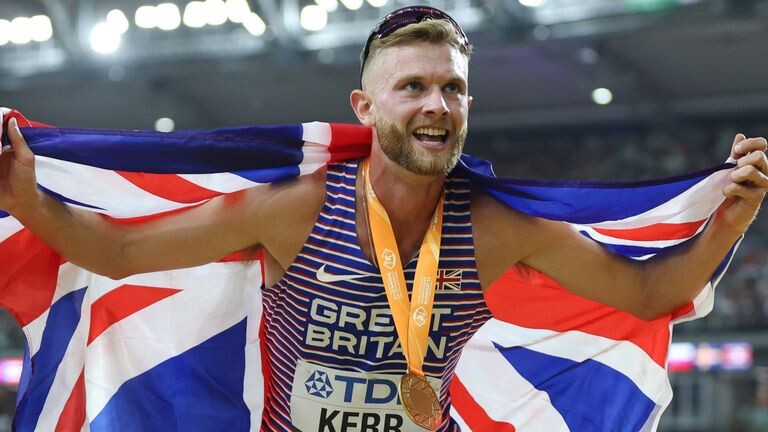
The Scot clocked 3:29.38 to win a massive battle with silver medallist Ingebrigtsen over the final 300m as Ingebrigtsen’s fellow Norwegian Narve Gilje Nordas took bronze in 3:29.68.
Kerr’s victory, achieved via his season’s best, saw Britain scoop men’s 1500m gold for the second World Championships running, after Jake Wightman triumphed in Eugene, Oregon last year by finishing ahead of Ingebrigtsen in similar style.
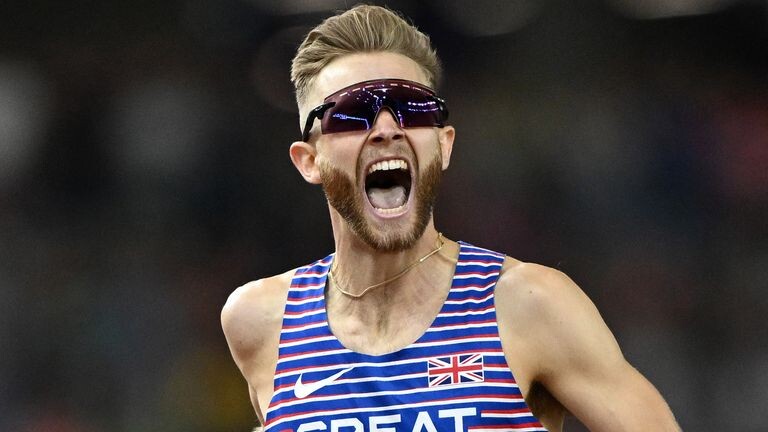
The medal is Kerr’s second on the global stage after he won bronze in the 1500m at the 2020 Tokyo Olympics – a race won by Ingebrigtsen.
Kerr’s medal is Britain’s fourth of the Budapest event, with Katarina Johnson-Thompson securing heptathlon gold; Lewis Davey, Laviai Nelson, Rio Mitcham and Yemi Mary John claiming silver in the mixed 4x400m relay; and Zharnel Hughes sprinting to bronze in the men’s 100m.
Kerr: I broke Ingebrigtsen with 50m to go
The 25-year-old told the BBC: « It’s been a long time coming. It’s an overwhelming experience, but I’m so proud of myself, of my team and my family.
« I threw my whole 16 years at that last 200m. I stayed calm, I just wanted to execute a race I would be proud of. I’m very glad to add to that medal count.
« I was battling with Jakob very hard, you can see by my face I’m throwing everything at this guy, I was hurting. I’ve wanted this my whole life. I’m so happy.
Kerr beat hot favourite Jakob Ingebrigtsen of Norway as Britain won the men’s 1500m for the second World Championships running
« At about 50m to go I kind of broke him, and it was holding on from that point. I’ve had the [Olympic] bronze [at Tokyo 2020] and the gold is much sweeter. »
Wightman: Kerr is like the Terminator
Wightman added: « Our little club in Edinburgh has had two back-to-back world champions. That’s hard to believe. Jakob Ingebrigtsen is going to start hating us Brits ain’t he?
« He showed so much promise for so long, that medal in Tokyo was just the start of this. When Josh Kerr gets it right and when he’s running well, he absolutely flies. I think Ingebrigtsen underestimated how well he was running at the moment.
« I’m so happy for him. Josh is like the Terminator. His internal confidence is crazy. »
Login to leave a comment
World Athletics Championships Budapest 23
From August 19-27, 2023, Budapest will host the world's third largest sporting event, the World Athletics Championships. It is the largest sporting event in the history of Hungary, attended by athletes from more than 200 countries, whose news will reach more than one billion people. Athletics is the foundation of all sports. It represents strength, speed, dexterity and endurance, the...
more...World champion Jake Wightman out of defending his title in Budapest next month
After sustaining a freak injury to his foot in January during a gym session in South Africa, Jake Wightman’s recovery has not been straightforward and the 28-year-old says he has “run out of time” and is out for the summer.
This means he will be unable to defend his world 1500m title in Budapest in August just 12 months after claiming gold ahead of Jakob Ingebrigtsen at the World Championships in Eugene.
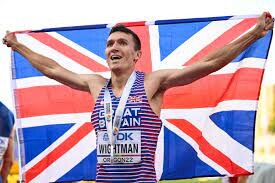
Wightman sustained the injury to the right foot when landing awkwardly doing plyometrics. He spent five weeks in a protective boot and missed the indoor season, but kept fit cross-training and then eased back into running in the spring.
But further injury-related complications have hindered his progress and he has been forced to withdraw from a number of races in recent weeks. He did not have to battle for World Championships qualification by running the UK Championships in Manchester this weekend because he already has a “wild card” entry to Budapest as a reigning champion.
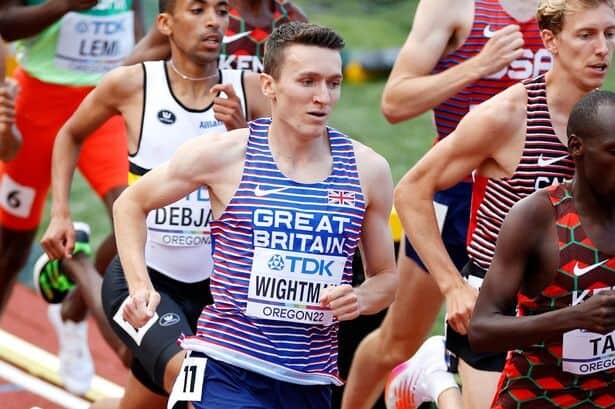
But nevertheless he feels time has run out for him to get fit for the biggest event of the year and he is now looking at a return to running in late August with his sights set on 2024 instead.
“As a result of my injury, I’ve had to deal with several more set backs as I prepared to race this Summer,” he said on Instagram.
“I’ve always felt as though time has been on my side to overcome my problems fully, however it has finally run out. This means I’m sadly going to be unable to compete at Worlds which has been really gutting to come to terms with.”
Wightman, who was also one of the biggest attractions due to compete at the Diamond League in London on July 23, has had to watch in frustration this season as ten men from eight different countries have run inside 3:30 for 1500m so far this summer, led by Ingebrigtsen’s European record of 3:27.95 at the Bislett Games.
He added: “Although I’m very disappointed not be able to try and defend my title, my focus has to be on getting my body rested and ready for 2024, to ensure I’ll be back performing at my best. The are some risks I could’ve taken to be on that Budapest start line, however the potential to jeopardise my Olympic year makes this the obvious decision.
“I’m currently taking some down time before starting my rehab, ready to be back running safely and pain free by the end of August. Big thanks to all my team and British Athletics who have worked really hard to try and give me every chance of competing. I’ll see you back on the start line soon.”
by Jason Henderson
Login to leave a comment
World Athletics Championships Budapest 23
From August 19-27, 2023, Budapest will host the world's third largest sporting event, the World Athletics Championships. It is the largest sporting event in the history of Hungary, attended by athletes from more than 200 countries, whose news will reach more than one billion people. Athletics is the foundation of all sports. It represents strength, speed, dexterity and endurance, the...
more...Jakob Ingebrigtsen earns his eighth career European championship gold
On Friday afternoon, the reigning Olympic 1,500m champion, Jakob Ingebrigtsen, led from start to finish in the men’s 1,500m at the 2023 European Indoor Championships in Istanbul, earning his eighth European championship gold medal, breaking the championship record in 3:33.95.
The world’s fastest middle-distance runner beat in-form British athlete Neil Gourley, who came second in 3:34.23, while Azeddine Habz of France claimed the bronze medal in 3:35.39.
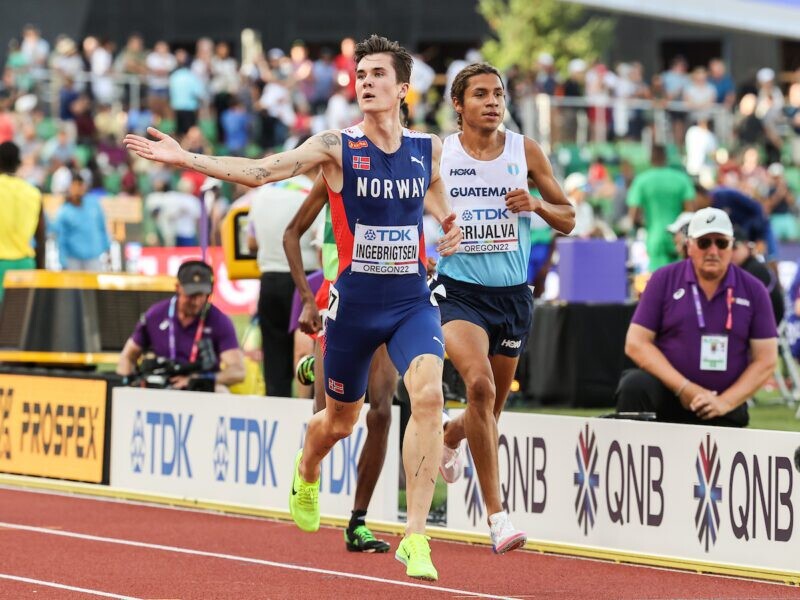
Ingebrigtsen, 22, had raced only once this season before competing Friday, missed a month of training with a viral infection.
Gourley, the British indoor 1,500m record holder of 3:32.48, sat on the heels of Ingebrigtsen from the start but could not hold on in the final 200 metres.
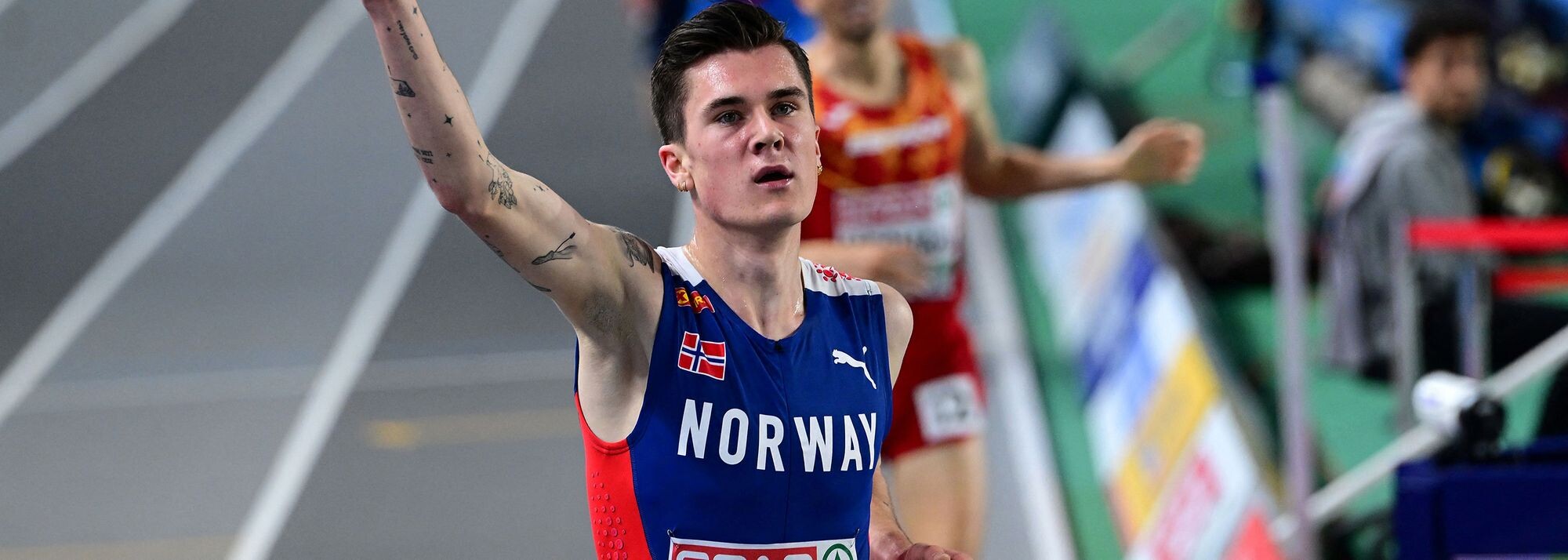
Gourley made a move on Ingebrigtsen with 200m to go, similar to the move that his Scottish compatriot Jake Wightman made to beat the Norwegian at the 2022 World Championships in Oregon. Ingebrigtsen countered, soaring to his second-straight European 1,500m gold.
“It’s important for me to compete in as many races as possible for the fans,” Ingebrigtsen told reporters post-race. “My goal is to become the greatest runner of all time, and I still have to win races.”
World indoor 400m record holder Femke Bol was also in action on Friday afternoon in the semi-finals of the women’s 400 metres.
by Marley Dickinson
Login to leave a comment
Yalemzerf Yehualaw will challenge her global mark of 29:14 this weekend in Valencia
Get ready for some quick times on Sunday (Jan 15) when the self-styled “ciudad del running” stages its annual 10km Valencia Ibercaja event on its famously fast roads.
Many of the world’s top distance runners will descend upon the Spanish city this weekend in search of record-breaking performances. These include Yalemzerf Yehualaw, who will attack her own women’s world record of 29:14 set in Castellón 11 months ago.
The 23-year-old impressed over the marathon last year, too, as she clocked what was, at the time, the world’s fastest ever debut by a woman with 2:17:23 in Hamburg before later capturing the London Marathon title in 2:17:26.
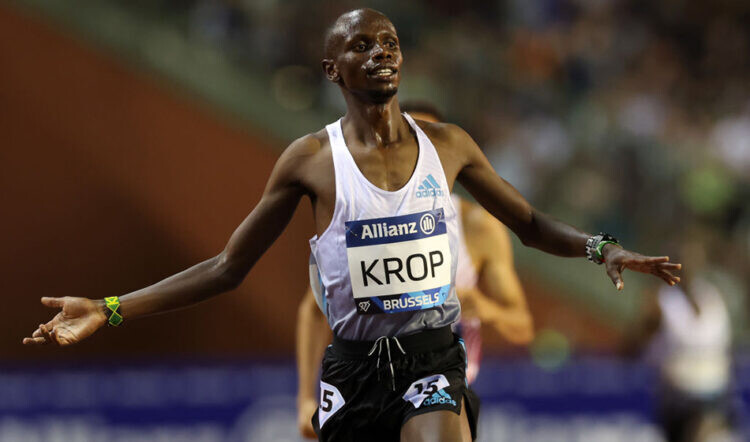
British athletes are in Valencia in force too. The Spanish road race clashes with the trial in Perth, Scotland, for the World Cross Country Championships, but many have opted to slip on their super-shoes rather than spikes to chase PBs on the road.
Yehualaw is the star attraction and will wear No.1 on her singlet on Sunday, but she is joined in Valencia by fellow Ethiopian Ejgayehu Taye, who holds the world 5km record with 14:19 from Barcelona in 2021. In addition, Karoline Grøvdal of Norway will attack the European record of 30:05 held by Lonah Salpeter of Israel.
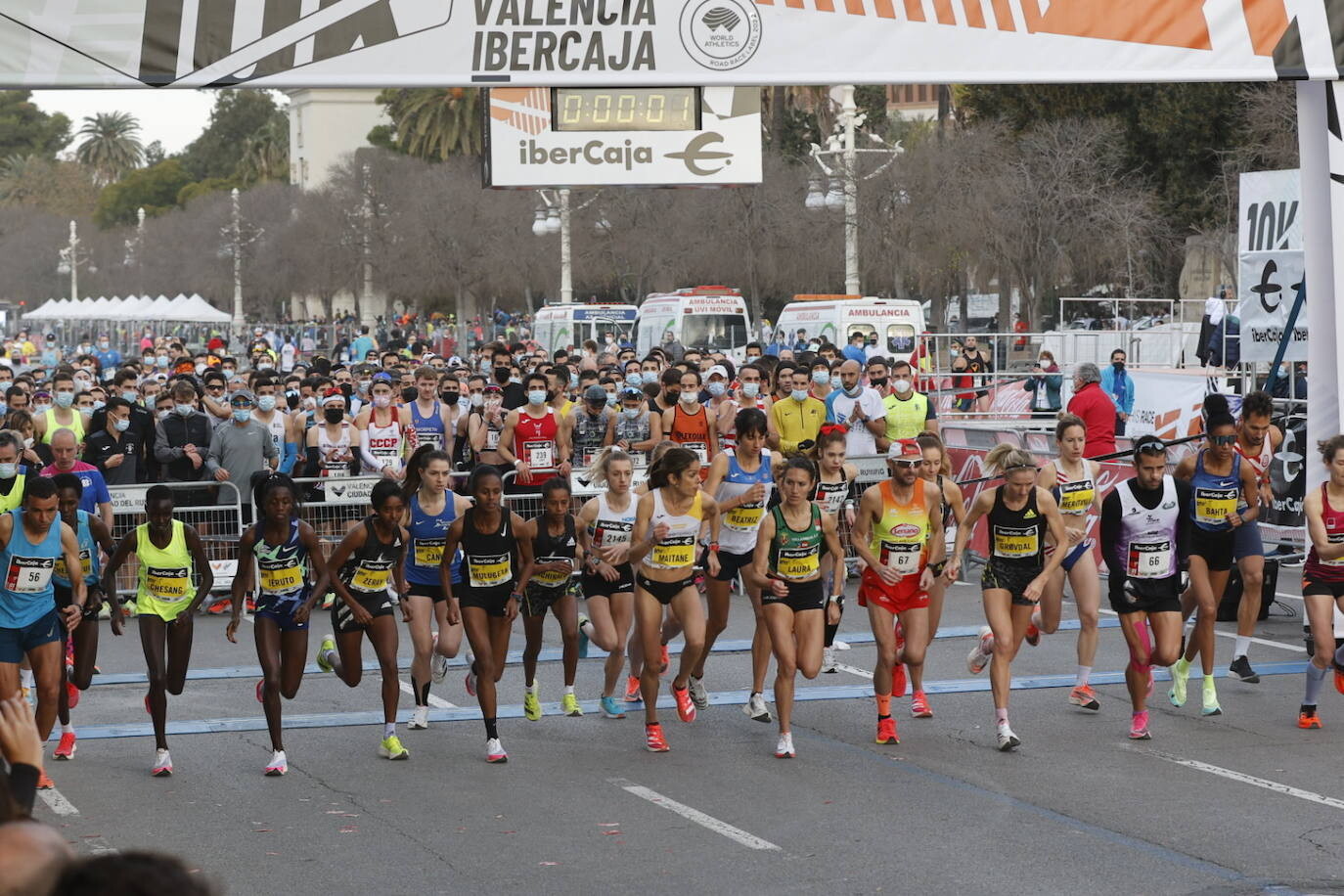
In the men’s field, sub-27min performers Richard Kimunyan Yator and Weldon Kipkirui Langat of Kenya plus Rodrigue Kwizera of Burundi lead the men’s entries in a field of around 11,000 runners which is set to feature about 100 elite athletes from 15 different nations.
Jacob Krop, the world 5000m silver medallist and 12:45.71 runner on the track, is also in the line-up together with Paul Chelimo of the United States, while Morhad Amdouni and Jimmy Gressier of France lead the European challenge.
Their target is Rhonex Kipruto’s world record of 26:24, which was set in this event in 2020.
“We want the men to approach the European record (27:13 by Julien Wanders set in Valencia in 2020) and, with the African armada, to look for sub-27 records and even approach the world record,” said Acuña. “The 2023 race will be the most competitive of all editions. The best European athletes want to run the 10km Valencia Ibercaja – and we have been working for months in that direction.”
He added: “The goal of the race is to become more international year after year and reach more and more countries. We are a world reference for the distance and the best athletes want to run in Valencia.”
Don’t be surprised to see the UK all-time rankings revised on Sunday when a large contingent of British athletes tackle the Valencia 10km.
They are led by Samantha Harrison, who already sits No.5 on the UK all-time rankings with 31:10 from Telford in December.
Calli Thackery, the fifth quickest British woman in history over 5km with 14:58, is also set to compete. Add to this Olympic marathoner Steph Twell, plus Amelia Quirk, Lucy Reid and Sarah Astin.
One week after out-kicking Jake Wightman indoors over 3000m, Phil Sesemann takes to the roads looking to beat his 28:24 PB from 2019.
The Mahamed brothers – Mahamed and Zak – are also in the line-up, plus Olympic 5000m finalist Andy Butchart, Efrem Gidey, Ellis Cross, Calum Elson and Kadar Omar.
The list goes on with Kieran Clements, Jack Gray, Jonathan Hopkins, Alfie Manthorpe, Lewis Jagger, Ronny Wilson, Jonny Davies, Alex Lepetre, Jonathan Escalante, Dan Studley, Norman Shreeve and Corey De’Ath.
by Jason Henderson
Login to leave a comment
10k Valencia Trinidad Alfonso
Around the corner we have one more edition of the 10K Valencia Ibercaja, organized one more year by the C. 10K VALENCIA Athletics premiering the running season in Valencia. It is a massive urban race with more than 3,000 registered annually of 10 kilometers, where the maximum duration of the test will be 1 hour 40 minutes (100 minutes). The...
more...Faith Kipyegon has the marathon in mind
In the new issue of AW, the Olympic and world 1500m champion reveals that close friend Eliud Kipchoge has inspired her to tackle the 26.2-mile event in future
Many view already her as a true athletics great, but Faith Kipyegon doesn’t quite see it that way. Yet. Despite being a two-time Olympic and world champion over 1500m, the Kenyan believes she has more work to do before any such tag can be justified.
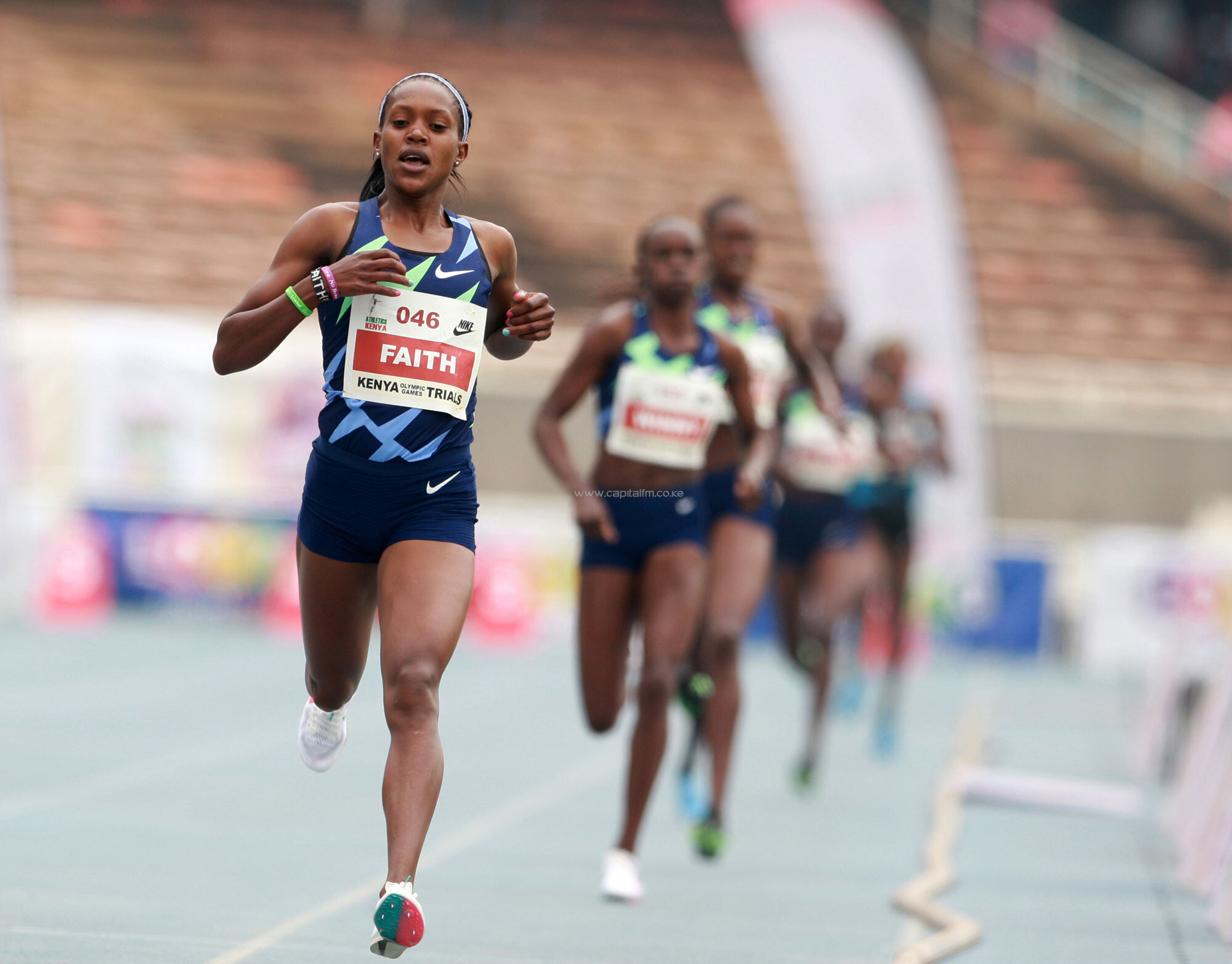
In a wide-ranging exclusive interview with Euan Crumley in the latest issue of AW, which is on sale from November 10, among other things the Kenyan discusses how she wants to leave a legacy, as well as outlining what she believes needs to happen in the fight against doping in her home country.
The 28-year-old still has more ambitions to fulfil on the track, too, but admits that the future will see her heading down a road which she hopes will lead to even more success.
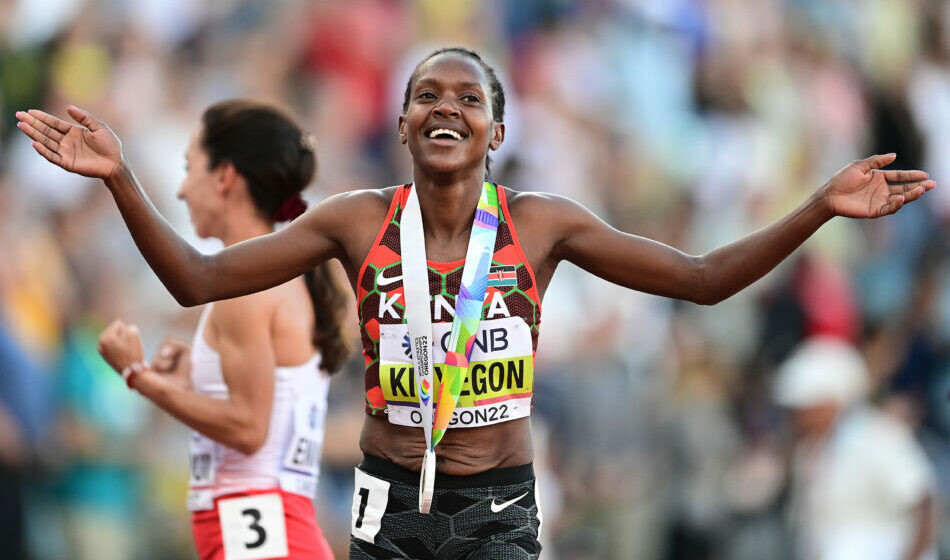
Kipyegon trains at the camp in Kaptagat from which her close friend Eliud Kipchoge hones his mastery of the marathon, and admits that seeing the world record-holder at work has inspired her to tackle the 26.2-mile event in the future.
“I don’t see myself as a great, yet,” says Kipyegon who, like Kipchoge, is also coached by Patrick Sang. “I need to achieve more towards the marathon and I’m really looking forward to following in Eliud’s footsteps.
“He has already shown us the way and, training with him, I see what he does every day.
“I will work my way up towards the marathon in future and I will be the greatest.
“When you stay with marathon runners, you don’t see yourself as a 1500m athlete any more – you see yourself as a marathoner. You follow them on long runs, you follow them on fartleks and you see every day what they do. [It makes you feel like] ‘I need to do this’.
“That’s motivation from Eliud, from the whole group in Kaptagat that has really inspired me to see myself in the marathon in future.
“[When I will run one] is something I can’t predict, but I want to build myself and build my commitment towards marathon and just go step by step [through the distances] towards it.”
Kipyegon is one of the nominees in this year’s AW Readers’ Choice Awards, which launch this week in the magazine and online. This is your chance to pick which individuals, across a range of categories, you think have excelled in 2022.
Elsewhere in the issue, we take a deep dive into the state of play when it comes to officials. What does the future hold for those who make athletics tick? Paul Halford finds out, plus we feature a brilliant extract from new book Unsung, in which Alan Bell takes us into the world of the starter.
As we come to the end of the major road racing events season for the autumn, a trend of lower event entry levels is becoming all too evident. Tim Adams asks where all the runners who were expected to provide a boom for mass participation races post Covid have gone, while author Damian Hall examines the environmental impact of events and outlines what runners can do to make a difference in the climate crisis.
Elsewhere in the issue, there is also an exclusive interview with international marathon runner Callum Hawkins, who continues his recovery from injury, while our packed performance section features plyometric tips from coach John Shepherd, training insight from Amelia Quirk and running shoe guru Paul Freary tests out the best gear for off-road adventure this winter.
With coach and commentator Geoff Wightman the focus of this month’s Ask The Athlete, Richard Whitehead recalling his greatest race and columnist Katharine Merry looking at the huge impact felt when the rules are broken, there are plenty of reasons to pick up your copy.
by Athletics Weekly
Login to leave a comment
Laura Muir and Jake Wightman are the winners of the 2022 NYRR Fifth Avenue Mile
The world’s top middle-distance runners took to the streets of New York City on Sunday morning for the Fifth Avenue Mile, one of the final races of the summer racing season. For the second year in a row, two Scottish runners took the win, with Laura Muir winning the women’s race in a course record time of 4:14.8 and Jake Wightman winning the men’s race for the second consecutive year.
The Olympic 1,500m silver medallist, Muir, won the women’s race by three seconds over American Nikki Hiltz, becoming the fastest female in the 41-year history of the race. Eleanor Fulton of the U.S. finished third in 4:18.0.
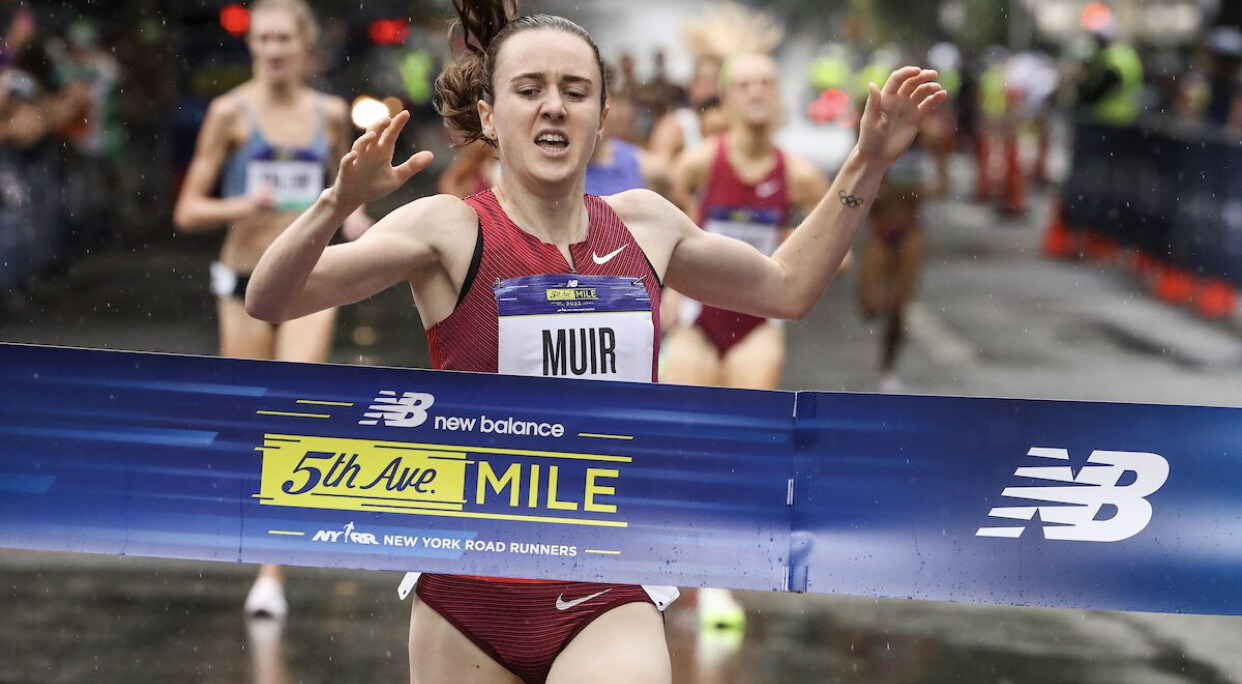
Muir had the fastest seed time heading into the race and led the race from the gun to tape. The previous mile record was set by Jenny Simpsonin 2019 (4:16.2)
Moments later, the world 1,500m champion, Wightman, successfully defended his 2021 title in 3:50.0 ahead of his British compatriot Jake Heyward. Wightman has now won the Fifth Ave. Mile in three of the last four years. American Sam Prakel finished third in 3:51.0, ahead of Canada’s William Paulson, who was fourth in 3:51.3.
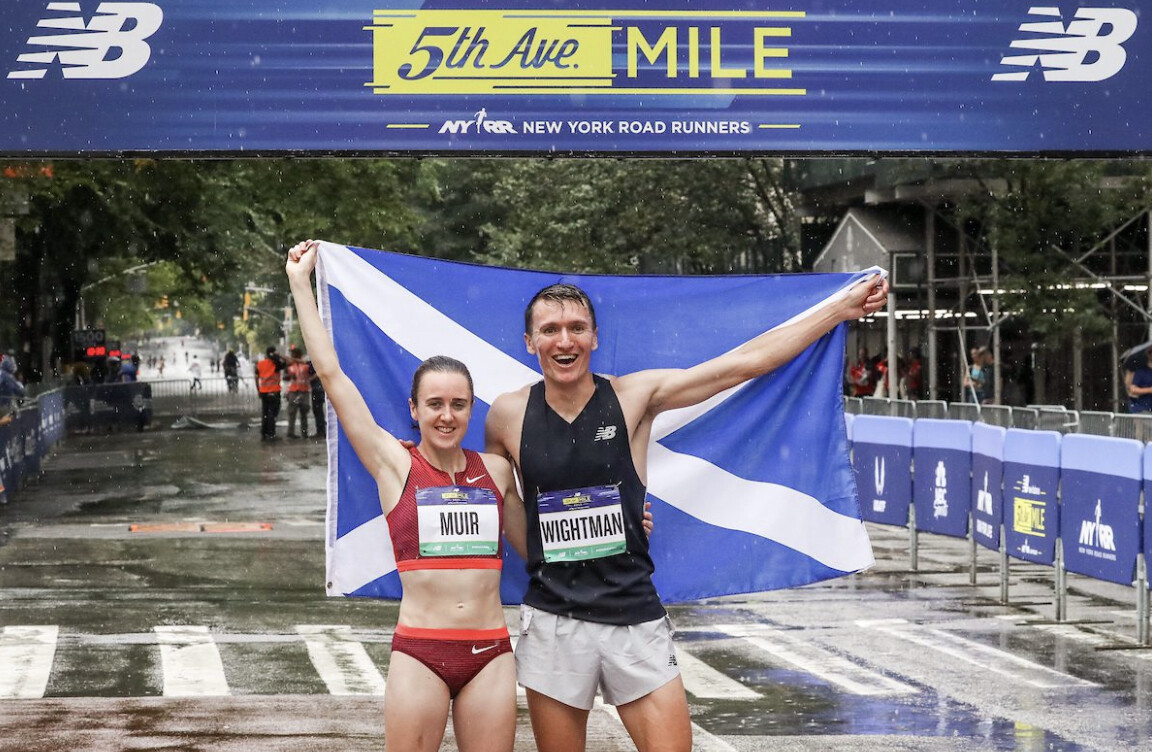
Muir and Wightman took wins today despite both competing and earning medals at the Diamond League Finals in Zurich on Thursday night.
by Running Magazine
Login to leave a comment
New Balance 5th Avenue Mile
The New Balance 5th Avenue Mile opens a beautiful 20-block stretch of 5th Avenue to runners of all ages and abilities who want to run their best mile in New York City. Special races include a youth mile, the George Sheehan Memorial Mile for runners age 60 and over, the NYRR Road Mile Championships, and Olympic-caliber professional men's and women's...
more...Spain’s Mariano Garcia Runs Smart Race To Win Thrilling European 800m Title
On the final evening of the 25th European Athletics Championships at Olympic Stadium here, Spain’s Mariano Garcia and Italy’s Yemaneberhan Crippa captured the final two distance medals on offer. Garcia, who won the world indoor title at 800m last March, added the European outdoor title here tonight in a personal best 1:44.85. Crippa, who won the bronze medal in the 5000m five days ago, won the 10,000m in 27:46.13. He became the first Italian man to win the European 10,000m title in 32 years.
Although he came into the race as the current world indoor champion, Garcia wasn’t the favorite for gold. He had never broken 1:45 –either indoors or out– and he was faced with the daunting challenge of beating reigning world 1500m champion, Jake Wightman of Great Britain. Wightman, who stepped down in distance for these championships after running the 1500m at both the World Athletics Championships and Commonwealth Games, said before these championships began that he was particularly motivated to compete well here.
“Coming here to do the 800 is just something I’m actually excited to do,” Wightman said. He continued: “I want to show I can be as competitive over eight as fifteen.”
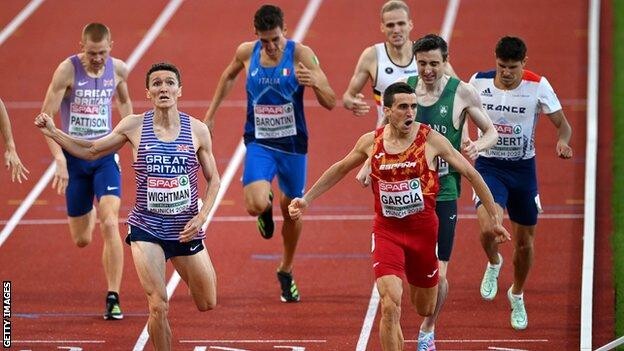
And indeed, he was. Running an intelligent race, Wightman let Garcia lead at 400 meters (52.07). The Scotsman sat in the main group with Ireland’s Mark English and his British teammate Ben Pattison and continued to stay slightly behind Garcia through 600 meters (1:18.59). Wightman was where he wanted to be.
“I was just ready to race and did not care too much about the splits,” Wightman told the European Athletics mixed zone team. “It was more about the position in the race to get medals.”
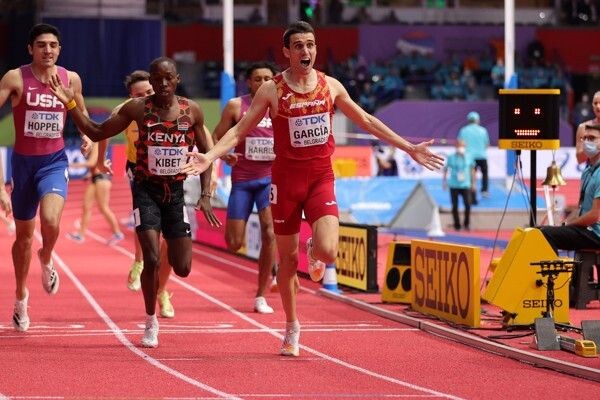
Coming around the final bend Garcia had the slightest of leads, but he was running on the rail and had the shortest line to the finish. English was also well-positioned behind Garcia, while Wightman was out in lane two and also had Belgium’s Eliott Crestan to pass who was between him and Garcia. The Spaniard’s strategy of leading in the second half was about to pay off.
“When I decided to take the lead, I knew I had to give it my all,” Garcia said. “Because towards the end of the race, that’s when you have less energy, so I need to get this right.”
In the final 100 meters Wightman was able to make it close. He got ahead of English and was closing down Garcia but just couldn’t catch him before the line. Only 6/100ths of a second separated them, and Wightman got silver in 1:44.91.
“I was very close to the gold, and I would be very glad to get that, but still I am pretty happy with the silver,” Wightman said. “I was not quite close enough in the last straight and it is tough when you are not that close with a strong opponents.”
English, who won the bronze medal at his first European Championships in 2014, got the bronze in 1:45.19.
“I am really pleased to get the bronze medal,” English said. “I can’t really ask for more.”
Sweden’s Andreas Kramer nearly caught English and finished fourth in 1:45.38. He was in last place with 110 meters to go in the race.
Crippa’s victory was achieved by a fast start, a slow middle and a fast finish. France’s Jimmy Gressier decided to attack the field right from the gun, running an improbably-fast first lap of 61.6 seconds. The Frenchman said that he felt most comfortable going hard from the gun.
“I go fast because it’s my best strategy,” Gressier told Race Results Weekly in English. “I like (to) run fast. It is the same as cross country; I like to push the run.”
The field immediately strung out. Gressier had Britain’s Marc Scott and Turkey’s Aras Kaya right on his heels through 3000m (8:09.9), and the leaders were on pace to run 27:13. Scott expected Gressier to push early and was ready for that.
“I thought he’d do something like that just knowing the type of character he is,” Scott told Race Results Weekly. “But it’s nothing most of the field can’t handle because we all knew it was going to come back.”
Indeed, when Scott took over the lead at 3600 meters, lap times fell to the 70-second range and the field bunched up again. France’s Yoann Kowal tried a solo breakaway but by 4800 meters he was absorbed. Kaya was the nominal leader at 5000m (13:54.2) with Crippa and Scott right behind. Crippa, who won the bronze medal at the 2018 edition of these championships, was feeling confident.
“Compared to fours years ago, in Berlin 2018, I feel I have changed a lot – especially my mindset,” he said. “I am much stronger mentally than I was in the past.”
He used that mental strength to hold back in the second half of the race. He led for five laps through 8400 meters averaging a not-too-fast 67 seconds per lap. He didn’t immediately react when Norway’s Zerei Kbrom Mezngi took the lead at 8800 meters and built up a small lead over Crippa, Gressier, Britain’s Emile Cairess, and France’s Yann Schrub. Instead, he waited for the final 200 meters to try and catch the tall Norwegian. The crowd roared as Crippa began to close from at last 50 meters back.
“I believed in myself, and I knew I could do what I did tonight,” Crippa said.
With about 80 meters to go, Crippa passed Mezngi to seal the victory. Mezngi held his speed and got the silver in 27:46.94, a personal best, while Schrub managed to pull away from Gressier and get the bronze in 27:47.13, also a personal best.
“I kept some energy and was able to use it on the last meters,” said Schrub, who is a medical student. “I would have never thought that I could win a medal today.”
by David Monti
Login to leave a comment
European Athletics Champioships Munich 2022
European Championships Munich 2022 will be the biggest sports event in Germany since the 1972 Summer Olympics. From 15-21 August 2022, European sport will be united as its best athletes compete for the highest accolade of their sport on the continent – the title of ‘European Champion’. The second edition of the European Championships will feature nine Olympic sports:Athletics, Beach...
more...Laura Muir Storms To European 1500m Title
With a savage move about 25 meters before taking the bell, Britain’s Laura Muir overwhelmed the field here at Olympic Stadium tonight and successfully defended her European Athletics 1500m title. Muir, a Scotswoman, ran the final lap in 60.4 seconds and won in 4:01.08. Her victory tonight came just 12 days after she won the Commonwealth Games title at the same distance.
“Physically I’m not too bad, but mentally, oh my God that was hard,” Muir told reporters. “I’m used to feeling tired, I’m used to training and racing, but that was something else.”
When Muir, 29, consulted with her coach Andy Young before the race they both agreed that her ability to jump the field late in the race was her best weapon. So, she immediately dropped to the back of the twelve-woman field after the gun to save energy, then waited for two laps to go before moving to the front. Ireland’s Ciara Mageean shadowed her closely, and Poland’s Sofia Ennaoui tried to stay close. Muir was only just beginning her wind-up.
“Speaking with Andy, we knew I could run the last lap faster than anybody else,” Muir explained. “So, if I was tired the best –the safest– way to run it was to do that.”
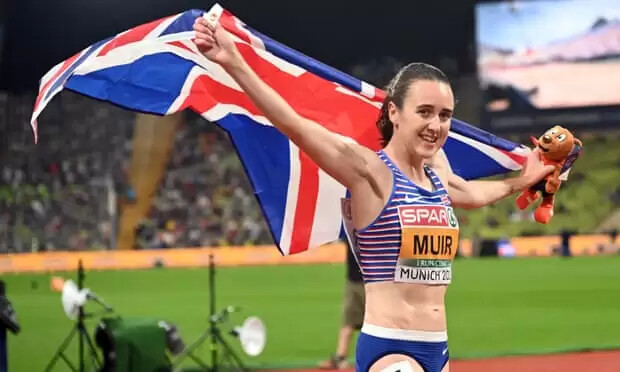
But Mageean would not give up so easily. She had planned for this exact kind of race.
“It’s funny visualizing different types of races, and in my 20 minute warm-up that’s exactly what I visualized,” Mageean told Race Results Weekly. “Laura’s probably going to go, and in my mind she’s going to go a little sooner than at Commonwealth Games; she’s going to go earlier, which she did. I said to myself, you be her shadow.”
Coming down the homestretch the penultimate time, Muir switched on the afterburners even before getting to the bell. Mageean reacted immediately and stayed close, but Ennaoui was too far back to catch up (she would have to settle for bronze in 4:03.59). Mageean was still close as she and Muir rounded the final bend, but Muir was just too fast.
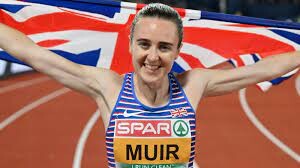
“I thought going up the home straight that maybe I was going to have her, but she’s just got a little bit more strength than me,” said Mageean, who ran a season’s best 4:02.56. “Laura’s a 3:55 runner and I’m just not there yet.”
With her gold medal tonight, Muir won medals at all three of this summer’s major championships. At the World Athletics Championships in Eugene she took bronze in the 1500m, and at the Commonwealth Games she won the 1500m and took bronze in the 800m.
“I really wanted to win; to get a medal at Worlds as well I’m so pleased,” Muir said.
There was more success for the British team today in the semi-finals of the 800m.
During the morning session all the medal favorites advanced to the final of the women’s 800m, including all three British women who ran today. In the first of two heats, Olympic and World Championships silver medalist Keely Hodgkinson got the win in 2:00.67 and confirmed her status as the gold medal favorite. She finished comfortably ahead of Poland’s Anna Wielgosz (2:01.05) and Ireland’s Louise Shanahan (2:01.15).
“I’m just really happy to have got through,” Hodgkinson told the British Athletics media team. “I’m tired, but I’m taking it race by race. I could have taken it on, but the Polish girl set the pace which certainly helped me, so I’m just pleased to have got the job done.”
Frenchwoman Renelle Lamote narrowly won the second heat over Hodgkinson’s British teammate Jemma Reekie, 2:00.23 to 2:00.30. A third British woman, Alex Bell, got third in 2:00.53 putting three British women into the final.
“It’s great to see all three of us through,” said Bell who finished sixth in the Commonwealth Games 800m. “I think even though I have been racing for so long, it’s only been this season that races are stressing me less when it gets bargy and clumpy and trippy. In the past I have panicked at that point, so I am just conserving more energy, because the more composed you are the more energy you save.”
Much to the delight of the German fans here, Christina Hering advanced on time by finishing fourth in the second heat in 2:00.86.
“WOW,” Hering wrote on her Instagram just after the race. “Home crowd gave me wings.”
In the men’s 800 semi-finals tonight, reigning world 1500m champion Jake Wightman advanced to the final by going from fifth place to second place in the homestretch of heat two, stopping the clock in 1:46.61. The Scotsman finished behind Spain’s Mariano Garcia (1:46.52) and just ahead of Ireland’s Mark English whom Wightman passed in the final 20 meters.
Although he made the final, Wightman wasn’t happy with his performance.
“I didn’t run good there,” he told the British Athletics media team. “I think the one thing I am taking from it is I must be pretty fit because tactically I was all over the place, but I was still able to get through. I hope I don’t get lane one in the final as I didn’t run too well from there.”
The first heat went slow, and Poland’s Patryk Dobek (the 2021 Olympic bronze medalist) only managed to finish fourth in the final sprint and did not make the final. Instead, Sweden’s Andreas Kramer (1:48.37), Italy’s Simone Barontini (1:48.51) and France’s Benjamin Robert (same time as Barontini). Moved on to the final. Kramer performed a deft move in the final 50 meter, slicing through the center of the field to get the win.
“I just waited for it, because I didn’t want to disturb anyone,” Kramer told Race Results Weekly. “Just kicked and waited for the small opening. Then when it came, I just went for it.”
In tonight’s other medal event within the distance disciplines, Finland’s Topi Raitanen fended off a triple attack from the Italian twins Osama and Ala Zoghlami and their teammate Ahmed Abdelwahed. Raitanen, 26, helped set the early pace then allowed the Italians to lead the final laps before making his bid for victory.
“My strategy was to keep a decent pace, and everybody’s happy and nobody wants to push harder, so I saved some energy for the last laps,” Raitanen told Race Results Weekly. “Italy guys, really strong guys, started to push the pace and I just knew that I needed to follow them and keep up, and just wait the last lap so everything is possible.”
Coming down the backstretch on the final lap, Raitanen moved to the lead then carefully took the final water jump. He began to sense that victory would be his.
“After the last water jump I saw a small gap behind me and I really can take the medal,” he said. “I was just taking it really, really carefully and not fall down. A couple of meters and I was watching the screen and I still had a small gap behind me and I know I can win.”
by David Monti
Login to leave a comment
European Athletics Champioships Munich 2022
European Championships Munich 2022 will be the biggest sports event in Germany since the 1972 Summer Olympics. From 15-21 August 2022, European sport will be united as its best athletes compete for the highest accolade of their sport on the continent – the title of ‘European Champion’. The second edition of the European Championships will feature nine Olympic sports:Athletics, Beach...
more...VO2 Max Output As A High-Performance, Anti-Aging Superweapon
This article is purely theoretical. Some readers will think that the theory is obvious on its face, and others will think that it's wrong. The joy of talking about training theory at the intersection of science and anecdote is that there are too many physiological metrics to track, and too many variable responses to interventions, so the resulting conclusions fall somewhere on the spectrum between fundamental truth and biased bullshit. Throughout, I'll try to check my biases and acknowledge the unknowns.
You know I'm nervous about writing an article when the first paragraph is undercutting myself with disclaimers. To be fully real with you: I am unsure on this one.
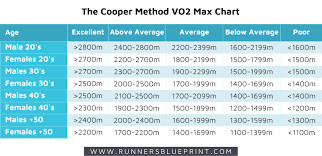
This article tries to articulate an unexpected observation that now forms a cornerstone of my coaching approach, but I have too much self-doubt to ignore my biases. It's like looking at a diagram of constellations in the night sky. The diagram might say: "This is the mighty hunter, pursuing the courageous bear."
So remember, as I try to break this down, I'm describing a scene with a mighty hunter, but I'm painfully aware it might just be dots and a phallus.
Here it is, distilled down to 3 sentences:
Output at VO2 max while climbing (measured via grade-adjusted pace) may have a high predictive value for athlete progression and regression over time, particularly with age.
The metric likely is a proxy variable for limitations of mechanical output that are faced by some athletes from the start of their running journeys, and confronted by all athletes with age.
Constant reinforcement of the metric may improve performance at all effort levels, including long ultras, and can seem to reverse the athletic decline process in some cases.
That's it. To paraphrase The Lion King: Simba, let me tell you something that my father told me. Look at the stars. YOU SEE WHATEVER YOU WANT TO SEE.
Observations From Athlete Training
Let's have some fun with training theory, reverse-engineering why I think this conclusion is significant and may be overlooked. When my co-coach/wife Megan and I started coaching (we talk about this topic more on episode 114 of our podcast), we began as acolytes to coaches like Renato Canova and Jack Daniels who excelled with Olympic-level athletes on the road and track.
We added some wrinkles here and there based on data we saw along the way, which seemed to especially manifest themselves with athletes that might not have Olympic-level VO2 maxes, whether due to genetics or age (VO2 max measures peak oxygen utilization during exercise, has a strong genetic component, declines with age, and is not highly trainable). You have probably seen me write about a lot of those wrinkles: plenty of fast strides, a higher proportion of short yet controlled intervals, and the heavy use of hill intervals year-round.
But Megan and I both kept hitting the same stumbling block: athletes over age 40 just didn't respond as well as we would like.
So we tried something new. With sub-ultra trail runner Mark Tatum and a few other athletes, we moved almost every workout into the hills, with an astounding number of power hill strides, and at least one session most weeks with short hill intervals. Mark and some others had breakthroughs, seemingly giving a big middle finger to the aging process. For Mark, a few years of training later, it led to an overall win at the Dipsea Race.
That made sense with aging athletes. Hills reduce impact forces and may increase muscle recruitment/mechanical demand (2017 review article in Sports Medicine), and short intervals may counteract natural VO2 max reductions, so they are great for the aging athlete. I've written about that before, as have others. It was nothing new, although maybe the approach was more committed to the bit.
But then something fascinating happened. A few younger athletes that we coached also seemed to have issues where traditional speedwork didn't lead to the expected adaptations. Maybe it was repeated injury cycles without clear explanations, or maybe it was just an unexplained performance reduction. So we tried a similar intervention. While results varied, the hill emphasis had a substantial effect size on results in our team, including preceding a couple national championships.
Now we were intrigued. Is it just the specificity of hills for trail running? Possibly, but we saw similar improvements in some road runners. Could it be an improvement in the VO2 max variable? That's doubtful, since there's little evidence that it can increase much in trained athletes. Lower injury rates? That likely plays a big role, but later we started to see similar results in athletes who rarely got injured. Or, to summarize: The hunter, or a random association of dots?
As we started to incorporate short hills more for all of our athletes, with all different backgrounds, we started to hone in on one primary explanation: the unique neuromuscular and biomechanical demands of mechanical output in running.
Here, mechanical output is shorthand for how aerobic processes interact with the musculoskeletal, biomechanical, and neuromuscular systems to create speed. A thorough explanation of mechanical power output is in this 2018 article in the Journal of Biomechanics, but just think of it as how each stride transmits force, rather than as conveying everything that goes with the technical term. For our purposes, effort level at VO2 max does not refer to the specific physiological measure, but is a general shorthand for high-yet-controlled outputs.
We have seen that if an athlete can improve their output around VO2 max on hills, they can counteract - even reverse - part of the athletic aging process at all distances. The reason that the short hills should lead to more broad-ranging development is that athletes accumulate lots of aerobic work over time, and those lower-level aerobic gains accumulate.
There is nothing new about this concept. For example, Norwegian training principles are so hot right now. Most of the focus is on the high volume of threshold work. But if you look closely at some of the sample weeks, you'll sometimes see a day full of short, fast hills (and that's for young, immensely talented athletes). Similar concepts were rumored to be included in the training of Jake Wightman, World Champion in the 1500 meters. Whether it's Lydiard-based systems from the 1960s and 1970s, Canova-inspired hill sprints, or hybrid approaches, once you start looking, you'll see these elements all over, even for athletes that seem to have almost no genetic or age limitations.
Possible Physiological Explanation
Okay, let's go back to first principles. VO2 max peaks at a young age, and it isn't highly trainable. So how do athletes keep getting faster if their peak oxygen intake is staying flat or declining?
The answer is that their output at VO2 max improves, usually measured as velocity at VO2 max, even as the denominator doesn't improve. The prototypical example is Paula Radcliffe (see this 2006 study in the International Journal of Sports Science & Coaching), whose VO2 max actually decreased from when she was a champion junior athlete, but her running economy (the amount of energy she used to run fast) improved by 15 percent. Those running economy improvements likely come from some mix of lower-level aerobic development leading to more efficient cellular processes of fatigue management, neuromuscular/biomechanical efficiency, and mechanical output. I'm not concerned with how much oxygen an athlete can consume, but what they do with the oxygen they have.
Running economy can be measured across multiple intensity levels. At the intense end of the spectrum, you have velocity at VO2 max (think 10ish minute effort, with variance). More toward the middle is critical velocity or velocity at lactate threshold (~30- to 60-minute effort). At the easier end of the spectrum is velocity at aerobic threshold (2-3+ hours, depending on the athlete). With age, vVO2 goes down first (often in an athlete's mid-20s), followed by vLT (30s or later), then vAeT (which can stay higher for a long time due to the aerobic component). That makes intuitive sense-athletes move up in distance with age by necessity as VO2 max and mechanical output go down, while long-term aerobic development is ongoing.
Side note: there are 10 statements in the preceding paragraphs that are controversial in exercise physiology. Sorry about that. If there's anything I learned from eating a lot of cereal as a kid, it's that if you spot them all and mail proof of purchase to General Mills, they might send a free toy!
Back to it. Our theory is that focusing too heavily on the aerobic side of the running economy equations misses out on the mechanical power side. Yes, VO2 max will decrease with time. But based on what we have seen, the mechanical output associated with VO2 max doesn't need to decrease much at all. And it can even go up very far into an athletic journey!
Mechanical Limitations
Why is that significant for an athlete competing in longer races? Think back to the experienced 60-year old athlete who progresses a bunch with short hill intervals. Their VO2 max number likely can't change much at that point of their athletic journeys, but we think that their mechanical output can. And because mechanical power is a strong performance indicator at all efforts in aging athletes, it doesn't matter that the short hills are non-specific to their race distances. It's the highest-yield stimulus for output, and it pushes back the strongest against the inertia of aging, so they get faster at everything.
If you're 50+, I think that you can take that to the bank. Focus on mechanical output/strength alongside aerobic development, and you'll be rich as hell. Now, let's dive into a more speculative investment.
The hardest logical leap is to take these principles and apply them to younger athletes. Why might they progress even when they aren't limited by mechanical output in the same way?
Our theory: they are limited in that same way, just to a less clear extent. In fact, most of us have some mechanical limitations that are semi-independent of traditional aerobic development.
Talented, elite athletes are the origin point for many training theories, and most of those athletes have few limits associated with vVO2-that's why they're elite in the first place. So they can focus more heavily on the aerobic-input components of speed, plus specific training for their events. But for most of us, mechanical power at the top-end of aerobic capacity is a limiter from when we are young, and it only gets worse with time.
That's one reason we strongly encourage athletes to eat enough, always. Running is a power sport, even if it doesn't always feel that way. And that may add another explanation of why athletes who restrict food almost never improve over time.
Theoretical Implications
Since mechanical output is the true theorized limiter, it may be better to do many of the sessions targeting it on uphills. Flat intervals are fantastic and important at times, but many athletes end up not having the biomechanical and neuromuscular efficiency to translate their aerobic ability into the same output. In our data, an athlete who is not extremely fast (in a road/track sense) will often have a faster grade-adjusted pace on a 2-minute hill interval than pace on a 2-minute flat interval, often by 20-30 seconds per mile. Combined with the higher muscular demand and lower injury risk, output around VO2 max seems to be optimized on hills.
A quick disclaimer: we could easily be confusing cause-and-effect here. Perhaps it's all driven by reduced injury rates and lower soreness levels, creating more consistency over time (or any other explanation you can think of). Going backwards from outcome to mechanism is problematic for 99 reasons, and for the strength of this theory, each and every one of them is a bitch.
But the practical takeaway is this: we have seen that if an athlete can improve their output around VO2 max on hills, they can counteract - even reverse - part of the athletic aging process at all distances. The reason that the short hills should lead to more broad-ranging development is that athletes accumulate lots of aerobic work over time, and those lower-level aerobic gains accumulate.
The aerobic system can continue to improve, but for many athletes, it runs into a ceiling that we think is often set by mechanical output. If you raise that ceiling, there can be a positive feedback cycle where improved mechanical output allows the improving aerobic system to translate to better running economy, which improves mechanical output more, and so on.
The Big Takeaway
Don't let your mechanical output be too strong of a limiter, no matter what training approach you use. For us, that involves three main elements.
First, athletes do hill strides year-round to encourage max power development. That can be as simple as 2 sessions of 4-6 by 20-30 second fast hills in the 2nd half of runs each week, or adding hill strides after a flat workout. Or it can be bigger, dedicated sessions like in the Norwegian training sample weeks. Flat strides can also work for this purpose, particularly for advanced athletes.
Second, athletes periodically do moderately hard hill intervals, as often as weekly for aging or injury-prone athletes, and as little as every 6 weeks in durable track or road athletes (with other sessions being on flat or rolling terrain). Our usual guideline is 12-20 minutes of total intervals, with each interval being 3 minutes or less with run down recovery between them. Simple go-to examples are 16-20 x 45 seconds, 8 x 90 seconds, 6 x 2 minutes, or 5 x 3 minutes, though you can get creative with it based on what's the most fun for you. Mix up the gradient, with the sweet spot being 8%, but it's cool to have fun with steeper or shallower grades, too.
Third, do strength work. We are partial to Mountain Legs and Speed Legs, but anything that improves your strength can work. Just avoid overdoing it.
And remember: this is just one element of our training theory, and our training theory is a grain of sand on the beach of training theories that are out there for free on the internet. Even for us, it interacts with hundreds of other concepts. Listen to your body and do what works for you. Ignore this if you disagree. Send all of your complaints to General Mills.
But don't accept that getting weaker is a foregone conclusion. Aging is inevitable. If you zoom out far enough, slowing down is inevitable, too. But slowing down is not inevitable tomorrow or next year. And I think there's a strong argument that it's not inevitable 5 or 10 years from now either. What do we say to
by Trail Runner Magazine
Login to leave a comment
Ingebrigtsen to launch another 1500/5000m double attempt in Munich 2022
Norway’s Jakob Ingebrigtsen will be heavily involved in the Munich 2022 European Athletics Championships, part of the wider multisport European Championships, as he defends the 1500m and 5000m titles he won as a 17-year-old at the Berlin 2018 European Athletics Championships.
The Olympic 1500m champion and world 5000m champion will not, however, face the either of his brothers Filip and Henrik who are both injured nor the Brit who unexpectedly beat him to the world 1500m title in Eugene last month, Jake Wightman.
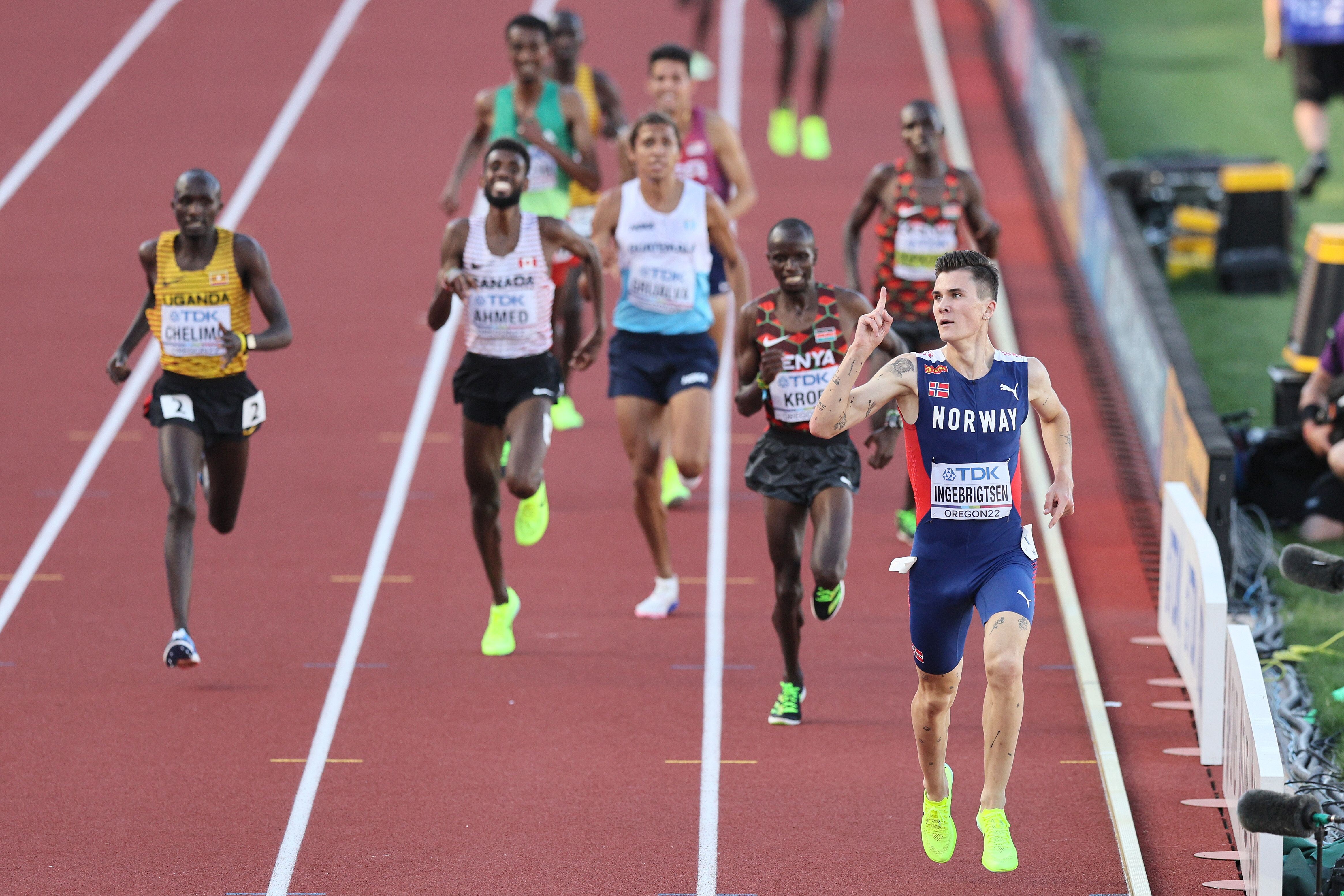
The latter is concentrating on the 800m in Munich – the event he originally planned to do at the Birmingham 2022 Commonwealth Games until he was nudged back to the longer distance because of the number of friends and family who had bought tickets for the final last Saturday when he won bronze in a high quality final in 3:30.53.
With a personal best of 1:44.18 from 2020, Wightman has a realistic chance of adding another European medal to the bronze he won over 1500m in Berlin four years ago – and his victory over 1000m at the Monaco Diamond League meeting on Wednesday night in 2:13.88, ninth fastest of all-time, will have done his confidence no harm at all.
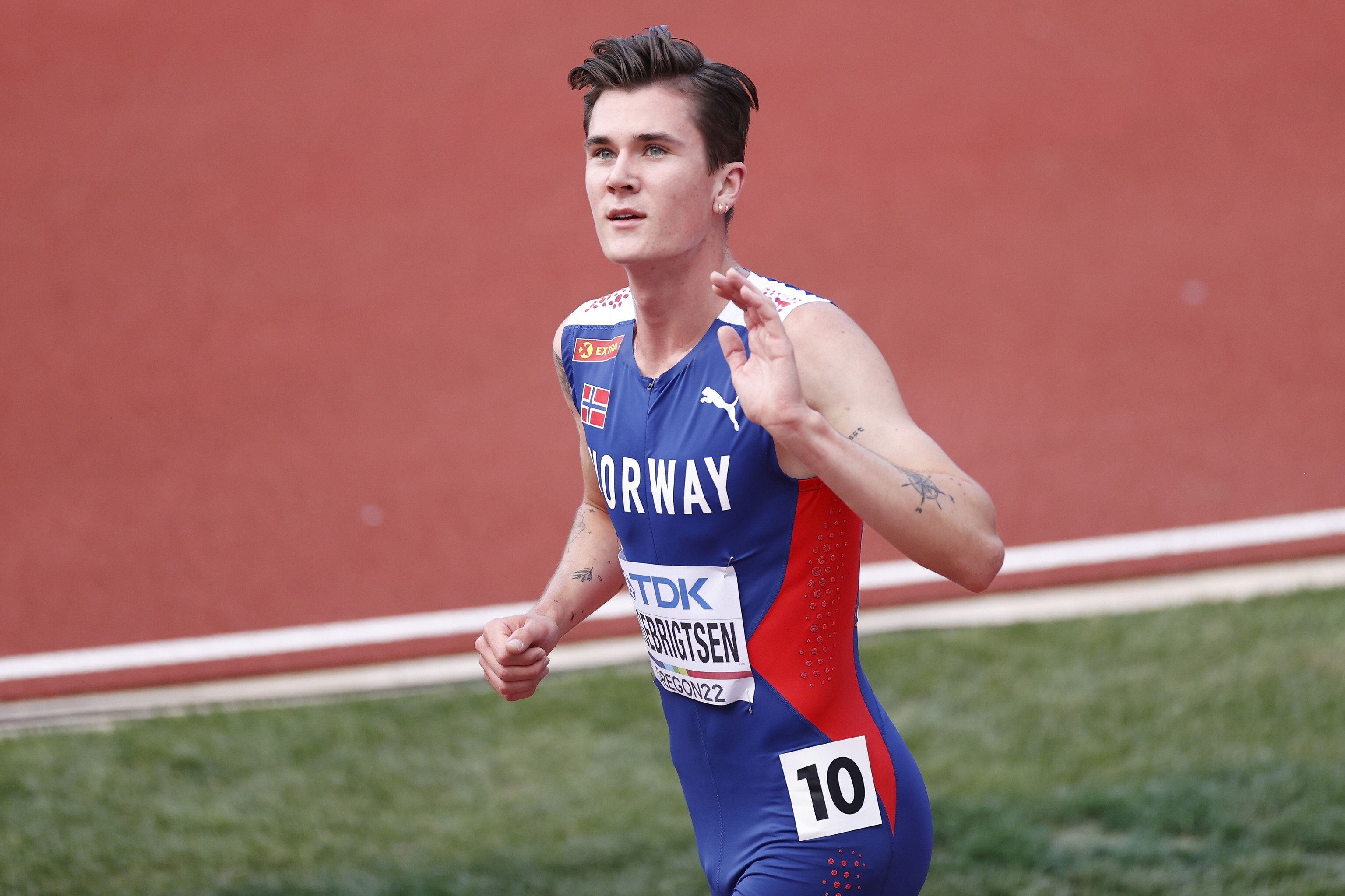
France’s Benjamin Robert has the fastest 2022 time of all entrants – the 1:43.75 he clocked in winning at the Paris Diamond League on 18 June in boisterous fashion, squeezing in between the two leaders with enough physicality to be disqualified before being reinstated on appeal. If things get physical in Munich, Robert is unlikely to come off second best.
Tony van Diepen is also well acquainted with the hurly-burly of the track having been a part of the Dutch teams that won 4x400m silver at the Tokyo 2020 Games and mixed 4x400m silver at the World Championships in Oregon.
Individually, van Diepen has won European indoor silver in 2021 and bronze in 2019 over 400m and has a best 800m time of 1:44.14 set this year in Paris after M. Robert had burst past him at the Stade Charlety.
Robert’s compatriot Gabriel Tual, seventh in last year’s Olympic final, is third fastest on this year’s European list with 1:44.23, set in – you’ve guessed it – Paris. But the French team will be without the popular Pierre-Ambroise Bosse, the 2017 world champion, due to injury.
Poland’s Patryk Dobek has run 1:44.59 this year and even though he exited in the heats at the World Athletics Championships, he can also draw upon the experience of winning bronze at last year’s Olympics in Tokyo.
Other medal prospects include Sweden’s Andreas Kramer (1:44.59), Ireland’s Mark English (1:44.76), fellow Brits Ben Pattison (1:44.60) and Kyle Langford (1:44.61), Spain's reigning world indoor champion Mariano Garcia (1:45.12) and the very experienced former two-time world medallist Amel Tuka from Bosnia and Herzegovina (1:46.15) whose lifetime best of 1:42.57 dates back to 2015.
Aside from Bosse, another notable absentee will be the three-time reigning champion Adam Kszczot from Poland who retired at the start of the year.
Ingebrigtsen's path to double gold is clearer although not without challenges
With Wightman elsewhere, Ingebrigtsen will surely feel happier about the prospect of his 1500m defence, but he will still face a field full of Spanish and British medal threats.
Second on this year’s European list with 3:30.20, Spain’s Mario Garcia will be looking to give the Norwegian wonderboy another run for his money after finishing fourth - two places behind Ingebrigtsen - in Oregon.
The Brits dominate the 2022 European list with six athletes in the top nine and despite the absence of Wightman and Olympic bronze medallist Josh Kerr, Jake Heyward (3:31.08), Neil Gourley (3:32.93) and Matt Stonier (3:32.50) form a trio with clear medal-winning ability.
But Ingebrigtsen, who ran 3:29.47 to take world silver, and ran an Olympic and European record of 3:28.32 at the Tokyo 2020 Games, should have enough to cover any challenge in both events.
In the 5000m, it might be the athlete who appears second from last on the entry-list in terms of season's bests who could provide the biggest challenge to Ingebrigtsen. That athlete is Spain’s Mohammed Katir who won a bronze medal behind Ingebrigtsen in the 1500m at the World Athletics Championships in Oregon and will be focusing solely on the longer event in Munich.
Katir, 24, has a modest season's best of 13:43.61 from the Spanish Championships but he showed what he can do over the longer distance by running a national record of 12:50.79 in Rome last summer in the same race where Ingebrigtsen broke the European record with 12:48.65.
Another strong potential challenger is the experienced Spaniard Adel Mechaal, who was fifth in the Olympic 1500m final last year and set a 5000m personal best of 13:06.02 in Oslo in June. Mechaal didn't make it through to the final of the World Athletics Championships but that wasn't too surprising as he had only just recovered from an untimely bout of coronavirus which forced him to miss the 1500m.
In both the 5000m and 10,000m, watch out for Italy’s Yemaneberhan Crippa, 25, who has been a star performer in numerous European competitions, winning bronze at the 2019 European Cross Country Championships and the European 10,000m Cup in the same year.
Crippa has the fastest time among the entrants based on season’s best performances in the 10,000m with 27:16.18 ahead of another showboating, talented figure in Jimmy Gressier of France – he of the famous faceplant as he won the 2018 European U23 cross country title. This didn’t stop him from walking through the line to win the same title the following year, demonstrating just how much time he had to spare.
There weren’t quite the same histrionics at the SPAR European Cross Country Championships in Dublin last December but Gressier let his running do the talking and he came away with his first senior medal in a race where Ingebrigtsen ruled triumphant once again.
Gressier will be focusing solely on the 10,000m in Munich and the Frenchman is the second fastest performer this year with 27:24.51 which he set at the European 10,000m Cup on home soil in Pacé in May when he ran away from the field for the individual title.
Login to leave a comment
European Athletics Champioships Munich 2022
European Championships Munich 2022 will be the biggest sports event in Germany since the 1972 Summer Olympics. From 15-21 August 2022, European sport will be united as its best athletes compete for the highest accolade of their sport on the continent – the title of ‘European Champion’. The second edition of the European Championships will feature nine Olympic sports:Athletics, Beach...
more...America's Heather MacLean runs sub four minute 1500m in Monaco
Heather MacLean became the 12th American woman ever to break 4:00 in the 1500m today in Monaco, running 3:58.89. When she finished out her collegiate eligibility at UMass in 2018, she was a 4:19.19 1500m runner.
The Monaco track is known for its speedy middle-distance performances and in the women’s 1500m Faith Kipyegon came within three tenths of a second of breaking Genzebe Dibaba’s world record with 3:50.37.
Allie Wilson led through 400m in 59.89 and 800m in 2:01.64 before Adelle Tracey took over to keep the pace as hard as possible. Kipyegon hit the front with 600m to go and despite hammering the final lap she fell agonisingly short of the mark but still went No.2 on the all-time rankings.
America's Heather Maclean (3:58.89) and Elise Cranny (3:59.06) were second and third with sub-four performances.
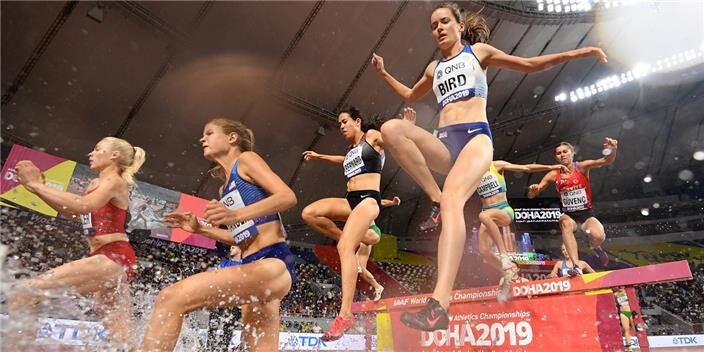
“I have been chasing the time for quite some time but I am happy with the personal best,” the Olympic and world champion said. “I knew this was the best place to get the world record but I am so disappointed I lost it in the last metres. I hope for the best next time. We will see when.
“I was definitely ready for it today. I am heading home now and want to get a good Diamond League final in Zurich.”
It was a first class track meet. World champion returns to winning ways at the Diamond League while fellow Brit Lizzie Bird smashes the national 3000m steeplechase record
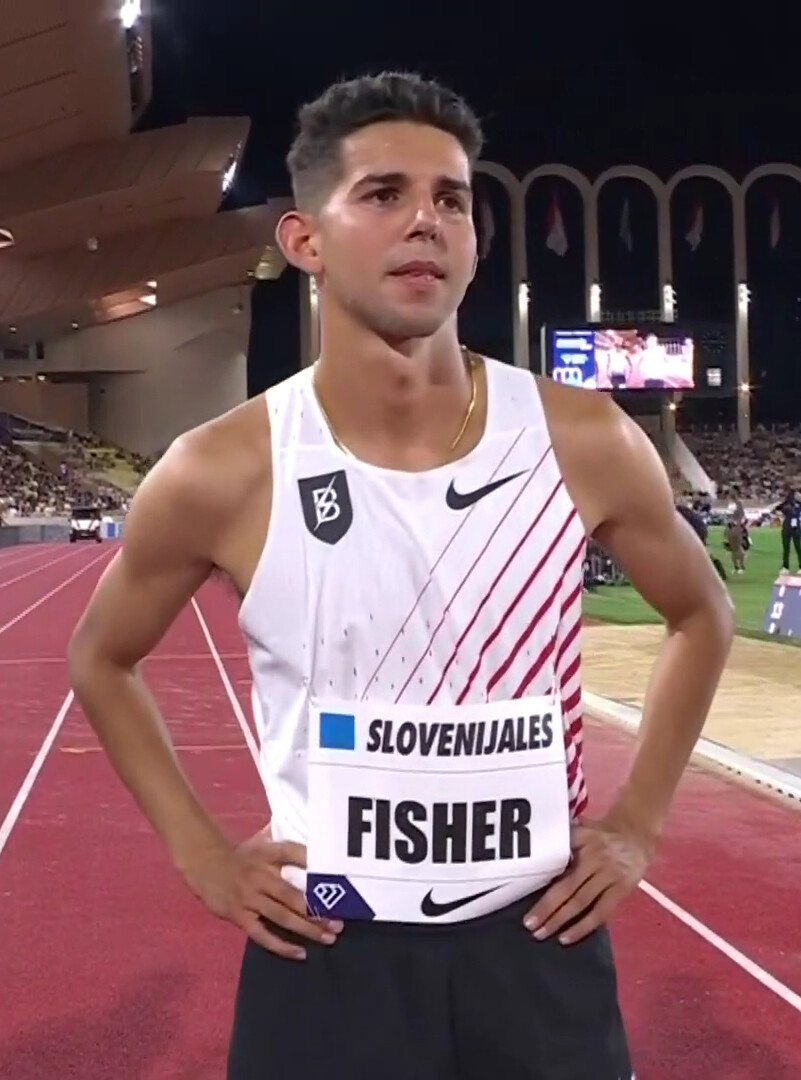
Jake Wightman bounced back to form after his defeat at the Commonwealth Games by taking the 1000m at the Diamond League in Monaco on Wednesday (Aug 10).
The world 1500m champion destroyed many of the world’s top 800m runners over the neutral distance of one kilometre as he improved his Scottish record from 2:16.27 to 2:13.88 to go No.3 on the UK all-time rankings and No.9 on the world all-time lists.
Seb Coe’s long-standing UK record of 2:12.18 remains an elusive target and Steve Cram is No.2 all-time with 2:12.88 but Wightman has now overtaken Steve Ovett and James McIlroy on the rankings.
In Monaco the pacemaker Erik Sowinski led through 400m in 51.02 and Marco Arop was in pole position through 800m in 1:45.46, but Wightman, who spent much of the race running alone in no man’s land a few metres ahead of the main pack, finished strongly to pass Arop in the final metres as Clayton Murphy was third, Commonwealth 800m champion Wycliffe Kinyamal fourth and the Olympic and world 800m champion Emmanuel Korir 12th.
“I did not really know I was in shape to do this today. It was just very, very hard as I had run on my own,” said Wightman. “I knew Arop is a little bit quicker on the home straight so I had to judge the right moment. I had to stay strong to be able to catch him.”
Wightman steps down to the 800m at the European Championships next week and said: “This is a really nice step towards Munich. The main difference between the 1500m and 1000m is just the speed of the first couple of laps. You go from running 55s to 52.”
Lizzie Bird smashed the British record for 3000m steeplechase as she improved Aimee Pratt’s national mark by almost eight seconds to 9:07.87.
Pratt set a British record twice at the World Championships last month as she ran 9:18.91 in her heat and 9:15.64 to place seventh in the final. But Bird ran 9:17.79 to take silver at the Commonwealth Games and here in Monaco swiped a further 10 seconds off her best as she pipped former world champion Emma Coburn at the finish to place third behind Ethiopia duo Workua Getachew and Zerfe Wondemagegn.
Bird, 27, was encouraged to try the steeplechase while studying at Princeton in the United States. She was a reluctant steeplechaser at first and suffered injuries from 2016-18 but set a UK record of 9:19.68 when placing ninth in the Olympics last year and the Shaftesbury Barnet athlete is now closing in on the nine-minute barrier while combining athletics with a career in immigration law based in Colorado.
There is more: Distance runner Grant Fisher’s record-breaking 2022 season continued tonight at the Herculis meeting in Monaco where he ran 7:28.48 for 3000 meters, finishing 3rd, to break Bernard Lagat’s 7:29.00 American record which had stood since 2010.
Fisher’s 3000 record is his third American record of the year as in February he set the indoor 5000 record (12:53.73) and outdoors he set the American 10,000 mark in March(26:33.84).
Login to leave a comment
Ingebrigtsen wins first world title with 5000m gold in Oregon
Norway’s Jakob Ingebrigsten had an Olympic title, but he had never won a World Championships gold medal.
After being upset in the 1500m by Jake Wightman only a few days ago at the World Athletics Championships Oregon22, a world gold still eluded him.
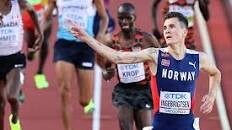
If he wanted to end his drought, he was going to have to topple a star-studded field in the men’s 5000m that included the world record-holder, Uganda’s Joshua Cheptegei, who had earned gold over 10,000m earlier in the championships.
But Ingebrigtsen did exactly that, winging up the pace in the final kilometre to win in 13:09.24. Kenya’s Jacob Krop took silver in 13:09.98, while Uganda’s Oscar Chelimo earned bronze in 13:10.20, a season’s best.
Ingebrigtsen spent almost half the race towards the back of the pack and didn't make his move until after the field had covered two kilometres, going from 10th place into fifth. He remained near the front over the next few laps, then he moved into first with 600 metres left.
From then on, he never relinquished the lead. Ingebrigtsen led 11 men through the bell, less than a second spread among them. As the pack strung out and the finalists started to unleash their finishing kick, Ingebrigtsen held off all of them and extended his lead as he neared the line.
The Norwegian could even afford to take a couple of last looks behind him, before flashing a ‘No.1’ gesture to the fans on the homestretch.
“It feels amazing to win this gold,” said Ingebrigtsen. “This is already my fifth attempt to become a world champion outdoors and my third World Championships. So finally, I became the world champion.”
Cheptegei led through the first three laps, but by the halfway mark, he had dropped to eighth. Leading the pack was Kenya’s Nicholas Kipkorir Kimeli and Daniel Simiu Ebenyo, who often took turns at the front early on. In pursuit were Guatemala’s Luis Grijalva, Ingebrigsten and USA’s Grant Fisher.
Through 4000m, just 0.75 separated the top 12. Krop had taken the lead, but the race remained conservative, with no one looking to push the pace, setting the stage for the raucous bell lap.
Ingebrigtsen and Krop passed through the bell first, holding their positions the rest of the way. However, Chelimo was still in ninth, and Fisher was in third, only 0.11 behind the top two. Chelimo remained in eighth until the final 200 metres, where he moved into fifth, still trailing Fisher and Canada’s Mohammed Ahmed.
As the three men came around the curve, with the bronze still up for grabs, Fisher hit the inside rail, causing the American to drop behind. Chelimo took advantage, as did Grijalva, and both men moved ahead. Chelimo’s kick was too strong for either Grijalva or Ahmed to handle, as he edged both men by less than 0.25.
Grijalva finished fourth, achieving the best finish for his country in any event at the World Championships.
“It feels amazing. I have always run a PB in the races,” said Grijalva. “I almost won a medal, the first for Central America.”
Krop said he knew the race would be tactical, but he was ready for it.
“They just made me push on the last lap and attack,” said Krop. “In the end, it looked like everybody wanted to get to the podium. I had my position and when I kicked, I wanted to maintain the spot, but Jakob had a strong kick too.”
For Chelimo, the bronze finish comes after a few disappointing outings recently.
“I had some difficult times in the past years, I was happy last year to qualify in Tokyo, but then I came last so I had to ask why,” said Chelimo. “But my coach told me that I am a champion. He said, ‘forget about the past, just continue racing’.”
by Elias Esquivel (World Athletics)
Login to leave a comment
World Athletics Championships Budapest23
Budapest is a true capital of sports, which is one of the reasons why the World Athletics Championships Budapest 2023 is in the right place here. Here are some of the most important world athletics events and venues where we have witnessed moments of sporting history. Throughout the 125-year history of Hungarian athletics, the country and Budapest have hosted numerous...
more...Britain’s Jake Wightman stunned the Olympic champion, the defending world champion and himself at the World Athletics Championships Oregon22 running the race of his life to take the 1500m title
Britain’s Jake Wightman stunned the world on Tuesday night. Winding up to a world-leading PB of 3:29.23, the 28-year-old European and Commonwealth bronze medallist left Jakob Ingebrigtsen with no response as he surged down the home straight, eyes fixed firmly ahead. As the finish line neared, the Briton first raised his arms wide and then threw his hands to his head in disbelief, Norway’s Olympic champion Ingebrigtsen following him home in 3:29.47 and Spain’s Mohamed Katir coming through for bronze in 3:29.90.
“That’s my son,” came the voice over the loudspeaker, the race having been called by in-stadium announcer Geoff Wightman – father and coach of the winner, “and he’s the world champion.”
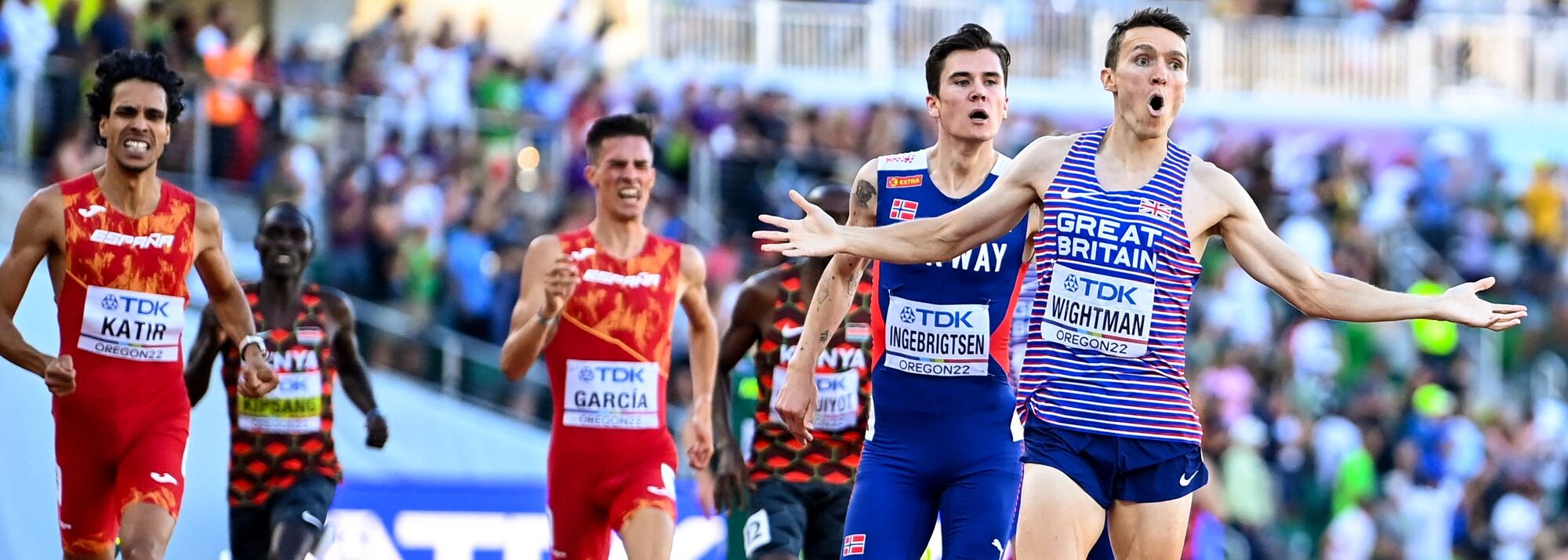
Left disappointed after a 10th-place finish at the Olympic Games in Tokyo, Jake Wightman went back to work. He focused on building his strength over the winter, returning to some cross country racing and doing over-distance work as he refocused on Oregon.
Achieving his aim of staying under the radar through the rounds, he took his place on the Hayward Field start line with Ingebrigtsen to his left and Katir to his right. Kenya’s Abel Kipsang, who had the season’s quickest time going into the race, went straight to the front and led from Ingebrigtsen and Kenya’s defending champion Timothy Cheruiyot, with Wightman sitting in behind them. Ingebrigtsen, who broke the world indoor 1500m record with 3:30.60 in February, moved to the front with two laps to go, with Kipsang and Cheruiyot on his shoulder and Wightman tracking their every move.
At the bell it was Ingebrigtsen, Cheruiyot and Wightman, with Kipsang running wide on his shoulder. Judging the race to perfection, the Briton first surged past Cheruiyot, moving into the lead ahead of Ingebrigtsen with just over 200m to go.
As he left the bend, the anticipated kick from Ingebrigtsen never came. Glancing over his shoulder, the Norwegian looked like he knew he was beaten and settled for silver, followed by Katir and his Spanish teammate Mario Garcia, running a PB of 3:30.20 for fourth.
Wightman’s British compatriot Josh Kerr – the Olympic 1500m bronze medallist – finished fifth in 3:30.60, just ahead of Cheruiyot (3:30.69) and Kipsang (3:31.21).
“It probably won’t sink in until I have retired,” said Wightman, who has run 1:44.18 for 800m and clocked a 3000m PB of 7:37.81 indoors in February. “It’s mad. I had such a disappointing year in Tokyo last year. I don’t think people realise how crushing it was to go in with such high expectations and come away hoping for a medal but ending up 10th.”
His parents – both former elite marathon runners – were at Hayward Field to see him win, his father on the commentary mic and his mother, Susan, in the stands.
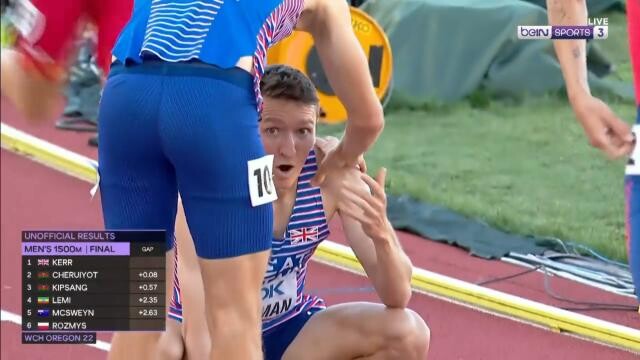
“Dad can be a bit of a robot on the mic sometimes,” smiled Wightman junior, whose time in Oregon is the third-quickest in World Championships history. “Some say robot, some say professional. I hope he broke that down today. My mum was in tears, so someone was crying.”
Reflecting on the race, he added: “The strength for me is that if I can get there with 200m to go, I will always make a move because it’s how I feel best running. As soon as the opportunity was there to go past, I just wanted to be leading the bend. The only perk of having a good 800m PB in races like that is if you are still there with 200m to go, which I haven’t managed to be in previous years.
“Even when I was coming down the home straight I felt strong, but Jakob is a beast and I never knew if he was going to come past.”
But he didn’t. Wightman's last lap was timed at 54.84, Ingebrigtsen’s was 55.24. In Tokyo, the Norwegian clocked 54.42 for the final 400m.
“I was feeling good, but I couldn't keep up with Jake in the last 200m,” said Ingebrigtsen. “I'm owning it. I am very disappointed by not winning, but I'm very happy for him. He is a great runner.”
He will now refocus on the 5000m, the heats for which take place on Thursday.
It was the 5000m that Katir contested at last year’s Olympics, the 24-year-old finishing eighth, but after setting national records at 1500m, 3000m, 5000m and 10km last year his decision to race the shorter event in Oregon paid off as he bagged the bronze with his second-fastest ever time.
Just behind him was European U23 silver medallist and NCAA runner-up Garcia, who runs for the University of Mississippi and achieved the fastest ever time by a collegiate athlete.
Cheruiyot has been some way off his best form this season and although making his presence felt in the early stages, he didn’t have the strength in the finish and faded out of medal contention.
Ethiopia’s Samuel Tefera won the world indoor title ahead of Ingebrigtsen and Kipsang in Belgrade in March but finished ninth in his semifinal in Oregon, missing out on the final.
by World Athletics
Login to leave a comment
World Athletics Championships Budapest23
Budapest is a true capital of sports, which is one of the reasons why the World Athletics Championships Budapest 2023 is in the right place here. Here are some of the most important world athletics events and venues where we have witnessed moments of sporting history. Throughout the 125-year history of Hungarian athletics, the country and Budapest have hosted numerous...
more...GB boost team for World Champs
A number of athletes have been added to the British squad for the World Championships in Eugene following the publication of the “Road to Oregon 2022” qualification positions.
The athletes added are: high jumpers Emily Borthwick, Laura Zialor, Morgan Lake and Joel Clarke-Khan, long jumper Jazmin Sawyers, triple jumper Naomi Metzger, discus throwers Jade Lally and Nick Percy, shot putters Scott Lincoln and Amelia Strickler, sprint hurdler David King, 400m hurdler Chris McAlister, 400m runner Alex Haydock-Wilson, triple jumper Ben Williams and pole vaulter Molly Caudery.
Ellie Baker is also expected to be added to the team in the women’s 800m due to withdrawals from athletes ahead of her in the rankings.
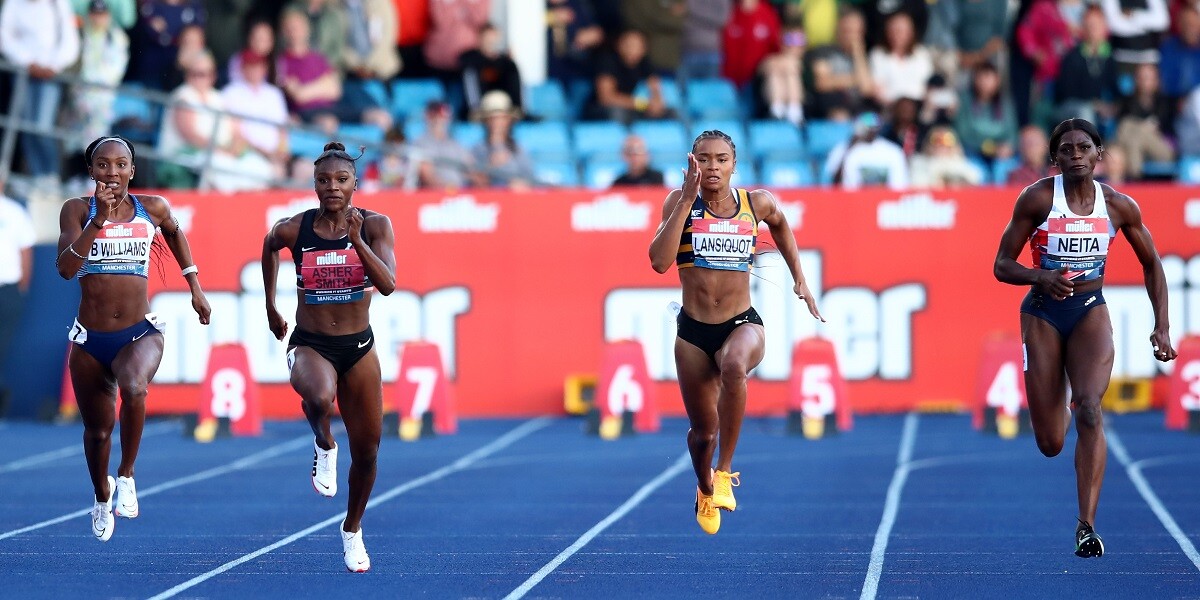
However Callum Wilkinson has dropped out of the team in the 20km walk to focus instead on the Commonwealth Games.
The team is as follows:
Women:
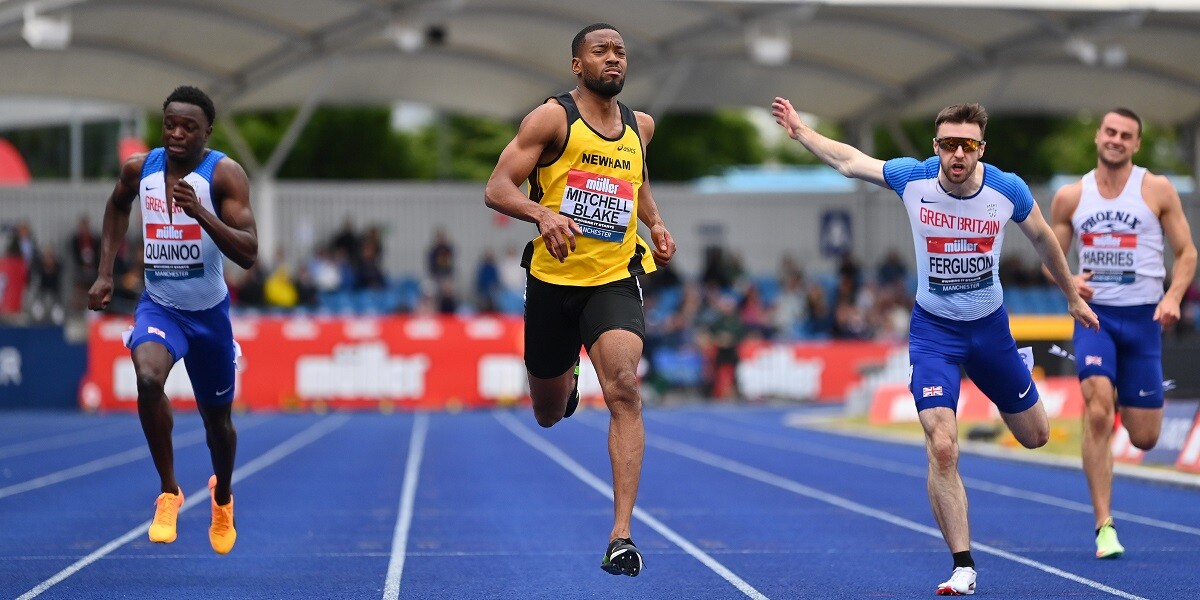
100m: Dina Asher-Smith; Daryll Neita; Imani-Lara Lansiquot;
200m: Dina Asher-Smith; Beth Dobbin;
400m: Victoria Ohuruogu; Ama Pipi; Nicole Yeargin;
800m: Alex Bell; Keely Hodgkinson; Jemma Reekie; Ellie Baker (subject to top 32 ranking);
1500m: Melissa Courtney-Bryant; Laura Muir; Katie Snowden;
5000m: Jessica Judd; Amy-Eloise Markovc; Eilish McColgan;
10,000m: Jessica Judd; Eilish McColgan;
3000m steeplechase: Lizzie Bird; Aimee Pratt;
100m hurdles: Cindy Sember;
400m Hurdles: Jessie Knight; Lina Nielsen;
High jump: Emily Borthwick, Morgan Lake, Laura Zialor;
Pole vault: Holly Bradshaw; Molly Caudery;
Long jump: Lorraine Ugen; Jazmin Sawyers;
Triple jump: Naomi Metzger;
Shot put: Sophie McKinna; Amelia Strickler;
Discus: Jade Lally;
Heptathlon: Katarina Johnson-Thompson;
4x100m: Dina Asher-Smith; Beth Dobbin; Imani-Lara Lansiquot; Daryll Neita; Ashleigh Nelson; Asha Philip; Bianca Williams;
4x400m: Zoey Clark; Jessie Knight; Laviai Nielsen; Lina Nielsen; Victoria Ohuruogu; Ama Pipi; Nicole Yeargin;
Marathon: Rose Harvey; Jess Piasecki; Charlotte Purdue.
Men:
100m: Zharnel Hughes; Reece Prescod;
200m: Joe Ferguson; Adam Gemili; Nethaneel Mitchell-Blake;
400m: Matthew Hudson-Smith; Alex Haydock-Wilson;
800m: Max Burgin; Kyle Langford; Daniel Rowden;
1500m: Neil Gourley; Josh Kerr; Jake Wightman;
5000m: Sam Atkin; Andrew Butchart; Marc Scott;
10,000m: Patrick Dever;
110m hurdles: Andrew Pozzi; Josh Zeller; David King;
400m hurdles: Alastair Chalmers; Chris McAlister;
High jump: Joel Clarke-Khan;
Pole vault: Harry Coppell;
Triple jump: Ben Williams;
Shot put: Scott Lincoln;
Discus: Lawrence Okoye; Nick Percy;
Hammer: Nick Miller;
4x100m: Harry Aikines-Aryeetey; Jeremiah Azu; Jona Efoloko; Adam Gemili; Zharnel Hughes; Reece Prescod; Nethaneel Mitchell-Blake;
Marathon: Josh Griffiths; Chris Thompson;
Mixed 4x400m: Athletes already selected for the women’s 4x400m relay team will be available for selection for this event, plus: Joe Brier; Lewis Davey; Alex Haydock-Wilson.
by Athletics Weekly
Login to leave a comment
World Athletics Championships Budapest23
Budapest is a true capital of sports, which is one of the reasons why the World Athletics Championships Budapest 2023 is in the right place here. Here are some of the most important world athletics events and venues where we have witnessed moments of sporting history. Throughout the 125-year history of Hungarian athletics, the country and Budapest have hosted numerous...
more...Ingebrigtsen and others in record breaking form in Oslo despite the rain
A Wanda Diamond League record from Jakob Ingebrigtsen (first photo) in the mile, along with meeting records from Mondo Duplantis in the pole vault and Femke Bol in the 400m hurdles brightened a rainy evening at the Bislett Games in Oslo on Thursday (16).
Ingebrigtsen has won almost all there is to win in middle-distance events, but a senior Dream Mile victory in Oslo was one thing missing from the 21-year-old’s resume. In fact, before today no Norwegian man had ever won the prestigious discipline at the Bislett Games.
But, racing in the final individual track event of the night, Ingebrigtsen ensured the 15,000 fans at the Bislett Stadion went home happy as he won the mile in a Norwegian record of 3:46.46, breaking the Wanda Diamond League record in the process.
Paced through the first two laps in 56.01 and 1:53.30, Ingebrigtsen was tracked closely by Australia’s Oliver Hoare and Britain’s Jake Wightman for most of the race. The Olympic 1500m champion never appeared to be under too much strain, though – even when Hoare was attempting to close in on the leader with half a lap left.
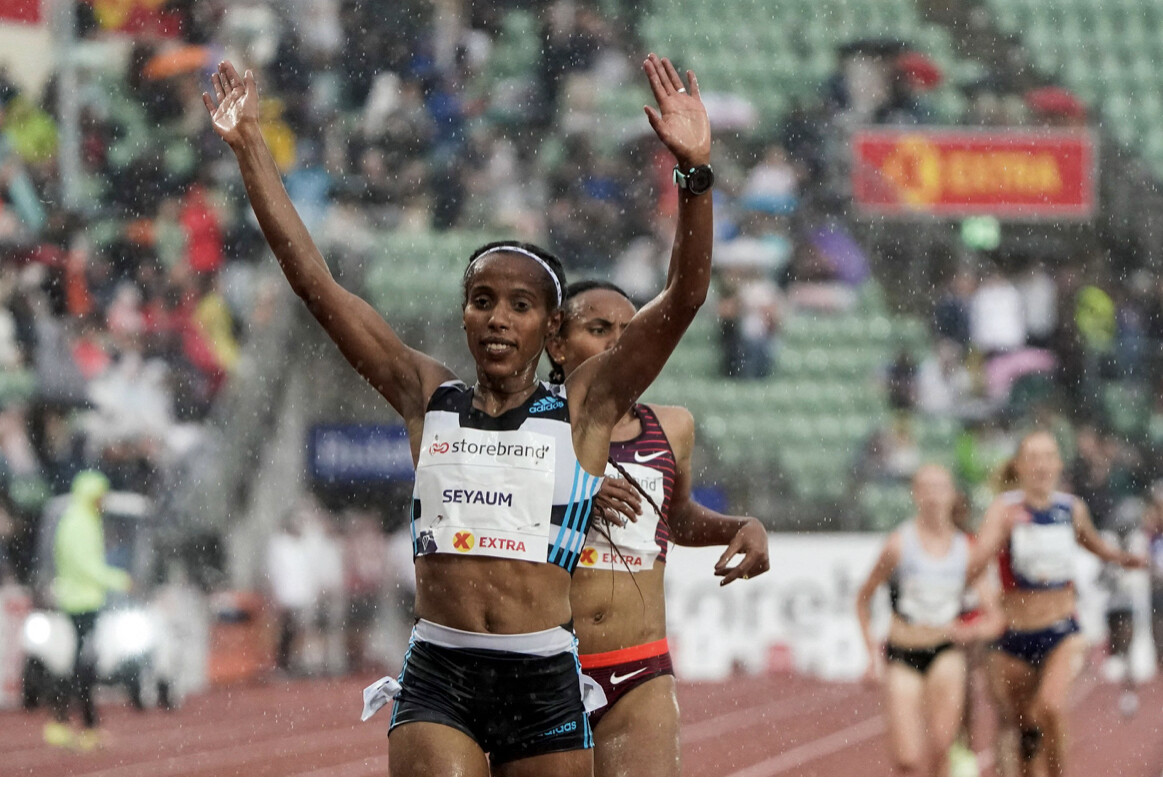
Ingebrigtsen – roared on by the home crowd, many of whom were on their feet – kicked down the home straight and crossed the line in 3:46.46, taking almost a second off his own Norwegian record and moving up to sixth on the world all-time list, just 0.14 shy of Steve Cram’s European record.
Hoare finished second in 3:47.48 to break the Oceanian record and move to 13th on the world all-time list. Wightman was third in a PB of 3:50.30 from fellow Brit Neil Gourley (3:52.91). There was also a national record for Charles Grethen of Luxembourg in fifth (3:53.20).
“I was ready to run fast and was happy to do that and to win,” said the world indoor silver medallist. “Some work needs to be done before the World Championships, but I will work hard to be in better shape there.
“Last year I was sick and couldn't race here, so it was even more special here tonight, as being the first Norwegian to win the Dream Mile. Doing things nobody else has done before is really great.”
Seyaum and Bekele lead Ethiopian 5000m sweeps
Dawit Seyaum may be new to the 5000m, but the former 1500m specialist looked anything but inexperienced as she outkicked her fellow Ethiopians to win a high-quality race.
The opening pace was steady, the first 1000m covered in 2:53.83 and 2000m reached in 5:52.33. Versatile Norwegian runner Karoline Bjerkeli Grovdal then took up the pace in the second half and passed through 3000m in 8:48.65, leading a large lead pack. Grovdal held on to that lead for another 1500 metres, but then Seyaum and compatriots Letesenbet Gidey, Gudaf Tsegay and Almaz Ayana started battling for the lead with one lap to go.
Ayana’s challenge soon faded, leaving Seyaum, Tsegay and Gidey out in front. Seyaum’s kick down the home straight was enough to break free from Tsegay and she won in 14:25.84. Tsegay, the Olympic bronze medallist at this distance, was second in 14:26.69 while world record-holder Gidey was third in 14:26.92. Grovdal held on to fourth place in a Norwegian record of 14:31.07 and USA’s Alicia Monson was fifth in a big PB of 14:31.11.
(Second photo)Dawit Seyaum celebrates her 5000m win at the Wanda Diamond League in Oslo
For just the second time in history, seven women finished inside 14:35 and eight women finished inside 14:40.
There was another Ethiopian 1-2-3 in the men’s 5000m, though this time the 1500m standout was beaten by the 5000m specialist.
The pace was steady though never blazing quick, meaning most of the field was still in contention at the business end of the race. Two-time world indoor champion Samuel Tefera led at 3000m, passing in 7:54.39, but then sat back in the pack to save his legs for a potential fast finish.
He made his way back to the front of the pack in the closing stages, but could not get on level terms with Bekele, who kicked ahead and won in 13:03.51. Tefera held on for second in 13:04.35, just ahead of compatriot Getnet Wale (13:04.48).
Keely Hodgkinson won the battle of the Brits over 800m, getting the better of fellow Olympic silver medallist Laura Muir.
The 20-year-old ran a controlled and assured race and kept her cool in the closing stages to win comfortably in 1:57.71. Muir was second in 1:58.09, ahead of France’s Renelle Lamote (1:58.50) and world champion Halimah Nakaayi of Uganda (1:58.68).
by World Athletics
Login to leave a comment
Josh Kerr hopes to make history at Hayward Field
Josh Kerr knows the history, that long line of British middle-distance greats who all but monopolised the men’s 1500m back in the 1980s. Those names – Seb Coe, Cram, Ovett, Elliott – conjure up memories of grainy footage, the kind Kerr has watched countless times on YouTube.
Now that he’s run faster than them all – his PB of 3:29.05 is behind only Mo Farah on the British all-time list – Kerr feels part of that lineage, especially after winning an Olympic bronze medal last year.
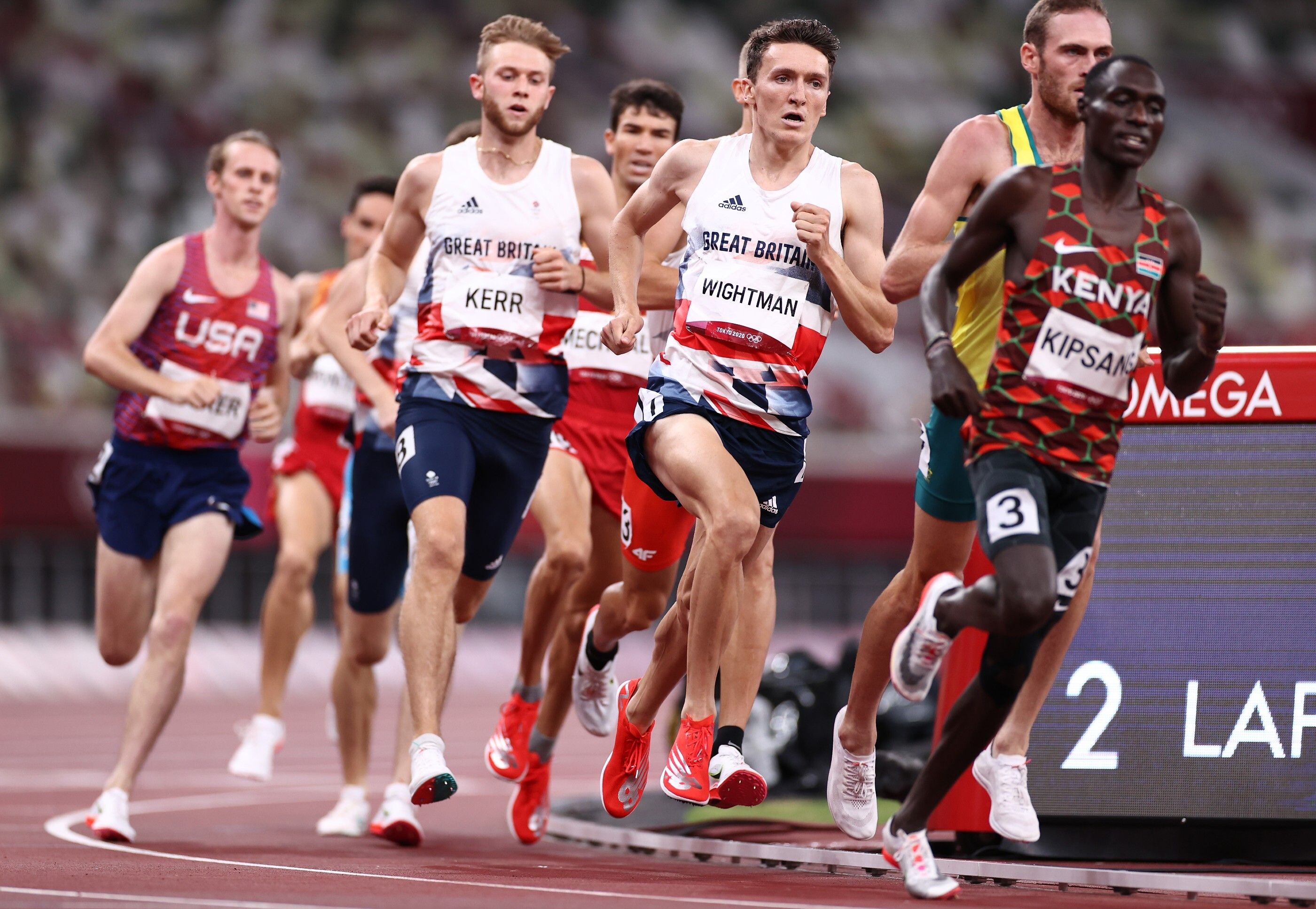
But as much as he appreciates the achievements of past generations, the 24-year-old Scot is keen to kickstart a new golden era.
“Myself and (Jake) Wightman, we’ve run faster than all those guys but they’re not known for how fast they ran, they’re known for what medals they won and what colours they are,” says Kerr. “We hadn’t won an Olympic medal in 33 years and hopefully we’re moving back into an era people will remember as the Kerr-Wightman era. I want to leave a stamp on the 1500 and grab that British record as an extra.
“But,” he adds, “it’s mostly about medals.”
The game is changing these days. In the decade preceding the 2019 World Championships, the quickest winning time in a global 1500m final was 3:33.61, and in just two out of seven championships did the winner come home in under 3:35.
Then there was Doha, where Timothy Cheruiyot blitzed a solo 3:29.26 to take gold. Two years later in Tokyo, Jakob Ingebrigtsen outkicked and outlasted Cheruiyot to set an Olympic record of 3:28.32.
Cheruiyot is 26, Ingebrigtsen is 21. Neither is going anywhere any time soon, and both are at their best when the pace is hard from the gun, which means that when it comes to global finals, the future is almost certainly fast.
Kerr knows this, and he prepares accordingly.
“The 1500 has evolved over the last two or three years,” he says. “We have to be strong and we train like a 5km athlete. That helps, knowing I’m going to get better round by round. It’s exciting for people to watch and it’s really hard for us racing, but that’s what we’re there for: to find the best.
“I do believe the world and Olympic champions over the next three or four years will be true champions – who are the best at the distance. Jakob last year was the best and he showed that in the final and Cheruiyot was second and I was third: those are honest, clear-cut, black-and-white results, and you can’t ask for anything more.”
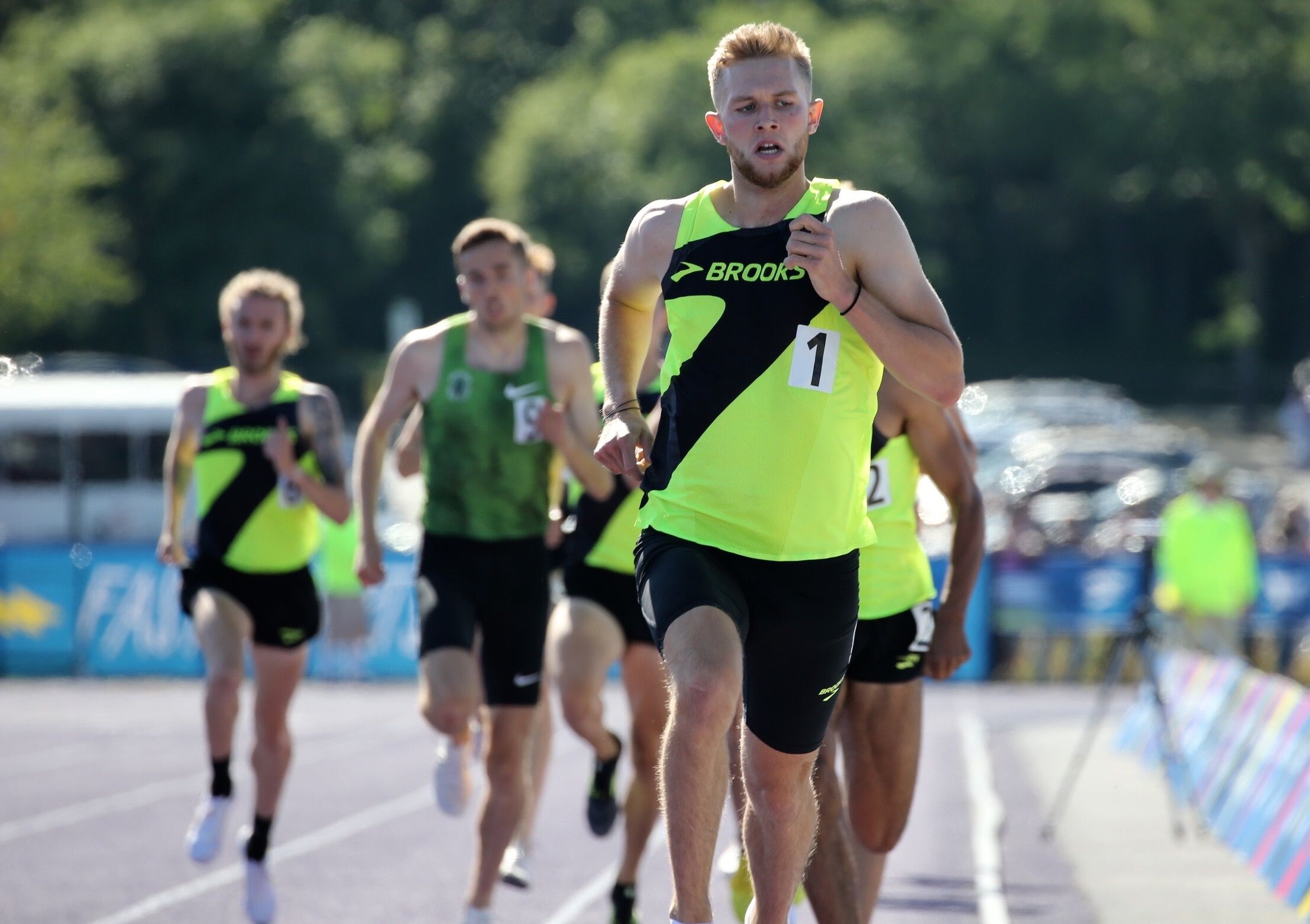
Kerr prepared for Tokyo in his typical manner, racking up 65-70 miles (104-112km) a week in training, along with two gym sessions. It’s been his approach since 2018, when he joined the Brooks Beasts in Seattle and began training with coach Danny Mackey.
Being a three-time NCAA champion for the University of New Mexico, the Scottish athlete had a wealth of options in the professional ranks. Why did he choose the Brooks Beasts? It came down to his trust in Mackey.
“I’ve had the most amazing, honest conversations with him,” says Kerr. “He knows me very well, I know him very well. He said, ‘this is the coach I am, we’re not the flashiest group but you come here, you’ll get better.’ He stayed true to that promise. I’ve got six seconds quicker since I’ve gone there.
“The training isn’t massively intense but what I do really well: my injury rate is really low and I’m able to stack a bunch of days together and it ends up being a phenomenal fitness level.”
That was exactly what Kerr carried to Tokyo, and while his 1500m PB of 3:31.55 had many underrating him at the time, his workouts convinced him he was ready to run 3:28.
“I thought, ‘you know what, the best way to run that is evenly,’” says Kerr. “I wasn’t planning on being so far at the back after the first lap but it was just so fast.”
Kerr narrowly avoided disaster in the heats, scraping through as a non-automatic qualifier, but he was far more convincing in the semifinal, finishing a close third.
After the first lap of the final, with Ingebrigtsen pouring it on from the outset, Kerr was 10th, splitting 57.3 seconds. By 800m he’d moved up to seventh. By 1200m, he was fourth, and ready to take aim at the big two out front – Ingebrigtsen and Cheruiyot – along with Abel Kipsang of Kenya. Kerr waited until the home straight before going for broke, overtaking Kipsang and finishing just 0.04 behind Cheruiyot.
“I was hoping for a better medal than the one I got,” he says now.
After the Games, he went to Albuquerque, USA, to spend time with his fiancee and a few weeks later he returned to Scotland. The last six months have been a “whirlwind”, but after a few weeks off Kerr was back into base training to prepare for better things again in 2022.
“It’s about building the motivation back up, climbing back up the hill with fitness and trying to show some better performances,” he says. “And hopefully better colour of medals.”
He had just one race set in stone for the indoor season: the Wanamaker Mile at last month's Millrose Games, a World Athletics Indoor Tour Gold event. After biding his time for seven laps, Kerr powered to the lead at the bell, but couldn’t hold off the vicious surge of longtime rival Ollie Hoare, who won in 3:50.83 with Kerr second in 3:52.27, just shy of Peter Elliott’s British record of 3:52.02.
“First one of the season is always going to be a bit rocky but I told myself I’d be aggressive, I’d push,” says Kerr. “I may have pushed a little bit too early, but I gave it my all. I like to press a little bit and see who falls apart, and it might be me. I’m not scared of anyone or any distance or any race.”
That may be Kerr’s only race of the indoor season. With an outdoor season overflowing with medal opportunities, he’s giving that his prime focus.
His main targets are the World Athletics Championships Oregon22 in July and the Commonwealth Games in Birmingham. Only after that will he make a decision on the European Championships in Munich.
“Because that’s enough for my brain to explode,” he says. “We’ll take it step by step.”
When he speaks of such championships, Kerr does so with a calm but resolute confidence that he can beat whoever he faces. It’s not surprising, given he has a habit of toppling favourites.
When he lined up in the mile at the 2017 NCAA Indoor Championships, he was a 19-year-old with a 1500m personal best of 3:41.08 – an athlete no one expected to challenge the all-conquering Ed Cheserek.
When Kerr surged past Cheserek with two laps to run, the ESPN commentator all but dismissed his chances: “That’s Josh Kerr, the New Mexico freshman, and that may just be a freshman move.”
But it wasn’t. Kerr ran Cheserek into the ground during the final lap, coming home a distant winner. He added the NCAA title outdoors that year – winning the 1500m at Hayward Field in Eugene, Oregon – and repeated his indoor win in 2018. Those successes taught him he could contend at global level.
“You have that mindset of wanting to be the champ, to go after the fastest guys,” he says. “You don’t care who anyone is, and if you have that fearless mentality you’re going to be fine in the pros. But if you always look at stats and look up to these guys, you’re going to find it hard to toe the line against them.”
Does he believe he can match Ingebrigtsen and Cheruiyot this summer?
“Yeah, definitely,” he says. “It’s quite funny, but people were saying, ‘any other Olympics you’d have won with the times,’ but they’re different races. The 1500m is exploding because of the way we’re running these races. Those guys are doing great things for the sport.”
Kerr knows those two will likely be the men to beat again in Eugene this summer. He’s not yet raced in the new-and-improved Hayward Field, but is relishing the chance to do so.
“It’s over the top,” he laughs. “It’s a phenomenal facility and I’m excited to go there and run fast. It’s built for fast times and for history to be made, and that’s what’s going to happen this year.”
He knows his sport’s history, but he also knows his own, and Kerr can extrapolate plenty from it about what might lie ahead.
“I was 37th (at the World Championships) in 2017, sixth in 2019, and third (at the Olympics) in 2021,” he says. “So in 2022 the trajectory is looking like second or first. That’s always what I’m going for. I’m always looking for progress.”
by Cathal Dennehy (World Athletics)
Login to leave a comment
World Athletics Championships Budapest23
Budapest is a true capital of sports, which is one of the reasons why the World Athletics Championships Budapest 2023 is in the right place here. Here are some of the most important world athletics events and venues where we have witnessed moments of sporting history. Throughout the 125-year history of Hungarian athletics, the country and Budapest have hosted numerous...
more...Jake Wightman will lead strong 1500m line-up at Müller Indoor Grand Prix
Birmingham event on February 19 features Wightman, Neil Gourley, Piers Copeland, Charlie Da’Vall Grice and more
Olympic finalist Jake Wightman leads a strong British contingent in the men’s 1500m at the Müller Indoor Grand Prix – a World Athletics Indoor Tour Gold meeting – at the Utilita Arena in Birmingham on Saturday February 19.
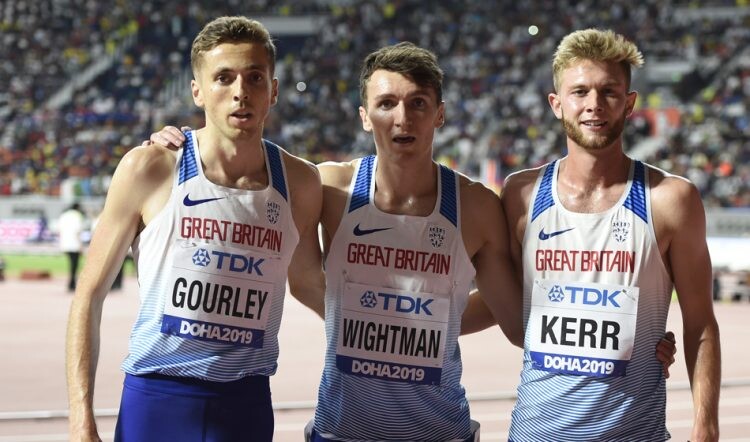
The European and Commonwealth bronze medalist was 10th in Tokyo and is the Scottish indoor 1500m record-holder (3:34.48). The British record, held by Peter Elliott since 1990, is 3:34.20.
In what promises to be an enthralling domestic showdown, Wightman, who opened his season with a 7:50.97 3000m PB at the BMC Grand Prix in Sheffield on January 9, is joined by Piers Copeland, Archie Davis, Neil Gourley, Charlie Da’Vall Grice, George Mills and James West.
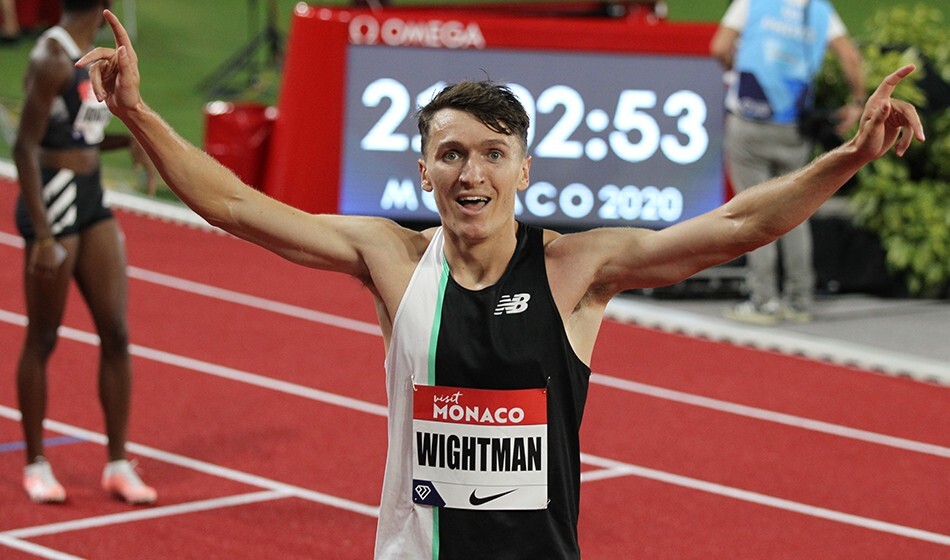
In-form Gourley, a World Championships finalist in Doha 2019, ran an outright 5000m PB (13:34.35) – the best indoor performance by a Scottish athlete over the distance – in Boston in December, and most recently clocked an impressive 7:48.94 3000m PB at the Razorback Invitational in Arizona on January 28. His 3:35.79 1500m best, which ranks him seventh on the Scottish all-time list, was achieved at the World Indoor Tour meeting in Toruń, Poland, 12 months ago.
Da’Vall Grice, Olympic 1500m finalist in Rio 2016, is the British indoor 1000m record-holder (2:17.20) with a 1500m PB indoors of 3:38.95, while Copeland is the Welsh indoor record-holder over 1500m (3:38.55). Both athletes are European Indoor Championships finalists, finishing fifth in 2015 and 2021 respectively.
West, who opened his season with a 7:59.96 3000m at the Millrose Games, has run 3:36.93; Mills is the reigning national indoor 1500m champion and has a best of 3:39.25; and Davis has an indoor 1500m best of 3:41.18.
“After running 3000m indoors, I’m looking forward to dropping back down to 1500m and hopefully challenging my Scottish record,” said 27-year-old Wightman.
“This is a special time for British endurance running and it’s a privilege to have the opportunity to compete against these guys in Birmingham. We’ve seen what’s possible by our athletes on the global stage and that provides us with inspiration every day to do even better. I hope we can deliver some fast times, possibly even a British record, and a great race for the home crowd.”
The Müller Indoor Grand Prix is the fifth meeting of the 2022 World Athletics Indoor Tour (Gold). There are seven ‘Gold’ level meetings across the series which started with Karlsruhe on 28 January and concludes in Madrid on 2 March.
Throughout the series, each athlete’s best three results will count towards their overall point score. The athlete with the most points in each scoring discipline at the end of the tour will be declared the winner and will be awarded a USD$10,000 bonus along with a wild card entry for the World Athletics Indoor Championships Belgrade (March 2022).
by Athletics Weekly
Login to leave a comment
Muller Indoor Grand Prix Birmingham
The Müller Indoor Grand Prix Birmingham is one of the leading indoor meetings in the world with world-class athletics as part of the World Indoor Tour Gold series. The event will be staged at its traditional home at Utilita Arena Birmingham setting the tone for what is set to be an incredible year of track & field. ...
more...Scottish runners Jemma Reekie and Jake Wightman win 5th Avenue Mile
Athletes took to the streets of New York City on Sunday morning for the 5th Avenue Mile, one of the final races of the summer racing season.
It was the two Scottish runners who took the win, with Jemma Reekie taking the women’s race in 4:21.6 and Jake Wightman winning the men’s race in 3:49.6.
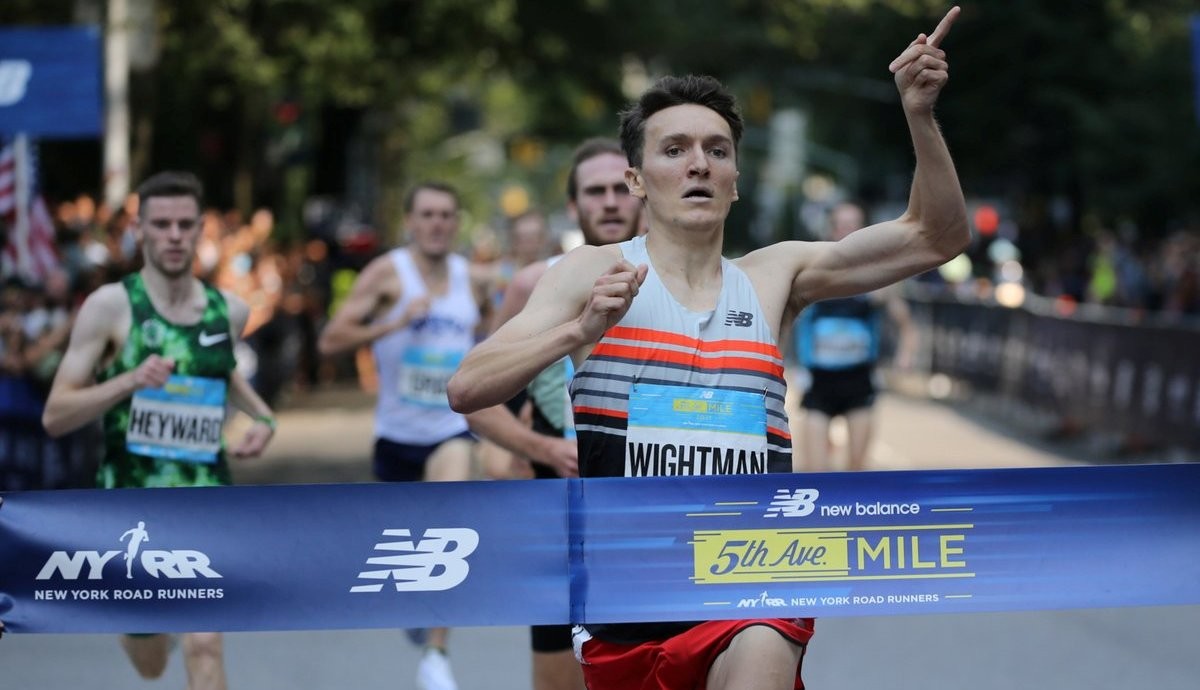
The women’s race
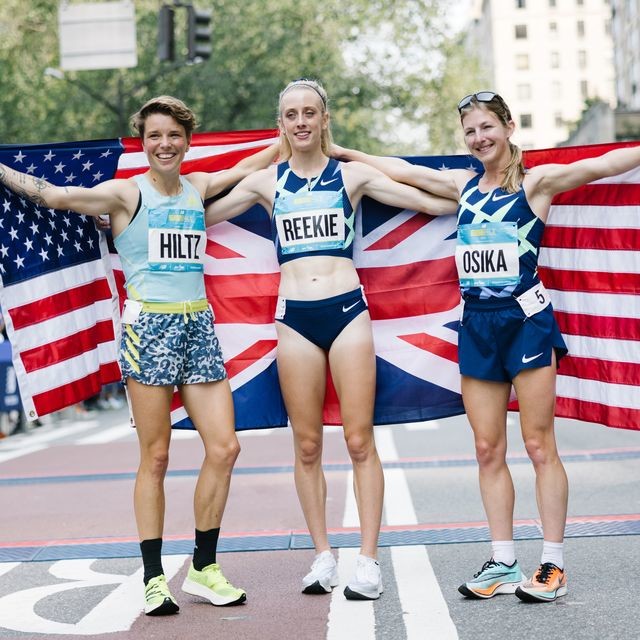
Alicia Monson took the lead early in the women’s race, gapping the field by several metres in the first half. The pack eventually reeled her in, and with one minute to go, Reekie, Hiltz and Van Buskirk began making a push for the finish.
With only a few metres left in the race, Reekie took over the lead, and after finishing 4th in Tokyo and 4th in the Diamond League final, she finally got her win. Hiltz finished in second place in 4:23.0 and Shannon Osika came third in 4:23.3. After making a strong push for a podium spot, Van Buskirk crossed the line in fourth in 4:23.9. Monson ended up in sixth in 4:25.4. Canada’s Julie-Anne Staehli finished in 11th in 4:29.1.
The men’s race
Wightman was the winner in a hotly-contested men’s race, where there was plenty of jostling for the lead over the 20-block race. Australia’s Oliver Hoare led in the early stages, but the rest of the pack were right on his heels. At about the 800m mark, Matthew Centrowitz made an aggressive move and created a sizeable gap on the field, but was unable to hold onto the lead.
Wightman cranked the pace up in the final meters of the race to take the win, followed by Hoare and Jake Heyward, also from the U.K., both in 3:50.4. Canada’s Charles Philibert-Thiboutot finished ninth in 3:53.2, and Centrowitz ended up in 14th in 3:56.4.
by Brittany Hambleton
Login to leave a comment
New Balance 5th Avenue Mile
The New Balance 5th Avenue Mile opens a beautiful 20-block stretch of 5th Avenue to runners of all ages and abilities who want to run their best mile in New York City. Special races include a youth mile, the George Sheehan Memorial Mile for runners age 60 and over, the NYRR Road Mile Championships, and Olympic-caliber professional men's and women's...
more...Olympians and Past Champions will Headline New Balance 5th Avenue Mile on Sunday
To close out their seasons, 15 Tokyo Olympians, three Olympic medalists, and two past event champions will race down Manhattan’s most famous thoroughfare in the professional athlete heats at the New Balance 5th Avenue Mile on Sunday, September 12.
The 40th running of the New Balance 5th Avenue Mile – the world’s most iconic road mile race since 1981 – stretches 20 blocks along the east side of Central Park. In addition to age-group heats, there will be an NYPD/FDNY heat taking place to mark the 20th anniversary weekend of 9/11, a Back to School Mile for youth ages 12-18, a George Sheehan Memorial Mile for seniors and NYRR Road Mile Championship heats.
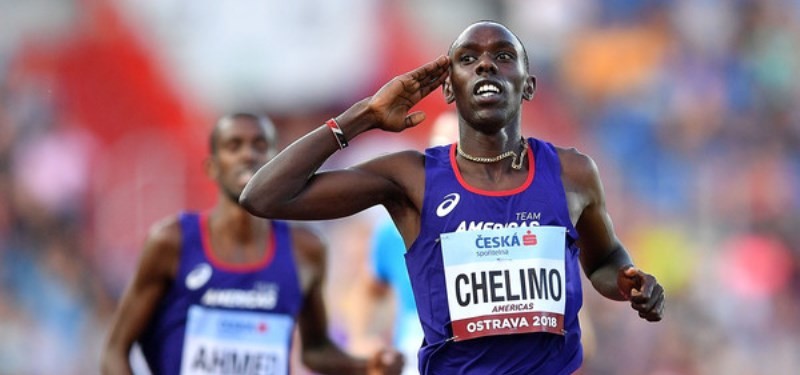
“The New Balance 5th Avenue Mile is an iconic race which invites people of all ages and abilities to run down one of the most famous streets in New York City,” said Ted Metellus, Vice President of Events, NYRR and Race Director, TCS New York City Marathon. “This year will be incredibly exciting with a number of Olympians joining us after their top performances in Tokyo, and we are looking forward to showcasing the city’s resiliency and honoring the work of those participating in the FDNY/NYPD heat to mark 20 years since 9/11.”
The NYRR Road Mile Championships and professional athlete races will be live streamed on USATF.TV free beginning at 11:35 a.m. ET, with a webcast replay for on-demand-viewing available on USATF.TV+.
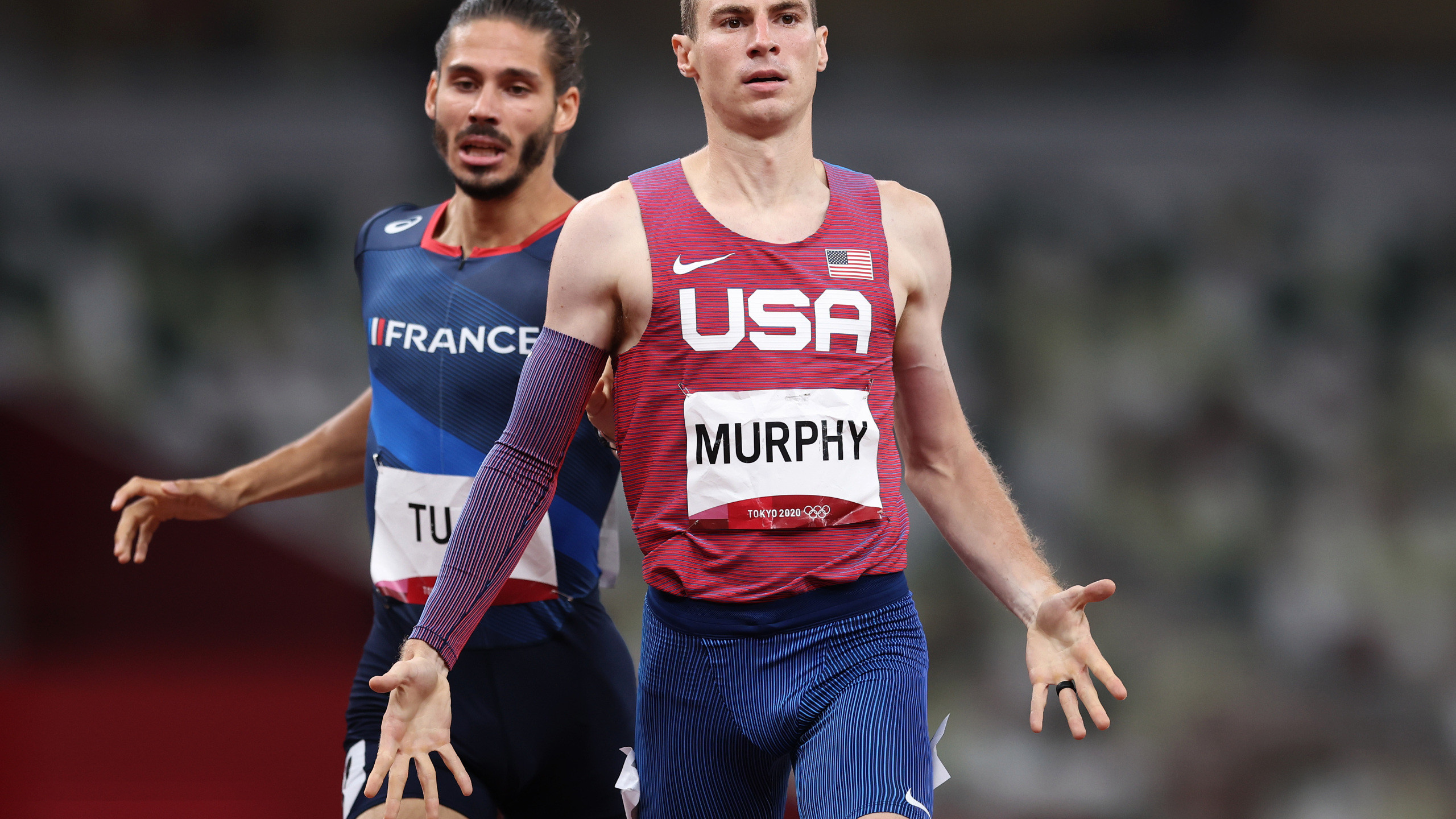
Leading the way in the professional men’s race will be three-time U.S. Olympian Matthew Centrowitz who won Rio 2016 Olympic gold in the 1,500 meters and the 5th Avenue Mile in 2012, and two-time U.S. Olympian Paul Chelimo, who won bronze in Tokyo and silver in Rio in the 5,000 meters.
“I’m excited to return to New York for my sixth race down 5th Avenue, a race I first won nine years ago,” Centrowitz said. “Heading back East and ending my season there is like a great end-of-summer tradition, and I’m looking to show the rest of the guys I’ve still got a step or two left in 2021.”
“I’ve already run a 5K and half marathon in New York, so now I just need to check the mile and the marathon off my list,” Chelimo said. “Running a straight line down 5th Avenue is very different than running laps on a track, and I’ve got more road racing experience than the other guys in this field. I’m confident in my finish, so if I can keep it close through halfway, I think I can beat the milers at their own game. Go hard or suffer for the rest of your life."
Challenging them will be two-time U.S. Olympian and 2016 Olympic bronze medalist in the 800 meters Clayton Murphy, Olympian and 2018 event champion Jake Wightman, and Olympian and European Indoor Championships gold medalist Adel Mechaal.
A trio of other Americans to watch will be Tokyo Olympians Joe Klecker, Mason Ferlic, and Hilary Bor, with Ferlic racing the event for the third time and Klecker and Bor making their debuts in the event after competing in Tokyo earlier this year.
The professional women’s race will see a first-time winner, with top contenders including USATF Road Mile Championships runner-up Shannon Osika, British indoor record-holder and Olympian Jemma Reekie, and European Indoor Championships gold medalist Amy-Eloise Markovc.
About New York Road Runners (NYRR)
NYRR’s mission is to help and inspire people through running. Since 1958, New York Road Runners has grown from a local running club to the world’s premier community running organization. NYRR’s commitment to New York City’s five boroughs features races, virtual races, community events, free youth running initiatives and school programs, the NYRR RUNCENTER featuring the New Balance Run Hub, and training resources that provide hundreds of thousands of people each year with the motivation, know-how, and opportunity to Run for Life. NYRR’s premier event, and the largest marathon in the world, is the TCS New York City Marathon. Held annually on the first Sunday in November, the race features a wide population of runners, from the world’s top professional athletes to a vast range of competitive, recreational, and charity runners. To learn more, visit www.nyrr.org.
by Running USA
Login to leave a comment
New Balance 5th Avenue Mile
The New Balance 5th Avenue Mile opens a beautiful 20-block stretch of 5th Avenue to runners of all ages and abilities who want to run their best mile in New York City. Special races include a youth mile, the George Sheehan Memorial Mile for runners age 60 and over, the NYRR Road Mile Championships, and Olympic-caliber professional men's and women's...
more...Norwegian Jakob Ingebrigtsen takes 1,500m gold in Olympic record
In the last individual final on the track at Olympic stadium, the young Norwegian, Jakob Ingebrigtsen, has taken the gold medal, outkicking his Kenyan rival, world champion Timothy Cheruiyot in a furious race over the final 200m. Ingebrigtsen crossed the line in 3:28.33, an Olympic record surpassing the one set just a few days ago by Abel Kipsang, who finished fourth.
Cheruiyot took silver in 3:29.01. Great Britain’s Josh Kerr unleashed a monster kick to take the bronze medal, only 0.04 seconds behind Cheruiyot.
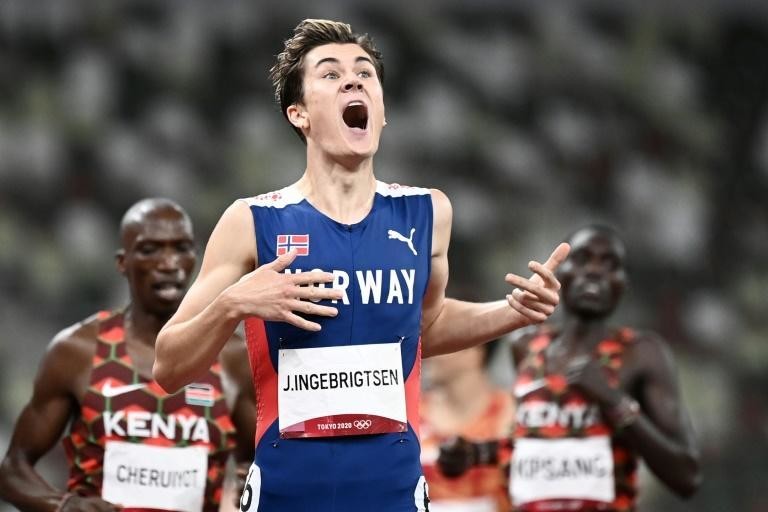
The field looked on race favorite and world champion to take the race out swiftly, and he did. The Australian, Stewart McSweyn, looked strong in third place in the first few laps, with Ollie Hoare and Team GB’s Jake Wightman following closely behind but they fell off as they reached the bell. With one lap to go, Cheruiyot took off, with Ingebrigtsen right on his heel, but ultimately he didn’t have enough left in the tank to secure the race.
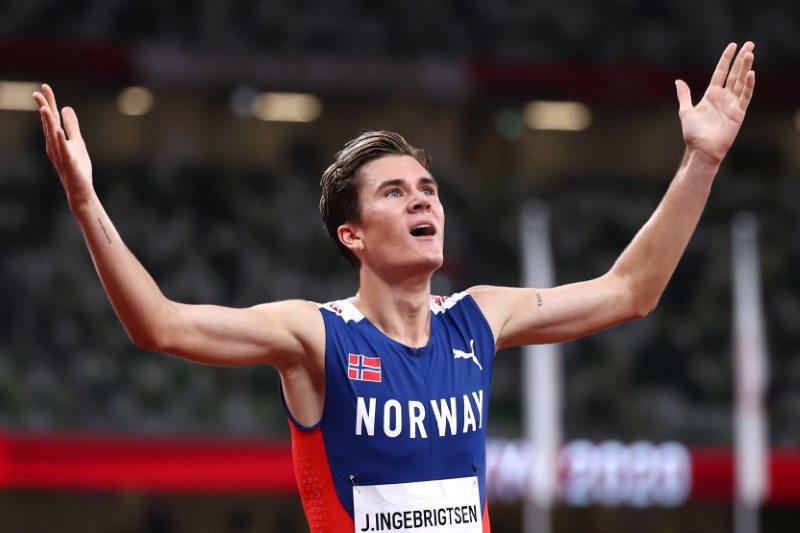
This is Ingebrigtsen’s first Olympic medal in his Games debut. The Norwegian, who is only 20, has a prolific resume over the European circuit, finishing fourth in this event at the world championships in Doha in 2019.
This is the final day of the Tokyo 2020 Olympics. The final events are the men’s 4x400m final and the men’s marathon.
by Marley Dickinson
Login to leave a comment
Tokyo 2020 Olympic Games
Fifty-six years after having organized the Olympic Games, the Japanese capital will be hosting a Summer edition for the second time, originally scheduled from July 24 to August 9, 2020, the games were postponed due to coronavirus outbreak, the postponed Tokyo Olympics will be held from July 23 to August 8 in 2021, according to the International Olympic Committee decision. ...
more...The wild and crazy men’s1500m at Tokyo Olympics
In heat one Belgium’s Ismael Debjani won to be fastest overall in 3:36.00 with a 53.4 last lap, just ahead of world champion Timothy Cheruiyot (3:36.01), Oliver Hoare (3:36.09), US trials winner Cole Hocker (3:36.16), Abdelatif Sadiki (3:36.23) and Michal Rozmys (3:36.28) who qualified automatically.
Rozmys had been six tenths of a second behind Kerr as he hit the straight but ran a 12.9 last 100m to the Scot’s 13.5 to catch him on the line, meaning the British champion missed out on automatic qualification by one hundredth of a second as he struggled in the closing stages.
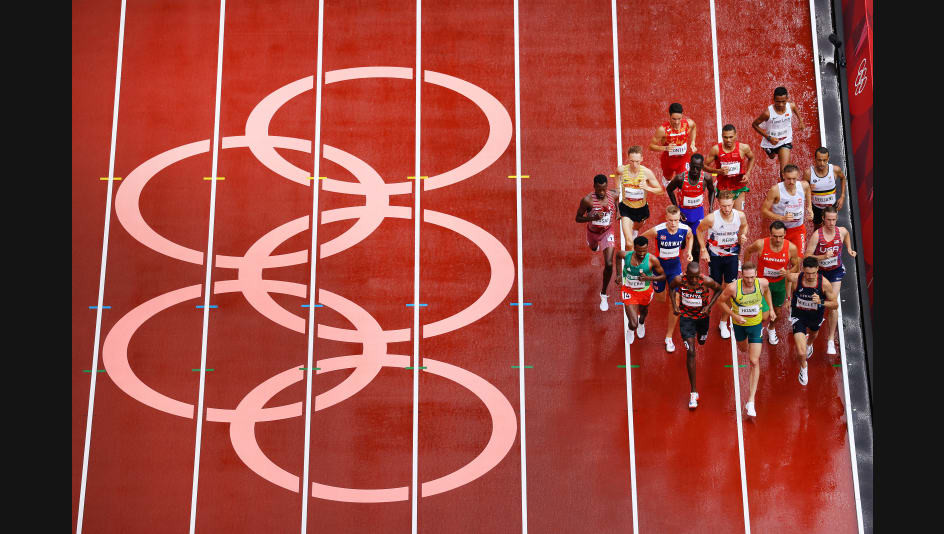
Kerr said: “I was really frustrated with my positioning and there was some shoving and I made a hard move at 500m to go. Then, at 200m to go, I felt I was going to pay for this in the home stretch. I was just trying to stay focused and push all the way, but it just wasn’t a good run for me. I am fit and ready and I have had no problems. There are just no excuses for that. I just raced it badly.”
Kerr must have been relieved as heat two was run at nowhere near the same pace. The field ambled through 400m in 62.4 and 800m in 2:02.9, only really coming to life on the last lap as Kenyan Abel Kipsang covered it in 52.8 to win in 3:40.68.
Second was defending champion Matt Centrowitz (3:41.12), just ahead of Wightman (3:41.18) who ran his last 400m in 53.2 and 200m in 26.3. Also qualifying easily were Azeddine Habz (3:41.24), Samuel Zeleke (3:41.63) and Charles Grethen (3:41.92).
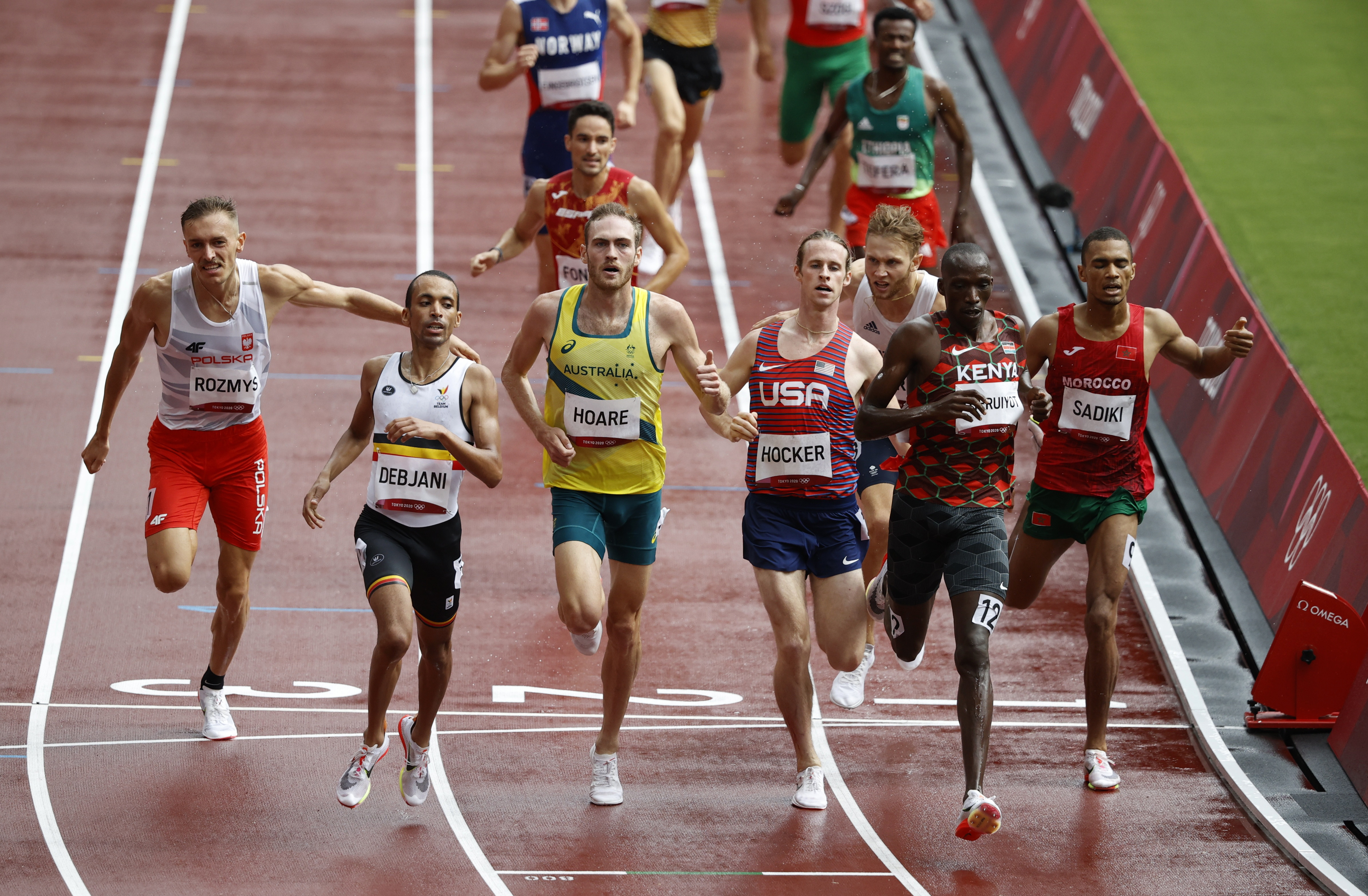
Marcin Lewandowski fell on the last lap and he jogged home but was added to the qualifiers by the judges after the event.
Wightman said: “It’s the most nerve-racking round, isn’t it? You’re worried you’re going to be embarrassed. I’m glad I managed to stay on my feet and get through. I had a smooth enough ride. I think I got a spike wound, had a few pushes but there was the fall which I’m glad I didn’t even notice until the end.
“The heats are the worst, because you’ve come all this way and no-one wants to get knocked out in the heat or expects to get knocked out in the heat, so you just want to get past and know how you are running to get through to the semi-final.”
The third heat was faster but, with six fastest loser spots, it did mean there would have to be 12 quicker than 3:36.29 for Kerr to exit and, in the end, there were only two.
The first lap was a slow 61.7 before Stewart McSweyn kicked on. The Australian completed the second lap in a lively 56.9 and the third in a top class 55.1, with only Heyward still in contact as the pair went through 1200m in 2:53.7 and 2:53.9, holding a big gap over the pack led by Robert Farken in 2:55.1.
Heyward passed McSweyn in the straight and won clearly in 3:36.14, having eased around his last lap in 55.9 and covered his last 1200m inside 2:50. Ethiopia’s Tedesse Lemi, who had been 12th at the bell, ran a 53.9 last lap to finish second in 3:36.26 and he had covered his last 1200m in 2:48.9.
McSweyn (3:36.39), Jakob Ingebrigtsen (an anonymous 3:36.49), Farken (3:36.71) and Adel Mechaal (3:36.74) completed the automatic qualifiers.
Double Olympic medallist Nick Willis (3:36.88), Andrew Coscoran (3:37.11), Ayanleh Souleiman (3:37.25) and Kenyan trials winner Charles Simotwo (3:37.26) qualified by time as they joined Kerr and Ignacio Fontes (3:36.95) as fastest losers.
Soufiane El Bakkali, who won the 3000m steeplechase title the previous day, was in contention until 200m to go but pulled out.
Heyward said: “I don’t think it could have gone much better. Safely through, that’s the main thing. You have to have a few scenarios, you have to be versatile. It could be fast, could be slow, so you’ve got to be ready for that. I think I always give my best performances in championships and I hope that showed a glimpse of what I can do.
“You can’t take anything for granted at the Olympics, you’ve got to be prepared for anything, and I was prepared to run super hard today, so that was my mindset going in. Luckily because I didn’t have to run that hard it felt quite comfortable, so it was good.”
by Athletics Weekly
Login to leave a comment
Tokyo 2020 Olympic Games
Fifty-six years after having organized the Olympic Games, the Japanese capital will be hosting a Summer edition for the second time, originally scheduled from July 24 to August 9, 2020, the games were postponed due to coronavirus outbreak, the postponed Tokyo Olympics will be held from July 23 to August 8 in 2021, according to the International Olympic Committee decision. ...
more...Jake Wightman aiming to break 38-year-old Scottish record in final Tokyo tune up
The Olympic-bound Scot, who turned 27 on Sunday, will sign off his build-up in the historic Emsley Carr Mile at the Diamond League leg against a largely domestic field that also includes his 1500m rival at the Games, Jake Heyward. But despite two wins in four starts this summer, Wightman admits he’s hunting a fast time for the ideal pre-Games booster ahead of his medal tilt.
“It's weird running this because it could not go well,” he said. “And it would not be a nice way to go into Olympics. But I want to be able to try and run quick because I feel like the rounds in Tokyo, and especially a final, could potentially be quick. And I've not gone fast this year, really. So I want to try and make sure I get a race which prepares me for that.”
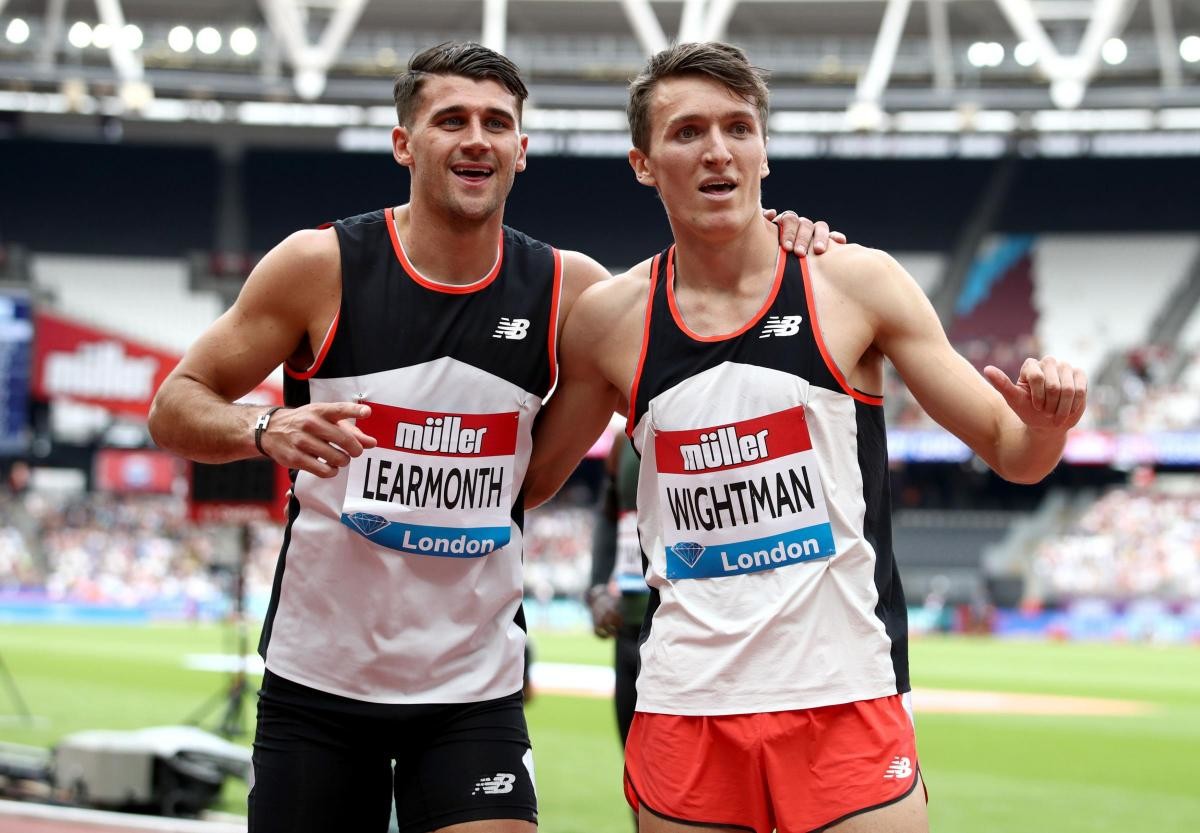
The European medalist will target Graham Williamson’s Scottish mile record of 3:50.64 that has stood for exactly 38 years to the very day.
Andy Butchart is slated to run the 3000m at the Grand Prix despite his Olympic place remaining in limbo just days before he is due to travel to Japan. Nicole Yeargin will get her Diamond League debut in the women’s 400m while Beth Dobbin takes on Rio 2016 gold medallist Elaine Thompson over 200m.
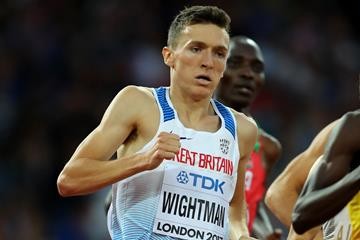
For Wightman and his Edinburgh club-mate Josh Kerr, there remains uncertainty too, with no confirmation still on the fate of world 1500m champion Timothy Cheriuyot, whose omission from the Kenyan team for Tokyo could yet be overturned. But whether or not the fastest man in the world this year is at the Games, opportunity knocks, Wightman insists.
“I don't think that the rest of us are that far behind or going to be discounted,” he said. “We could still be in there. Matt Centrowitz from 2016 is the one person that keeps me going. Thinking that anything can happen in an Olympic final. Because nobody would have said that Centro was going to win that race. If you have a perfect day, you can do anything.”
“Hopefully I get that,” he said. “Steve Cram let me know he has got the stadium record. So that's another incentive, to try and get that.
“I need to try and improve my mile time. I don't really getting the chance to run them too often. And obviously there's a lot of history in the event. So have a time that you can say is sub-3.50 to me is a lot bigger deal than obviously running four minutes, which I did a while ago.”
by The Scotman
Login to leave a comment
Tokyo 2020 Olympic Games
Fifty-six years after having organized the Olympic Games, the Japanese capital will be hosting a Summer edition for the second time, originally scheduled from July 24 to August 9, 2020, the games were postponed due to coronavirus outbreak, the postponed Tokyo Olympics will be held from July 23 to August 8 in 2021, according to the International Olympic Committee decision. ...
more...With the Tokyo Olympics less than two weeks away Bromell, Thompson-Herah and Vetter headline last Diamond League
With the Tokyo Olympics less than two weeks away, many of the world’s top athletes will get a last chance to test their competitive form when they line up in the Wanda Diamond League meeting in Gateshead, England, on Tuesday (13).
US sprinter Trayvon Bromell, German javelin thrower Johannes Vetter, Jamaican sprint star Elaine Thompson-Herah and British heptathlete Katarina Johnson-Thompson are among the top names entered in the Muller Grand Prix.
Despite the late withdrawals of British world 200m champion Dina Asher-Smith and Dutch middle-distance star Sifan Hassan, the meet features an array of world and Olympic champions and will serve as a crucial tune-up ahead of Tokyo.
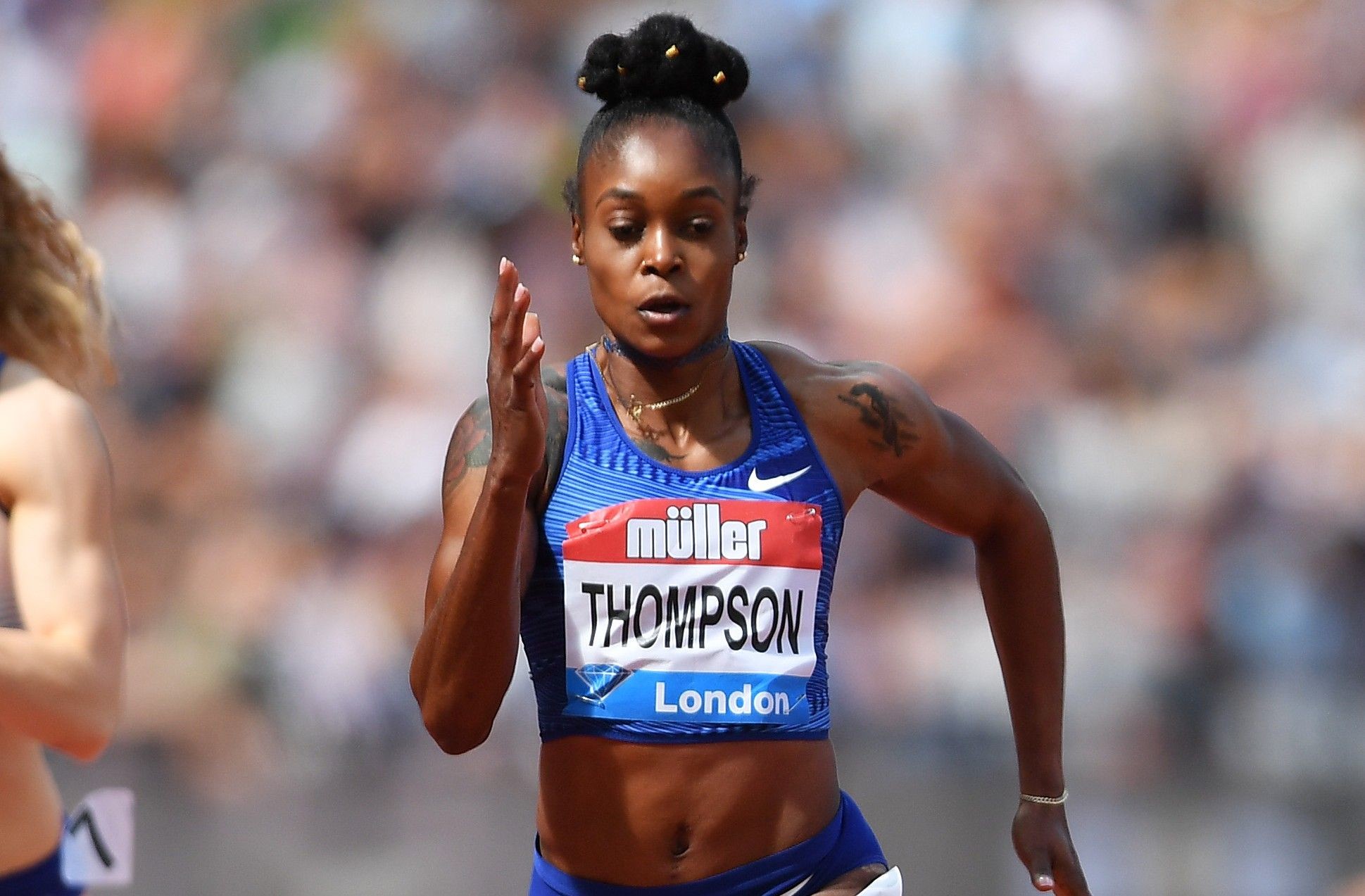
The seventh Diamond League meeting of the season – and second in Gateshead – comes just 10 days before the 23 July opening of the Tokyo Games and 17 days before the start of the Olympic athletics competition on 30 July.
Many athletes are returning to the venue in northeast England for the second time this season. Gateshead hosted the Diamond League opener in May after the meeting was moved from Rabat, Morocco. Tuesday’s meeting was originally scheduled to take place at the Olympic Stadium in London but was switched to Gateshead due to the Covid-19 pandemic.
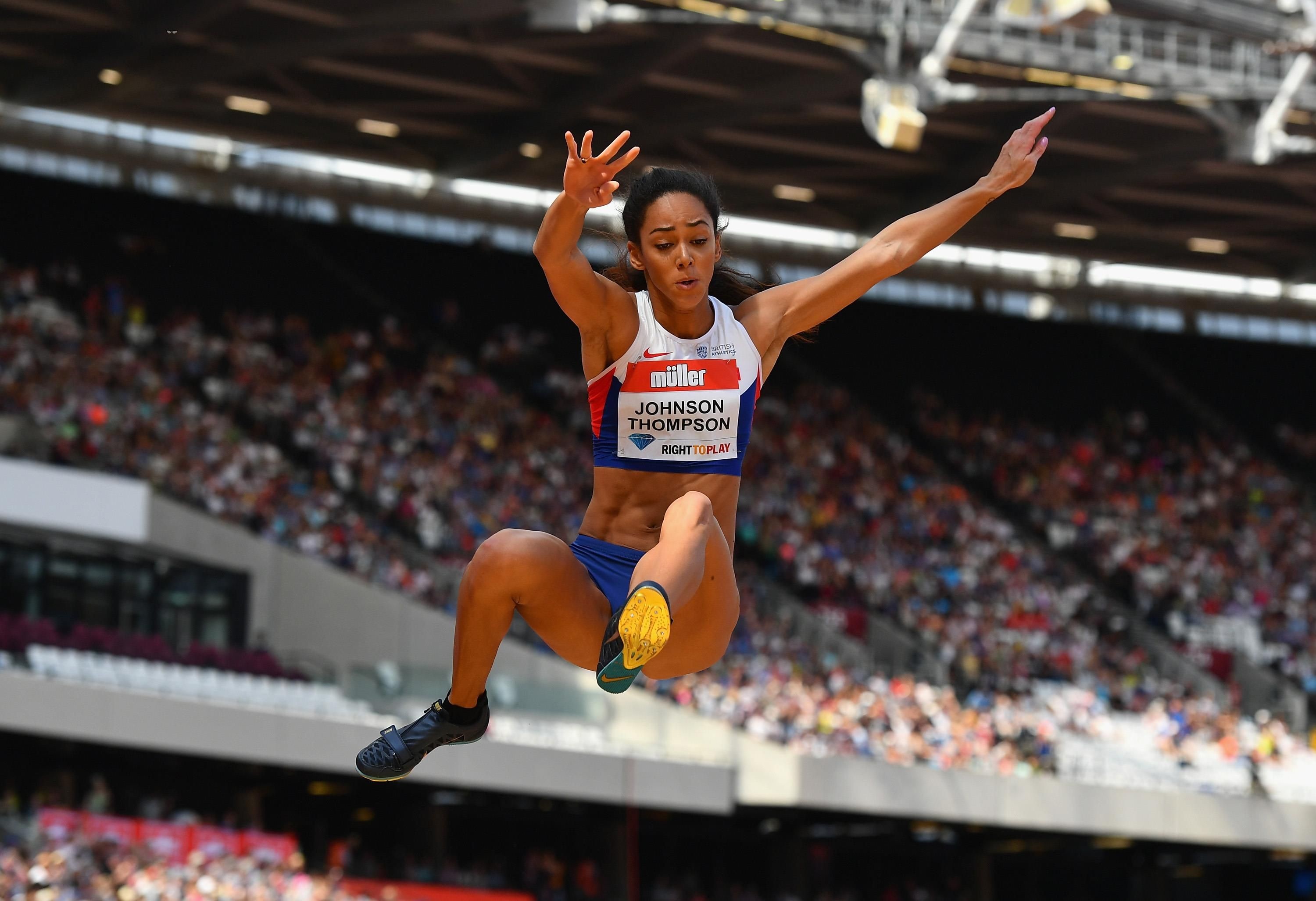
World 100m leader Bromell will be looking to bounce back after a disappointing performance in last Friday’s Herculis EBS Diamond League meeting in Monaco, where he clocked 10.01 and finished fifth in a race won by American teammate Ronnie Baker in 9.91. It was Bromell’s first 100m defeat since 2019, having won four races in 2020 and 10 this year.
Bromell, who ran 9.77 in June for the fastest time in the world this year and won the 100m in 9.80 at the US Olympic Trials in Eugene last month, will be determined to regain the form that made him the favourite for gold in Tokyo.
Bromell will go up against Fred Kerley, who qualified for Tokyo by finishing third in 9.86 at the US trials, and Canada’s Andre De Grasse, the Olympic and world 100m bronze medallist. Isiah Young, who has clocked 9.89 this season, is also in the 100m line-up, along with British sprinters Adam Gemili and Chijindu Ujah.
About 40 members of Team GB’s athletics team for Tokyo – more than half the entire squad – will be in action in Gateshead. Missing, however, will be Asher-Smith, who pulled out citing a tight hamstring. She opted not to take any risks ahead of the Olympics.
“As you all know, I love running in front of a home crowd but I have to make smart decisions for myself and my body ahead of Tokyo,’’ Asher-Smith said in a statement on Twitter. “I’m sorry to those who were hoping to see me run this week but I’m looking forward to making you all proud in a few weeks’ time.”
Asher-Smith had been scheduled to run the 200m in a marquee matchup against Thompson-Herah, the reigning Olympic 100m and 200m champion. The Jamaican will now be the favourite in a field that also includes American Tamara Clark, who finished fourth in the US Olympic Trials in a personal best of 21.98.
Hassan, the women’s world champion at 1500m and 10,000m, also withdrew due to a tight hamstring and preferring not to take any chances before Tokyo, where she looks set to contest the 5000m-10,000m double. Hasan had been scheduled to run the mile, in which she holds the world record of 4:12.33. Winnie Nanyondo of Uganda, who has a season’s best of 4:00.84 in the 1500m, and American Kate Grace, who clocked 1:57.36 for the 800m in Stockholm, now start as favourites.
The men’s mile has past winner Jake Wightman of Britain in the field along with European indoor 800m record-breaker Elliot Giles, who will be running the 800m in Tokyo.
If conditions are good, Vetter could challenge Jan Zelezny’s 25-year-old javelin world record of 98.48m. The German came close last year with a throw of 97.76m and threw 96.29m to win his event at the European Team Championships in May. Vetter has been successful competing in Britain, winning the world title in London in 2017.
Javelin records have been set in the UK before, with Zelezny throwing 95.66m in Sheffield in 1993 and Britain’s Steve Backley setting a mark of 90.98m at London’s Crystal Palace in 1990. Also in the javelin field in Gateshead are world champion Anderson Peters of Grenada and 2012 Olympic gold medallist Keshorn Walcott of Trinidad & Tobago.
Still making her way back to full fitness after an Achilles injury, Johnson-Thompson is entered in the women’s long jump, where she will take on world champion Malaika Mihambo of Germany. In Stockholm, Mihambo produced the best jump of 7.02m in the third round but settled for second place in the new final-three format when her final effort of 6.77m was bettered by the 6.88m of Ivana Spanovic of Serbia.
In the women’s 400m hurdles, 21-year-old Dutch star Femke Bol will resume her rivalry with US athlete Shamier Little for the third time this season.
by World Athletics
Login to leave a comment
World record-holders ready to clash in Hengelo
Five world champions, four Olympic gold medallists and two world record-holders are set to compete at the FBK Games – a World Athletics Continental Tour Gold meeting – in Hengelo on Sunday (6).
Pole vault world record-holder Mondo Duplantis will be raring to go after his 23-meet winning streak came to an end at the Wanda Diamond League meeting in Gateshead at the end of last month. Battling tough conditions, the 21-year-old from Sweden gave the bar a slight nudge on his final attempt at 5.80m – what would have been a winning height – and it came down, meaning victory went to two-time world champion Sam Kendricks.
Kendricks won’t be in Hengelo, but Duplantis will have one eye on the US vaulter’s meeting record and Dutch all-comers’ record of 5.91m.
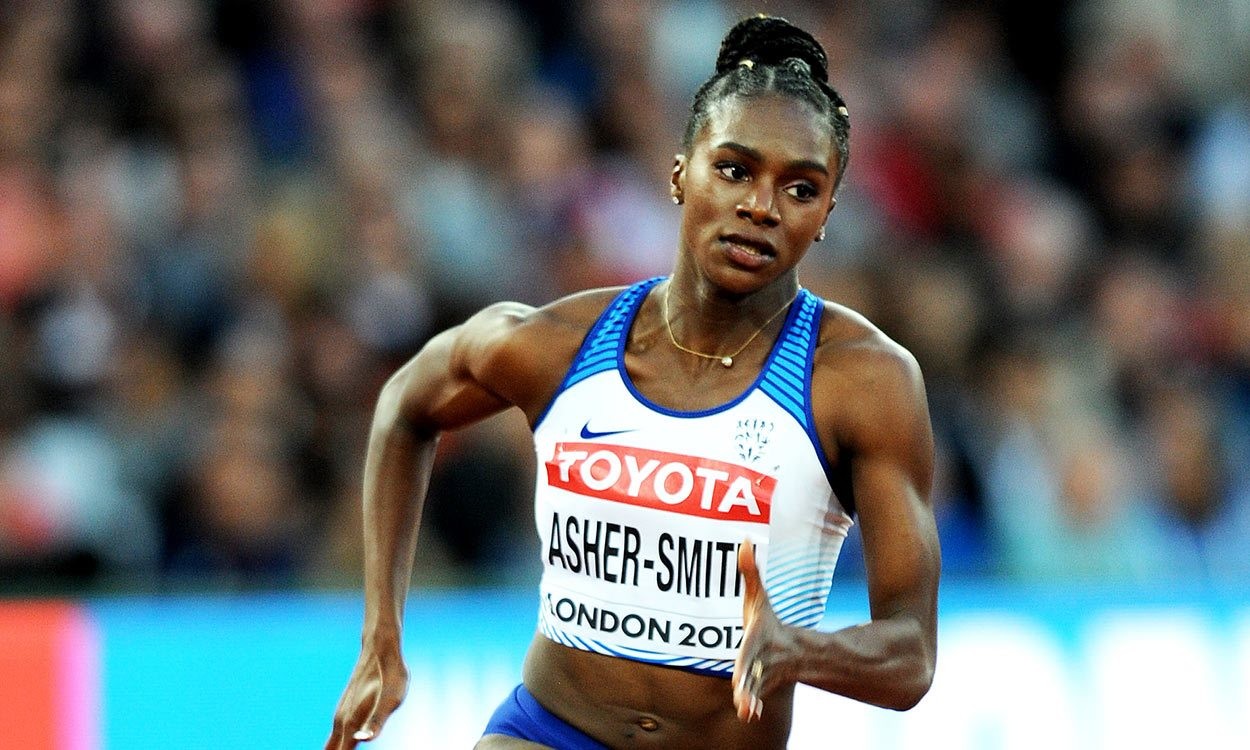
Olympic champion Thiago Braz and Dutch vaulter Menno Vloon, who set a national indoor record of 5.96m earlier this year, are also in the line-up.
Double world champion Sifan Hassan will return to the track on which she set a European 10,000m record of 29:36.67 last year and will again contest the 25-lap discpline. The Dutch distance runner has tested her form over a range of distances this year, clocking 8:33.62 for 3000m indoors, followed by 14:35.34 for 5000m and 2:01.54 for 800m outdoors.
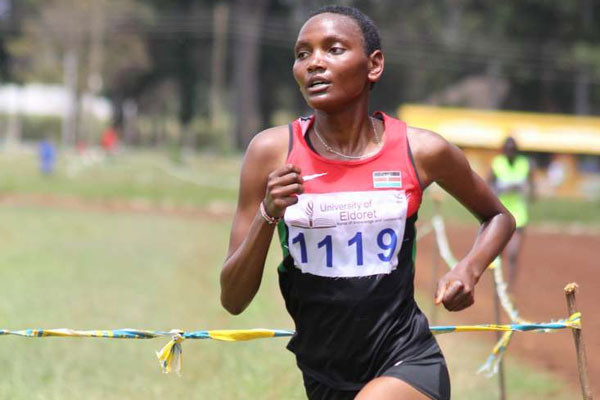
Kenya’s Daisy Cherotich, New Zealand’s world finalist Camille Buscomb and Canada’s Andrea Seccafien will all be hoping to emerge from the race with lifetime bests.
World 800m champion Halimah Nakaayi will open her 2021 campaign over her specialist distance. The Ugandan middle-distance runner takes on a quartet of Britons – Laura Muir, Kelly Hodgkinson, Jemma Reekie and Adelle Tracey – as well as Norway’s Hedda Hynne and France’s Renelle Lamote.
In the men’s event, indoor sensation Elliot Giles lines up for his first outdoor 800m of the year, taking on fellow Brits Max Burgin – who set a European U20 record of 1:44.14 in Ostrava last month – and Daniel Rowden. Tony van Diepen, one of the Netherlands’ top performers at the World Athletics Relays Silesia 21, is also in the field.
Recent Montreuil winner Abel Kipsang goes in the men’s 1500m where he’ll take on Uganda’s Ronald Musagala and Britain’s sub-3:30 performer Jake Wightman.
Asher-Smith, Kerley and McLeod set to produce sprint highlights
Although she has raced there only once before, world 200m champion Dina Asher-Smith has fond memories of racing in Hengelo.
It is where, as a teenager back in 2015, she set her first senior national record over 100m, clocking 11.02. Six years on from that performance, and having bagged many more records and medals, the world 200m champion will be hoping for a sub-11-second clocking to improve on the 11.35 season’s best she recorded when winning in Gateshead, running in heavy rain and into a -3.1m/s headwind.
Nigeria’s world and Olympic medallist Blessing Okagbare, who has a season’s best of 10.90, and two-time world 200m champion Dafne Schippers are also in the line-up.
World 4x400m champion Fred Kerley has so far this year produced his most impressive performances at 100m, clocking 9.91 and 9.96 in recent weeks. In Hengelo, however, he’ll step back up to his specialist 400m discipline and will aim to improve on the 44.60 season’s best he recorded in Doha last week.
by World Athletics
Login to leave a comment
Three American Records and 10 National Records Fall at the New Balance Indoor Grand Prix
Elle Purrier’s indoor two-mile American record was just one of many highlights in New York.
Many of the best track and field athletes in the world returned to competition—some for the first time in several months, due to the COVID-19 pandemic—at the New Balance Indoor Grand Prix on February 13. The event, typically held at the Reggie Lewis Center in Boston, was relocated to the Ocean Breeze Athletic Complex in Staten Island, New York, because the Boston venue is serving as a mass vaccination site.
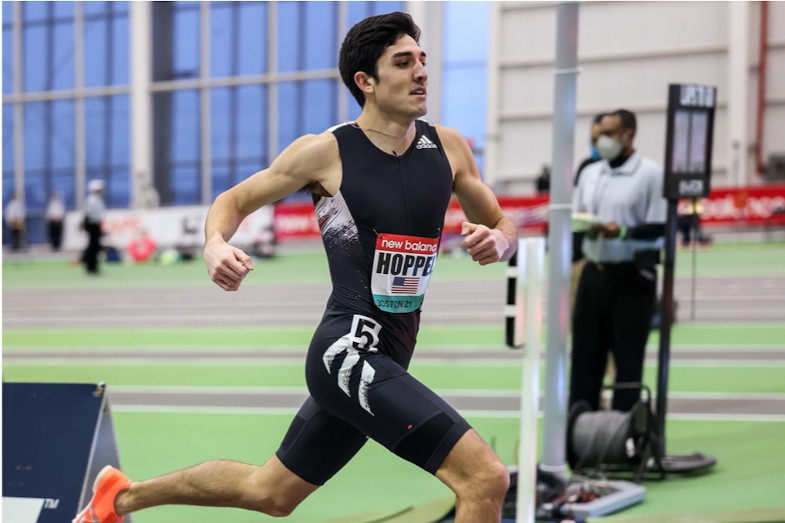
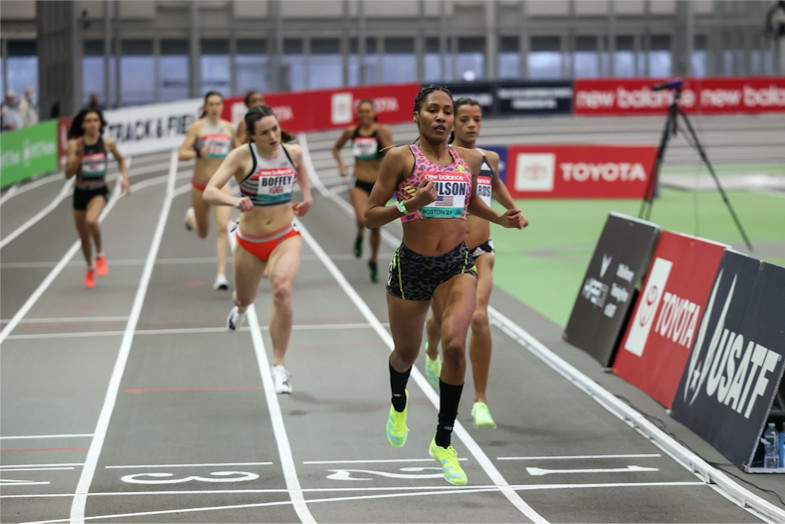
And the athletes made the most of this racing opportunity by breaking three American records and 10 national records total on Saturday.
Almost one year after shattering the American record in the mile at the Millrose Games, Elle Purrier broke another national record by winning the women’s two-mile in 9:10.28. Her time improves on the previous American record (9:18.35) set by Jenny Simpson in 2015. Purrier’s performance is also the third-fastest two-mile ever run in history. For Purrier, the victory follows a runner-up finish and 2:02.05 personal best in the 800 meters at the Prickly Pear Invitational in Phoenix, Arizona on February 6—her first race of 2021.
“I felt pretty confident going in, but you never know when you’re just training,” Purrier told journalists in a virtual mixed zone. “[Coach] Mark [Coogan] felt pretty confident about my fitness level, but after that [race] I’m feeling pretty good now.”
Looking back on her mile record a year ago, Purrier—who trains under Coogan with the New Balance group in Boston—said navigating the challenges of 2020 brought some silver linings to her process.
“Millrose was probably one of the biggest highlights of my career, and I think stopping after that was kind of a bummer because I felt like I was on a roll and the team was on a roll,” Purrier said in the mixed zone. “But we were able to kind of just wait it out this summer and get into some great training. And I went home and I find a lot of happiness there, and so I think that built this up to another great training block this fall and this winter.”
The 2018 NCAA mile champion followed the pacemaking set by Leah Falland, who brought the field through the first mile in 4:41. For the remaining laps, Purrier and steeplechase world champion Emma Coburn ran 1-2 in the front. With three laps to go, Purrier broke away from Coburn to seal the win and the record, running the final 400 meters in 63 seconds.
Five seconds behind Purrier, Coburn finished second in a personal best of 9:15.71. In the same race, Julie-Anne Staehli of Canada (9:22.66) and Amy-Eloise Markovc of Great Britain (9:30.69) broke national records for their respective countries.
Hoppel Sets a World Best for 2021
About 20 minutes later, Bryce Hoppel followed the momentum by running a world lead and U.S. national record in the 1,000 meters. The former Kansas Jayhawk and NCAA 800-meter champion broke the previous American record (2:16.76) set by the late David Torrence in 2014.
“It means everything,” Hoppel said. “It’s just something you dream of as a kid, and I couldn’t have done it without all the support that I have, my family, and my coach. They all make it possible. I mean, it feels awesome to get it. That was what I was going for.”
Behind Hoppel, Marco Arop of Canada finished second in 2:17.10, and Charlie Grice finished third in 2:17.20, a national record for Great Britain.
An American Record for Donovan Brazier
Two weeks after being forced to withdraw from the American Track League meet due to COVID-19 exposure, Donavan Brazier returned to the track with a vengeance.
The 2019 world champion lowered the American record by winning the men’s 800 meters in 1:44.21, more than two seconds ahead of runner-up Jamie Webb of Great Britain. Brazier set the previous American record (1:44.22) at the Millrose Games last year.
After Saturday’s victory, Brazier said his coach, Pete Julian, didn’t want him to hold back, and the strategy proved to be successful.
“Pete wanted me to go out and die. That was literally what he said, word-for-word,” Brazier said. “He said, ‘go out hard, see if you can hold it, and we’ll just gauge where you’re at from a fast pace.’ ... I don’t think I’m quite where I was at in Millrose last year, but I still think I’m in decent shape.”
Ajeé Wilson Returns to Competition
The women’s 800 meters featured an unexpected performance from a four-time world championship medalist and American record-holder.
Ajeé Wilson was a late entry to the meet after receiving treatment for a hamstring injury earlier in the week. Unlike her signature racing tactic of leading from the gun, Wilson ran behind the race-leader Kaela Edwards until the homestretch, where she sprinted ahead to finish first in 2:01.79.
“Not knowing exactly how things will play out with my body, I wasn’t trying to take any chances and felt a little more comfortable hanging behind,” Wilson said. “That’s something that we’ve been working on in practice. We’re maybe five strong in our group now, so that definitely prepared me for today and just being comfortable and also making sure I was still in a good position so when I wanted to move, I could.”
The performance is Wilson’s first race since winning the 800 meters at the 2020 USATF Indoor Championships on February 15, 2020. After Saturday’s race, Wilson said she didn’t feel comfortable traveling for competition last year amid the COVID-19 pandemic, as she interacts with people who are more at risk of catching the virus. Instead, she focused on training at her home base in Philadelphia. Her next competition will be the Texas Qualifier in Austin, Texas from February 26 to 27.
“Although things aren’t much better, I'm feeling a little more comfortable with the precautions we're all taking to be safe,” she said.
Behind Wilson, Sophia Gorriaran—a 15-year-old high school sophomore from Rhode Island—finished fifth in 2:03.94. One week earlier, Gorriaran notched the standard to compete at the 2021 U.S. Olympic Team Trials by running 2:02.44 against a professional field at the American Track League meet in Fayetteville, Arkansas.
Two National Records in the Men’s 1500
The men’s 1500 meters featured two national records. Oliver Hoare—who trains under coach Dathan Ritzenhein with the On Running pro group in Boulder, Colorado—kicked to victory in 3:32.35, a national record for Australia. Jake Wightman of Great Britain finished second in 3:34.48, and Sam Tanner—a sophomore at the University of Washington—finished third in 3:34.72, breaking the national record for New Zealand.
The women’s 1500 meters was won by Heather MacLean who out-paced Cory McGee in the final lap to win in 4:06.32.
Michael Norman Races the 400 Meters for the First Time in a Year
For the first time since the 2019 World Championships in Doha, Qatar, track fans got to see Michael Norman compete in his signature event, the 400 meters.
The former USC Trojan and NCAA champion—who broke the world record in the indoor 400 meters (44.52) at the NCAA championships in 2018—battled with his training partner Rai Benjamin down the homestretch to secure the victory in 45.34. Benjamin finished second in 45.39.
“The instinct just kicked in,” Norman said. “We're very competitive at practice, especially when it comes to competition. So having that little fun practice rivalry going on, I couldn't have Rai beat me in the race, but he's an amazing competitor, so it was a lot of fun.”
In 2019, Norman failed to make the world championship final in Doha after suffering from an injury in the semifinals. He raced once in 2020—9.86 in the 100 meters at a COVID-adjusted meet in Fort Worth, Texas last July. After a long hiatus from competition, Norman said he felt pleased with the effort on Saturday.
“I’m feeling good,” Norman said. “There's a lot of work that needs to be done, but the main purpose of today was just to go out and compete, have fun and to kind of knock the cobwebs off because it's been over a year since I’ve run that distance.”
Another National Record for Shaunae Miller-Uibo
In her second meet of the year, Shaunae Miller-Uibo broke another Bahamian national record by running 50.21 to win the women’s 400 meters. The time makes her the eighth-fastest performer all-time indoors. The 2016 Olympic champion achieved the mark two weeks after breaking the national record in the indoor 200 meters at the American Track League meet, where she ran a personal best of 22.40.
World record-holder Keni Harrison also ran a world leading time on Saturday. The 2018 world indoor champion won the 60-meter hurdles in 7.82 seconds.
In the same race, Sydney McLaughlin finished last in 8.56. The race was McLaughlin’s highly anticipated return to the track after earning silver in the 400-meter hurdles and contributing to Team USA’s winning performance in the 4x400-meter relay at the 2019 World Championships. Saturday’s race was McLaughlin’s first time contesting the event since 2015, when she was in high school.
After the race, she said the race was an exercise in training with her non-dominant leg over hurdles. “It’s something we've been thinking about for awhile, just being able to hurdle efficiently with both legs, and what better way to do that than the short hurdles?” McLaughlin said. “It's such a short race and such a fast-paced race that you can really work on that technique. It was good to get into a fast race and really be forced to use it without being able to think that much.”
Noah Lyles Keeping His Eyes on Tokyo
Noah Lyles did double duty in the sprints on Saturday. The 2019 200-meter world champion ran the first round of the 60 meters in 6.76 seconds and returned to the track to contest the 200 meters. Holding off competitors Deon Lendore and Jaron Flournoy, Lyles made it to the finish line in 20.80, well off the typical winning times in his signature event.
While Lyles admitted he wasn’t pleased with the time (and his body language conveyed as such), he still took the experience as a lesson moving forward in his bid to represent Team USA and win more medals at the Tokyo Games this summer.
“We’ve been training for a lot of strength and endurance and it obviously paid off because I was able to come into the 60, warm up, and then I was able to shake off any type of fatigue I had from it,” Lyles said. “I still feel really good, even coming off of the 200, like I could run three more. So I actually feel strong, which is really what we were trying to get out of training, and coming here was to see how much speed we got in the tank. To be honest, it actually proved that what we’re doing is working.”
Trayvon Bromell Crosses First in the 60 Meters
After battling a series of injuries for the past few years, Trayvon Bromell returned to his winning ways on Saturday. After leading the 60-meter semifinal in 6.53, the 2016 world indoor champion won the final in 6.50 by breaking away from his competition in the second half of the race. Runner-up Demek Kemp followed in 6.65.
Looking back on the challenges of the past few years, Bromell credited his spirituality with his return to form and a newfound motivation.
“I'm here to run and make an impact on kids, adults who may have lost hope,” Bromell said. “I feel like my testimony of what I’ve been through gives people that, and it shows the sport in another light than just winning medals or running fast times. That’s all good, but what impact do you leave? I’m trying to be impactful, not impressive.”

by Runner’s World
Login to leave a comment
Seb Coe believes Daniel Rowden, Jake Wightman and others are on the right track to succeed at the highest level
Ever since the 1990s Seb Coe has regularly been invited to meet various 800m prodigies who have been touted as his successor. He has usually obliged and passed on some of the wisdom gained from a career that included a world and still-standing British record of 1:41.73. In turn, he has listened to them and has often been slightly disheartened with their approach.
When it comes to the current crop, though, Coe is impressed. The president of World Athletics says they are making all the right noises and he is optimistic they can build on what has been a vintage year for the two-lap event in the UK.
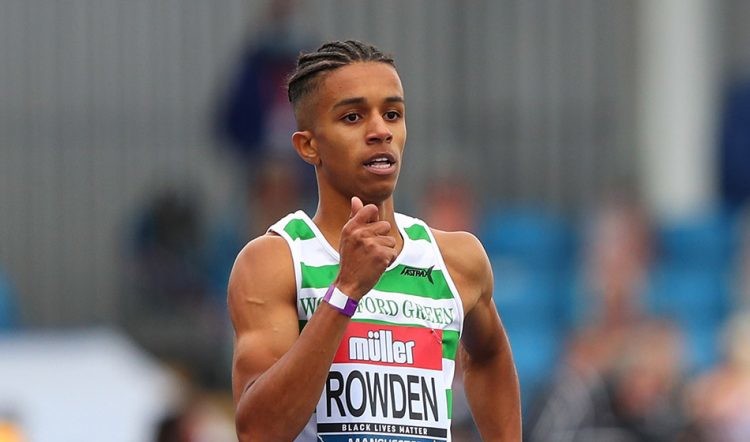
Daniel Rowden, Elliot Giles, Jake Wightman, Kyle Langford and teenager Max Burgin have all run 1:44 in 2020. One race in Zagreb saw Rowden, Giles and Wightman finishing one-two-three and Coe says he enjoyed a one-hour conversation on Zoom with Rowden recently to talk about his training and approach to athletics.
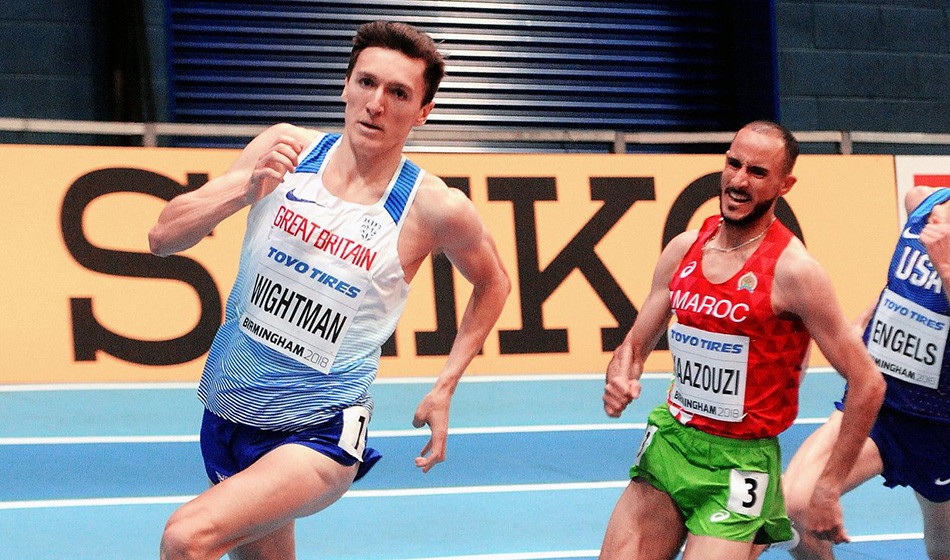
“I’m pleased (with the current crop),” says Coe, “because I’ve always kept quite close and every few years I’ve often been asked to sit down with 800m or 1500m runners – even going back to Frank Dick’s time – and sometimes I’ve left slightly with my head in my hands with regards the way they’ve thought about the event and the types of things they’ve done in training in order to get to the top.”
But Coe adds: “This is the first generation where I can really put my hand on my heart and say that they really are doing the right things.
“On the basis that I think they’re doing the right things, it’s hardly a surprise that they’re performing the way they are.”
Rowden’s best of 1:44.09 equalled the best time of Coe’s big rival – the Olympic 800m champion Steve Ovett – and it ranked the 23-year-old third in the world rankings in 2020.
“I had a very good chat with Daniel the other day,” says Coe. “I’m not the font of all knowledge when it comes to 800m running and I certainly wouldn’t tell them how to run 800m finals. They’d be better off speaking to Steve Ovett or Joaquim Cruz about that!
“But I do know what it takes to get to the top of 800m running and what I’m pleased about is that they’re wanting to learn, wanting to understand and reaching out and the very fact that I’m sitting down with Daniel, who is keen to understand the nature of the event, is a really good sign.”
by Jason Henderson
Login to leave a comment
Impressive victories by Jacob Kiplimo, Christian Taylor and Faith Kipyegon at the Golden Spike, a World Athletics Continental Tour Gold meeting in Ostrava
Kiplimo’s track break-out:
In the men’s 5000m, the 19-year-old Kiplimo fought off Selemon Barega in a fierce homestraight brawl to take the win in 12:48.63, one of seven meeting records to fall on a clear night in this eastern Czech city where 3000 spectators were allowed entry to Mestsky Stadium to help celebrate the meeting’s 59th edition.
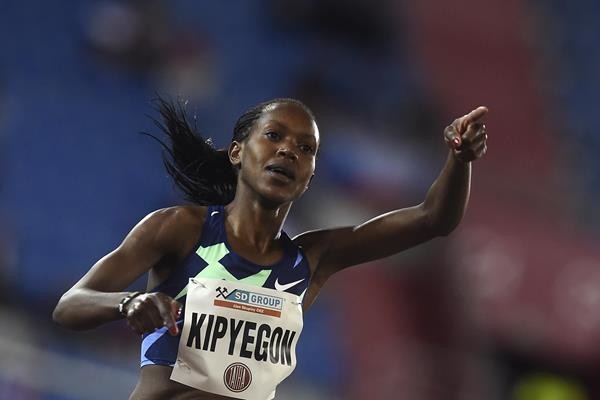
Just 3:30 into the race it was Barega, running behind pacer Lamecha Girma, who looked to be in control. With four laps to go he was already all alone and well ahead of the sprawled out pack.
“I wanted the fast time so I kept on pushing,” said Kiplimo, the silver medallist in the senior race at last year’s World Cross Country Championships. “It was a fight in the home straight. And it was wonderulf.”
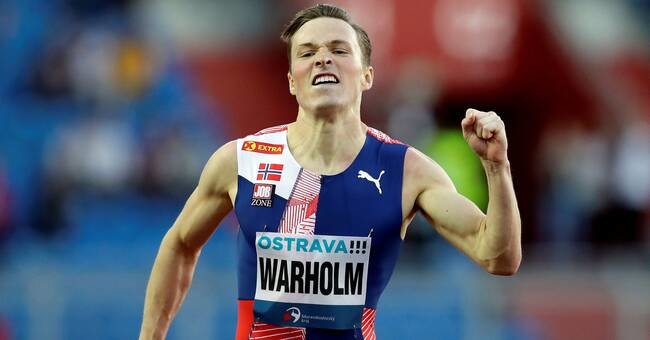
It was also the first big-meet victory for the teenager. More are likely on their way.
Strong, solo Kipyegon:
Faith Kipyegon produced a powerful performance to take the 1500m in convincing fashion.
Controlling the tempo from the 800m point, the Olympic champion pulled away for good with some 250 metres remaining, with Laura Weightman briefly giving chase. Kipyegon clocked 3:59.05, a season's best and another meeting record.
Weightman, who was briefly passed by Jemma Reekie as they approached the final bend, overtook the Scot in the homestretch to finish second in 4:01.96 with Reekie further back in 4:03.25.
Taylor triples 17.42m world lead:
In typical fashion, Christian Taylor produced the goods in the final round to win the triple jump, reaching a world-leading 17.46 in the final round to steal the win from Hugues Fabrice Zango, who controlled the competition since the second round when he jumped 17.42m.
Taylor needed time to find his rhythm, shaking off a pair of back-to-back modest efforts with a 17.12m jump in round three. He didn’t produce another measured jump until his last.
Warholm dominates:
Two-time world 400m hurdles champion Karsten Warholm extended his unbeaten streak to ten with a convincing 47.62 victory, another meeting record.
It wasn’t quite the follow-up he was expecting after his stunning 46.87 European record in Stockholm where a clip of the final hurdle dashed his world record ambitions there. This time, he chopped his stride badly as he approached the ninth barrier, but if he was disappointed, he hid it well.
“It’s always nice to get a win, but I was a little surprised by the time to be honest,” said Warholm, who was flown to Ostrava on Sunday on a private jet.
“I had a little stutter step, I had to switch (lead legs). There was nothing dramatic about it, I just had to do a switch. But that probably affected my time. Everything that breaks your rhythm is going to impact your finish time.”
Ludvy Vaillant of France was second in 49.14, a season’s best.
Hassan out-sprints Chelangat:
Sifan Hassan, Sheila Chelangat and Yasemin Can waged a strong battle in the women’s 5000m, but through it all, Hassan, the world 1500m and 10,000m champion, was just biding her time. That came, she decided, with about 300 metres to go, when she pulled past Chelangat and ran off down the backstretch and eventually to a convincing 14:37.85 victory.
Chelangat, who took care of much of the pacesetting chores, was second, passing Can in the waning stages to clock in 14:40.51, a career best for the 22-year-old Kenyan. Can, running in her first race on the track this year, was next in 14:40.70.
800m wins for Muir and Wightman:
Laura Muir was again the class of the field in her event, this time the 800m, turning in a solid 1:58.84 victory. Poland’s Sofia Ennaoui, who was second to the Scot in the Silesia 1500m on Sunday, was second again in 2:00.82.
Jake Wightman took down a solid field in the men’s race in 1:44.18, a career best for the 26-year-old who's better known for his 1500m exploits. The performance lopped a hefty sum from his previous best of 1:44.61 set two years ago.
by World Athletics
Login to leave a comment
European champion Jakob Ingebrigtsen from Norway set his second European record of the season in the 1500m with 3:28.68 in the Monaco Diamond League on Friday
After breaking the European 2000m record with 4:50.01 at the Impossible Games in Oslo where he had the advantage of being paced by his brothers, Ingebrigtsen was racing against not only his older brother Filip but also the reigning world champion Timothy Cheruiyot from Kenya who was decisively beaten by the Ingebrigtsens in the virtual head-to-head clash between Oslo and Nairobi.
Aided by his training partners who were acting as his pacemakers, Cheruiyot blazed through the early stages in an unfathomably fast pace on his unofficial season’s debut. These exertions appeared to be catching up on the world champion as the pack closed up on Cheruiyot at the bell with Ingebrigtsen looming into view and Great Britain’s Jake Wightman also rounding into contention.
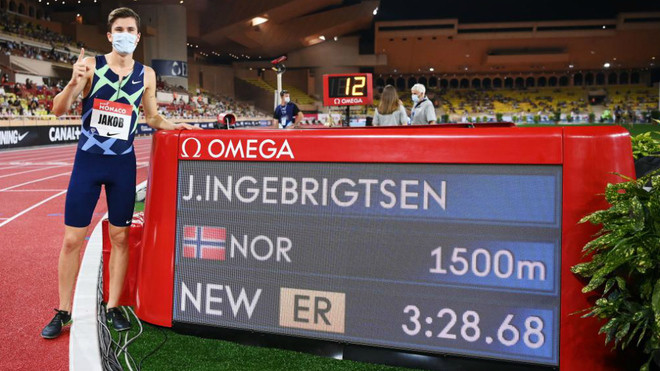
Ingebrigtsen was in position to strike off the final bend but the forward-leaning Cheruiyot kicked away again, holding the Norwegian off to win in a world leading 3:28.45 after an overly exuberant first 400 meters of 52.59. In contrast Ingebrigtsen ran a much more steady paced race and was rewarded with a phenomenally fast time of 3:28.68.
Ingebrigtsen’s time eclipsed Mo Farah’s European record of 3:28.81 which was set in the same stadium seven years ago and the teenager moves to eighth on the world all-time list which is still headed by Hicham El Guerrouj’s world record of 3:26.00.
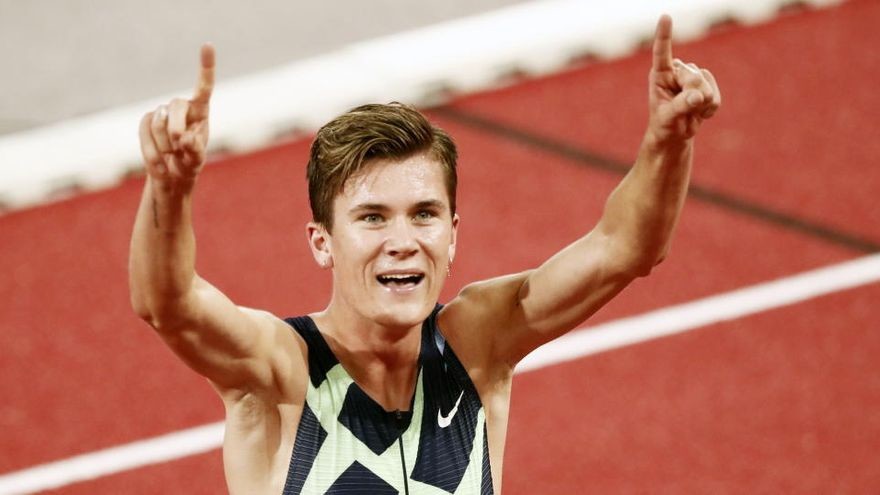
“I felt like I kept the same pace...going from 3:30 to 3:28 it's double the achievement. It's crazy,” said Ingebrigtsen whose previous lifetime best stood at 3:30.16.
Ingebrigtsen was gearing up for not only his Olympic debut in Tokyo as well as the now-cancelled European Championships in Paris where more continental honors must have surely beckoned. Despite the decimation of the summer calendar due to the coronavirus pandemic, motivation has by no means been lacking for the ebullient and popular Norwegian.
“This year I have been doing every session, I never skipped a single one because I was very motivated after Doha. That's why I can run this fast. It's unbelievable to run this fast in one race. It's one shot, one chance,” he said.
The Stade Louis II Stadium is the foremost venue for middle distance runners searching for fast times. Behind Ingebrigtsen, Wightman moved to fourth on the European all-time list - ahead of both Sebastian Coe (3:29.77) and Steve Cram (3:29.67) among others - with a marvelous lifetime best of 3:29.47.
Filip Ingebrigtsen, who had to concede the family record of 3:30.01 to Jakob tonight, almost matched his lifetime best with 3:30.35 in fourth. Reigning European indoor champion Marcin Lewandowski from Poland was seventh in 3:33.99.
Login to leave a comment
Six Scots have been confirmed in the field for the Muller Indoor Grand Prix at the Emirates Arena in Glasgow on Saturday
Laura Muir spearheads the Scottish contingent as she lines up in the 1000m, where she will attempt to break the world record.
She will be joined in Glasgow by her training partner, Jemma Reekie, who has been in extremely impressive form in recent weeks, breaking three British indoor records as well as beating Muir last weekend.
Reekie will race the 1500m, the event in which she broke the British indoor record last weekend when she clocked 4 minutes 0.75 seconds in New York last weekend.
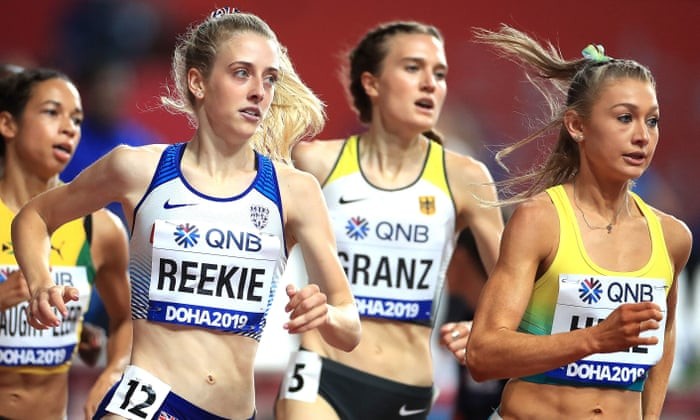
Also in excellent form is Nikki Manson who will compete in the high jump on the back of breaking the Scottish record last weekend with a leap of 1.93m.
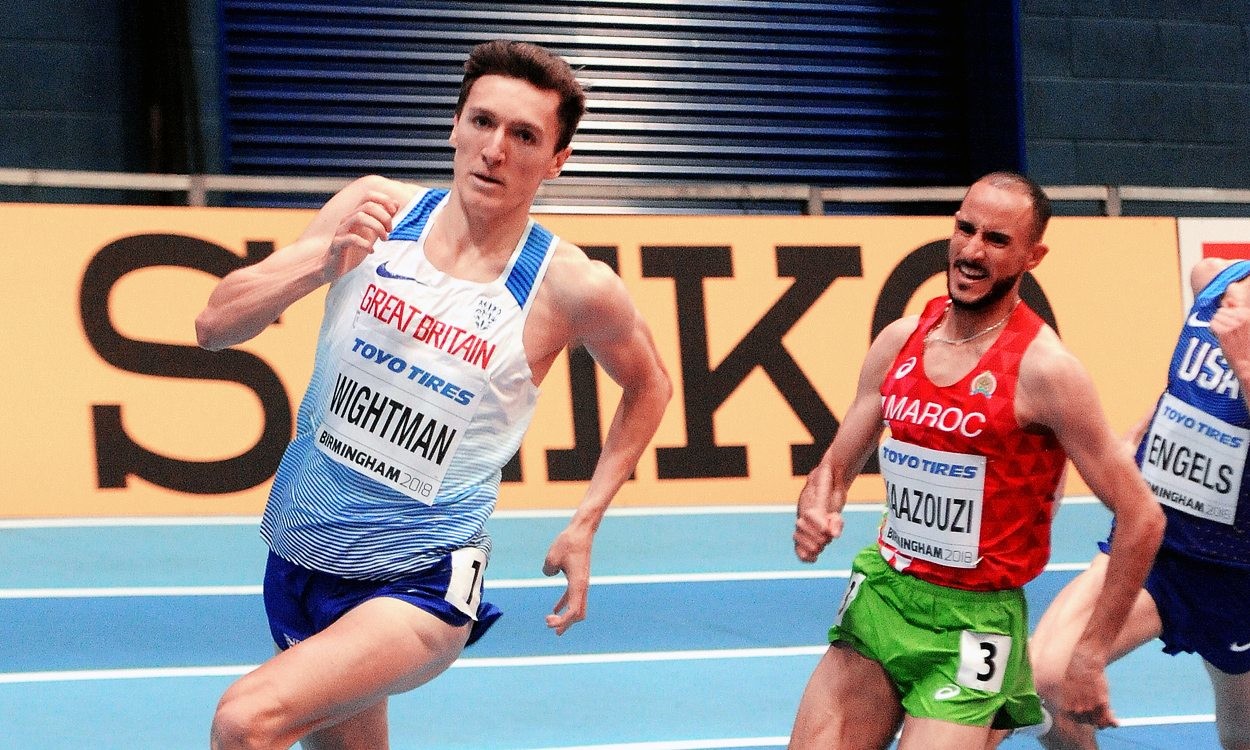
In the 800m, Josh Kerr and Guy Learmonth will go head-to-head but they will face stiff competition as also in the field is reigning World Indoor champion, Adam Kszczot, of Poland
Completing the Scottish entries is Heather Paton in the sprint hurdles, who is another athlete who has been on record-breaking form in recent weeks having broken her own indoor record over 60m this season. Jake Wightman, who broke the British 1000m record a fortnight ago was due to appear but has withdrawn after illness disrupted training.
The Scots will be in good company at the Emirates, with a star-studded field having been lured to compete.
GB heptathlete Katarina Johnson-Thompson, who is the current world champion, will compete in the long jump while Shelly-Anne Fraser-Pryce will line up in the 60m. The Jamaican is a two-time Olympic gold medallist and returned to the sport last summer having given birth to her son.
Also in action is man of the moment, Mondo Duplantis, who broke the pole vault world record last weekend.
by Susan Egelstaff
Login to leave a comment
Muller Indoor Grand Prix Birmingham
The Müller Indoor Grand Prix Birmingham is one of the leading indoor meetings in the world with world-class athletics as part of the World Indoor Tour Gold series. The event will be staged at its traditional home at Utilita Arena Birmingham setting the tone for what is set to be an incredible year of track & field. ...
more...Brazier and Ali kick off World Athletics Indoor Tour with dominant victories in Boston
The 2020 World Athletics Indoor Tour began with national records and fantastic performances in Boston, as world champions Donavan Brazier and Nia Ali kicked off their Olympic campaigns with victories at the New Balance Indoor Grand Prix on Saturday night (25).
Brazier, the world champion in the 800m, dominated the men’s 600m. In the final event of the evening, Brazier came through 400m in 49.62, and obliterated the field to win in a meeting record of 1:14.39. Brazier, who owns the world indoor best for the 600m with his 1:13.77 from last year’s US Indoor Championships, won by nearly six seconds from Michael Stigler.
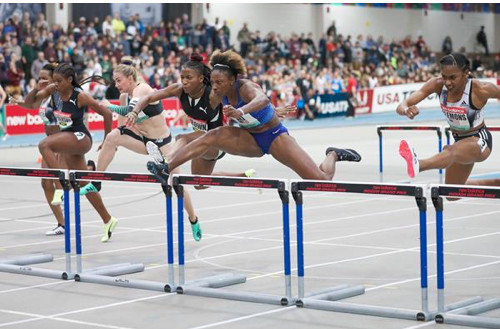
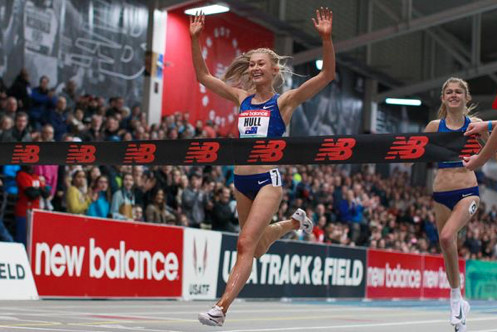
“It feels great,” said Brazier, who was contesting his first race since the World Championships. “This is my tradition so far while being a professional. I’ve run at the Reggie Lewis Center four years straight now and I’ve come out with four wins in a row – so I might as well just keep coming back.”
Ali started her indoor season right where she left off, winning the 60m hurdles in 7.94. The world 100m hurdles champion pulled away over the final barrier to beat world indoor silver medallist Christina Clemons, who finished in 7.98.
“It means a lot to start off the season here,” said Ali after running her fastest 60m hurdles time since winning the 2016 world indoor title. “My family is able to get down and see me and I appreciate that. Especially being from the East coast. I know the crowd is always good to me, so I love it.”
In the women’s 1500m, Jessica Hull of Australia sat on the shoulder of Konstanze Klosterhalfen for 1450m before bursting to the front in the final straight to win in 4:04.14, taking more than two seconds off the Oceanian indoor record.
Klosterhalfen, the German athlete coming off a bronze medal in the 5000m at the World Championship in Doha, finished second in 4:04.38. Ciara Mageean finished third in 4:06.42 to break her own Irish indoor record.
In his first indoor race as a professional, Bryce Hoppel, who did not lose a race collegiately last year, nipped Jake Wightman at the line to win the 1000m in 2:17.41. Wightman, who set a British indoor record of 2:17.51, led going into the final lap, but Hoppel clocked a 27.1 final circuit pick up the win.
World indoor bronze medallist Bethwell Birgen of Kenya won a duel over Edward Cheserek, who announced this week he would be competing internationally for Kenya, in the 3000m. After the pacemaker stepped off the track with just over 1000m to go, Cheserek and Birgen traded the lead before Birgen unleashed a stunning final 300m, closing his last lap in 26.33 to take the win over Cheserek, 7:44.21 to 7:46.74.
In the women’s two miles, Elinor Purrier buried the competition over the final lap to win in 9:29.19 as 2017 world steeplechase champion, Emma Coburn, finished third.
Gabby Thomas blitzed a 36.52 to win the 300m. Thomas, a graduate of Harvard University, won the first heat by a wide margin and held on for the win after Shamier Little beat out Kendall Ellis in the second heat, 37.07 to 37.36.
“It was really great to compete at home, here in Boston,” Thomas said. “Especially this being my first year out of college and having that energy around me, it’s a really an amazing feeling.”
Chris O’Hare of Great Britain held off a hard-charging Nick Willis in the men’s mile, winning 3:59.62 to 3:59.89.
Demek Kemp won the 60m in 6.50, taking 0.05 off his personal best. Trayvon Bromell, running the 60m for the first time since winning the 2016 world indoor title at the distance, finished seventh in 6.84. Obi Igbokwe, a senior at the University of Houston, won the men’s 400m in 46.50.
In the field events, Pablo Torrijos of Spain kept his cool after four successive fouls in the men’s triple jump, eventually sailing out to 16.75m in the fifth round to seal the victory. Amina Smith of the US cleared 1.89m to win the women’s high jump.
The World Athletics Indoor Tour will next head to Karlsruhe, Germany, on 31 January, when athletes will continue to chase tour ranking points as well as wildcards for the World Athletics Indoor Championships Nanjing 2020.
by World Athletics
Login to leave a comment
McLaughlin and Coburn confirm their return to the New Balance Indoor Grand Prix in Boston
Sydney McLaughlin and Emma Coburn will return to the New Balance Indoor Grand Prix, the opening leg of the 2020 World Athletics Indoor Tour, in Boston on 25 January.
McLauglin, who'll be returning to the meeting for the third time, is coming off a stellar first season in the professional ranks that saw her win the silver medal over 400m hurdles and gold in the 4x400m relay at the World Athletics Championships Doha 2019. McLaughlin also won the Diamond League title and ended the season with a lifetime best of 52.22 for the 400m hurdles, making her the second-fastest woman in history. In Boston, McLaughlin will compete in the 500m.
Also returning to Boston with a medal from the World Athletics Championships is Emma Coburn, who will be making her sixth appearance. Coburn, won silver in the 3000m steeplechase in Doha, will line up in the two mile.
Great Britain’s top ranked men’s 1500m specialist, Jake Wightman, is also set to come back to the meeting. Wightman won bronze medals over 1500m at both the Commonwealth Games and European Championships in 2018, and finished fifth in the 1500m at the World Championships in a time of 3:31.87, a lifetime best and a new Scottish record. He will race in the 1000m in Boston.
Now in its 25th year, the New Balance Indoor Grand Prix has played host to nine world records and 13 US records.
by World Athletics
Login to leave a comment
Callum Hawkins was named Scottish athlete of the year
Callum Hawkins and Maria Lyle received FPSG Scottish athlete of the year honors at the sold out awards dinner in Glasgow on Saturday.
World marathon fourth-placer Hawkins won the award ahead of other shortlisted athletes Laura Muir, Eilish McColgan, Jake Wightman, Jacob Adkin and Andrew Douglas.
“I’m thrilled to win the FPSG athlete of the year award given the competition this year,” said Hawkins, who broke the Scottish marathon record in 2019 and finished just outside the medals in Doha at the IAAF World Championships.
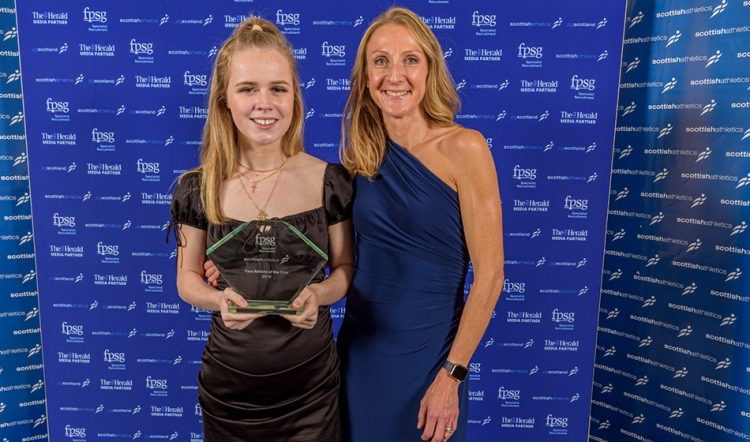
“There have been Scottish records broken on the track and the two hill guys, Jacob Adkin and Andy Douglas, have performed superbly, too.

“It is quite exciting to see some progress in the marathon rankings for 2019 by Scottish athletes and hopefully we can add to that over the next couple of years.
“Steph Twell broke the women’s record which had stood for a long time and I managed that, too,” he added. “If you have people at the very top end performing then I think there are others who get inspiration – especially if it is someone they know, someone they have seen competing in cross country or on the road in Scotland, and they start to raise their own standards.
“We would love to see two full teams (three athletes each) on the men’s and women’s side for Team Scotland at the Commonwealth Games in Birmingham in 2022 and I am pretty certain we will get that. And it should be six very strong marathon runners at Commonwealth level.”
Lyle, who won a sprint double at the World Para Athletics Championships in Dubai, was named the FPSG para athlete of the year.
“I’m delighted to win the para athlete of the year title again,” she said.
“There was so much success in Dubai and it was really special to be part of that and win my first global titles.
“I had thought earlier in the year that just being in Dubai would be the main target but once you get there then you want to be really competitive.
“I’ve had a few struggles mentally and needed medication and professional help. But the biggest thing was the support of my family and my coach, Jamie Bowie. I am really enjoying athletics again and that is so important.”
Guest of honor Paula Radcliffe helped to make the presentations, with clubs, coaches, officials and volunteers also receiving recognition.
Robert Hawkins, who coaches his son Callum, was named performance coach of the year, while the Dallas Trust Trophy went to Wightman.
Login to leave a comment
A British team of 72 athletes has been named for the IAAF World Championships in Doha
A 72-strong squad has been announced for the global event in Qatar, taking place from Sept 27 to Oct 6.
Dina Asher-Smith, Zharnel Hughes and Adam Gemili have all been confirmed for sprint doubles, with Gemili also joined on the 4x100m squad by his fellow reigning world relay champions Nethaneel Mitchell-Blake and CJ Ujah.
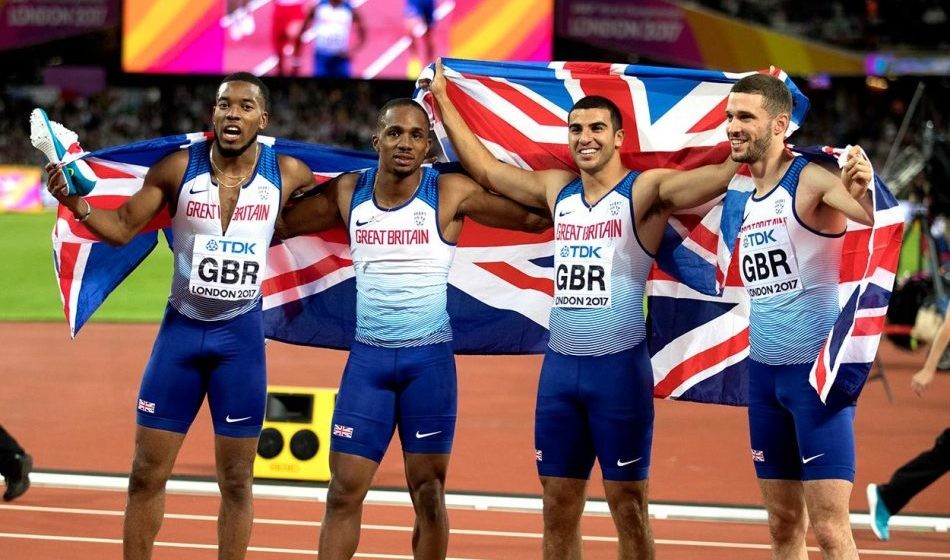
In total, 44 athletes return to the world stage after having earned selection for London two years ago, including British 1500m champion Laura Muir and world indoor hurdles champion Andrew Pozzi, while 24 athletes will make a World Championships debut for GB & NI in Doha, including European indoor silver medallists Jamie Webb and Tim Duckworth and British champions Ojie Edoburun, Neil Gourley, Harry Coppell and Ben Williams.
Kyle Langford has been handed the third men’s 800m spot, while Jake Wightman has secured a 1500m place.
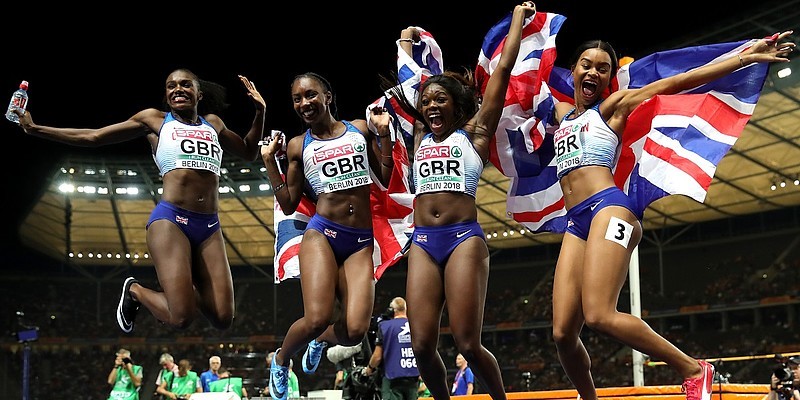
Mo Farah has not yet confirmed whether he will race as the defending 10,000m champion and the team does not currently feature any male athletes in that event, but Eilish McColgan and Steph Twell have been named for the 25-lap discipline, with McColgan set to double up in the 5000m where she will be joined by Jessica Judd and Laura Weightman.
A first wave of athlete selections was announced in May, with Callum Hawkins confirmed for the men’s marathon, although Dewi Griffiths has withdrawn through injury.
Charlotte Purdue and Tish Jones will run the women’s marathon.
British Athletics states that any invites for the championships will be considered “in line with the British Athletics selection policy”.
The governing body adds: “Given the timelines outlined by the IAAF as to when these invites will be received, appeals will not be considered.”
British Athletics performance director Neil Black said: “It gives me great pleasure to name the 72 athletes selected to compete for Great Britain & Northern Ireland at the IAAF World Championships in Doha, starting later this month. Given the standard of performances from British athletes this season, and the strength in depth we possess in several events, finalizing the team was far from easy and there were some tough decisions to make.
“In the 72 athletes, I truly believe we have selected the strongest team possible to compete for medals on the global stage. The team is full of world-class athletes who over the past two years since we were hosts in London have proven that they belong on the global stage.
“It is great to see so many athletes return having competed in London and also see so many make the step up to the world level for the first time. We have selected more women than men once again for a major championships and special mention needs to go to Martyn Rooney, who is competing at his eighth world championships, a truly remarkable feat for a great athlete.
“The championships are going to be held in a challenging climate at the end of what has been a long season already but what pleases me the most is how our athletes have approached the challenge and are ensuring that they peak when it matters most. The next three and a half weeks are key in preparing for the championships and I look forward to watching our athletes flourish in Doha.”
Login to leave a comment
IAAF World Athletics Championships Doha
The seventeenth edition of the IAAF World Championships is scheduled to be held between 27 September and 6 October 2019 in Doha, Qatar at the renovated multi-purpose Khalifa International Stadium. Doha overcame bids from Eugene, USA, and Barcelona, Spain to be granted the rights to host the 2019 IAAF World Championships in Athletics. Having hosted the IAAF Diamond League, formerly...
more...British Olympian Steph Twell, is set to make marathon debut in Valencia
Login to leave a comment
Jenny Simpson becomes the first woman to win the iconic season-ending race seven times at New Balance 5th Avenue Mile
Login to leave a comment
17 year-old Jakob Ingebrigtsen wins European Championship 1,500m, He becomes the youngest runner to ever win a European track title
Login to leave a comment


